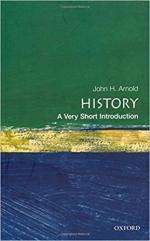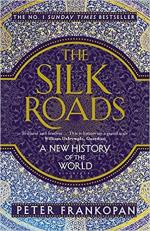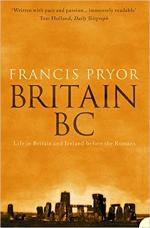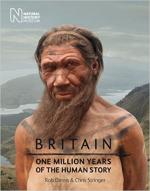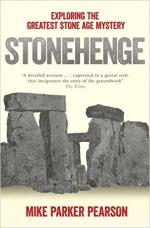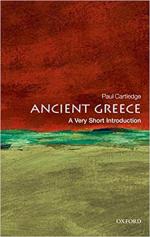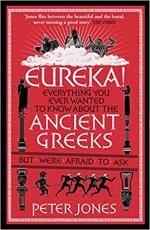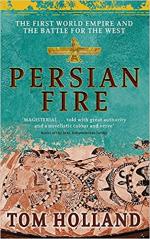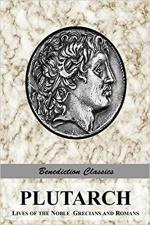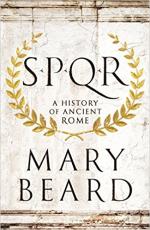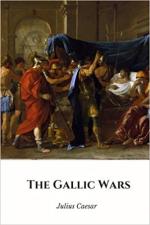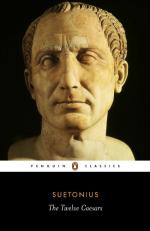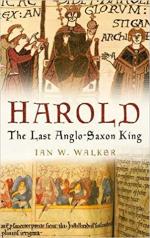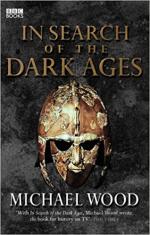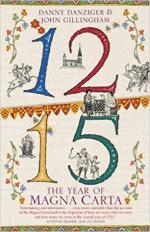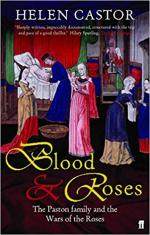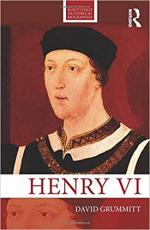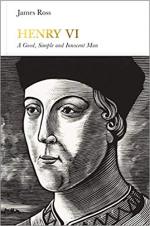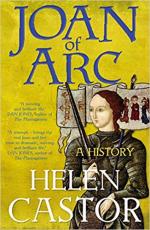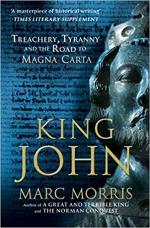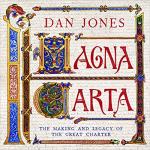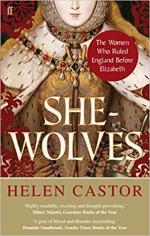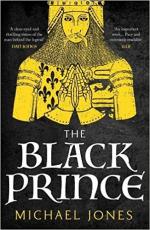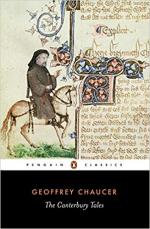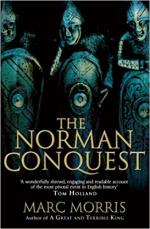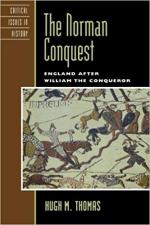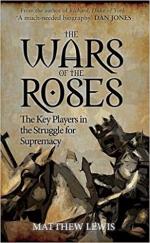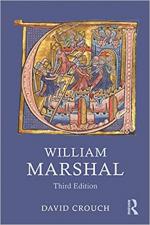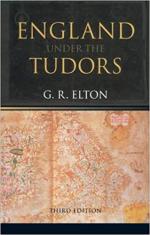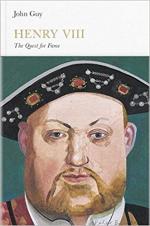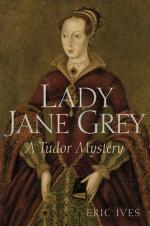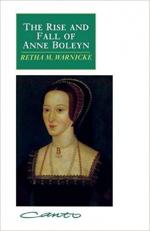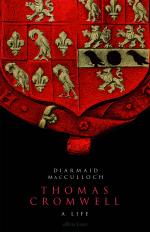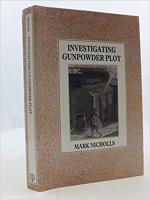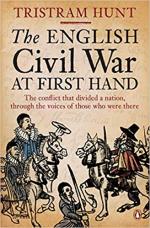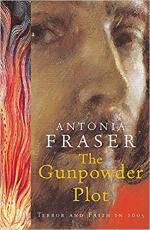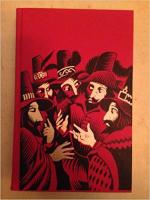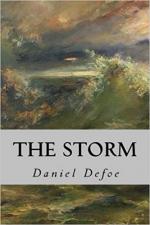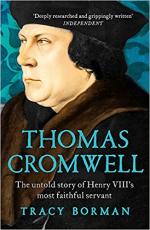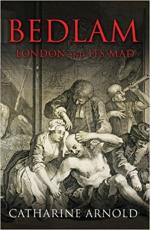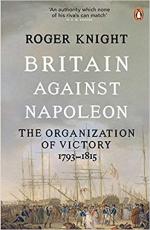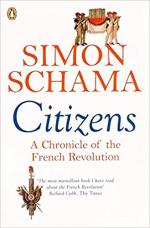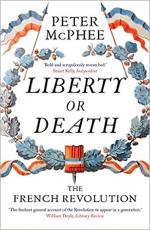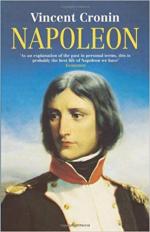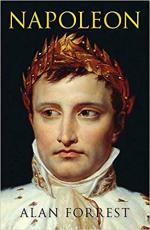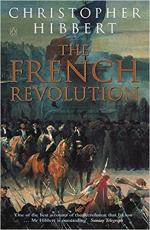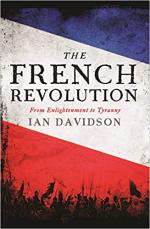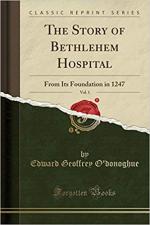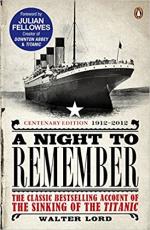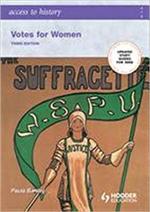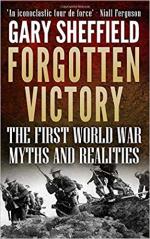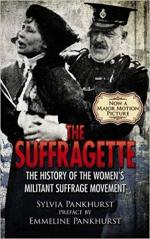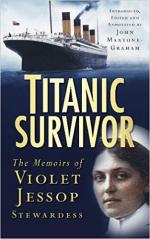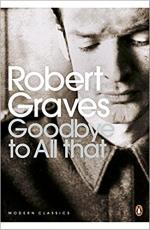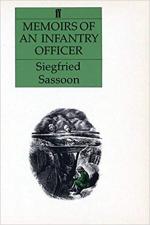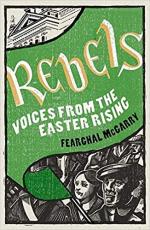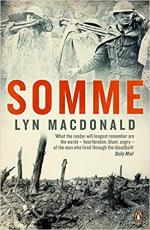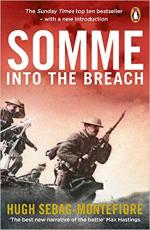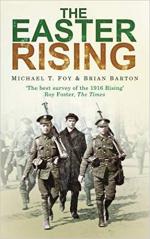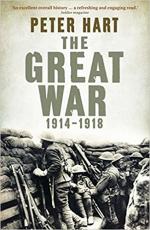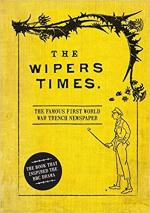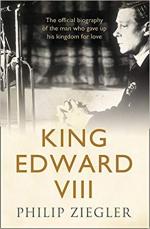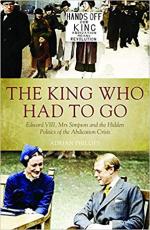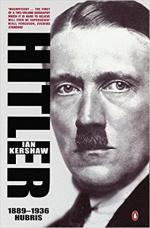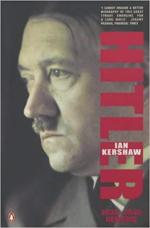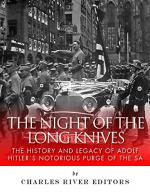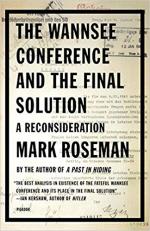- Notice: Indirect modification of overloaded element of Drupal\Core\Template\Attribute has no effect in template_preprocess_views_view_table() (line 564 of core/modules/views/views.theme.inc).
template_preprocess_views_view_table(Array, 'views_view_table', Array) (Line: 287)
Drupal\Core\Theme\ThemeManager->render('views_view_table', Array) (Line: 431)
Drupal\Core\Render\Renderer->doRender(Array) (Line: 444)
Drupal\Core\Render\Renderer->doRender(Array, ) (Line: 200)
Drupal\Core\Render\Renderer->render(Array) (Line: 501)
Drupal\Core\Template\TwigExtension->escapeFilter(Object, Array, 'html', NULL, 1) (Line: 78)
__TwigTemplate_0c2b56acff68dc91f0fb637e979ccd0eba2653c0df326e98ac51fd2db6ff6289->doDisplay(Array, Array) (Line: 453)
Twig\Template->displayWithErrorHandling(Array, Array) (Line: 420)
Twig\Template->display(Array) (Line: 432)
Twig\Template->render(Array) (Line: 64)
twig_render_template('core/modules/views/templates/views-view.html.twig', Array) (Line: 384)
Drupal\Core\Theme\ThemeManager->render('views_view', Array) (Line: 431)
Drupal\Core\Render\Renderer->doRender(Array) (Line: 444)
Drupal\Core\Render\Renderer->doRender(Array, ) (Line: 200)
Drupal\Core\Render\Renderer->render(Array, ) (Line: 226)
Drupal\Core\Render\MainContent\HtmlRenderer->Drupal\Core\Render\MainContent\{closure}() (Line: 573)
Drupal\Core\Render\Renderer->executeInRenderContext(Object, Object) (Line: 227)
Drupal\Core\Render\MainContent\HtmlRenderer->prepare(Array, Object, Object) (Line: 117)
Drupal\Core\Render\MainContent\HtmlRenderer->renderResponse(Array, Object, Object) (Line: 90)
Drupal\Core\EventSubscriber\MainContentViewSubscriber->onViewRenderArray(Object, 'kernel.view', Object)
call_user_func(Array, Object, 'kernel.view', Object) (Line: 111)
Drupal\Component\EventDispatcher\ContainerAwareEventDispatcher->dispatch('kernel.view', Object) (Line: 156)
Symfony\Component\HttpKernel\HttpKernel->handleRaw(Object, 1) (Line: 68)
Symfony\Component\HttpKernel\HttpKernel->handle(Object, 1, 1) (Line: 57)
Drupal\Core\StackMiddleware\Session->handle(Object, 1, 1) (Line: 47)
Drupal\Core\StackMiddleware\KernelPreHandle->handle(Object, 1, 1) (Line: 191)
Drupal\page_cache\StackMiddleware\PageCache->fetch(Object, 1, 1) (Line: 128)
Drupal\page_cache\StackMiddleware\PageCache->lookup(Object, 1, 1) (Line: 82)
Drupal\page_cache\StackMiddleware\PageCache->handle(Object, 1, 1) (Line: 47)
Drupal\Core\StackMiddleware\ReverseProxyMiddleware->handle(Object, 1, 1) (Line: 52)
Drupal\Core\StackMiddleware\NegotiationMiddleware->handle(Object, 1, 1) (Line: 23)
Stack\StackedHttpKernel->handle(Object, 1, 1) (Line: 708)
Drupal\Core\DrupalKernel->handle(Object) (Line: 19)
- Notice: Indirect modification of overloaded element of Drupal\Core\Template\Attribute has no effect in template_preprocess_views_view_table() (line 564 of core/modules/views/views.theme.inc).
template_preprocess_views_view_table(Array, 'views_view_table', Array) (Line: 287)
Drupal\Core\Theme\ThemeManager->render('views_view_table', Array) (Line: 431)
Drupal\Core\Render\Renderer->doRender(Array) (Line: 444)
Drupal\Core\Render\Renderer->doRender(Array, ) (Line: 200)
Drupal\Core\Render\Renderer->render(Array) (Line: 501)
Drupal\Core\Template\TwigExtension->escapeFilter(Object, Array, 'html', NULL, 1) (Line: 78)
__TwigTemplate_0c2b56acff68dc91f0fb637e979ccd0eba2653c0df326e98ac51fd2db6ff6289->doDisplay(Array, Array) (Line: 453)
Twig\Template->displayWithErrorHandling(Array, Array) (Line: 420)
Twig\Template->display(Array) (Line: 432)
Twig\Template->render(Array) (Line: 64)
twig_render_template('core/modules/views/templates/views-view.html.twig', Array) (Line: 384)
Drupal\Core\Theme\ThemeManager->render('views_view', Array) (Line: 431)
Drupal\Core\Render\Renderer->doRender(Array) (Line: 444)
Drupal\Core\Render\Renderer->doRender(Array, ) (Line: 200)
Drupal\Core\Render\Renderer->render(Array, ) (Line: 226)
Drupal\Core\Render\MainContent\HtmlRenderer->Drupal\Core\Render\MainContent\{closure}() (Line: 573)
Drupal\Core\Render\Renderer->executeInRenderContext(Object, Object) (Line: 227)
Drupal\Core\Render\MainContent\HtmlRenderer->prepare(Array, Object, Object) (Line: 117)
Drupal\Core\Render\MainContent\HtmlRenderer->renderResponse(Array, Object, Object) (Line: 90)
Drupal\Core\EventSubscriber\MainContentViewSubscriber->onViewRenderArray(Object, 'kernel.view', Object)
call_user_func(Array, Object, 'kernel.view', Object) (Line: 111)
Drupal\Component\EventDispatcher\ContainerAwareEventDispatcher->dispatch('kernel.view', Object) (Line: 156)
Symfony\Component\HttpKernel\HttpKernel->handleRaw(Object, 1) (Line: 68)
Symfony\Component\HttpKernel\HttpKernel->handle(Object, 1, 1) (Line: 57)
Drupal\Core\StackMiddleware\Session->handle(Object, 1, 1) (Line: 47)
Drupal\Core\StackMiddleware\KernelPreHandle->handle(Object, 1, 1) (Line: 191)
Drupal\page_cache\StackMiddleware\PageCache->fetch(Object, 1, 1) (Line: 128)
Drupal\page_cache\StackMiddleware\PageCache->lookup(Object, 1, 1) (Line: 82)
Drupal\page_cache\StackMiddleware\PageCache->handle(Object, 1, 1) (Line: 47)
Drupal\Core\StackMiddleware\ReverseProxyMiddleware->handle(Object, 1, 1) (Line: 52)
Drupal\Core\StackMiddleware\NegotiationMiddleware->handle(Object, 1, 1) (Line: 23)
Stack\StackedHttpKernel->handle(Object, 1, 1) (Line: 708)
Drupal\Core\DrupalKernel->handle(Object) (Line: 19)
- Notice: Indirect modification of overloaded element of Drupal\Core\Template\Attribute has no effect in template_preprocess_views_view_table() (line 564 of core/modules/views/views.theme.inc).
template_preprocess_views_view_table(Array, 'views_view_table', Array) (Line: 287)
Drupal\Core\Theme\ThemeManager->render('views_view_table', Array) (Line: 431)
Drupal\Core\Render\Renderer->doRender(Array) (Line: 444)
Drupal\Core\Render\Renderer->doRender(Array, ) (Line: 200)
Drupal\Core\Render\Renderer->render(Array) (Line: 501)
Drupal\Core\Template\TwigExtension->escapeFilter(Object, Array, 'html', NULL, 1) (Line: 78)
__TwigTemplate_0c2b56acff68dc91f0fb637e979ccd0eba2653c0df326e98ac51fd2db6ff6289->doDisplay(Array, Array) (Line: 453)
Twig\Template->displayWithErrorHandling(Array, Array) (Line: 420)
Twig\Template->display(Array) (Line: 432)
Twig\Template->render(Array) (Line: 64)
twig_render_template('core/modules/views/templates/views-view.html.twig', Array) (Line: 384)
Drupal\Core\Theme\ThemeManager->render('views_view', Array) (Line: 431)
Drupal\Core\Render\Renderer->doRender(Array) (Line: 444)
Drupal\Core\Render\Renderer->doRender(Array, ) (Line: 200)
Drupal\Core\Render\Renderer->render(Array, ) (Line: 226)
Drupal\Core\Render\MainContent\HtmlRenderer->Drupal\Core\Render\MainContent\{closure}() (Line: 573)
Drupal\Core\Render\Renderer->executeInRenderContext(Object, Object) (Line: 227)
Drupal\Core\Render\MainContent\HtmlRenderer->prepare(Array, Object, Object) (Line: 117)
Drupal\Core\Render\MainContent\HtmlRenderer->renderResponse(Array, Object, Object) (Line: 90)
Drupal\Core\EventSubscriber\MainContentViewSubscriber->onViewRenderArray(Object, 'kernel.view', Object)
call_user_func(Array, Object, 'kernel.view', Object) (Line: 111)
Drupal\Component\EventDispatcher\ContainerAwareEventDispatcher->dispatch('kernel.view', Object) (Line: 156)
Symfony\Component\HttpKernel\HttpKernel->handleRaw(Object, 1) (Line: 68)
Symfony\Component\HttpKernel\HttpKernel->handle(Object, 1, 1) (Line: 57)
Drupal\Core\StackMiddleware\Session->handle(Object, 1, 1) (Line: 47)
Drupal\Core\StackMiddleware\KernelPreHandle->handle(Object, 1, 1) (Line: 191)
Drupal\page_cache\StackMiddleware\PageCache->fetch(Object, 1, 1) (Line: 128)
Drupal\page_cache\StackMiddleware\PageCache->lookup(Object, 1, 1) (Line: 82)
Drupal\page_cache\StackMiddleware\PageCache->handle(Object, 1, 1) (Line: 47)
Drupal\Core\StackMiddleware\ReverseProxyMiddleware->handle(Object, 1, 1) (Line: 52)
Drupal\Core\StackMiddleware\NegotiationMiddleware->handle(Object, 1, 1) (Line: 23)
Stack\StackedHttpKernel->handle(Object, 1, 1) (Line: 708)
Drupal\Core\DrupalKernel->handle(Object) (Line: 19)
- Notice: Indirect modification of overloaded element of Drupal\Core\Template\Attribute has no effect in template_preprocess_views_view_table() (line 564 of core/modules/views/views.theme.inc).
template_preprocess_views_view_table(Array, 'views_view_table', Array) (Line: 287)
Drupal\Core\Theme\ThemeManager->render('views_view_table', Array) (Line: 431)
Drupal\Core\Render\Renderer->doRender(Array) (Line: 444)
Drupal\Core\Render\Renderer->doRender(Array, ) (Line: 200)
Drupal\Core\Render\Renderer->render(Array) (Line: 501)
Drupal\Core\Template\TwigExtension->escapeFilter(Object, Array, 'html', NULL, 1) (Line: 78)
__TwigTemplate_0c2b56acff68dc91f0fb637e979ccd0eba2653c0df326e98ac51fd2db6ff6289->doDisplay(Array, Array) (Line: 453)
Twig\Template->displayWithErrorHandling(Array, Array) (Line: 420)
Twig\Template->display(Array) (Line: 432)
Twig\Template->render(Array) (Line: 64)
twig_render_template('core/modules/views/templates/views-view.html.twig', Array) (Line: 384)
Drupal\Core\Theme\ThemeManager->render('views_view', Array) (Line: 431)
Drupal\Core\Render\Renderer->doRender(Array) (Line: 444)
Drupal\Core\Render\Renderer->doRender(Array, ) (Line: 200)
Drupal\Core\Render\Renderer->render(Array, ) (Line: 226)
Drupal\Core\Render\MainContent\HtmlRenderer->Drupal\Core\Render\MainContent\{closure}() (Line: 573)
Drupal\Core\Render\Renderer->executeInRenderContext(Object, Object) (Line: 227)
Drupal\Core\Render\MainContent\HtmlRenderer->prepare(Array, Object, Object) (Line: 117)
Drupal\Core\Render\MainContent\HtmlRenderer->renderResponse(Array, Object, Object) (Line: 90)
Drupal\Core\EventSubscriber\MainContentViewSubscriber->onViewRenderArray(Object, 'kernel.view', Object)
call_user_func(Array, Object, 'kernel.view', Object) (Line: 111)
Drupal\Component\EventDispatcher\ContainerAwareEventDispatcher->dispatch('kernel.view', Object) (Line: 156)
Symfony\Component\HttpKernel\HttpKernel->handleRaw(Object, 1) (Line: 68)
Symfony\Component\HttpKernel\HttpKernel->handle(Object, 1, 1) (Line: 57)
Drupal\Core\StackMiddleware\Session->handle(Object, 1, 1) (Line: 47)
Drupal\Core\StackMiddleware\KernelPreHandle->handle(Object, 1, 1) (Line: 191)
Drupal\page_cache\StackMiddleware\PageCache->fetch(Object, 1, 1) (Line: 128)
Drupal\page_cache\StackMiddleware\PageCache->lookup(Object, 1, 1) (Line: 82)
Drupal\page_cache\StackMiddleware\PageCache->handle(Object, 1, 1) (Line: 47)
Drupal\Core\StackMiddleware\ReverseProxyMiddleware->handle(Object, 1, 1) (Line: 52)
Drupal\Core\StackMiddleware\NegotiationMiddleware->handle(Object, 1, 1) (Line: 23)
Stack\StackedHttpKernel->handle(Object, 1, 1) (Line: 708)
Drupal\Core\DrupalKernel->handle(Object) (Line: 19)
- Notice: Indirect modification of overloaded element of Drupal\Core\Template\Attribute has no effect in template_preprocess_views_view_table() (line 564 of core/modules/views/views.theme.inc).
template_preprocess_views_view_table(Array, 'views_view_table', Array) (Line: 287)
Drupal\Core\Theme\ThemeManager->render('views_view_table', Array) (Line: 431)
Drupal\Core\Render\Renderer->doRender(Array) (Line: 444)
Drupal\Core\Render\Renderer->doRender(Array, ) (Line: 200)
Drupal\Core\Render\Renderer->render(Array) (Line: 501)
Drupal\Core\Template\TwigExtension->escapeFilter(Object, Array, 'html', NULL, 1) (Line: 78)
__TwigTemplate_0c2b56acff68dc91f0fb637e979ccd0eba2653c0df326e98ac51fd2db6ff6289->doDisplay(Array, Array) (Line: 453)
Twig\Template->displayWithErrorHandling(Array, Array) (Line: 420)
Twig\Template->display(Array) (Line: 432)
Twig\Template->render(Array) (Line: 64)
twig_render_template('core/modules/views/templates/views-view.html.twig', Array) (Line: 384)
Drupal\Core\Theme\ThemeManager->render('views_view', Array) (Line: 431)
Drupal\Core\Render\Renderer->doRender(Array) (Line: 444)
Drupal\Core\Render\Renderer->doRender(Array, ) (Line: 200)
Drupal\Core\Render\Renderer->render(Array, ) (Line: 226)
Drupal\Core\Render\MainContent\HtmlRenderer->Drupal\Core\Render\MainContent\{closure}() (Line: 573)
Drupal\Core\Render\Renderer->executeInRenderContext(Object, Object) (Line: 227)
Drupal\Core\Render\MainContent\HtmlRenderer->prepare(Array, Object, Object) (Line: 117)
Drupal\Core\Render\MainContent\HtmlRenderer->renderResponse(Array, Object, Object) (Line: 90)
Drupal\Core\EventSubscriber\MainContentViewSubscriber->onViewRenderArray(Object, 'kernel.view', Object)
call_user_func(Array, Object, 'kernel.view', Object) (Line: 111)
Drupal\Component\EventDispatcher\ContainerAwareEventDispatcher->dispatch('kernel.view', Object) (Line: 156)
Symfony\Component\HttpKernel\HttpKernel->handleRaw(Object, 1) (Line: 68)
Symfony\Component\HttpKernel\HttpKernel->handle(Object, 1, 1) (Line: 57)
Drupal\Core\StackMiddleware\Session->handle(Object, 1, 1) (Line: 47)
Drupal\Core\StackMiddleware\KernelPreHandle->handle(Object, 1, 1) (Line: 191)
Drupal\page_cache\StackMiddleware\PageCache->fetch(Object, 1, 1) (Line: 128)
Drupal\page_cache\StackMiddleware\PageCache->lookup(Object, 1, 1) (Line: 82)
Drupal\page_cache\StackMiddleware\PageCache->handle(Object, 1, 1) (Line: 47)
Drupal\Core\StackMiddleware\ReverseProxyMiddleware->handle(Object, 1, 1) (Line: 52)
Drupal\Core\StackMiddleware\NegotiationMiddleware->handle(Object, 1, 1) (Line: 23)
Stack\StackedHttpKernel->handle(Object, 1, 1) (Line: 708)
Drupal\Core\DrupalKernel->handle(Object) (Line: 19)
- Notice: Indirect modification of overloaded element of Drupal\Core\Template\Attribute has no effect in template_preprocess_views_view_table() (line 564 of core/modules/views/views.theme.inc).
template_preprocess_views_view_table(Array, 'views_view_table', Array) (Line: 287)
Drupal\Core\Theme\ThemeManager->render('views_view_table', Array) (Line: 431)
Drupal\Core\Render\Renderer->doRender(Array) (Line: 444)
Drupal\Core\Render\Renderer->doRender(Array, ) (Line: 200)
Drupal\Core\Render\Renderer->render(Array) (Line: 501)
Drupal\Core\Template\TwigExtension->escapeFilter(Object, Array, 'html', NULL, 1) (Line: 78)
__TwigTemplate_0c2b56acff68dc91f0fb637e979ccd0eba2653c0df326e98ac51fd2db6ff6289->doDisplay(Array, Array) (Line: 453)
Twig\Template->displayWithErrorHandling(Array, Array) (Line: 420)
Twig\Template->display(Array) (Line: 432)
Twig\Template->render(Array) (Line: 64)
twig_render_template('core/modules/views/templates/views-view.html.twig', Array) (Line: 384)
Drupal\Core\Theme\ThemeManager->render('views_view', Array) (Line: 431)
Drupal\Core\Render\Renderer->doRender(Array) (Line: 444)
Drupal\Core\Render\Renderer->doRender(Array, ) (Line: 200)
Drupal\Core\Render\Renderer->render(Array, ) (Line: 226)
Drupal\Core\Render\MainContent\HtmlRenderer->Drupal\Core\Render\MainContent\{closure}() (Line: 573)
Drupal\Core\Render\Renderer->executeInRenderContext(Object, Object) (Line: 227)
Drupal\Core\Render\MainContent\HtmlRenderer->prepare(Array, Object, Object) (Line: 117)
Drupal\Core\Render\MainContent\HtmlRenderer->renderResponse(Array, Object, Object) (Line: 90)
Drupal\Core\EventSubscriber\MainContentViewSubscriber->onViewRenderArray(Object, 'kernel.view', Object)
call_user_func(Array, Object, 'kernel.view', Object) (Line: 111)
Drupal\Component\EventDispatcher\ContainerAwareEventDispatcher->dispatch('kernel.view', Object) (Line: 156)
Symfony\Component\HttpKernel\HttpKernel->handleRaw(Object, 1) (Line: 68)
Symfony\Component\HttpKernel\HttpKernel->handle(Object, 1, 1) (Line: 57)
Drupal\Core\StackMiddleware\Session->handle(Object, 1, 1) (Line: 47)
Drupal\Core\StackMiddleware\KernelPreHandle->handle(Object, 1, 1) (Line: 191)
Drupal\page_cache\StackMiddleware\PageCache->fetch(Object, 1, 1) (Line: 128)
Drupal\page_cache\StackMiddleware\PageCache->lookup(Object, 1, 1) (Line: 82)
Drupal\page_cache\StackMiddleware\PageCache->handle(Object, 1, 1) (Line: 47)
Drupal\Core\StackMiddleware\ReverseProxyMiddleware->handle(Object, 1, 1) (Line: 52)
Drupal\Core\StackMiddleware\NegotiationMiddleware->handle(Object, 1, 1) (Line: 23)
Stack\StackedHttpKernel->handle(Object, 1, 1) (Line: 708)
Drupal\Core\DrupalKernel->handle(Object) (Line: 19)
- Notice: Indirect modification of overloaded element of Drupal\Core\Template\Attribute has no effect in template_preprocess_views_view_table() (line 564 of core/modules/views/views.theme.inc).
template_preprocess_views_view_table(Array, 'views_view_table', Array) (Line: 287)
Drupal\Core\Theme\ThemeManager->render('views_view_table', Array) (Line: 431)
Drupal\Core\Render\Renderer->doRender(Array) (Line: 444)
Drupal\Core\Render\Renderer->doRender(Array, ) (Line: 200)
Drupal\Core\Render\Renderer->render(Array) (Line: 501)
Drupal\Core\Template\TwigExtension->escapeFilter(Object, Array, 'html', NULL, 1) (Line: 78)
__TwigTemplate_0c2b56acff68dc91f0fb637e979ccd0eba2653c0df326e98ac51fd2db6ff6289->doDisplay(Array, Array) (Line: 453)
Twig\Template->displayWithErrorHandling(Array, Array) (Line: 420)
Twig\Template->display(Array) (Line: 432)
Twig\Template->render(Array) (Line: 64)
twig_render_template('core/modules/views/templates/views-view.html.twig', Array) (Line: 384)
Drupal\Core\Theme\ThemeManager->render('views_view', Array) (Line: 431)
Drupal\Core\Render\Renderer->doRender(Array) (Line: 444)
Drupal\Core\Render\Renderer->doRender(Array, ) (Line: 200)
Drupal\Core\Render\Renderer->render(Array, ) (Line: 226)
Drupal\Core\Render\MainContent\HtmlRenderer->Drupal\Core\Render\MainContent\{closure}() (Line: 573)
Drupal\Core\Render\Renderer->executeInRenderContext(Object, Object) (Line: 227)
Drupal\Core\Render\MainContent\HtmlRenderer->prepare(Array, Object, Object) (Line: 117)
Drupal\Core\Render\MainContent\HtmlRenderer->renderResponse(Array, Object, Object) (Line: 90)
Drupal\Core\EventSubscriber\MainContentViewSubscriber->onViewRenderArray(Object, 'kernel.view', Object)
call_user_func(Array, Object, 'kernel.view', Object) (Line: 111)
Drupal\Component\EventDispatcher\ContainerAwareEventDispatcher->dispatch('kernel.view', Object) (Line: 156)
Symfony\Component\HttpKernel\HttpKernel->handleRaw(Object, 1) (Line: 68)
Symfony\Component\HttpKernel\HttpKernel->handle(Object, 1, 1) (Line: 57)
Drupal\Core\StackMiddleware\Session->handle(Object, 1, 1) (Line: 47)
Drupal\Core\StackMiddleware\KernelPreHandle->handle(Object, 1, 1) (Line: 191)
Drupal\page_cache\StackMiddleware\PageCache->fetch(Object, 1, 1) (Line: 128)
Drupal\page_cache\StackMiddleware\PageCache->lookup(Object, 1, 1) (Line: 82)
Drupal\page_cache\StackMiddleware\PageCache->handle(Object, 1, 1) (Line: 47)
Drupal\Core\StackMiddleware\ReverseProxyMiddleware->handle(Object, 1, 1) (Line: 52)
Drupal\Core\StackMiddleware\NegotiationMiddleware->handle(Object, 1, 1) (Line: 23)
Stack\StackedHttpKernel->handle(Object, 1, 1) (Line: 708)
Drupal\Core\DrupalKernel->handle(Object) (Line: 19)
- Notice: Indirect modification of overloaded element of Drupal\Core\Template\Attribute has no effect in template_preprocess_views_view_table() (line 564 of core/modules/views/views.theme.inc).
template_preprocess_views_view_table(Array, 'views_view_table', Array) (Line: 287)
Drupal\Core\Theme\ThemeManager->render('views_view_table', Array) (Line: 431)
Drupal\Core\Render\Renderer->doRender(Array) (Line: 444)
Drupal\Core\Render\Renderer->doRender(Array, ) (Line: 200)
Drupal\Core\Render\Renderer->render(Array) (Line: 501)
Drupal\Core\Template\TwigExtension->escapeFilter(Object, Array, 'html', NULL, 1) (Line: 78)
__TwigTemplate_0c2b56acff68dc91f0fb637e979ccd0eba2653c0df326e98ac51fd2db6ff6289->doDisplay(Array, Array) (Line: 453)
Twig\Template->displayWithErrorHandling(Array, Array) (Line: 420)
Twig\Template->display(Array) (Line: 432)
Twig\Template->render(Array) (Line: 64)
twig_render_template('core/modules/views/templates/views-view.html.twig', Array) (Line: 384)
Drupal\Core\Theme\ThemeManager->render('views_view', Array) (Line: 431)
Drupal\Core\Render\Renderer->doRender(Array) (Line: 444)
Drupal\Core\Render\Renderer->doRender(Array, ) (Line: 200)
Drupal\Core\Render\Renderer->render(Array, ) (Line: 226)
Drupal\Core\Render\MainContent\HtmlRenderer->Drupal\Core\Render\MainContent\{closure}() (Line: 573)
Drupal\Core\Render\Renderer->executeInRenderContext(Object, Object) (Line: 227)
Drupal\Core\Render\MainContent\HtmlRenderer->prepare(Array, Object, Object) (Line: 117)
Drupal\Core\Render\MainContent\HtmlRenderer->renderResponse(Array, Object, Object) (Line: 90)
Drupal\Core\EventSubscriber\MainContentViewSubscriber->onViewRenderArray(Object, 'kernel.view', Object)
call_user_func(Array, Object, 'kernel.view', Object) (Line: 111)
Drupal\Component\EventDispatcher\ContainerAwareEventDispatcher->dispatch('kernel.view', Object) (Line: 156)
Symfony\Component\HttpKernel\HttpKernel->handleRaw(Object, 1) (Line: 68)
Symfony\Component\HttpKernel\HttpKernel->handle(Object, 1, 1) (Line: 57)
Drupal\Core\StackMiddleware\Session->handle(Object, 1, 1) (Line: 47)
Drupal\Core\StackMiddleware\KernelPreHandle->handle(Object, 1, 1) (Line: 191)
Drupal\page_cache\StackMiddleware\PageCache->fetch(Object, 1, 1) (Line: 128)
Drupal\page_cache\StackMiddleware\PageCache->lookup(Object, 1, 1) (Line: 82)
Drupal\page_cache\StackMiddleware\PageCache->handle(Object, 1, 1) (Line: 47)
Drupal\Core\StackMiddleware\ReverseProxyMiddleware->handle(Object, 1, 1) (Line: 52)
Drupal\Core\StackMiddleware\NegotiationMiddleware->handle(Object, 1, 1) (Line: 23)
Stack\StackedHttpKernel->handle(Object, 1, 1) (Line: 708)
Drupal\Core\DrupalKernel->handle(Object) (Line: 19)
- Notice: Indirect modification of overloaded element of Drupal\Core\Template\Attribute has no effect in template_preprocess_views_view_table() (line 564 of core/modules/views/views.theme.inc).
template_preprocess_views_view_table(Array, 'views_view_table', Array) (Line: 287)
Drupal\Core\Theme\ThemeManager->render('views_view_table', Array) (Line: 431)
Drupal\Core\Render\Renderer->doRender(Array) (Line: 444)
Drupal\Core\Render\Renderer->doRender(Array, ) (Line: 200)
Drupal\Core\Render\Renderer->render(Array) (Line: 501)
Drupal\Core\Template\TwigExtension->escapeFilter(Object, Array, 'html', NULL, 1) (Line: 78)
__TwigTemplate_0c2b56acff68dc91f0fb637e979ccd0eba2653c0df326e98ac51fd2db6ff6289->doDisplay(Array, Array) (Line: 453)
Twig\Template->displayWithErrorHandling(Array, Array) (Line: 420)
Twig\Template->display(Array) (Line: 432)
Twig\Template->render(Array) (Line: 64)
twig_render_template('core/modules/views/templates/views-view.html.twig', Array) (Line: 384)
Drupal\Core\Theme\ThemeManager->render('views_view', Array) (Line: 431)
Drupal\Core\Render\Renderer->doRender(Array) (Line: 444)
Drupal\Core\Render\Renderer->doRender(Array, ) (Line: 200)
Drupal\Core\Render\Renderer->render(Array, ) (Line: 226)
Drupal\Core\Render\MainContent\HtmlRenderer->Drupal\Core\Render\MainContent\{closure}() (Line: 573)
Drupal\Core\Render\Renderer->executeInRenderContext(Object, Object) (Line: 227)
Drupal\Core\Render\MainContent\HtmlRenderer->prepare(Array, Object, Object) (Line: 117)
Drupal\Core\Render\MainContent\HtmlRenderer->renderResponse(Array, Object, Object) (Line: 90)
Drupal\Core\EventSubscriber\MainContentViewSubscriber->onViewRenderArray(Object, 'kernel.view', Object)
call_user_func(Array, Object, 'kernel.view', Object) (Line: 111)
Drupal\Component\EventDispatcher\ContainerAwareEventDispatcher->dispatch('kernel.view', Object) (Line: 156)
Symfony\Component\HttpKernel\HttpKernel->handleRaw(Object, 1) (Line: 68)
Symfony\Component\HttpKernel\HttpKernel->handle(Object, 1, 1) (Line: 57)
Drupal\Core\StackMiddleware\Session->handle(Object, 1, 1) (Line: 47)
Drupal\Core\StackMiddleware\KernelPreHandle->handle(Object, 1, 1) (Line: 191)
Drupal\page_cache\StackMiddleware\PageCache->fetch(Object, 1, 1) (Line: 128)
Drupal\page_cache\StackMiddleware\PageCache->lookup(Object, 1, 1) (Line: 82)
Drupal\page_cache\StackMiddleware\PageCache->handle(Object, 1, 1) (Line: 47)
Drupal\Core\StackMiddleware\ReverseProxyMiddleware->handle(Object, 1, 1) (Line: 52)
Drupal\Core\StackMiddleware\NegotiationMiddleware->handle(Object, 1, 1) (Line: 23)
Stack\StackedHttpKernel->handle(Object, 1, 1) (Line: 708)
Drupal\Core\DrupalKernel->handle(Object) (Line: 19)
- Notice: Indirect modification of overloaded element of Drupal\Core\Template\Attribute has no effect in template_preprocess_views_view_table() (line 564 of core/modules/views/views.theme.inc).
template_preprocess_views_view_table(Array, 'views_view_table', Array) (Line: 287)
Drupal\Core\Theme\ThemeManager->render('views_view_table', Array) (Line: 431)
Drupal\Core\Render\Renderer->doRender(Array) (Line: 444)
Drupal\Core\Render\Renderer->doRender(Array, ) (Line: 200)
Drupal\Core\Render\Renderer->render(Array) (Line: 501)
Drupal\Core\Template\TwigExtension->escapeFilter(Object, Array, 'html', NULL, 1) (Line: 78)
__TwigTemplate_0c2b56acff68dc91f0fb637e979ccd0eba2653c0df326e98ac51fd2db6ff6289->doDisplay(Array, Array) (Line: 453)
Twig\Template->displayWithErrorHandling(Array, Array) (Line: 420)
Twig\Template->display(Array) (Line: 432)
Twig\Template->render(Array) (Line: 64)
twig_render_template('core/modules/views/templates/views-view.html.twig', Array) (Line: 384)
Drupal\Core\Theme\ThemeManager->render('views_view', Array) (Line: 431)
Drupal\Core\Render\Renderer->doRender(Array) (Line: 444)
Drupal\Core\Render\Renderer->doRender(Array, ) (Line: 200)
Drupal\Core\Render\Renderer->render(Array, ) (Line: 226)
Drupal\Core\Render\MainContent\HtmlRenderer->Drupal\Core\Render\MainContent\{closure}() (Line: 573)
Drupal\Core\Render\Renderer->executeInRenderContext(Object, Object) (Line: 227)
Drupal\Core\Render\MainContent\HtmlRenderer->prepare(Array, Object, Object) (Line: 117)
Drupal\Core\Render\MainContent\HtmlRenderer->renderResponse(Array, Object, Object) (Line: 90)
Drupal\Core\EventSubscriber\MainContentViewSubscriber->onViewRenderArray(Object, 'kernel.view', Object)
call_user_func(Array, Object, 'kernel.view', Object) (Line: 111)
Drupal\Component\EventDispatcher\ContainerAwareEventDispatcher->dispatch('kernel.view', Object) (Line: 156)
Symfony\Component\HttpKernel\HttpKernel->handleRaw(Object, 1) (Line: 68)
Symfony\Component\HttpKernel\HttpKernel->handle(Object, 1, 1) (Line: 57)
Drupal\Core\StackMiddleware\Session->handle(Object, 1, 1) (Line: 47)
Drupal\Core\StackMiddleware\KernelPreHandle->handle(Object, 1, 1) (Line: 191)
Drupal\page_cache\StackMiddleware\PageCache->fetch(Object, 1, 1) (Line: 128)
Drupal\page_cache\StackMiddleware\PageCache->lookup(Object, 1, 1) (Line: 82)
Drupal\page_cache\StackMiddleware\PageCache->handle(Object, 1, 1) (Line: 47)
Drupal\Core\StackMiddleware\ReverseProxyMiddleware->handle(Object, 1, 1) (Line: 52)
Drupal\Core\StackMiddleware\NegotiationMiddleware->handle(Object, 1, 1) (Line: 23)
Stack\StackedHttpKernel->handle(Object, 1, 1) (Line: 708)
Drupal\Core\DrupalKernel->handle(Object) (Line: 19)
- Notice: Indirect modification of overloaded element of Drupal\Core\Template\Attribute has no effect in template_preprocess_views_view_table() (line 564 of core/modules/views/views.theme.inc).
template_preprocess_views_view_table(Array, 'views_view_table', Array) (Line: 287)
Drupal\Core\Theme\ThemeManager->render('views_view_table', Array) (Line: 431)
Drupal\Core\Render\Renderer->doRender(Array) (Line: 444)
Drupal\Core\Render\Renderer->doRender(Array, ) (Line: 200)
Drupal\Core\Render\Renderer->render(Array) (Line: 501)
Drupal\Core\Template\TwigExtension->escapeFilter(Object, Array, 'html', NULL, 1) (Line: 78)
__TwigTemplate_0c2b56acff68dc91f0fb637e979ccd0eba2653c0df326e98ac51fd2db6ff6289->doDisplay(Array, Array) (Line: 453)
Twig\Template->displayWithErrorHandling(Array, Array) (Line: 420)
Twig\Template->display(Array) (Line: 432)
Twig\Template->render(Array) (Line: 64)
twig_render_template('core/modules/views/templates/views-view.html.twig', Array) (Line: 384)
Drupal\Core\Theme\ThemeManager->render('views_view', Array) (Line: 431)
Drupal\Core\Render\Renderer->doRender(Array) (Line: 444)
Drupal\Core\Render\Renderer->doRender(Array, ) (Line: 200)
Drupal\Core\Render\Renderer->render(Array, ) (Line: 226)
Drupal\Core\Render\MainContent\HtmlRenderer->Drupal\Core\Render\MainContent\{closure}() (Line: 573)
Drupal\Core\Render\Renderer->executeInRenderContext(Object, Object) (Line: 227)
Drupal\Core\Render\MainContent\HtmlRenderer->prepare(Array, Object, Object) (Line: 117)
Drupal\Core\Render\MainContent\HtmlRenderer->renderResponse(Array, Object, Object) (Line: 90)
Drupal\Core\EventSubscriber\MainContentViewSubscriber->onViewRenderArray(Object, 'kernel.view', Object)
call_user_func(Array, Object, 'kernel.view', Object) (Line: 111)
Drupal\Component\EventDispatcher\ContainerAwareEventDispatcher->dispatch('kernel.view', Object) (Line: 156)
Symfony\Component\HttpKernel\HttpKernel->handleRaw(Object, 1) (Line: 68)
Symfony\Component\HttpKernel\HttpKernel->handle(Object, 1, 1) (Line: 57)
Drupal\Core\StackMiddleware\Session->handle(Object, 1, 1) (Line: 47)
Drupal\Core\StackMiddleware\KernelPreHandle->handle(Object, 1, 1) (Line: 191)
Drupal\page_cache\StackMiddleware\PageCache->fetch(Object, 1, 1) (Line: 128)
Drupal\page_cache\StackMiddleware\PageCache->lookup(Object, 1, 1) (Line: 82)
Drupal\page_cache\StackMiddleware\PageCache->handle(Object, 1, 1) (Line: 47)
Drupal\Core\StackMiddleware\ReverseProxyMiddleware->handle(Object, 1, 1) (Line: 52)
Drupal\Core\StackMiddleware\NegotiationMiddleware->handle(Object, 1, 1) (Line: 23)
Stack\StackedHttpKernel->handle(Object, 1, 1) (Line: 708)
Drupal\Core\DrupalKernel->handle(Object) (Line: 19)
- Notice: Indirect modification of overloaded element of Drupal\Core\Template\Attribute has no effect in template_preprocess_views_view_table() (line 564 of core/modules/views/views.theme.inc).
template_preprocess_views_view_table(Array, 'views_view_table', Array) (Line: 287)
Drupal\Core\Theme\ThemeManager->render('views_view_table', Array) (Line: 431)
Drupal\Core\Render\Renderer->doRender(Array) (Line: 444)
Drupal\Core\Render\Renderer->doRender(Array, ) (Line: 200)
Drupal\Core\Render\Renderer->render(Array) (Line: 501)
Drupal\Core\Template\TwigExtension->escapeFilter(Object, Array, 'html', NULL, 1) (Line: 78)
__TwigTemplate_0c2b56acff68dc91f0fb637e979ccd0eba2653c0df326e98ac51fd2db6ff6289->doDisplay(Array, Array) (Line: 453)
Twig\Template->displayWithErrorHandling(Array, Array) (Line: 420)
Twig\Template->display(Array) (Line: 432)
Twig\Template->render(Array) (Line: 64)
twig_render_template('core/modules/views/templates/views-view.html.twig', Array) (Line: 384)
Drupal\Core\Theme\ThemeManager->render('views_view', Array) (Line: 431)
Drupal\Core\Render\Renderer->doRender(Array) (Line: 444)
Drupal\Core\Render\Renderer->doRender(Array, ) (Line: 200)
Drupal\Core\Render\Renderer->render(Array, ) (Line: 226)
Drupal\Core\Render\MainContent\HtmlRenderer->Drupal\Core\Render\MainContent\{closure}() (Line: 573)
Drupal\Core\Render\Renderer->executeInRenderContext(Object, Object) (Line: 227)
Drupal\Core\Render\MainContent\HtmlRenderer->prepare(Array, Object, Object) (Line: 117)
Drupal\Core\Render\MainContent\HtmlRenderer->renderResponse(Array, Object, Object) (Line: 90)
Drupal\Core\EventSubscriber\MainContentViewSubscriber->onViewRenderArray(Object, 'kernel.view', Object)
call_user_func(Array, Object, 'kernel.view', Object) (Line: 111)
Drupal\Component\EventDispatcher\ContainerAwareEventDispatcher->dispatch('kernel.view', Object) (Line: 156)
Symfony\Component\HttpKernel\HttpKernel->handleRaw(Object, 1) (Line: 68)
Symfony\Component\HttpKernel\HttpKernel->handle(Object, 1, 1) (Line: 57)
Drupal\Core\StackMiddleware\Session->handle(Object, 1, 1) (Line: 47)
Drupal\Core\StackMiddleware\KernelPreHandle->handle(Object, 1, 1) (Line: 191)
Drupal\page_cache\StackMiddleware\PageCache->fetch(Object, 1, 1) (Line: 128)
Drupal\page_cache\StackMiddleware\PageCache->lookup(Object, 1, 1) (Line: 82)
Drupal\page_cache\StackMiddleware\PageCache->handle(Object, 1, 1) (Line: 47)
Drupal\Core\StackMiddleware\ReverseProxyMiddleware->handle(Object, 1, 1) (Line: 52)
Drupal\Core\StackMiddleware\NegotiationMiddleware->handle(Object, 1, 1) (Line: 23)
Stack\StackedHttpKernel->handle(Object, 1, 1) (Line: 708)
Drupal\Core\DrupalKernel->handle(Object) (Line: 19)
- Notice: Indirect modification of overloaded element of Drupal\Core\Template\Attribute has no effect in template_preprocess_views_view_table() (line 564 of core/modules/views/views.theme.inc).
template_preprocess_views_view_table(Array, 'views_view_table', Array) (Line: 287)
Drupal\Core\Theme\ThemeManager->render('views_view_table', Array) (Line: 431)
Drupal\Core\Render\Renderer->doRender(Array) (Line: 444)
Drupal\Core\Render\Renderer->doRender(Array, ) (Line: 200)
Drupal\Core\Render\Renderer->render(Array) (Line: 501)
Drupal\Core\Template\TwigExtension->escapeFilter(Object, Array, 'html', NULL, 1) (Line: 78)
__TwigTemplate_0c2b56acff68dc91f0fb637e979ccd0eba2653c0df326e98ac51fd2db6ff6289->doDisplay(Array, Array) (Line: 453)
Twig\Template->displayWithErrorHandling(Array, Array) (Line: 420)
Twig\Template->display(Array) (Line: 432)
Twig\Template->render(Array) (Line: 64)
twig_render_template('core/modules/views/templates/views-view.html.twig', Array) (Line: 384)
Drupal\Core\Theme\ThemeManager->render('views_view', Array) (Line: 431)
Drupal\Core\Render\Renderer->doRender(Array) (Line: 444)
Drupal\Core\Render\Renderer->doRender(Array, ) (Line: 200)
Drupal\Core\Render\Renderer->render(Array, ) (Line: 226)
Drupal\Core\Render\MainContent\HtmlRenderer->Drupal\Core\Render\MainContent\{closure}() (Line: 573)
Drupal\Core\Render\Renderer->executeInRenderContext(Object, Object) (Line: 227)
Drupal\Core\Render\MainContent\HtmlRenderer->prepare(Array, Object, Object) (Line: 117)
Drupal\Core\Render\MainContent\HtmlRenderer->renderResponse(Array, Object, Object) (Line: 90)
Drupal\Core\EventSubscriber\MainContentViewSubscriber->onViewRenderArray(Object, 'kernel.view', Object)
call_user_func(Array, Object, 'kernel.view', Object) (Line: 111)
Drupal\Component\EventDispatcher\ContainerAwareEventDispatcher->dispatch('kernel.view', Object) (Line: 156)
Symfony\Component\HttpKernel\HttpKernel->handleRaw(Object, 1) (Line: 68)
Symfony\Component\HttpKernel\HttpKernel->handle(Object, 1, 1) (Line: 57)
Drupal\Core\StackMiddleware\Session->handle(Object, 1, 1) (Line: 47)
Drupal\Core\StackMiddleware\KernelPreHandle->handle(Object, 1, 1) (Line: 191)
Drupal\page_cache\StackMiddleware\PageCache->fetch(Object, 1, 1) (Line: 128)
Drupal\page_cache\StackMiddleware\PageCache->lookup(Object, 1, 1) (Line: 82)
Drupal\page_cache\StackMiddleware\PageCache->handle(Object, 1, 1) (Line: 47)
Drupal\Core\StackMiddleware\ReverseProxyMiddleware->handle(Object, 1, 1) (Line: 52)
Drupal\Core\StackMiddleware\NegotiationMiddleware->handle(Object, 1, 1) (Line: 23)
Stack\StackedHttpKernel->handle(Object, 1, 1) (Line: 708)
Drupal\Core\DrupalKernel->handle(Object) (Line: 19)
- Notice: Indirect modification of overloaded element of Drupal\Core\Template\Attribute has no effect in template_preprocess_views_view_table() (line 564 of core/modules/views/views.theme.inc).
template_preprocess_views_view_table(Array, 'views_view_table', Array) (Line: 287)
Drupal\Core\Theme\ThemeManager->render('views_view_table', Array) (Line: 431)
Drupal\Core\Render\Renderer->doRender(Array) (Line: 444)
Drupal\Core\Render\Renderer->doRender(Array, ) (Line: 200)
Drupal\Core\Render\Renderer->render(Array) (Line: 501)
Drupal\Core\Template\TwigExtension->escapeFilter(Object, Array, 'html', NULL, 1) (Line: 78)
__TwigTemplate_0c2b56acff68dc91f0fb637e979ccd0eba2653c0df326e98ac51fd2db6ff6289->doDisplay(Array, Array) (Line: 453)
Twig\Template->displayWithErrorHandling(Array, Array) (Line: 420)
Twig\Template->display(Array) (Line: 432)
Twig\Template->render(Array) (Line: 64)
twig_render_template('core/modules/views/templates/views-view.html.twig', Array) (Line: 384)
Drupal\Core\Theme\ThemeManager->render('views_view', Array) (Line: 431)
Drupal\Core\Render\Renderer->doRender(Array) (Line: 444)
Drupal\Core\Render\Renderer->doRender(Array, ) (Line: 200)
Drupal\Core\Render\Renderer->render(Array, ) (Line: 226)
Drupal\Core\Render\MainContent\HtmlRenderer->Drupal\Core\Render\MainContent\{closure}() (Line: 573)
Drupal\Core\Render\Renderer->executeInRenderContext(Object, Object) (Line: 227)
Drupal\Core\Render\MainContent\HtmlRenderer->prepare(Array, Object, Object) (Line: 117)
Drupal\Core\Render\MainContent\HtmlRenderer->renderResponse(Array, Object, Object) (Line: 90)
Drupal\Core\EventSubscriber\MainContentViewSubscriber->onViewRenderArray(Object, 'kernel.view', Object)
call_user_func(Array, Object, 'kernel.view', Object) (Line: 111)
Drupal\Component\EventDispatcher\ContainerAwareEventDispatcher->dispatch('kernel.view', Object) (Line: 156)
Symfony\Component\HttpKernel\HttpKernel->handleRaw(Object, 1) (Line: 68)
Symfony\Component\HttpKernel\HttpKernel->handle(Object, 1, 1) (Line: 57)
Drupal\Core\StackMiddleware\Session->handle(Object, 1, 1) (Line: 47)
Drupal\Core\StackMiddleware\KernelPreHandle->handle(Object, 1, 1) (Line: 191)
Drupal\page_cache\StackMiddleware\PageCache->fetch(Object, 1, 1) (Line: 128)
Drupal\page_cache\StackMiddleware\PageCache->lookup(Object, 1, 1) (Line: 82)
Drupal\page_cache\StackMiddleware\PageCache->handle(Object, 1, 1) (Line: 47)
Drupal\Core\StackMiddleware\ReverseProxyMiddleware->handle(Object, 1, 1) (Line: 52)
Drupal\Core\StackMiddleware\NegotiationMiddleware->handle(Object, 1, 1) (Line: 23)
Stack\StackedHttpKernel->handle(Object, 1, 1) (Line: 708)
Drupal\Core\DrupalKernel->handle(Object) (Line: 19)
- Notice: Indirect modification of overloaded element of Drupal\Core\Template\Attribute has no effect in template_preprocess_views_view_table() (line 564 of core/modules/views/views.theme.inc).
template_preprocess_views_view_table(Array, 'views_view_table', Array) (Line: 287)
Drupal\Core\Theme\ThemeManager->render('views_view_table', Array) (Line: 431)
Drupal\Core\Render\Renderer->doRender(Array) (Line: 444)
Drupal\Core\Render\Renderer->doRender(Array, ) (Line: 200)
Drupal\Core\Render\Renderer->render(Array) (Line: 501)
Drupal\Core\Template\TwigExtension->escapeFilter(Object, Array, 'html', NULL, 1) (Line: 78)
__TwigTemplate_0c2b56acff68dc91f0fb637e979ccd0eba2653c0df326e98ac51fd2db6ff6289->doDisplay(Array, Array) (Line: 453)
Twig\Template->displayWithErrorHandling(Array, Array) (Line: 420)
Twig\Template->display(Array) (Line: 432)
Twig\Template->render(Array) (Line: 64)
twig_render_template('core/modules/views/templates/views-view.html.twig', Array) (Line: 384)
Drupal\Core\Theme\ThemeManager->render('views_view', Array) (Line: 431)
Drupal\Core\Render\Renderer->doRender(Array) (Line: 444)
Drupal\Core\Render\Renderer->doRender(Array, ) (Line: 200)
Drupal\Core\Render\Renderer->render(Array, ) (Line: 226)
Drupal\Core\Render\MainContent\HtmlRenderer->Drupal\Core\Render\MainContent\{closure}() (Line: 573)
Drupal\Core\Render\Renderer->executeInRenderContext(Object, Object) (Line: 227)
Drupal\Core\Render\MainContent\HtmlRenderer->prepare(Array, Object, Object) (Line: 117)
Drupal\Core\Render\MainContent\HtmlRenderer->renderResponse(Array, Object, Object) (Line: 90)
Drupal\Core\EventSubscriber\MainContentViewSubscriber->onViewRenderArray(Object, 'kernel.view', Object)
call_user_func(Array, Object, 'kernel.view', Object) (Line: 111)
Drupal\Component\EventDispatcher\ContainerAwareEventDispatcher->dispatch('kernel.view', Object) (Line: 156)
Symfony\Component\HttpKernel\HttpKernel->handleRaw(Object, 1) (Line: 68)
Symfony\Component\HttpKernel\HttpKernel->handle(Object, 1, 1) (Line: 57)
Drupal\Core\StackMiddleware\Session->handle(Object, 1, 1) (Line: 47)
Drupal\Core\StackMiddleware\KernelPreHandle->handle(Object, 1, 1) (Line: 191)
Drupal\page_cache\StackMiddleware\PageCache->fetch(Object, 1, 1) (Line: 128)
Drupal\page_cache\StackMiddleware\PageCache->lookup(Object, 1, 1) (Line: 82)
Drupal\page_cache\StackMiddleware\PageCache->handle(Object, 1, 1) (Line: 47)
Drupal\Core\StackMiddleware\ReverseProxyMiddleware->handle(Object, 1, 1) (Line: 52)
Drupal\Core\StackMiddleware\NegotiationMiddleware->handle(Object, 1, 1) (Line: 23)
Stack\StackedHttpKernel->handle(Object, 1, 1) (Line: 708)
Drupal\Core\DrupalKernel->handle(Object) (Line: 19)
- Notice: Indirect modification of overloaded element of Drupal\Core\Template\Attribute has no effect in template_preprocess_views_view_table() (line 564 of core/modules/views/views.theme.inc).
template_preprocess_views_view_table(Array, 'views_view_table', Array) (Line: 287)
Drupal\Core\Theme\ThemeManager->render('views_view_table', Array) (Line: 431)
Drupal\Core\Render\Renderer->doRender(Array) (Line: 444)
Drupal\Core\Render\Renderer->doRender(Array, ) (Line: 200)
Drupal\Core\Render\Renderer->render(Array) (Line: 501)
Drupal\Core\Template\TwigExtension->escapeFilter(Object, Array, 'html', NULL, 1) (Line: 78)
__TwigTemplate_0c2b56acff68dc91f0fb637e979ccd0eba2653c0df326e98ac51fd2db6ff6289->doDisplay(Array, Array) (Line: 453)
Twig\Template->displayWithErrorHandling(Array, Array) (Line: 420)
Twig\Template->display(Array) (Line: 432)
Twig\Template->render(Array) (Line: 64)
twig_render_template('core/modules/views/templates/views-view.html.twig', Array) (Line: 384)
Drupal\Core\Theme\ThemeManager->render('views_view', Array) (Line: 431)
Drupal\Core\Render\Renderer->doRender(Array) (Line: 444)
Drupal\Core\Render\Renderer->doRender(Array, ) (Line: 200)
Drupal\Core\Render\Renderer->render(Array, ) (Line: 226)
Drupal\Core\Render\MainContent\HtmlRenderer->Drupal\Core\Render\MainContent\{closure}() (Line: 573)
Drupal\Core\Render\Renderer->executeInRenderContext(Object, Object) (Line: 227)
Drupal\Core\Render\MainContent\HtmlRenderer->prepare(Array, Object, Object) (Line: 117)
Drupal\Core\Render\MainContent\HtmlRenderer->renderResponse(Array, Object, Object) (Line: 90)
Drupal\Core\EventSubscriber\MainContentViewSubscriber->onViewRenderArray(Object, 'kernel.view', Object)
call_user_func(Array, Object, 'kernel.view', Object) (Line: 111)
Drupal\Component\EventDispatcher\ContainerAwareEventDispatcher->dispatch('kernel.view', Object) (Line: 156)
Symfony\Component\HttpKernel\HttpKernel->handleRaw(Object, 1) (Line: 68)
Symfony\Component\HttpKernel\HttpKernel->handle(Object, 1, 1) (Line: 57)
Drupal\Core\StackMiddleware\Session->handle(Object, 1, 1) (Line: 47)
Drupal\Core\StackMiddleware\KernelPreHandle->handle(Object, 1, 1) (Line: 191)
Drupal\page_cache\StackMiddleware\PageCache->fetch(Object, 1, 1) (Line: 128)
Drupal\page_cache\StackMiddleware\PageCache->lookup(Object, 1, 1) (Line: 82)
Drupal\page_cache\StackMiddleware\PageCache->handle(Object, 1, 1) (Line: 47)
Drupal\Core\StackMiddleware\ReverseProxyMiddleware->handle(Object, 1, 1) (Line: 52)
Drupal\Core\StackMiddleware\NegotiationMiddleware->handle(Object, 1, 1) (Line: 23)
Stack\StackedHttpKernel->handle(Object, 1, 1) (Line: 708)
Drupal\Core\DrupalKernel->handle(Object) (Line: 19)
- Notice: Indirect modification of overloaded element of Drupal\Core\Template\Attribute has no effect in template_preprocess_views_view_table() (line 564 of core/modules/views/views.theme.inc).
template_preprocess_views_view_table(Array, 'views_view_table', Array) (Line: 287)
Drupal\Core\Theme\ThemeManager->render('views_view_table', Array) (Line: 431)
Drupal\Core\Render\Renderer->doRender(Array) (Line: 444)
Drupal\Core\Render\Renderer->doRender(Array, ) (Line: 200)
Drupal\Core\Render\Renderer->render(Array) (Line: 501)
Drupal\Core\Template\TwigExtension->escapeFilter(Object, Array, 'html', NULL, 1) (Line: 78)
__TwigTemplate_0c2b56acff68dc91f0fb637e979ccd0eba2653c0df326e98ac51fd2db6ff6289->doDisplay(Array, Array) (Line: 453)
Twig\Template->displayWithErrorHandling(Array, Array) (Line: 420)
Twig\Template->display(Array) (Line: 432)
Twig\Template->render(Array) (Line: 64)
twig_render_template('core/modules/views/templates/views-view.html.twig', Array) (Line: 384)
Drupal\Core\Theme\ThemeManager->render('views_view', Array) (Line: 431)
Drupal\Core\Render\Renderer->doRender(Array) (Line: 444)
Drupal\Core\Render\Renderer->doRender(Array, ) (Line: 200)
Drupal\Core\Render\Renderer->render(Array, ) (Line: 226)
Drupal\Core\Render\MainContent\HtmlRenderer->Drupal\Core\Render\MainContent\{closure}() (Line: 573)
Drupal\Core\Render\Renderer->executeInRenderContext(Object, Object) (Line: 227)
Drupal\Core\Render\MainContent\HtmlRenderer->prepare(Array, Object, Object) (Line: 117)
Drupal\Core\Render\MainContent\HtmlRenderer->renderResponse(Array, Object, Object) (Line: 90)
Drupal\Core\EventSubscriber\MainContentViewSubscriber->onViewRenderArray(Object, 'kernel.view', Object)
call_user_func(Array, Object, 'kernel.view', Object) (Line: 111)
Drupal\Component\EventDispatcher\ContainerAwareEventDispatcher->dispatch('kernel.view', Object) (Line: 156)
Symfony\Component\HttpKernel\HttpKernel->handleRaw(Object, 1) (Line: 68)
Symfony\Component\HttpKernel\HttpKernel->handle(Object, 1, 1) (Line: 57)
Drupal\Core\StackMiddleware\Session->handle(Object, 1, 1) (Line: 47)
Drupal\Core\StackMiddleware\KernelPreHandle->handle(Object, 1, 1) (Line: 191)
Drupal\page_cache\StackMiddleware\PageCache->fetch(Object, 1, 1) (Line: 128)
Drupal\page_cache\StackMiddleware\PageCache->lookup(Object, 1, 1) (Line: 82)
Drupal\page_cache\StackMiddleware\PageCache->handle(Object, 1, 1) (Line: 47)
Drupal\Core\StackMiddleware\ReverseProxyMiddleware->handle(Object, 1, 1) (Line: 52)
Drupal\Core\StackMiddleware\NegotiationMiddleware->handle(Object, 1, 1) (Line: 23)
Stack\StackedHttpKernel->handle(Object, 1, 1) (Line: 708)
Drupal\Core\DrupalKernel->handle(Object) (Line: 19)
- Notice: Indirect modification of overloaded element of Drupal\Core\Template\Attribute has no effect in template_preprocess_views_view_table() (line 564 of core/modules/views/views.theme.inc).
template_preprocess_views_view_table(Array, 'views_view_table', Array) (Line: 287)
Drupal\Core\Theme\ThemeManager->render('views_view_table', Array) (Line: 431)
Drupal\Core\Render\Renderer->doRender(Array) (Line: 444)
Drupal\Core\Render\Renderer->doRender(Array, ) (Line: 200)
Drupal\Core\Render\Renderer->render(Array) (Line: 501)
Drupal\Core\Template\TwigExtension->escapeFilter(Object, Array, 'html', NULL, 1) (Line: 78)
__TwigTemplate_0c2b56acff68dc91f0fb637e979ccd0eba2653c0df326e98ac51fd2db6ff6289->doDisplay(Array, Array) (Line: 453)
Twig\Template->displayWithErrorHandling(Array, Array) (Line: 420)
Twig\Template->display(Array) (Line: 432)
Twig\Template->render(Array) (Line: 64)
twig_render_template('core/modules/views/templates/views-view.html.twig', Array) (Line: 384)
Drupal\Core\Theme\ThemeManager->render('views_view', Array) (Line: 431)
Drupal\Core\Render\Renderer->doRender(Array) (Line: 444)
Drupal\Core\Render\Renderer->doRender(Array, ) (Line: 200)
Drupal\Core\Render\Renderer->render(Array, ) (Line: 226)
Drupal\Core\Render\MainContent\HtmlRenderer->Drupal\Core\Render\MainContent\{closure}() (Line: 573)
Drupal\Core\Render\Renderer->executeInRenderContext(Object, Object) (Line: 227)
Drupal\Core\Render\MainContent\HtmlRenderer->prepare(Array, Object, Object) (Line: 117)
Drupal\Core\Render\MainContent\HtmlRenderer->renderResponse(Array, Object, Object) (Line: 90)
Drupal\Core\EventSubscriber\MainContentViewSubscriber->onViewRenderArray(Object, 'kernel.view', Object)
call_user_func(Array, Object, 'kernel.view', Object) (Line: 111)
Drupal\Component\EventDispatcher\ContainerAwareEventDispatcher->dispatch('kernel.view', Object) (Line: 156)
Symfony\Component\HttpKernel\HttpKernel->handleRaw(Object, 1) (Line: 68)
Symfony\Component\HttpKernel\HttpKernel->handle(Object, 1, 1) (Line: 57)
Drupal\Core\StackMiddleware\Session->handle(Object, 1, 1) (Line: 47)
Drupal\Core\StackMiddleware\KernelPreHandle->handle(Object, 1, 1) (Line: 191)
Drupal\page_cache\StackMiddleware\PageCache->fetch(Object, 1, 1) (Line: 128)
Drupal\page_cache\StackMiddleware\PageCache->lookup(Object, 1, 1) (Line: 82)
Drupal\page_cache\StackMiddleware\PageCache->handle(Object, 1, 1) (Line: 47)
Drupal\Core\StackMiddleware\ReverseProxyMiddleware->handle(Object, 1, 1) (Line: 52)
Drupal\Core\StackMiddleware\NegotiationMiddleware->handle(Object, 1, 1) (Line: 23)
Stack\StackedHttpKernel->handle(Object, 1, 1) (Line: 708)
Drupal\Core\DrupalKernel->handle(Object) (Line: 19)
- Notice: Indirect modification of overloaded element of Drupal\Core\Template\Attribute has no effect in template_preprocess_views_view_table() (line 564 of core/modules/views/views.theme.inc).
template_preprocess_views_view_table(Array, 'views_view_table', Array) (Line: 287)
Drupal\Core\Theme\ThemeManager->render('views_view_table', Array) (Line: 431)
Drupal\Core\Render\Renderer->doRender(Array) (Line: 444)
Drupal\Core\Render\Renderer->doRender(Array, ) (Line: 200)
Drupal\Core\Render\Renderer->render(Array) (Line: 501)
Drupal\Core\Template\TwigExtension->escapeFilter(Object, Array, 'html', NULL, 1) (Line: 78)
__TwigTemplate_0c2b56acff68dc91f0fb637e979ccd0eba2653c0df326e98ac51fd2db6ff6289->doDisplay(Array, Array) (Line: 453)
Twig\Template->displayWithErrorHandling(Array, Array) (Line: 420)
Twig\Template->display(Array) (Line: 432)
Twig\Template->render(Array) (Line: 64)
twig_render_template('core/modules/views/templates/views-view.html.twig', Array) (Line: 384)
Drupal\Core\Theme\ThemeManager->render('views_view', Array) (Line: 431)
Drupal\Core\Render\Renderer->doRender(Array) (Line: 444)
Drupal\Core\Render\Renderer->doRender(Array, ) (Line: 200)
Drupal\Core\Render\Renderer->render(Array, ) (Line: 226)
Drupal\Core\Render\MainContent\HtmlRenderer->Drupal\Core\Render\MainContent\{closure}() (Line: 573)
Drupal\Core\Render\Renderer->executeInRenderContext(Object, Object) (Line: 227)
Drupal\Core\Render\MainContent\HtmlRenderer->prepare(Array, Object, Object) (Line: 117)
Drupal\Core\Render\MainContent\HtmlRenderer->renderResponse(Array, Object, Object) (Line: 90)
Drupal\Core\EventSubscriber\MainContentViewSubscriber->onViewRenderArray(Object, 'kernel.view', Object)
call_user_func(Array, Object, 'kernel.view', Object) (Line: 111)
Drupal\Component\EventDispatcher\ContainerAwareEventDispatcher->dispatch('kernel.view', Object) (Line: 156)
Symfony\Component\HttpKernel\HttpKernel->handleRaw(Object, 1) (Line: 68)
Symfony\Component\HttpKernel\HttpKernel->handle(Object, 1, 1) (Line: 57)
Drupal\Core\StackMiddleware\Session->handle(Object, 1, 1) (Line: 47)
Drupal\Core\StackMiddleware\KernelPreHandle->handle(Object, 1, 1) (Line: 191)
Drupal\page_cache\StackMiddleware\PageCache->fetch(Object, 1, 1) (Line: 128)
Drupal\page_cache\StackMiddleware\PageCache->lookup(Object, 1, 1) (Line: 82)
Drupal\page_cache\StackMiddleware\PageCache->handle(Object, 1, 1) (Line: 47)
Drupal\Core\StackMiddleware\ReverseProxyMiddleware->handle(Object, 1, 1) (Line: 52)
Drupal\Core\StackMiddleware\NegotiationMiddleware->handle(Object, 1, 1) (Line: 23)
Stack\StackedHttpKernel->handle(Object, 1, 1) (Line: 708)
Drupal\Core\DrupalKernel->handle(Object) (Line: 19)
- Notice: Indirect modification of overloaded element of Drupal\Core\Template\Attribute has no effect in template_preprocess_views_view_table() (line 564 of core/modules/views/views.theme.inc).
template_preprocess_views_view_table(Array, 'views_view_table', Array) (Line: 287)
Drupal\Core\Theme\ThemeManager->render('views_view_table', Array) (Line: 431)
Drupal\Core\Render\Renderer->doRender(Array) (Line: 444)
Drupal\Core\Render\Renderer->doRender(Array, ) (Line: 200)
Drupal\Core\Render\Renderer->render(Array) (Line: 501)
Drupal\Core\Template\TwigExtension->escapeFilter(Object, Array, 'html', NULL, 1) (Line: 78)
__TwigTemplate_0c2b56acff68dc91f0fb637e979ccd0eba2653c0df326e98ac51fd2db6ff6289->doDisplay(Array, Array) (Line: 453)
Twig\Template->displayWithErrorHandling(Array, Array) (Line: 420)
Twig\Template->display(Array) (Line: 432)
Twig\Template->render(Array) (Line: 64)
twig_render_template('core/modules/views/templates/views-view.html.twig', Array) (Line: 384)
Drupal\Core\Theme\ThemeManager->render('views_view', Array) (Line: 431)
Drupal\Core\Render\Renderer->doRender(Array) (Line: 444)
Drupal\Core\Render\Renderer->doRender(Array, ) (Line: 200)
Drupal\Core\Render\Renderer->render(Array, ) (Line: 226)
Drupal\Core\Render\MainContent\HtmlRenderer->Drupal\Core\Render\MainContent\{closure}() (Line: 573)
Drupal\Core\Render\Renderer->executeInRenderContext(Object, Object) (Line: 227)
Drupal\Core\Render\MainContent\HtmlRenderer->prepare(Array, Object, Object) (Line: 117)
Drupal\Core\Render\MainContent\HtmlRenderer->renderResponse(Array, Object, Object) (Line: 90)
Drupal\Core\EventSubscriber\MainContentViewSubscriber->onViewRenderArray(Object, 'kernel.view', Object)
call_user_func(Array, Object, 'kernel.view', Object) (Line: 111)
Drupal\Component\EventDispatcher\ContainerAwareEventDispatcher->dispatch('kernel.view', Object) (Line: 156)
Symfony\Component\HttpKernel\HttpKernel->handleRaw(Object, 1) (Line: 68)
Symfony\Component\HttpKernel\HttpKernel->handle(Object, 1, 1) (Line: 57)
Drupal\Core\StackMiddleware\Session->handle(Object, 1, 1) (Line: 47)
Drupal\Core\StackMiddleware\KernelPreHandle->handle(Object, 1, 1) (Line: 191)
Drupal\page_cache\StackMiddleware\PageCache->fetch(Object, 1, 1) (Line: 128)
Drupal\page_cache\StackMiddleware\PageCache->lookup(Object, 1, 1) (Line: 82)
Drupal\page_cache\StackMiddleware\PageCache->handle(Object, 1, 1) (Line: 47)
Drupal\Core\StackMiddleware\ReverseProxyMiddleware->handle(Object, 1, 1) (Line: 52)
Drupal\Core\StackMiddleware\NegotiationMiddleware->handle(Object, 1, 1) (Line: 23)
Stack\StackedHttpKernel->handle(Object, 1, 1) (Line: 708)
Drupal\Core\DrupalKernel->handle(Object) (Line: 19)
- Notice: Indirect modification of overloaded element of Drupal\Core\Template\Attribute has no effect in template_preprocess_views_view_table() (line 564 of core/modules/views/views.theme.inc).
template_preprocess_views_view_table(Array, 'views_view_table', Array) (Line: 287)
Drupal\Core\Theme\ThemeManager->render('views_view_table', Array) (Line: 431)
Drupal\Core\Render\Renderer->doRender(Array) (Line: 444)
Drupal\Core\Render\Renderer->doRender(Array, ) (Line: 200)
Drupal\Core\Render\Renderer->render(Array) (Line: 501)
Drupal\Core\Template\TwigExtension->escapeFilter(Object, Array, 'html', NULL, 1) (Line: 78)
__TwigTemplate_0c2b56acff68dc91f0fb637e979ccd0eba2653c0df326e98ac51fd2db6ff6289->doDisplay(Array, Array) (Line: 453)
Twig\Template->displayWithErrorHandling(Array, Array) (Line: 420)
Twig\Template->display(Array) (Line: 432)
Twig\Template->render(Array) (Line: 64)
twig_render_template('core/modules/views/templates/views-view.html.twig', Array) (Line: 384)
Drupal\Core\Theme\ThemeManager->render('views_view', Array) (Line: 431)
Drupal\Core\Render\Renderer->doRender(Array) (Line: 444)
Drupal\Core\Render\Renderer->doRender(Array, ) (Line: 200)
Drupal\Core\Render\Renderer->render(Array, ) (Line: 226)
Drupal\Core\Render\MainContent\HtmlRenderer->Drupal\Core\Render\MainContent\{closure}() (Line: 573)
Drupal\Core\Render\Renderer->executeInRenderContext(Object, Object) (Line: 227)
Drupal\Core\Render\MainContent\HtmlRenderer->prepare(Array, Object, Object) (Line: 117)
Drupal\Core\Render\MainContent\HtmlRenderer->renderResponse(Array, Object, Object) (Line: 90)
Drupal\Core\EventSubscriber\MainContentViewSubscriber->onViewRenderArray(Object, 'kernel.view', Object)
call_user_func(Array, Object, 'kernel.view', Object) (Line: 111)
Drupal\Component\EventDispatcher\ContainerAwareEventDispatcher->dispatch('kernel.view', Object) (Line: 156)
Symfony\Component\HttpKernel\HttpKernel->handleRaw(Object, 1) (Line: 68)
Symfony\Component\HttpKernel\HttpKernel->handle(Object, 1, 1) (Line: 57)
Drupal\Core\StackMiddleware\Session->handle(Object, 1, 1) (Line: 47)
Drupal\Core\StackMiddleware\KernelPreHandle->handle(Object, 1, 1) (Line: 191)
Drupal\page_cache\StackMiddleware\PageCache->fetch(Object, 1, 1) (Line: 128)
Drupal\page_cache\StackMiddleware\PageCache->lookup(Object, 1, 1) (Line: 82)
Drupal\page_cache\StackMiddleware\PageCache->handle(Object, 1, 1) (Line: 47)
Drupal\Core\StackMiddleware\ReverseProxyMiddleware->handle(Object, 1, 1) (Line: 52)
Drupal\Core\StackMiddleware\NegotiationMiddleware->handle(Object, 1, 1) (Line: 23)
Stack\StackedHttpKernel->handle(Object, 1, 1) (Line: 708)
Drupal\Core\DrupalKernel->handle(Object) (Line: 19)
- Notice: Indirect modification of overloaded element of Drupal\Core\Template\Attribute has no effect in template_preprocess_views_view_table() (line 564 of core/modules/views/views.theme.inc).
template_preprocess_views_view_table(Array, 'views_view_table', Array) (Line: 287)
Drupal\Core\Theme\ThemeManager->render('views_view_table', Array) (Line: 431)
Drupal\Core\Render\Renderer->doRender(Array) (Line: 444)
Drupal\Core\Render\Renderer->doRender(Array, ) (Line: 200)
Drupal\Core\Render\Renderer->render(Array) (Line: 501)
Drupal\Core\Template\TwigExtension->escapeFilter(Object, Array, 'html', NULL, 1) (Line: 78)
__TwigTemplate_0c2b56acff68dc91f0fb637e979ccd0eba2653c0df326e98ac51fd2db6ff6289->doDisplay(Array, Array) (Line: 453)
Twig\Template->displayWithErrorHandling(Array, Array) (Line: 420)
Twig\Template->display(Array) (Line: 432)
Twig\Template->render(Array) (Line: 64)
twig_render_template('core/modules/views/templates/views-view.html.twig', Array) (Line: 384)
Drupal\Core\Theme\ThemeManager->render('views_view', Array) (Line: 431)
Drupal\Core\Render\Renderer->doRender(Array) (Line: 444)
Drupal\Core\Render\Renderer->doRender(Array, ) (Line: 200)
Drupal\Core\Render\Renderer->render(Array, ) (Line: 226)
Drupal\Core\Render\MainContent\HtmlRenderer->Drupal\Core\Render\MainContent\{closure}() (Line: 573)
Drupal\Core\Render\Renderer->executeInRenderContext(Object, Object) (Line: 227)
Drupal\Core\Render\MainContent\HtmlRenderer->prepare(Array, Object, Object) (Line: 117)
Drupal\Core\Render\MainContent\HtmlRenderer->renderResponse(Array, Object, Object) (Line: 90)
Drupal\Core\EventSubscriber\MainContentViewSubscriber->onViewRenderArray(Object, 'kernel.view', Object)
call_user_func(Array, Object, 'kernel.view', Object) (Line: 111)
Drupal\Component\EventDispatcher\ContainerAwareEventDispatcher->dispatch('kernel.view', Object) (Line: 156)
Symfony\Component\HttpKernel\HttpKernel->handleRaw(Object, 1) (Line: 68)
Symfony\Component\HttpKernel\HttpKernel->handle(Object, 1, 1) (Line: 57)
Drupal\Core\StackMiddleware\Session->handle(Object, 1, 1) (Line: 47)
Drupal\Core\StackMiddleware\KernelPreHandle->handle(Object, 1, 1) (Line: 191)
Drupal\page_cache\StackMiddleware\PageCache->fetch(Object, 1, 1) (Line: 128)
Drupal\page_cache\StackMiddleware\PageCache->lookup(Object, 1, 1) (Line: 82)
Drupal\page_cache\StackMiddleware\PageCache->handle(Object, 1, 1) (Line: 47)
Drupal\Core\StackMiddleware\ReverseProxyMiddleware->handle(Object, 1, 1) (Line: 52)
Drupal\Core\StackMiddleware\NegotiationMiddleware->handle(Object, 1, 1) (Line: 23)
Stack\StackedHttpKernel->handle(Object, 1, 1) (Line: 708)
Drupal\Core\DrupalKernel->handle(Object) (Line: 19)
- Notice: Indirect modification of overloaded element of Drupal\Core\Template\Attribute has no effect in template_preprocess_views_view_table() (line 564 of core/modules/views/views.theme.inc).
template_preprocess_views_view_table(Array, 'views_view_table', Array) (Line: 287)
Drupal\Core\Theme\ThemeManager->render('views_view_table', Array) (Line: 431)
Drupal\Core\Render\Renderer->doRender(Array) (Line: 444)
Drupal\Core\Render\Renderer->doRender(Array, ) (Line: 200)
Drupal\Core\Render\Renderer->render(Array) (Line: 501)
Drupal\Core\Template\TwigExtension->escapeFilter(Object, Array, 'html', NULL, 1) (Line: 78)
__TwigTemplate_0c2b56acff68dc91f0fb637e979ccd0eba2653c0df326e98ac51fd2db6ff6289->doDisplay(Array, Array) (Line: 453)
Twig\Template->displayWithErrorHandling(Array, Array) (Line: 420)
Twig\Template->display(Array) (Line: 432)
Twig\Template->render(Array) (Line: 64)
twig_render_template('core/modules/views/templates/views-view.html.twig', Array) (Line: 384)
Drupal\Core\Theme\ThemeManager->render('views_view', Array) (Line: 431)
Drupal\Core\Render\Renderer->doRender(Array) (Line: 444)
Drupal\Core\Render\Renderer->doRender(Array, ) (Line: 200)
Drupal\Core\Render\Renderer->render(Array, ) (Line: 226)
Drupal\Core\Render\MainContent\HtmlRenderer->Drupal\Core\Render\MainContent\{closure}() (Line: 573)
Drupal\Core\Render\Renderer->executeInRenderContext(Object, Object) (Line: 227)
Drupal\Core\Render\MainContent\HtmlRenderer->prepare(Array, Object, Object) (Line: 117)
Drupal\Core\Render\MainContent\HtmlRenderer->renderResponse(Array, Object, Object) (Line: 90)
Drupal\Core\EventSubscriber\MainContentViewSubscriber->onViewRenderArray(Object, 'kernel.view', Object)
call_user_func(Array, Object, 'kernel.view', Object) (Line: 111)
Drupal\Component\EventDispatcher\ContainerAwareEventDispatcher->dispatch('kernel.view', Object) (Line: 156)
Symfony\Component\HttpKernel\HttpKernel->handleRaw(Object, 1) (Line: 68)
Symfony\Component\HttpKernel\HttpKernel->handle(Object, 1, 1) (Line: 57)
Drupal\Core\StackMiddleware\Session->handle(Object, 1, 1) (Line: 47)
Drupal\Core\StackMiddleware\KernelPreHandle->handle(Object, 1, 1) (Line: 191)
Drupal\page_cache\StackMiddleware\PageCache->fetch(Object, 1, 1) (Line: 128)
Drupal\page_cache\StackMiddleware\PageCache->lookup(Object, 1, 1) (Line: 82)
Drupal\page_cache\StackMiddleware\PageCache->handle(Object, 1, 1) (Line: 47)
Drupal\Core\StackMiddleware\ReverseProxyMiddleware->handle(Object, 1, 1) (Line: 52)
Drupal\Core\StackMiddleware\NegotiationMiddleware->handle(Object, 1, 1) (Line: 23)
Stack\StackedHttpKernel->handle(Object, 1, 1) (Line: 708)
Drupal\Core\DrupalKernel->handle(Object) (Line: 19)
- Notice: Indirect modification of overloaded element of Drupal\Core\Template\Attribute has no effect in template_preprocess_views_view_table() (line 564 of core/modules/views/views.theme.inc).
template_preprocess_views_view_table(Array, 'views_view_table', Array) (Line: 287)
Drupal\Core\Theme\ThemeManager->render('views_view_table', Array) (Line: 431)
Drupal\Core\Render\Renderer->doRender(Array) (Line: 444)
Drupal\Core\Render\Renderer->doRender(Array, ) (Line: 200)
Drupal\Core\Render\Renderer->render(Array) (Line: 501)
Drupal\Core\Template\TwigExtension->escapeFilter(Object, Array, 'html', NULL, 1) (Line: 78)
__TwigTemplate_0c2b56acff68dc91f0fb637e979ccd0eba2653c0df326e98ac51fd2db6ff6289->doDisplay(Array, Array) (Line: 453)
Twig\Template->displayWithErrorHandling(Array, Array) (Line: 420)
Twig\Template->display(Array) (Line: 432)
Twig\Template->render(Array) (Line: 64)
twig_render_template('core/modules/views/templates/views-view.html.twig', Array) (Line: 384)
Drupal\Core\Theme\ThemeManager->render('views_view', Array) (Line: 431)
Drupal\Core\Render\Renderer->doRender(Array) (Line: 444)
Drupal\Core\Render\Renderer->doRender(Array, ) (Line: 200)
Drupal\Core\Render\Renderer->render(Array, ) (Line: 226)
Drupal\Core\Render\MainContent\HtmlRenderer->Drupal\Core\Render\MainContent\{closure}() (Line: 573)
Drupal\Core\Render\Renderer->executeInRenderContext(Object, Object) (Line: 227)
Drupal\Core\Render\MainContent\HtmlRenderer->prepare(Array, Object, Object) (Line: 117)
Drupal\Core\Render\MainContent\HtmlRenderer->renderResponse(Array, Object, Object) (Line: 90)
Drupal\Core\EventSubscriber\MainContentViewSubscriber->onViewRenderArray(Object, 'kernel.view', Object)
call_user_func(Array, Object, 'kernel.view', Object) (Line: 111)
Drupal\Component\EventDispatcher\ContainerAwareEventDispatcher->dispatch('kernel.view', Object) (Line: 156)
Symfony\Component\HttpKernel\HttpKernel->handleRaw(Object, 1) (Line: 68)
Symfony\Component\HttpKernel\HttpKernel->handle(Object, 1, 1) (Line: 57)
Drupal\Core\StackMiddleware\Session->handle(Object, 1, 1) (Line: 47)
Drupal\Core\StackMiddleware\KernelPreHandle->handle(Object, 1, 1) (Line: 191)
Drupal\page_cache\StackMiddleware\PageCache->fetch(Object, 1, 1) (Line: 128)
Drupal\page_cache\StackMiddleware\PageCache->lookup(Object, 1, 1) (Line: 82)
Drupal\page_cache\StackMiddleware\PageCache->handle(Object, 1, 1) (Line: 47)
Drupal\Core\StackMiddleware\ReverseProxyMiddleware->handle(Object, 1, 1) (Line: 52)
Drupal\Core\StackMiddleware\NegotiationMiddleware->handle(Object, 1, 1) (Line: 23)
Stack\StackedHttpKernel->handle(Object, 1, 1) (Line: 708)
Drupal\Core\DrupalKernel->handle(Object) (Line: 19)
- Notice: Indirect modification of overloaded element of Drupal\Core\Template\Attribute has no effect in template_preprocess_views_view_table() (line 564 of core/modules/views/views.theme.inc).
template_preprocess_views_view_table(Array, 'views_view_table', Array) (Line: 287)
Drupal\Core\Theme\ThemeManager->render('views_view_table', Array) (Line: 431)
Drupal\Core\Render\Renderer->doRender(Array) (Line: 444)
Drupal\Core\Render\Renderer->doRender(Array, ) (Line: 200)
Drupal\Core\Render\Renderer->render(Array) (Line: 501)
Drupal\Core\Template\TwigExtension->escapeFilter(Object, Array, 'html', NULL, 1) (Line: 78)
__TwigTemplate_0c2b56acff68dc91f0fb637e979ccd0eba2653c0df326e98ac51fd2db6ff6289->doDisplay(Array, Array) (Line: 453)
Twig\Template->displayWithErrorHandling(Array, Array) (Line: 420)
Twig\Template->display(Array) (Line: 432)
Twig\Template->render(Array) (Line: 64)
twig_render_template('core/modules/views/templates/views-view.html.twig', Array) (Line: 384)
Drupal\Core\Theme\ThemeManager->render('views_view', Array) (Line: 431)
Drupal\Core\Render\Renderer->doRender(Array) (Line: 444)
Drupal\Core\Render\Renderer->doRender(Array, ) (Line: 200)
Drupal\Core\Render\Renderer->render(Array, ) (Line: 226)
Drupal\Core\Render\MainContent\HtmlRenderer->Drupal\Core\Render\MainContent\{closure}() (Line: 573)
Drupal\Core\Render\Renderer->executeInRenderContext(Object, Object) (Line: 227)
Drupal\Core\Render\MainContent\HtmlRenderer->prepare(Array, Object, Object) (Line: 117)
Drupal\Core\Render\MainContent\HtmlRenderer->renderResponse(Array, Object, Object) (Line: 90)
Drupal\Core\EventSubscriber\MainContentViewSubscriber->onViewRenderArray(Object, 'kernel.view', Object)
call_user_func(Array, Object, 'kernel.view', Object) (Line: 111)
Drupal\Component\EventDispatcher\ContainerAwareEventDispatcher->dispatch('kernel.view', Object) (Line: 156)
Symfony\Component\HttpKernel\HttpKernel->handleRaw(Object, 1) (Line: 68)
Symfony\Component\HttpKernel\HttpKernel->handle(Object, 1, 1) (Line: 57)
Drupal\Core\StackMiddleware\Session->handle(Object, 1, 1) (Line: 47)
Drupal\Core\StackMiddleware\KernelPreHandle->handle(Object, 1, 1) (Line: 191)
Drupal\page_cache\StackMiddleware\PageCache->fetch(Object, 1, 1) (Line: 128)
Drupal\page_cache\StackMiddleware\PageCache->lookup(Object, 1, 1) (Line: 82)
Drupal\page_cache\StackMiddleware\PageCache->handle(Object, 1, 1) (Line: 47)
Drupal\Core\StackMiddleware\ReverseProxyMiddleware->handle(Object, 1, 1) (Line: 52)
Drupal\Core\StackMiddleware\NegotiationMiddleware->handle(Object, 1, 1) (Line: 23)
Stack\StackedHttpKernel->handle(Object, 1, 1) (Line: 708)
Drupal\Core\DrupalKernel->handle(Object) (Line: 19)
- Notice: Indirect modification of overloaded element of Drupal\Core\Template\Attribute has no effect in template_preprocess_views_view_table() (line 564 of core/modules/views/views.theme.inc).
template_preprocess_views_view_table(Array, 'views_view_table', Array) (Line: 287)
Drupal\Core\Theme\ThemeManager->render('views_view_table', Array) (Line: 431)
Drupal\Core\Render\Renderer->doRender(Array) (Line: 444)
Drupal\Core\Render\Renderer->doRender(Array, ) (Line: 200)
Drupal\Core\Render\Renderer->render(Array) (Line: 501)
Drupal\Core\Template\TwigExtension->escapeFilter(Object, Array, 'html', NULL, 1) (Line: 78)
__TwigTemplate_0c2b56acff68dc91f0fb637e979ccd0eba2653c0df326e98ac51fd2db6ff6289->doDisplay(Array, Array) (Line: 453)
Twig\Template->displayWithErrorHandling(Array, Array) (Line: 420)
Twig\Template->display(Array) (Line: 432)
Twig\Template->render(Array) (Line: 64)
twig_render_template('core/modules/views/templates/views-view.html.twig', Array) (Line: 384)
Drupal\Core\Theme\ThemeManager->render('views_view', Array) (Line: 431)
Drupal\Core\Render\Renderer->doRender(Array) (Line: 444)
Drupal\Core\Render\Renderer->doRender(Array, ) (Line: 200)
Drupal\Core\Render\Renderer->render(Array, ) (Line: 226)
Drupal\Core\Render\MainContent\HtmlRenderer->Drupal\Core\Render\MainContent\{closure}() (Line: 573)
Drupal\Core\Render\Renderer->executeInRenderContext(Object, Object) (Line: 227)
Drupal\Core\Render\MainContent\HtmlRenderer->prepare(Array, Object, Object) (Line: 117)
Drupal\Core\Render\MainContent\HtmlRenderer->renderResponse(Array, Object, Object) (Line: 90)
Drupal\Core\EventSubscriber\MainContentViewSubscriber->onViewRenderArray(Object, 'kernel.view', Object)
call_user_func(Array, Object, 'kernel.view', Object) (Line: 111)
Drupal\Component\EventDispatcher\ContainerAwareEventDispatcher->dispatch('kernel.view', Object) (Line: 156)
Symfony\Component\HttpKernel\HttpKernel->handleRaw(Object, 1) (Line: 68)
Symfony\Component\HttpKernel\HttpKernel->handle(Object, 1, 1) (Line: 57)
Drupal\Core\StackMiddleware\Session->handle(Object, 1, 1) (Line: 47)
Drupal\Core\StackMiddleware\KernelPreHandle->handle(Object, 1, 1) (Line: 191)
Drupal\page_cache\StackMiddleware\PageCache->fetch(Object, 1, 1) (Line: 128)
Drupal\page_cache\StackMiddleware\PageCache->lookup(Object, 1, 1) (Line: 82)
Drupal\page_cache\StackMiddleware\PageCache->handle(Object, 1, 1) (Line: 47)
Drupal\Core\StackMiddleware\ReverseProxyMiddleware->handle(Object, 1, 1) (Line: 52)
Drupal\Core\StackMiddleware\NegotiationMiddleware->handle(Object, 1, 1) (Line: 23)
Stack\StackedHttpKernel->handle(Object, 1, 1) (Line: 708)
Drupal\Core\DrupalKernel->handle(Object) (Line: 19)
- Notice: Indirect modification of overloaded element of Drupal\Core\Template\Attribute has no effect in template_preprocess_views_view_table() (line 564 of core/modules/views/views.theme.inc).
template_preprocess_views_view_table(Array, 'views_view_table', Array) (Line: 287)
Drupal\Core\Theme\ThemeManager->render('views_view_table', Array) (Line: 431)
Drupal\Core\Render\Renderer->doRender(Array) (Line: 444)
Drupal\Core\Render\Renderer->doRender(Array, ) (Line: 200)
Drupal\Core\Render\Renderer->render(Array) (Line: 501)
Drupal\Core\Template\TwigExtension->escapeFilter(Object, Array, 'html', NULL, 1) (Line: 78)
__TwigTemplate_0c2b56acff68dc91f0fb637e979ccd0eba2653c0df326e98ac51fd2db6ff6289->doDisplay(Array, Array) (Line: 453)
Twig\Template->displayWithErrorHandling(Array, Array) (Line: 420)
Twig\Template->display(Array) (Line: 432)
Twig\Template->render(Array) (Line: 64)
twig_render_template('core/modules/views/templates/views-view.html.twig', Array) (Line: 384)
Drupal\Core\Theme\ThemeManager->render('views_view', Array) (Line: 431)
Drupal\Core\Render\Renderer->doRender(Array) (Line: 444)
Drupal\Core\Render\Renderer->doRender(Array, ) (Line: 200)
Drupal\Core\Render\Renderer->render(Array, ) (Line: 226)
Drupal\Core\Render\MainContent\HtmlRenderer->Drupal\Core\Render\MainContent\{closure}() (Line: 573)
Drupal\Core\Render\Renderer->executeInRenderContext(Object, Object) (Line: 227)
Drupal\Core\Render\MainContent\HtmlRenderer->prepare(Array, Object, Object) (Line: 117)
Drupal\Core\Render\MainContent\HtmlRenderer->renderResponse(Array, Object, Object) (Line: 90)
Drupal\Core\EventSubscriber\MainContentViewSubscriber->onViewRenderArray(Object, 'kernel.view', Object)
call_user_func(Array, Object, 'kernel.view', Object) (Line: 111)
Drupal\Component\EventDispatcher\ContainerAwareEventDispatcher->dispatch('kernel.view', Object) (Line: 156)
Symfony\Component\HttpKernel\HttpKernel->handleRaw(Object, 1) (Line: 68)
Symfony\Component\HttpKernel\HttpKernel->handle(Object, 1, 1) (Line: 57)
Drupal\Core\StackMiddleware\Session->handle(Object, 1, 1) (Line: 47)
Drupal\Core\StackMiddleware\KernelPreHandle->handle(Object, 1, 1) (Line: 191)
Drupal\page_cache\StackMiddleware\PageCache->fetch(Object, 1, 1) (Line: 128)
Drupal\page_cache\StackMiddleware\PageCache->lookup(Object, 1, 1) (Line: 82)
Drupal\page_cache\StackMiddleware\PageCache->handle(Object, 1, 1) (Line: 47)
Drupal\Core\StackMiddleware\ReverseProxyMiddleware->handle(Object, 1, 1) (Line: 52)
Drupal\Core\StackMiddleware\NegotiationMiddleware->handle(Object, 1, 1) (Line: 23)
Stack\StackedHttpKernel->handle(Object, 1, 1) (Line: 708)
Drupal\Core\DrupalKernel->handle(Object) (Line: 19)
- Notice: Indirect modification of overloaded element of Drupal\Core\Template\Attribute has no effect in template_preprocess_views_view_table() (line 564 of core/modules/views/views.theme.inc).
template_preprocess_views_view_table(Array, 'views_view_table', Array) (Line: 287)
Drupal\Core\Theme\ThemeManager->render('views_view_table', Array) (Line: 431)
Drupal\Core\Render\Renderer->doRender(Array) (Line: 444)
Drupal\Core\Render\Renderer->doRender(Array, ) (Line: 200)
Drupal\Core\Render\Renderer->render(Array) (Line: 501)
Drupal\Core\Template\TwigExtension->escapeFilter(Object, Array, 'html', NULL, 1) (Line: 78)
__TwigTemplate_0c2b56acff68dc91f0fb637e979ccd0eba2653c0df326e98ac51fd2db6ff6289->doDisplay(Array, Array) (Line: 453)
Twig\Template->displayWithErrorHandling(Array, Array) (Line: 420)
Twig\Template->display(Array) (Line: 432)
Twig\Template->render(Array) (Line: 64)
twig_render_template('core/modules/views/templates/views-view.html.twig', Array) (Line: 384)
Drupal\Core\Theme\ThemeManager->render('views_view', Array) (Line: 431)
Drupal\Core\Render\Renderer->doRender(Array) (Line: 444)
Drupal\Core\Render\Renderer->doRender(Array, ) (Line: 200)
Drupal\Core\Render\Renderer->render(Array, ) (Line: 226)
Drupal\Core\Render\MainContent\HtmlRenderer->Drupal\Core\Render\MainContent\{closure}() (Line: 573)
Drupal\Core\Render\Renderer->executeInRenderContext(Object, Object) (Line: 227)
Drupal\Core\Render\MainContent\HtmlRenderer->prepare(Array, Object, Object) (Line: 117)
Drupal\Core\Render\MainContent\HtmlRenderer->renderResponse(Array, Object, Object) (Line: 90)
Drupal\Core\EventSubscriber\MainContentViewSubscriber->onViewRenderArray(Object, 'kernel.view', Object)
call_user_func(Array, Object, 'kernel.view', Object) (Line: 111)
Drupal\Component\EventDispatcher\ContainerAwareEventDispatcher->dispatch('kernel.view', Object) (Line: 156)
Symfony\Component\HttpKernel\HttpKernel->handleRaw(Object, 1) (Line: 68)
Symfony\Component\HttpKernel\HttpKernel->handle(Object, 1, 1) (Line: 57)
Drupal\Core\StackMiddleware\Session->handle(Object, 1, 1) (Line: 47)
Drupal\Core\StackMiddleware\KernelPreHandle->handle(Object, 1, 1) (Line: 191)
Drupal\page_cache\StackMiddleware\PageCache->fetch(Object, 1, 1) (Line: 128)
Drupal\page_cache\StackMiddleware\PageCache->lookup(Object, 1, 1) (Line: 82)
Drupal\page_cache\StackMiddleware\PageCache->handle(Object, 1, 1) (Line: 47)
Drupal\Core\StackMiddleware\ReverseProxyMiddleware->handle(Object, 1, 1) (Line: 52)
Drupal\Core\StackMiddleware\NegotiationMiddleware->handle(Object, 1, 1) (Line: 23)
Stack\StackedHttpKernel->handle(Object, 1, 1) (Line: 708)
Drupal\Core\DrupalKernel->handle(Object) (Line: 19)
- Notice: Indirect modification of overloaded element of Drupal\Core\Template\Attribute has no effect in template_preprocess_views_view_table() (line 564 of core/modules/views/views.theme.inc).
template_preprocess_views_view_table(Array, 'views_view_table', Array) (Line: 287)
Drupal\Core\Theme\ThemeManager->render('views_view_table', Array) (Line: 431)
Drupal\Core\Render\Renderer->doRender(Array) (Line: 444)
Drupal\Core\Render\Renderer->doRender(Array, ) (Line: 200)
Drupal\Core\Render\Renderer->render(Array) (Line: 501)
Drupal\Core\Template\TwigExtension->escapeFilter(Object, Array, 'html', NULL, 1) (Line: 78)
__TwigTemplate_0c2b56acff68dc91f0fb637e979ccd0eba2653c0df326e98ac51fd2db6ff6289->doDisplay(Array, Array) (Line: 453)
Twig\Template->displayWithErrorHandling(Array, Array) (Line: 420)
Twig\Template->display(Array) (Line: 432)
Twig\Template->render(Array) (Line: 64)
twig_render_template('core/modules/views/templates/views-view.html.twig', Array) (Line: 384)
Drupal\Core\Theme\ThemeManager->render('views_view', Array) (Line: 431)
Drupal\Core\Render\Renderer->doRender(Array) (Line: 444)
Drupal\Core\Render\Renderer->doRender(Array, ) (Line: 200)
Drupal\Core\Render\Renderer->render(Array, ) (Line: 226)
Drupal\Core\Render\MainContent\HtmlRenderer->Drupal\Core\Render\MainContent\{closure}() (Line: 573)
Drupal\Core\Render\Renderer->executeInRenderContext(Object, Object) (Line: 227)
Drupal\Core\Render\MainContent\HtmlRenderer->prepare(Array, Object, Object) (Line: 117)
Drupal\Core\Render\MainContent\HtmlRenderer->renderResponse(Array, Object, Object) (Line: 90)
Drupal\Core\EventSubscriber\MainContentViewSubscriber->onViewRenderArray(Object, 'kernel.view', Object)
call_user_func(Array, Object, 'kernel.view', Object) (Line: 111)
Drupal\Component\EventDispatcher\ContainerAwareEventDispatcher->dispatch('kernel.view', Object) (Line: 156)
Symfony\Component\HttpKernel\HttpKernel->handleRaw(Object, 1) (Line: 68)
Symfony\Component\HttpKernel\HttpKernel->handle(Object, 1, 1) (Line: 57)
Drupal\Core\StackMiddleware\Session->handle(Object, 1, 1) (Line: 47)
Drupal\Core\StackMiddleware\KernelPreHandle->handle(Object, 1, 1) (Line: 191)
Drupal\page_cache\StackMiddleware\PageCache->fetch(Object, 1, 1) (Line: 128)
Drupal\page_cache\StackMiddleware\PageCache->lookup(Object, 1, 1) (Line: 82)
Drupal\page_cache\StackMiddleware\PageCache->handle(Object, 1, 1) (Line: 47)
Drupal\Core\StackMiddleware\ReverseProxyMiddleware->handle(Object, 1, 1) (Line: 52)
Drupal\Core\StackMiddleware\NegotiationMiddleware->handle(Object, 1, 1) (Line: 23)
Stack\StackedHttpKernel->handle(Object, 1, 1) (Line: 708)
Drupal\Core\DrupalKernel->handle(Object) (Line: 19)
- Notice: Indirect modification of overloaded element of Drupal\Core\Template\Attribute has no effect in template_preprocess_views_view_table() (line 564 of core/modules/views/views.theme.inc).
template_preprocess_views_view_table(Array, 'views_view_table', Array) (Line: 287)
Drupal\Core\Theme\ThemeManager->render('views_view_table', Array) (Line: 431)
Drupal\Core\Render\Renderer->doRender(Array) (Line: 444)
Drupal\Core\Render\Renderer->doRender(Array, ) (Line: 200)
Drupal\Core\Render\Renderer->render(Array) (Line: 501)
Drupal\Core\Template\TwigExtension->escapeFilter(Object, Array, 'html', NULL, 1) (Line: 78)
__TwigTemplate_0c2b56acff68dc91f0fb637e979ccd0eba2653c0df326e98ac51fd2db6ff6289->doDisplay(Array, Array) (Line: 453)
Twig\Template->displayWithErrorHandling(Array, Array) (Line: 420)
Twig\Template->display(Array) (Line: 432)
Twig\Template->render(Array) (Line: 64)
twig_render_template('core/modules/views/templates/views-view.html.twig', Array) (Line: 384)
Drupal\Core\Theme\ThemeManager->render('views_view', Array) (Line: 431)
Drupal\Core\Render\Renderer->doRender(Array) (Line: 444)
Drupal\Core\Render\Renderer->doRender(Array, ) (Line: 200)
Drupal\Core\Render\Renderer->render(Array, ) (Line: 226)
Drupal\Core\Render\MainContent\HtmlRenderer->Drupal\Core\Render\MainContent\{closure}() (Line: 573)
Drupal\Core\Render\Renderer->executeInRenderContext(Object, Object) (Line: 227)
Drupal\Core\Render\MainContent\HtmlRenderer->prepare(Array, Object, Object) (Line: 117)
Drupal\Core\Render\MainContent\HtmlRenderer->renderResponse(Array, Object, Object) (Line: 90)
Drupal\Core\EventSubscriber\MainContentViewSubscriber->onViewRenderArray(Object, 'kernel.view', Object)
call_user_func(Array, Object, 'kernel.view', Object) (Line: 111)
Drupal\Component\EventDispatcher\ContainerAwareEventDispatcher->dispatch('kernel.view', Object) (Line: 156)
Symfony\Component\HttpKernel\HttpKernel->handleRaw(Object, 1) (Line: 68)
Symfony\Component\HttpKernel\HttpKernel->handle(Object, 1, 1) (Line: 57)
Drupal\Core\StackMiddleware\Session->handle(Object, 1, 1) (Line: 47)
Drupal\Core\StackMiddleware\KernelPreHandle->handle(Object, 1, 1) (Line: 191)
Drupal\page_cache\StackMiddleware\PageCache->fetch(Object, 1, 1) (Line: 128)
Drupal\page_cache\StackMiddleware\PageCache->lookup(Object, 1, 1) (Line: 82)
Drupal\page_cache\StackMiddleware\PageCache->handle(Object, 1, 1) (Line: 47)
Drupal\Core\StackMiddleware\ReverseProxyMiddleware->handle(Object, 1, 1) (Line: 52)
Drupal\Core\StackMiddleware\NegotiationMiddleware->handle(Object, 1, 1) (Line: 23)
Stack\StackedHttpKernel->handle(Object, 1, 1) (Line: 708)
Drupal\Core\DrupalKernel->handle(Object) (Line: 19)
- Notice: Indirect modification of overloaded element of Drupal\Core\Template\Attribute has no effect in template_preprocess_views_view_table() (line 564 of core/modules/views/views.theme.inc).
template_preprocess_views_view_table(Array, 'views_view_table', Array) (Line: 287)
Drupal\Core\Theme\ThemeManager->render('views_view_table', Array) (Line: 431)
Drupal\Core\Render\Renderer->doRender(Array) (Line: 444)
Drupal\Core\Render\Renderer->doRender(Array, ) (Line: 200)
Drupal\Core\Render\Renderer->render(Array) (Line: 501)
Drupal\Core\Template\TwigExtension->escapeFilter(Object, Array, 'html', NULL, 1) (Line: 78)
__TwigTemplate_0c2b56acff68dc91f0fb637e979ccd0eba2653c0df326e98ac51fd2db6ff6289->doDisplay(Array, Array) (Line: 453)
Twig\Template->displayWithErrorHandling(Array, Array) (Line: 420)
Twig\Template->display(Array) (Line: 432)
Twig\Template->render(Array) (Line: 64)
twig_render_template('core/modules/views/templates/views-view.html.twig', Array) (Line: 384)
Drupal\Core\Theme\ThemeManager->render('views_view', Array) (Line: 431)
Drupal\Core\Render\Renderer->doRender(Array) (Line: 444)
Drupal\Core\Render\Renderer->doRender(Array, ) (Line: 200)
Drupal\Core\Render\Renderer->render(Array, ) (Line: 226)
Drupal\Core\Render\MainContent\HtmlRenderer->Drupal\Core\Render\MainContent\{closure}() (Line: 573)
Drupal\Core\Render\Renderer->executeInRenderContext(Object, Object) (Line: 227)
Drupal\Core\Render\MainContent\HtmlRenderer->prepare(Array, Object, Object) (Line: 117)
Drupal\Core\Render\MainContent\HtmlRenderer->renderResponse(Array, Object, Object) (Line: 90)
Drupal\Core\EventSubscriber\MainContentViewSubscriber->onViewRenderArray(Object, 'kernel.view', Object)
call_user_func(Array, Object, 'kernel.view', Object) (Line: 111)
Drupal\Component\EventDispatcher\ContainerAwareEventDispatcher->dispatch('kernel.view', Object) (Line: 156)
Symfony\Component\HttpKernel\HttpKernel->handleRaw(Object, 1) (Line: 68)
Symfony\Component\HttpKernel\HttpKernel->handle(Object, 1, 1) (Line: 57)
Drupal\Core\StackMiddleware\Session->handle(Object, 1, 1) (Line: 47)
Drupal\Core\StackMiddleware\KernelPreHandle->handle(Object, 1, 1) (Line: 191)
Drupal\page_cache\StackMiddleware\PageCache->fetch(Object, 1, 1) (Line: 128)
Drupal\page_cache\StackMiddleware\PageCache->lookup(Object, 1, 1) (Line: 82)
Drupal\page_cache\StackMiddleware\PageCache->handle(Object, 1, 1) (Line: 47)
Drupal\Core\StackMiddleware\ReverseProxyMiddleware->handle(Object, 1, 1) (Line: 52)
Drupal\Core\StackMiddleware\NegotiationMiddleware->handle(Object, 1, 1) (Line: 23)
Stack\StackedHttpKernel->handle(Object, 1, 1) (Line: 708)
Drupal\Core\DrupalKernel->handle(Object) (Line: 19)
- Notice: Indirect modification of overloaded element of Drupal\Core\Template\Attribute has no effect in template_preprocess_views_view_table() (line 564 of core/modules/views/views.theme.inc).
template_preprocess_views_view_table(Array, 'views_view_table', Array) (Line: 287)
Drupal\Core\Theme\ThemeManager->render('views_view_table', Array) (Line: 431)
Drupal\Core\Render\Renderer->doRender(Array) (Line: 444)
Drupal\Core\Render\Renderer->doRender(Array, ) (Line: 200)
Drupal\Core\Render\Renderer->render(Array) (Line: 501)
Drupal\Core\Template\TwigExtension->escapeFilter(Object, Array, 'html', NULL, 1) (Line: 78)
__TwigTemplate_0c2b56acff68dc91f0fb637e979ccd0eba2653c0df326e98ac51fd2db6ff6289->doDisplay(Array, Array) (Line: 453)
Twig\Template->displayWithErrorHandling(Array, Array) (Line: 420)
Twig\Template->display(Array) (Line: 432)
Twig\Template->render(Array) (Line: 64)
twig_render_template('core/modules/views/templates/views-view.html.twig', Array) (Line: 384)
Drupal\Core\Theme\ThemeManager->render('views_view', Array) (Line: 431)
Drupal\Core\Render\Renderer->doRender(Array) (Line: 444)
Drupal\Core\Render\Renderer->doRender(Array, ) (Line: 200)
Drupal\Core\Render\Renderer->render(Array, ) (Line: 226)
Drupal\Core\Render\MainContent\HtmlRenderer->Drupal\Core\Render\MainContent\{closure}() (Line: 573)
Drupal\Core\Render\Renderer->executeInRenderContext(Object, Object) (Line: 227)
Drupal\Core\Render\MainContent\HtmlRenderer->prepare(Array, Object, Object) (Line: 117)
Drupal\Core\Render\MainContent\HtmlRenderer->renderResponse(Array, Object, Object) (Line: 90)
Drupal\Core\EventSubscriber\MainContentViewSubscriber->onViewRenderArray(Object, 'kernel.view', Object)
call_user_func(Array, Object, 'kernel.view', Object) (Line: 111)
Drupal\Component\EventDispatcher\ContainerAwareEventDispatcher->dispatch('kernel.view', Object) (Line: 156)
Symfony\Component\HttpKernel\HttpKernel->handleRaw(Object, 1) (Line: 68)
Symfony\Component\HttpKernel\HttpKernel->handle(Object, 1, 1) (Line: 57)
Drupal\Core\StackMiddleware\Session->handle(Object, 1, 1) (Line: 47)
Drupal\Core\StackMiddleware\KernelPreHandle->handle(Object, 1, 1) (Line: 191)
Drupal\page_cache\StackMiddleware\PageCache->fetch(Object, 1, 1) (Line: 128)
Drupal\page_cache\StackMiddleware\PageCache->lookup(Object, 1, 1) (Line: 82)
Drupal\page_cache\StackMiddleware\PageCache->handle(Object, 1, 1) (Line: 47)
Drupal\Core\StackMiddleware\ReverseProxyMiddleware->handle(Object, 1, 1) (Line: 52)
Drupal\Core\StackMiddleware\NegotiationMiddleware->handle(Object, 1, 1) (Line: 23)
Stack\StackedHttpKernel->handle(Object, 1, 1) (Line: 708)
Drupal\Core\DrupalKernel->handle(Object) (Line: 19)
- Notice: Indirect modification of overloaded element of Drupal\Core\Template\Attribute has no effect in template_preprocess_views_view_table() (line 564 of core/modules/views/views.theme.inc).
template_preprocess_views_view_table(Array, 'views_view_table', Array) (Line: 287)
Drupal\Core\Theme\ThemeManager->render('views_view_table', Array) (Line: 431)
Drupal\Core\Render\Renderer->doRender(Array) (Line: 444)
Drupal\Core\Render\Renderer->doRender(Array, ) (Line: 200)
Drupal\Core\Render\Renderer->render(Array) (Line: 501)
Drupal\Core\Template\TwigExtension->escapeFilter(Object, Array, 'html', NULL, 1) (Line: 78)
__TwigTemplate_0c2b56acff68dc91f0fb637e979ccd0eba2653c0df326e98ac51fd2db6ff6289->doDisplay(Array, Array) (Line: 453)
Twig\Template->displayWithErrorHandling(Array, Array) (Line: 420)
Twig\Template->display(Array) (Line: 432)
Twig\Template->render(Array) (Line: 64)
twig_render_template('core/modules/views/templates/views-view.html.twig', Array) (Line: 384)
Drupal\Core\Theme\ThemeManager->render('views_view', Array) (Line: 431)
Drupal\Core\Render\Renderer->doRender(Array) (Line: 444)
Drupal\Core\Render\Renderer->doRender(Array, ) (Line: 200)
Drupal\Core\Render\Renderer->render(Array, ) (Line: 226)
Drupal\Core\Render\MainContent\HtmlRenderer->Drupal\Core\Render\MainContent\{closure}() (Line: 573)
Drupal\Core\Render\Renderer->executeInRenderContext(Object, Object) (Line: 227)
Drupal\Core\Render\MainContent\HtmlRenderer->prepare(Array, Object, Object) (Line: 117)
Drupal\Core\Render\MainContent\HtmlRenderer->renderResponse(Array, Object, Object) (Line: 90)
Drupal\Core\EventSubscriber\MainContentViewSubscriber->onViewRenderArray(Object, 'kernel.view', Object)
call_user_func(Array, Object, 'kernel.view', Object) (Line: 111)
Drupal\Component\EventDispatcher\ContainerAwareEventDispatcher->dispatch('kernel.view', Object) (Line: 156)
Symfony\Component\HttpKernel\HttpKernel->handleRaw(Object, 1) (Line: 68)
Symfony\Component\HttpKernel\HttpKernel->handle(Object, 1, 1) (Line: 57)
Drupal\Core\StackMiddleware\Session->handle(Object, 1, 1) (Line: 47)
Drupal\Core\StackMiddleware\KernelPreHandle->handle(Object, 1, 1) (Line: 191)
Drupal\page_cache\StackMiddleware\PageCache->fetch(Object, 1, 1) (Line: 128)
Drupal\page_cache\StackMiddleware\PageCache->lookup(Object, 1, 1) (Line: 82)
Drupal\page_cache\StackMiddleware\PageCache->handle(Object, 1, 1) (Line: 47)
Drupal\Core\StackMiddleware\ReverseProxyMiddleware->handle(Object, 1, 1) (Line: 52)
Drupal\Core\StackMiddleware\NegotiationMiddleware->handle(Object, 1, 1) (Line: 23)
Stack\StackedHttpKernel->handle(Object, 1, 1) (Line: 708)
Drupal\Core\DrupalKernel->handle(Object) (Line: 19)
- Notice: Indirect modification of overloaded element of Drupal\Core\Template\Attribute has no effect in template_preprocess_views_view_table() (line 564 of core/modules/views/views.theme.inc).
template_preprocess_views_view_table(Array, 'views_view_table', Array) (Line: 287)
Drupal\Core\Theme\ThemeManager->render('views_view_table', Array) (Line: 431)
Drupal\Core\Render\Renderer->doRender(Array) (Line: 444)
Drupal\Core\Render\Renderer->doRender(Array, ) (Line: 200)
Drupal\Core\Render\Renderer->render(Array) (Line: 501)
Drupal\Core\Template\TwigExtension->escapeFilter(Object, Array, 'html', NULL, 1) (Line: 78)
__TwigTemplate_0c2b56acff68dc91f0fb637e979ccd0eba2653c0df326e98ac51fd2db6ff6289->doDisplay(Array, Array) (Line: 453)
Twig\Template->displayWithErrorHandling(Array, Array) (Line: 420)
Twig\Template->display(Array) (Line: 432)
Twig\Template->render(Array) (Line: 64)
twig_render_template('core/modules/views/templates/views-view.html.twig', Array) (Line: 384)
Drupal\Core\Theme\ThemeManager->render('views_view', Array) (Line: 431)
Drupal\Core\Render\Renderer->doRender(Array) (Line: 444)
Drupal\Core\Render\Renderer->doRender(Array, ) (Line: 200)
Drupal\Core\Render\Renderer->render(Array, ) (Line: 226)
Drupal\Core\Render\MainContent\HtmlRenderer->Drupal\Core\Render\MainContent\{closure}() (Line: 573)
Drupal\Core\Render\Renderer->executeInRenderContext(Object, Object) (Line: 227)
Drupal\Core\Render\MainContent\HtmlRenderer->prepare(Array, Object, Object) (Line: 117)
Drupal\Core\Render\MainContent\HtmlRenderer->renderResponse(Array, Object, Object) (Line: 90)
Drupal\Core\EventSubscriber\MainContentViewSubscriber->onViewRenderArray(Object, 'kernel.view', Object)
call_user_func(Array, Object, 'kernel.view', Object) (Line: 111)
Drupal\Component\EventDispatcher\ContainerAwareEventDispatcher->dispatch('kernel.view', Object) (Line: 156)
Symfony\Component\HttpKernel\HttpKernel->handleRaw(Object, 1) (Line: 68)
Symfony\Component\HttpKernel\HttpKernel->handle(Object, 1, 1) (Line: 57)
Drupal\Core\StackMiddleware\Session->handle(Object, 1, 1) (Line: 47)
Drupal\Core\StackMiddleware\KernelPreHandle->handle(Object, 1, 1) (Line: 191)
Drupal\page_cache\StackMiddleware\PageCache->fetch(Object, 1, 1) (Line: 128)
Drupal\page_cache\StackMiddleware\PageCache->lookup(Object, 1, 1) (Line: 82)
Drupal\page_cache\StackMiddleware\PageCache->handle(Object, 1, 1) (Line: 47)
Drupal\Core\StackMiddleware\ReverseProxyMiddleware->handle(Object, 1, 1) (Line: 52)
Drupal\Core\StackMiddleware\NegotiationMiddleware->handle(Object, 1, 1) (Line: 23)
Stack\StackedHttpKernel->handle(Object, 1, 1) (Line: 708)
Drupal\Core\DrupalKernel->handle(Object) (Line: 19)
- Notice: Indirect modification of overloaded element of Drupal\Core\Template\Attribute has no effect in template_preprocess_views_view_table() (line 564 of core/modules/views/views.theme.inc).
template_preprocess_views_view_table(Array, 'views_view_table', Array) (Line: 287)
Drupal\Core\Theme\ThemeManager->render('views_view_table', Array) (Line: 431)
Drupal\Core\Render\Renderer->doRender(Array) (Line: 444)
Drupal\Core\Render\Renderer->doRender(Array, ) (Line: 200)
Drupal\Core\Render\Renderer->render(Array) (Line: 501)
Drupal\Core\Template\TwigExtension->escapeFilter(Object, Array, 'html', NULL, 1) (Line: 78)
__TwigTemplate_0c2b56acff68dc91f0fb637e979ccd0eba2653c0df326e98ac51fd2db6ff6289->doDisplay(Array, Array) (Line: 453)
Twig\Template->displayWithErrorHandling(Array, Array) (Line: 420)
Twig\Template->display(Array) (Line: 432)
Twig\Template->render(Array) (Line: 64)
twig_render_template('core/modules/views/templates/views-view.html.twig', Array) (Line: 384)
Drupal\Core\Theme\ThemeManager->render('views_view', Array) (Line: 431)
Drupal\Core\Render\Renderer->doRender(Array) (Line: 444)
Drupal\Core\Render\Renderer->doRender(Array, ) (Line: 200)
Drupal\Core\Render\Renderer->render(Array, ) (Line: 226)
Drupal\Core\Render\MainContent\HtmlRenderer->Drupal\Core\Render\MainContent\{closure}() (Line: 573)
Drupal\Core\Render\Renderer->executeInRenderContext(Object, Object) (Line: 227)
Drupal\Core\Render\MainContent\HtmlRenderer->prepare(Array, Object, Object) (Line: 117)
Drupal\Core\Render\MainContent\HtmlRenderer->renderResponse(Array, Object, Object) (Line: 90)
Drupal\Core\EventSubscriber\MainContentViewSubscriber->onViewRenderArray(Object, 'kernel.view', Object)
call_user_func(Array, Object, 'kernel.view', Object) (Line: 111)
Drupal\Component\EventDispatcher\ContainerAwareEventDispatcher->dispatch('kernel.view', Object) (Line: 156)
Symfony\Component\HttpKernel\HttpKernel->handleRaw(Object, 1) (Line: 68)
Symfony\Component\HttpKernel\HttpKernel->handle(Object, 1, 1) (Line: 57)
Drupal\Core\StackMiddleware\Session->handle(Object, 1, 1) (Line: 47)
Drupal\Core\StackMiddleware\KernelPreHandle->handle(Object, 1, 1) (Line: 191)
Drupal\page_cache\StackMiddleware\PageCache->fetch(Object, 1, 1) (Line: 128)
Drupal\page_cache\StackMiddleware\PageCache->lookup(Object, 1, 1) (Line: 82)
Drupal\page_cache\StackMiddleware\PageCache->handle(Object, 1, 1) (Line: 47)
Drupal\Core\StackMiddleware\ReverseProxyMiddleware->handle(Object, 1, 1) (Line: 52)
Drupal\Core\StackMiddleware\NegotiationMiddleware->handle(Object, 1, 1) (Line: 23)
Stack\StackedHttpKernel->handle(Object, 1, 1) (Line: 708)
Drupal\Core\DrupalKernel->handle(Object) (Line: 19)
- Notice: Indirect modification of overloaded element of Drupal\Core\Template\Attribute has no effect in template_preprocess_views_view_table() (line 564 of core/modules/views/views.theme.inc).
template_preprocess_views_view_table(Array, 'views_view_table', Array) (Line: 287)
Drupal\Core\Theme\ThemeManager->render('views_view_table', Array) (Line: 431)
Drupal\Core\Render\Renderer->doRender(Array) (Line: 444)
Drupal\Core\Render\Renderer->doRender(Array, ) (Line: 200)
Drupal\Core\Render\Renderer->render(Array) (Line: 501)
Drupal\Core\Template\TwigExtension->escapeFilter(Object, Array, 'html', NULL, 1) (Line: 78)
__TwigTemplate_0c2b56acff68dc91f0fb637e979ccd0eba2653c0df326e98ac51fd2db6ff6289->doDisplay(Array, Array) (Line: 453)
Twig\Template->displayWithErrorHandling(Array, Array) (Line: 420)
Twig\Template->display(Array) (Line: 432)
Twig\Template->render(Array) (Line: 64)
twig_render_template('core/modules/views/templates/views-view.html.twig', Array) (Line: 384)
Drupal\Core\Theme\ThemeManager->render('views_view', Array) (Line: 431)
Drupal\Core\Render\Renderer->doRender(Array) (Line: 444)
Drupal\Core\Render\Renderer->doRender(Array, ) (Line: 200)
Drupal\Core\Render\Renderer->render(Array, ) (Line: 226)
Drupal\Core\Render\MainContent\HtmlRenderer->Drupal\Core\Render\MainContent\{closure}() (Line: 573)
Drupal\Core\Render\Renderer->executeInRenderContext(Object, Object) (Line: 227)
Drupal\Core\Render\MainContent\HtmlRenderer->prepare(Array, Object, Object) (Line: 117)
Drupal\Core\Render\MainContent\HtmlRenderer->renderResponse(Array, Object, Object) (Line: 90)
Drupal\Core\EventSubscriber\MainContentViewSubscriber->onViewRenderArray(Object, 'kernel.view', Object)
call_user_func(Array, Object, 'kernel.view', Object) (Line: 111)
Drupal\Component\EventDispatcher\ContainerAwareEventDispatcher->dispatch('kernel.view', Object) (Line: 156)
Symfony\Component\HttpKernel\HttpKernel->handleRaw(Object, 1) (Line: 68)
Symfony\Component\HttpKernel\HttpKernel->handle(Object, 1, 1) (Line: 57)
Drupal\Core\StackMiddleware\Session->handle(Object, 1, 1) (Line: 47)
Drupal\Core\StackMiddleware\KernelPreHandle->handle(Object, 1, 1) (Line: 191)
Drupal\page_cache\StackMiddleware\PageCache->fetch(Object, 1, 1) (Line: 128)
Drupal\page_cache\StackMiddleware\PageCache->lookup(Object, 1, 1) (Line: 82)
Drupal\page_cache\StackMiddleware\PageCache->handle(Object, 1, 1) (Line: 47)
Drupal\Core\StackMiddleware\ReverseProxyMiddleware->handle(Object, 1, 1) (Line: 52)
Drupal\Core\StackMiddleware\NegotiationMiddleware->handle(Object, 1, 1) (Line: 23)
Stack\StackedHttpKernel->handle(Object, 1, 1) (Line: 708)
Drupal\Core\DrupalKernel->handle(Object) (Line: 19)
- Notice: Indirect modification of overloaded element of Drupal\Core\Template\Attribute has no effect in template_preprocess_views_view_table() (line 564 of core/modules/views/views.theme.inc).
template_preprocess_views_view_table(Array, 'views_view_table', Array) (Line: 287)
Drupal\Core\Theme\ThemeManager->render('views_view_table', Array) (Line: 431)
Drupal\Core\Render\Renderer->doRender(Array) (Line: 444)
Drupal\Core\Render\Renderer->doRender(Array, ) (Line: 200)
Drupal\Core\Render\Renderer->render(Array) (Line: 501)
Drupal\Core\Template\TwigExtension->escapeFilter(Object, Array, 'html', NULL, 1) (Line: 78)
__TwigTemplate_0c2b56acff68dc91f0fb637e979ccd0eba2653c0df326e98ac51fd2db6ff6289->doDisplay(Array, Array) (Line: 453)
Twig\Template->displayWithErrorHandling(Array, Array) (Line: 420)
Twig\Template->display(Array) (Line: 432)
Twig\Template->render(Array) (Line: 64)
twig_render_template('core/modules/views/templates/views-view.html.twig', Array) (Line: 384)
Drupal\Core\Theme\ThemeManager->render('views_view', Array) (Line: 431)
Drupal\Core\Render\Renderer->doRender(Array) (Line: 444)
Drupal\Core\Render\Renderer->doRender(Array, ) (Line: 200)
Drupal\Core\Render\Renderer->render(Array, ) (Line: 226)
Drupal\Core\Render\MainContent\HtmlRenderer->Drupal\Core\Render\MainContent\{closure}() (Line: 573)
Drupal\Core\Render\Renderer->executeInRenderContext(Object, Object) (Line: 227)
Drupal\Core\Render\MainContent\HtmlRenderer->prepare(Array, Object, Object) (Line: 117)
Drupal\Core\Render\MainContent\HtmlRenderer->renderResponse(Array, Object, Object) (Line: 90)
Drupal\Core\EventSubscriber\MainContentViewSubscriber->onViewRenderArray(Object, 'kernel.view', Object)
call_user_func(Array, Object, 'kernel.view', Object) (Line: 111)
Drupal\Component\EventDispatcher\ContainerAwareEventDispatcher->dispatch('kernel.view', Object) (Line: 156)
Symfony\Component\HttpKernel\HttpKernel->handleRaw(Object, 1) (Line: 68)
Symfony\Component\HttpKernel\HttpKernel->handle(Object, 1, 1) (Line: 57)
Drupal\Core\StackMiddleware\Session->handle(Object, 1, 1) (Line: 47)
Drupal\Core\StackMiddleware\KernelPreHandle->handle(Object, 1, 1) (Line: 191)
Drupal\page_cache\StackMiddleware\PageCache->fetch(Object, 1, 1) (Line: 128)
Drupal\page_cache\StackMiddleware\PageCache->lookup(Object, 1, 1) (Line: 82)
Drupal\page_cache\StackMiddleware\PageCache->handle(Object, 1, 1) (Line: 47)
Drupal\Core\StackMiddleware\ReverseProxyMiddleware->handle(Object, 1, 1) (Line: 52)
Drupal\Core\StackMiddleware\NegotiationMiddleware->handle(Object, 1, 1) (Line: 23)
Stack\StackedHttpKernel->handle(Object, 1, 1) (Line: 708)
Drupal\Core\DrupalKernel->handle(Object) (Line: 19)
- Notice: Indirect modification of overloaded element of Drupal\Core\Template\Attribute has no effect in template_preprocess_views_view_table() (line 564 of core/modules/views/views.theme.inc).
template_preprocess_views_view_table(Array, 'views_view_table', Array) (Line: 287)
Drupal\Core\Theme\ThemeManager->render('views_view_table', Array) (Line: 431)
Drupal\Core\Render\Renderer->doRender(Array) (Line: 444)
Drupal\Core\Render\Renderer->doRender(Array, ) (Line: 200)
Drupal\Core\Render\Renderer->render(Array) (Line: 501)
Drupal\Core\Template\TwigExtension->escapeFilter(Object, Array, 'html', NULL, 1) (Line: 78)
__TwigTemplate_0c2b56acff68dc91f0fb637e979ccd0eba2653c0df326e98ac51fd2db6ff6289->doDisplay(Array, Array) (Line: 453)
Twig\Template->displayWithErrorHandling(Array, Array) (Line: 420)
Twig\Template->display(Array) (Line: 432)
Twig\Template->render(Array) (Line: 64)
twig_render_template('core/modules/views/templates/views-view.html.twig', Array) (Line: 384)
Drupal\Core\Theme\ThemeManager->render('views_view', Array) (Line: 431)
Drupal\Core\Render\Renderer->doRender(Array) (Line: 444)
Drupal\Core\Render\Renderer->doRender(Array, ) (Line: 200)
Drupal\Core\Render\Renderer->render(Array, ) (Line: 226)
Drupal\Core\Render\MainContent\HtmlRenderer->Drupal\Core\Render\MainContent\{closure}() (Line: 573)
Drupal\Core\Render\Renderer->executeInRenderContext(Object, Object) (Line: 227)
Drupal\Core\Render\MainContent\HtmlRenderer->prepare(Array, Object, Object) (Line: 117)
Drupal\Core\Render\MainContent\HtmlRenderer->renderResponse(Array, Object, Object) (Line: 90)
Drupal\Core\EventSubscriber\MainContentViewSubscriber->onViewRenderArray(Object, 'kernel.view', Object)
call_user_func(Array, Object, 'kernel.view', Object) (Line: 111)
Drupal\Component\EventDispatcher\ContainerAwareEventDispatcher->dispatch('kernel.view', Object) (Line: 156)
Symfony\Component\HttpKernel\HttpKernel->handleRaw(Object, 1) (Line: 68)
Symfony\Component\HttpKernel\HttpKernel->handle(Object, 1, 1) (Line: 57)
Drupal\Core\StackMiddleware\Session->handle(Object, 1, 1) (Line: 47)
Drupal\Core\StackMiddleware\KernelPreHandle->handle(Object, 1, 1) (Line: 191)
Drupal\page_cache\StackMiddleware\PageCache->fetch(Object, 1, 1) (Line: 128)
Drupal\page_cache\StackMiddleware\PageCache->lookup(Object, 1, 1) (Line: 82)
Drupal\page_cache\StackMiddleware\PageCache->handle(Object, 1, 1) (Line: 47)
Drupal\Core\StackMiddleware\ReverseProxyMiddleware->handle(Object, 1, 1) (Line: 52)
Drupal\Core\StackMiddleware\NegotiationMiddleware->handle(Object, 1, 1) (Line: 23)
Stack\StackedHttpKernel->handle(Object, 1, 1) (Line: 708)
Drupal\Core\DrupalKernel->handle(Object) (Line: 19)
- Notice: Indirect modification of overloaded element of Drupal\Core\Template\Attribute has no effect in template_preprocess_views_view_table() (line 564 of core/modules/views/views.theme.inc).
template_preprocess_views_view_table(Array, 'views_view_table', Array) (Line: 287)
Drupal\Core\Theme\ThemeManager->render('views_view_table', Array) (Line: 431)
Drupal\Core\Render\Renderer->doRender(Array) (Line: 444)
Drupal\Core\Render\Renderer->doRender(Array, ) (Line: 200)
Drupal\Core\Render\Renderer->render(Array) (Line: 501)
Drupal\Core\Template\TwigExtension->escapeFilter(Object, Array, 'html', NULL, 1) (Line: 78)
__TwigTemplate_0c2b56acff68dc91f0fb637e979ccd0eba2653c0df326e98ac51fd2db6ff6289->doDisplay(Array, Array) (Line: 453)
Twig\Template->displayWithErrorHandling(Array, Array) (Line: 420)
Twig\Template->display(Array) (Line: 432)
Twig\Template->render(Array) (Line: 64)
twig_render_template('core/modules/views/templates/views-view.html.twig', Array) (Line: 384)
Drupal\Core\Theme\ThemeManager->render('views_view', Array) (Line: 431)
Drupal\Core\Render\Renderer->doRender(Array) (Line: 444)
Drupal\Core\Render\Renderer->doRender(Array, ) (Line: 200)
Drupal\Core\Render\Renderer->render(Array, ) (Line: 226)
Drupal\Core\Render\MainContent\HtmlRenderer->Drupal\Core\Render\MainContent\{closure}() (Line: 573)
Drupal\Core\Render\Renderer->executeInRenderContext(Object, Object) (Line: 227)
Drupal\Core\Render\MainContent\HtmlRenderer->prepare(Array, Object, Object) (Line: 117)
Drupal\Core\Render\MainContent\HtmlRenderer->renderResponse(Array, Object, Object) (Line: 90)
Drupal\Core\EventSubscriber\MainContentViewSubscriber->onViewRenderArray(Object, 'kernel.view', Object)
call_user_func(Array, Object, 'kernel.view', Object) (Line: 111)
Drupal\Component\EventDispatcher\ContainerAwareEventDispatcher->dispatch('kernel.view', Object) (Line: 156)
Symfony\Component\HttpKernel\HttpKernel->handleRaw(Object, 1) (Line: 68)
Symfony\Component\HttpKernel\HttpKernel->handle(Object, 1, 1) (Line: 57)
Drupal\Core\StackMiddleware\Session->handle(Object, 1, 1) (Line: 47)
Drupal\Core\StackMiddleware\KernelPreHandle->handle(Object, 1, 1) (Line: 191)
Drupal\page_cache\StackMiddleware\PageCache->fetch(Object, 1, 1) (Line: 128)
Drupal\page_cache\StackMiddleware\PageCache->lookup(Object, 1, 1) (Line: 82)
Drupal\page_cache\StackMiddleware\PageCache->handle(Object, 1, 1) (Line: 47)
Drupal\Core\StackMiddleware\ReverseProxyMiddleware->handle(Object, 1, 1) (Line: 52)
Drupal\Core\StackMiddleware\NegotiationMiddleware->handle(Object, 1, 1) (Line: 23)
Stack\StackedHttpKernel->handle(Object, 1, 1) (Line: 708)
Drupal\Core\DrupalKernel->handle(Object) (Line: 19)
- Notice: Indirect modification of overloaded element of Drupal\Core\Template\Attribute has no effect in template_preprocess_views_view_table() (line 564 of core/modules/views/views.theme.inc).
template_preprocess_views_view_table(Array, 'views_view_table', Array) (Line: 287)
Drupal\Core\Theme\ThemeManager->render('views_view_table', Array) (Line: 431)
Drupal\Core\Render\Renderer->doRender(Array) (Line: 444)
Drupal\Core\Render\Renderer->doRender(Array, ) (Line: 200)
Drupal\Core\Render\Renderer->render(Array) (Line: 501)
Drupal\Core\Template\TwigExtension->escapeFilter(Object, Array, 'html', NULL, 1) (Line: 78)
__TwigTemplate_0c2b56acff68dc91f0fb637e979ccd0eba2653c0df326e98ac51fd2db6ff6289->doDisplay(Array, Array) (Line: 453)
Twig\Template->displayWithErrorHandling(Array, Array) (Line: 420)
Twig\Template->display(Array) (Line: 432)
Twig\Template->render(Array) (Line: 64)
twig_render_template('core/modules/views/templates/views-view.html.twig', Array) (Line: 384)
Drupal\Core\Theme\ThemeManager->render('views_view', Array) (Line: 431)
Drupal\Core\Render\Renderer->doRender(Array) (Line: 444)
Drupal\Core\Render\Renderer->doRender(Array, ) (Line: 200)
Drupal\Core\Render\Renderer->render(Array, ) (Line: 226)
Drupal\Core\Render\MainContent\HtmlRenderer->Drupal\Core\Render\MainContent\{closure}() (Line: 573)
Drupal\Core\Render\Renderer->executeInRenderContext(Object, Object) (Line: 227)
Drupal\Core\Render\MainContent\HtmlRenderer->prepare(Array, Object, Object) (Line: 117)
Drupal\Core\Render\MainContent\HtmlRenderer->renderResponse(Array, Object, Object) (Line: 90)
Drupal\Core\EventSubscriber\MainContentViewSubscriber->onViewRenderArray(Object, 'kernel.view', Object)
call_user_func(Array, Object, 'kernel.view', Object) (Line: 111)
Drupal\Component\EventDispatcher\ContainerAwareEventDispatcher->dispatch('kernel.view', Object) (Line: 156)
Symfony\Component\HttpKernel\HttpKernel->handleRaw(Object, 1) (Line: 68)
Symfony\Component\HttpKernel\HttpKernel->handle(Object, 1, 1) (Line: 57)
Drupal\Core\StackMiddleware\Session->handle(Object, 1, 1) (Line: 47)
Drupal\Core\StackMiddleware\KernelPreHandle->handle(Object, 1, 1) (Line: 191)
Drupal\page_cache\StackMiddleware\PageCache->fetch(Object, 1, 1) (Line: 128)
Drupal\page_cache\StackMiddleware\PageCache->lookup(Object, 1, 1) (Line: 82)
Drupal\page_cache\StackMiddleware\PageCache->handle(Object, 1, 1) (Line: 47)
Drupal\Core\StackMiddleware\ReverseProxyMiddleware->handle(Object, 1, 1) (Line: 52)
Drupal\Core\StackMiddleware\NegotiationMiddleware->handle(Object, 1, 1) (Line: 23)
Stack\StackedHttpKernel->handle(Object, 1, 1) (Line: 708)
Drupal\Core\DrupalKernel->handle(Object) (Line: 19)
- Notice: Indirect modification of overloaded element of Drupal\Core\Template\Attribute has no effect in template_preprocess_views_view_table() (line 564 of core/modules/views/views.theme.inc).
template_preprocess_views_view_table(Array, 'views_view_table', Array) (Line: 287)
Drupal\Core\Theme\ThemeManager->render('views_view_table', Array) (Line: 431)
Drupal\Core\Render\Renderer->doRender(Array) (Line: 444)
Drupal\Core\Render\Renderer->doRender(Array, ) (Line: 200)
Drupal\Core\Render\Renderer->render(Array) (Line: 501)
Drupal\Core\Template\TwigExtension->escapeFilter(Object, Array, 'html', NULL, 1) (Line: 78)
__TwigTemplate_0c2b56acff68dc91f0fb637e979ccd0eba2653c0df326e98ac51fd2db6ff6289->doDisplay(Array, Array) (Line: 453)
Twig\Template->displayWithErrorHandling(Array, Array) (Line: 420)
Twig\Template->display(Array) (Line: 432)
Twig\Template->render(Array) (Line: 64)
twig_render_template('core/modules/views/templates/views-view.html.twig', Array) (Line: 384)
Drupal\Core\Theme\ThemeManager->render('views_view', Array) (Line: 431)
Drupal\Core\Render\Renderer->doRender(Array) (Line: 444)
Drupal\Core\Render\Renderer->doRender(Array, ) (Line: 200)
Drupal\Core\Render\Renderer->render(Array, ) (Line: 226)
Drupal\Core\Render\MainContent\HtmlRenderer->Drupal\Core\Render\MainContent\{closure}() (Line: 573)
Drupal\Core\Render\Renderer->executeInRenderContext(Object, Object) (Line: 227)
Drupal\Core\Render\MainContent\HtmlRenderer->prepare(Array, Object, Object) (Line: 117)
Drupal\Core\Render\MainContent\HtmlRenderer->renderResponse(Array, Object, Object) (Line: 90)
Drupal\Core\EventSubscriber\MainContentViewSubscriber->onViewRenderArray(Object, 'kernel.view', Object)
call_user_func(Array, Object, 'kernel.view', Object) (Line: 111)
Drupal\Component\EventDispatcher\ContainerAwareEventDispatcher->dispatch('kernel.view', Object) (Line: 156)
Symfony\Component\HttpKernel\HttpKernel->handleRaw(Object, 1) (Line: 68)
Symfony\Component\HttpKernel\HttpKernel->handle(Object, 1, 1) (Line: 57)
Drupal\Core\StackMiddleware\Session->handle(Object, 1, 1) (Line: 47)
Drupal\Core\StackMiddleware\KernelPreHandle->handle(Object, 1, 1) (Line: 191)
Drupal\page_cache\StackMiddleware\PageCache->fetch(Object, 1, 1) (Line: 128)
Drupal\page_cache\StackMiddleware\PageCache->lookup(Object, 1, 1) (Line: 82)
Drupal\page_cache\StackMiddleware\PageCache->handle(Object, 1, 1) (Line: 47)
Drupal\Core\StackMiddleware\ReverseProxyMiddleware->handle(Object, 1, 1) (Line: 52)
Drupal\Core\StackMiddleware\NegotiationMiddleware->handle(Object, 1, 1) (Line: 23)
Stack\StackedHttpKernel->handle(Object, 1, 1) (Line: 708)
Drupal\Core\DrupalKernel->handle(Object) (Line: 19)
- Notice: Indirect modification of overloaded element of Drupal\Core\Template\Attribute has no effect in template_preprocess_views_view_table() (line 564 of core/modules/views/views.theme.inc).
template_preprocess_views_view_table(Array, 'views_view_table', Array) (Line: 287)
Drupal\Core\Theme\ThemeManager->render('views_view_table', Array) (Line: 431)
Drupal\Core\Render\Renderer->doRender(Array) (Line: 444)
Drupal\Core\Render\Renderer->doRender(Array, ) (Line: 200)
Drupal\Core\Render\Renderer->render(Array) (Line: 501)
Drupal\Core\Template\TwigExtension->escapeFilter(Object, Array, 'html', NULL, 1) (Line: 78)
__TwigTemplate_0c2b56acff68dc91f0fb637e979ccd0eba2653c0df326e98ac51fd2db6ff6289->doDisplay(Array, Array) (Line: 453)
Twig\Template->displayWithErrorHandling(Array, Array) (Line: 420)
Twig\Template->display(Array) (Line: 432)
Twig\Template->render(Array) (Line: 64)
twig_render_template('core/modules/views/templates/views-view.html.twig', Array) (Line: 384)
Drupal\Core\Theme\ThemeManager->render('views_view', Array) (Line: 431)
Drupal\Core\Render\Renderer->doRender(Array) (Line: 444)
Drupal\Core\Render\Renderer->doRender(Array, ) (Line: 200)
Drupal\Core\Render\Renderer->render(Array, ) (Line: 226)
Drupal\Core\Render\MainContent\HtmlRenderer->Drupal\Core\Render\MainContent\{closure}() (Line: 573)
Drupal\Core\Render\Renderer->executeInRenderContext(Object, Object) (Line: 227)
Drupal\Core\Render\MainContent\HtmlRenderer->prepare(Array, Object, Object) (Line: 117)
Drupal\Core\Render\MainContent\HtmlRenderer->renderResponse(Array, Object, Object) (Line: 90)
Drupal\Core\EventSubscriber\MainContentViewSubscriber->onViewRenderArray(Object, 'kernel.view', Object)
call_user_func(Array, Object, 'kernel.view', Object) (Line: 111)
Drupal\Component\EventDispatcher\ContainerAwareEventDispatcher->dispatch('kernel.view', Object) (Line: 156)
Symfony\Component\HttpKernel\HttpKernel->handleRaw(Object, 1) (Line: 68)
Symfony\Component\HttpKernel\HttpKernel->handle(Object, 1, 1) (Line: 57)
Drupal\Core\StackMiddleware\Session->handle(Object, 1, 1) (Line: 47)
Drupal\Core\StackMiddleware\KernelPreHandle->handle(Object, 1, 1) (Line: 191)
Drupal\page_cache\StackMiddleware\PageCache->fetch(Object, 1, 1) (Line: 128)
Drupal\page_cache\StackMiddleware\PageCache->lookup(Object, 1, 1) (Line: 82)
Drupal\page_cache\StackMiddleware\PageCache->handle(Object, 1, 1) (Line: 47)
Drupal\Core\StackMiddleware\ReverseProxyMiddleware->handle(Object, 1, 1) (Line: 52)
Drupal\Core\StackMiddleware\NegotiationMiddleware->handle(Object, 1, 1) (Line: 23)
Stack\StackedHttpKernel->handle(Object, 1, 1) (Line: 708)
Drupal\Core\DrupalKernel->handle(Object) (Line: 19)
- Notice: Indirect modification of overloaded element of Drupal\Core\Template\Attribute has no effect in template_preprocess_views_view_table() (line 564 of core/modules/views/views.theme.inc).
template_preprocess_views_view_table(Array, 'views_view_table', Array) (Line: 287)
Drupal\Core\Theme\ThemeManager->render('views_view_table', Array) (Line: 431)
Drupal\Core\Render\Renderer->doRender(Array) (Line: 444)
Drupal\Core\Render\Renderer->doRender(Array, ) (Line: 200)
Drupal\Core\Render\Renderer->render(Array) (Line: 501)
Drupal\Core\Template\TwigExtension->escapeFilter(Object, Array, 'html', NULL, 1) (Line: 78)
__TwigTemplate_0c2b56acff68dc91f0fb637e979ccd0eba2653c0df326e98ac51fd2db6ff6289->doDisplay(Array, Array) (Line: 453)
Twig\Template->displayWithErrorHandling(Array, Array) (Line: 420)
Twig\Template->display(Array) (Line: 432)
Twig\Template->render(Array) (Line: 64)
twig_render_template('core/modules/views/templates/views-view.html.twig', Array) (Line: 384)
Drupal\Core\Theme\ThemeManager->render('views_view', Array) (Line: 431)
Drupal\Core\Render\Renderer->doRender(Array) (Line: 444)
Drupal\Core\Render\Renderer->doRender(Array, ) (Line: 200)
Drupal\Core\Render\Renderer->render(Array, ) (Line: 226)
Drupal\Core\Render\MainContent\HtmlRenderer->Drupal\Core\Render\MainContent\{closure}() (Line: 573)
Drupal\Core\Render\Renderer->executeInRenderContext(Object, Object) (Line: 227)
Drupal\Core\Render\MainContent\HtmlRenderer->prepare(Array, Object, Object) (Line: 117)
Drupal\Core\Render\MainContent\HtmlRenderer->renderResponse(Array, Object, Object) (Line: 90)
Drupal\Core\EventSubscriber\MainContentViewSubscriber->onViewRenderArray(Object, 'kernel.view', Object)
call_user_func(Array, Object, 'kernel.view', Object) (Line: 111)
Drupal\Component\EventDispatcher\ContainerAwareEventDispatcher->dispatch('kernel.view', Object) (Line: 156)
Symfony\Component\HttpKernel\HttpKernel->handleRaw(Object, 1) (Line: 68)
Symfony\Component\HttpKernel\HttpKernel->handle(Object, 1, 1) (Line: 57)
Drupal\Core\StackMiddleware\Session->handle(Object, 1, 1) (Line: 47)
Drupal\Core\StackMiddleware\KernelPreHandle->handle(Object, 1, 1) (Line: 191)
Drupal\page_cache\StackMiddleware\PageCache->fetch(Object, 1, 1) (Line: 128)
Drupal\page_cache\StackMiddleware\PageCache->lookup(Object, 1, 1) (Line: 82)
Drupal\page_cache\StackMiddleware\PageCache->handle(Object, 1, 1) (Line: 47)
Drupal\Core\StackMiddleware\ReverseProxyMiddleware->handle(Object, 1, 1) (Line: 52)
Drupal\Core\StackMiddleware\NegotiationMiddleware->handle(Object, 1, 1) (Line: 23)
Stack\StackedHttpKernel->handle(Object, 1, 1) (Line: 708)
Drupal\Core\DrupalKernel->handle(Object) (Line: 19)
- Notice: Indirect modification of overloaded element of Drupal\Core\Template\Attribute has no effect in template_preprocess_views_view_table() (line 564 of core/modules/views/views.theme.inc).
template_preprocess_views_view_table(Array, 'views_view_table', Array) (Line: 287)
Drupal\Core\Theme\ThemeManager->render('views_view_table', Array) (Line: 431)
Drupal\Core\Render\Renderer->doRender(Array) (Line: 444)
Drupal\Core\Render\Renderer->doRender(Array, ) (Line: 200)
Drupal\Core\Render\Renderer->render(Array) (Line: 501)
Drupal\Core\Template\TwigExtension->escapeFilter(Object, Array, 'html', NULL, 1) (Line: 78)
__TwigTemplate_0c2b56acff68dc91f0fb637e979ccd0eba2653c0df326e98ac51fd2db6ff6289->doDisplay(Array, Array) (Line: 453)
Twig\Template->displayWithErrorHandling(Array, Array) (Line: 420)
Twig\Template->display(Array) (Line: 432)
Twig\Template->render(Array) (Line: 64)
twig_render_template('core/modules/views/templates/views-view.html.twig', Array) (Line: 384)
Drupal\Core\Theme\ThemeManager->render('views_view', Array) (Line: 431)
Drupal\Core\Render\Renderer->doRender(Array) (Line: 444)
Drupal\Core\Render\Renderer->doRender(Array, ) (Line: 200)
Drupal\Core\Render\Renderer->render(Array, ) (Line: 226)
Drupal\Core\Render\MainContent\HtmlRenderer->Drupal\Core\Render\MainContent\{closure}() (Line: 573)
Drupal\Core\Render\Renderer->executeInRenderContext(Object, Object) (Line: 227)
Drupal\Core\Render\MainContent\HtmlRenderer->prepare(Array, Object, Object) (Line: 117)
Drupal\Core\Render\MainContent\HtmlRenderer->renderResponse(Array, Object, Object) (Line: 90)
Drupal\Core\EventSubscriber\MainContentViewSubscriber->onViewRenderArray(Object, 'kernel.view', Object)
call_user_func(Array, Object, 'kernel.view', Object) (Line: 111)
Drupal\Component\EventDispatcher\ContainerAwareEventDispatcher->dispatch('kernel.view', Object) (Line: 156)
Symfony\Component\HttpKernel\HttpKernel->handleRaw(Object, 1) (Line: 68)
Symfony\Component\HttpKernel\HttpKernel->handle(Object, 1, 1) (Line: 57)
Drupal\Core\StackMiddleware\Session->handle(Object, 1, 1) (Line: 47)
Drupal\Core\StackMiddleware\KernelPreHandle->handle(Object, 1, 1) (Line: 191)
Drupal\page_cache\StackMiddleware\PageCache->fetch(Object, 1, 1) (Line: 128)
Drupal\page_cache\StackMiddleware\PageCache->lookup(Object, 1, 1) (Line: 82)
Drupal\page_cache\StackMiddleware\PageCache->handle(Object, 1, 1) (Line: 47)
Drupal\Core\StackMiddleware\ReverseProxyMiddleware->handle(Object, 1, 1) (Line: 52)
Drupal\Core\StackMiddleware\NegotiationMiddleware->handle(Object, 1, 1) (Line: 23)
Stack\StackedHttpKernel->handle(Object, 1, 1) (Line: 708)
Drupal\Core\DrupalKernel->handle(Object) (Line: 19)
- Notice: Indirect modification of overloaded element of Drupal\Core\Template\Attribute has no effect in template_preprocess_views_view_table() (line 564 of core/modules/views/views.theme.inc).
template_preprocess_views_view_table(Array, 'views_view_table', Array) (Line: 287)
Drupal\Core\Theme\ThemeManager->render('views_view_table', Array) (Line: 431)
Drupal\Core\Render\Renderer->doRender(Array) (Line: 444)
Drupal\Core\Render\Renderer->doRender(Array, ) (Line: 200)
Drupal\Core\Render\Renderer->render(Array) (Line: 501)
Drupal\Core\Template\TwigExtension->escapeFilter(Object, Array, 'html', NULL, 1) (Line: 78)
__TwigTemplate_0c2b56acff68dc91f0fb637e979ccd0eba2653c0df326e98ac51fd2db6ff6289->doDisplay(Array, Array) (Line: 453)
Twig\Template->displayWithErrorHandling(Array, Array) (Line: 420)
Twig\Template->display(Array) (Line: 432)
Twig\Template->render(Array) (Line: 64)
twig_render_template('core/modules/views/templates/views-view.html.twig', Array) (Line: 384)
Drupal\Core\Theme\ThemeManager->render('views_view', Array) (Line: 431)
Drupal\Core\Render\Renderer->doRender(Array) (Line: 444)
Drupal\Core\Render\Renderer->doRender(Array, ) (Line: 200)
Drupal\Core\Render\Renderer->render(Array, ) (Line: 226)
Drupal\Core\Render\MainContent\HtmlRenderer->Drupal\Core\Render\MainContent\{closure}() (Line: 573)
Drupal\Core\Render\Renderer->executeInRenderContext(Object, Object) (Line: 227)
Drupal\Core\Render\MainContent\HtmlRenderer->prepare(Array, Object, Object) (Line: 117)
Drupal\Core\Render\MainContent\HtmlRenderer->renderResponse(Array, Object, Object) (Line: 90)
Drupal\Core\EventSubscriber\MainContentViewSubscriber->onViewRenderArray(Object, 'kernel.view', Object)
call_user_func(Array, Object, 'kernel.view', Object) (Line: 111)
Drupal\Component\EventDispatcher\ContainerAwareEventDispatcher->dispatch('kernel.view', Object) (Line: 156)
Symfony\Component\HttpKernel\HttpKernel->handleRaw(Object, 1) (Line: 68)
Symfony\Component\HttpKernel\HttpKernel->handle(Object, 1, 1) (Line: 57)
Drupal\Core\StackMiddleware\Session->handle(Object, 1, 1) (Line: 47)
Drupal\Core\StackMiddleware\KernelPreHandle->handle(Object, 1, 1) (Line: 191)
Drupal\page_cache\StackMiddleware\PageCache->fetch(Object, 1, 1) (Line: 128)
Drupal\page_cache\StackMiddleware\PageCache->lookup(Object, 1, 1) (Line: 82)
Drupal\page_cache\StackMiddleware\PageCache->handle(Object, 1, 1) (Line: 47)
Drupal\Core\StackMiddleware\ReverseProxyMiddleware->handle(Object, 1, 1) (Line: 52)
Drupal\Core\StackMiddleware\NegotiationMiddleware->handle(Object, 1, 1) (Line: 23)
Stack\StackedHttpKernel->handle(Object, 1, 1) (Line: 708)
Drupal\Core\DrupalKernel->handle(Object) (Line: 19)
- Notice: Indirect modification of overloaded element of Drupal\Core\Template\Attribute has no effect in template_preprocess_views_view_table() (line 564 of core/modules/views/views.theme.inc).
template_preprocess_views_view_table(Array, 'views_view_table', Array) (Line: 287)
Drupal\Core\Theme\ThemeManager->render('views_view_table', Array) (Line: 431)
Drupal\Core\Render\Renderer->doRender(Array) (Line: 444)
Drupal\Core\Render\Renderer->doRender(Array, ) (Line: 200)
Drupal\Core\Render\Renderer->render(Array) (Line: 501)
Drupal\Core\Template\TwigExtension->escapeFilter(Object, Array, 'html', NULL, 1) (Line: 78)
__TwigTemplate_0c2b56acff68dc91f0fb637e979ccd0eba2653c0df326e98ac51fd2db6ff6289->doDisplay(Array, Array) (Line: 453)
Twig\Template->displayWithErrorHandling(Array, Array) (Line: 420)
Twig\Template->display(Array) (Line: 432)
Twig\Template->render(Array) (Line: 64)
twig_render_template('core/modules/views/templates/views-view.html.twig', Array) (Line: 384)
Drupal\Core\Theme\ThemeManager->render('views_view', Array) (Line: 431)
Drupal\Core\Render\Renderer->doRender(Array) (Line: 444)
Drupal\Core\Render\Renderer->doRender(Array, ) (Line: 200)
Drupal\Core\Render\Renderer->render(Array, ) (Line: 226)
Drupal\Core\Render\MainContent\HtmlRenderer->Drupal\Core\Render\MainContent\{closure}() (Line: 573)
Drupal\Core\Render\Renderer->executeInRenderContext(Object, Object) (Line: 227)
Drupal\Core\Render\MainContent\HtmlRenderer->prepare(Array, Object, Object) (Line: 117)
Drupal\Core\Render\MainContent\HtmlRenderer->renderResponse(Array, Object, Object) (Line: 90)
Drupal\Core\EventSubscriber\MainContentViewSubscriber->onViewRenderArray(Object, 'kernel.view', Object)
call_user_func(Array, Object, 'kernel.view', Object) (Line: 111)
Drupal\Component\EventDispatcher\ContainerAwareEventDispatcher->dispatch('kernel.view', Object) (Line: 156)
Symfony\Component\HttpKernel\HttpKernel->handleRaw(Object, 1) (Line: 68)
Symfony\Component\HttpKernel\HttpKernel->handle(Object, 1, 1) (Line: 57)
Drupal\Core\StackMiddleware\Session->handle(Object, 1, 1) (Line: 47)
Drupal\Core\StackMiddleware\KernelPreHandle->handle(Object, 1, 1) (Line: 191)
Drupal\page_cache\StackMiddleware\PageCache->fetch(Object, 1, 1) (Line: 128)
Drupal\page_cache\StackMiddleware\PageCache->lookup(Object, 1, 1) (Line: 82)
Drupal\page_cache\StackMiddleware\PageCache->handle(Object, 1, 1) (Line: 47)
Drupal\Core\StackMiddleware\ReverseProxyMiddleware->handle(Object, 1, 1) (Line: 52)
Drupal\Core\StackMiddleware\NegotiationMiddleware->handle(Object, 1, 1) (Line: 23)
Stack\StackedHttpKernel->handle(Object, 1, 1) (Line: 708)
Drupal\Core\DrupalKernel->handle(Object) (Line: 19)
- Notice: Indirect modification of overloaded element of Drupal\Core\Template\Attribute has no effect in template_preprocess_views_view_table() (line 564 of core/modules/views/views.theme.inc).
template_preprocess_views_view_table(Array, 'views_view_table', Array) (Line: 287)
Drupal\Core\Theme\ThemeManager->render('views_view_table', Array) (Line: 431)
Drupal\Core\Render\Renderer->doRender(Array) (Line: 444)
Drupal\Core\Render\Renderer->doRender(Array, ) (Line: 200)
Drupal\Core\Render\Renderer->render(Array) (Line: 501)
Drupal\Core\Template\TwigExtension->escapeFilter(Object, Array, 'html', NULL, 1) (Line: 78)
__TwigTemplate_0c2b56acff68dc91f0fb637e979ccd0eba2653c0df326e98ac51fd2db6ff6289->doDisplay(Array, Array) (Line: 453)
Twig\Template->displayWithErrorHandling(Array, Array) (Line: 420)
Twig\Template->display(Array) (Line: 432)
Twig\Template->render(Array) (Line: 64)
twig_render_template('core/modules/views/templates/views-view.html.twig', Array) (Line: 384)
Drupal\Core\Theme\ThemeManager->render('views_view', Array) (Line: 431)
Drupal\Core\Render\Renderer->doRender(Array) (Line: 444)
Drupal\Core\Render\Renderer->doRender(Array, ) (Line: 200)
Drupal\Core\Render\Renderer->render(Array, ) (Line: 226)
Drupal\Core\Render\MainContent\HtmlRenderer->Drupal\Core\Render\MainContent\{closure}() (Line: 573)
Drupal\Core\Render\Renderer->executeInRenderContext(Object, Object) (Line: 227)
Drupal\Core\Render\MainContent\HtmlRenderer->prepare(Array, Object, Object) (Line: 117)
Drupal\Core\Render\MainContent\HtmlRenderer->renderResponse(Array, Object, Object) (Line: 90)
Drupal\Core\EventSubscriber\MainContentViewSubscriber->onViewRenderArray(Object, 'kernel.view', Object)
call_user_func(Array, Object, 'kernel.view', Object) (Line: 111)
Drupal\Component\EventDispatcher\ContainerAwareEventDispatcher->dispatch('kernel.view', Object) (Line: 156)
Symfony\Component\HttpKernel\HttpKernel->handleRaw(Object, 1) (Line: 68)
Symfony\Component\HttpKernel\HttpKernel->handle(Object, 1, 1) (Line: 57)
Drupal\Core\StackMiddleware\Session->handle(Object, 1, 1) (Line: 47)
Drupal\Core\StackMiddleware\KernelPreHandle->handle(Object, 1, 1) (Line: 191)
Drupal\page_cache\StackMiddleware\PageCache->fetch(Object, 1, 1) (Line: 128)
Drupal\page_cache\StackMiddleware\PageCache->lookup(Object, 1, 1) (Line: 82)
Drupal\page_cache\StackMiddleware\PageCache->handle(Object, 1, 1) (Line: 47)
Drupal\Core\StackMiddleware\ReverseProxyMiddleware->handle(Object, 1, 1) (Line: 52)
Drupal\Core\StackMiddleware\NegotiationMiddleware->handle(Object, 1, 1) (Line: 23)
Stack\StackedHttpKernel->handle(Object, 1, 1) (Line: 708)
Drupal\Core\DrupalKernel->handle(Object) (Line: 19)
- Notice: Indirect modification of overloaded element of Drupal\Core\Template\Attribute has no effect in template_preprocess_views_view_table() (line 564 of core/modules/views/views.theme.inc).
template_preprocess_views_view_table(Array, 'views_view_table', Array) (Line: 287)
Drupal\Core\Theme\ThemeManager->render('views_view_table', Array) (Line: 431)
Drupal\Core\Render\Renderer->doRender(Array) (Line: 444)
Drupal\Core\Render\Renderer->doRender(Array, ) (Line: 200)
Drupal\Core\Render\Renderer->render(Array) (Line: 501)
Drupal\Core\Template\TwigExtension->escapeFilter(Object, Array, 'html', NULL, 1) (Line: 78)
__TwigTemplate_0c2b56acff68dc91f0fb637e979ccd0eba2653c0df326e98ac51fd2db6ff6289->doDisplay(Array, Array) (Line: 453)
Twig\Template->displayWithErrorHandling(Array, Array) (Line: 420)
Twig\Template->display(Array) (Line: 432)
Twig\Template->render(Array) (Line: 64)
twig_render_template('core/modules/views/templates/views-view.html.twig', Array) (Line: 384)
Drupal\Core\Theme\ThemeManager->render('views_view', Array) (Line: 431)
Drupal\Core\Render\Renderer->doRender(Array) (Line: 444)
Drupal\Core\Render\Renderer->doRender(Array, ) (Line: 200)
Drupal\Core\Render\Renderer->render(Array, ) (Line: 226)
Drupal\Core\Render\MainContent\HtmlRenderer->Drupal\Core\Render\MainContent\{closure}() (Line: 573)
Drupal\Core\Render\Renderer->executeInRenderContext(Object, Object) (Line: 227)
Drupal\Core\Render\MainContent\HtmlRenderer->prepare(Array, Object, Object) (Line: 117)
Drupal\Core\Render\MainContent\HtmlRenderer->renderResponse(Array, Object, Object) (Line: 90)
Drupal\Core\EventSubscriber\MainContentViewSubscriber->onViewRenderArray(Object, 'kernel.view', Object)
call_user_func(Array, Object, 'kernel.view', Object) (Line: 111)
Drupal\Component\EventDispatcher\ContainerAwareEventDispatcher->dispatch('kernel.view', Object) (Line: 156)
Symfony\Component\HttpKernel\HttpKernel->handleRaw(Object, 1) (Line: 68)
Symfony\Component\HttpKernel\HttpKernel->handle(Object, 1, 1) (Line: 57)
Drupal\Core\StackMiddleware\Session->handle(Object, 1, 1) (Line: 47)
Drupal\Core\StackMiddleware\KernelPreHandle->handle(Object, 1, 1) (Line: 191)
Drupal\page_cache\StackMiddleware\PageCache->fetch(Object, 1, 1) (Line: 128)
Drupal\page_cache\StackMiddleware\PageCache->lookup(Object, 1, 1) (Line: 82)
Drupal\page_cache\StackMiddleware\PageCache->handle(Object, 1, 1) (Line: 47)
Drupal\Core\StackMiddleware\ReverseProxyMiddleware->handle(Object, 1, 1) (Line: 52)
Drupal\Core\StackMiddleware\NegotiationMiddleware->handle(Object, 1, 1) (Line: 23)
Stack\StackedHttpKernel->handle(Object, 1, 1) (Line: 708)
Drupal\Core\DrupalKernel->handle(Object) (Line: 19)
- Notice: Indirect modification of overloaded element of Drupal\Core\Template\Attribute has no effect in template_preprocess_views_view_table() (line 564 of core/modules/views/views.theme.inc).
template_preprocess_views_view_table(Array, 'views_view_table', Array) (Line: 287)
Drupal\Core\Theme\ThemeManager->render('views_view_table', Array) (Line: 431)
Drupal\Core\Render\Renderer->doRender(Array) (Line: 444)
Drupal\Core\Render\Renderer->doRender(Array, ) (Line: 200)
Drupal\Core\Render\Renderer->render(Array) (Line: 501)
Drupal\Core\Template\TwigExtension->escapeFilter(Object, Array, 'html', NULL, 1) (Line: 78)
__TwigTemplate_0c2b56acff68dc91f0fb637e979ccd0eba2653c0df326e98ac51fd2db6ff6289->doDisplay(Array, Array) (Line: 453)
Twig\Template->displayWithErrorHandling(Array, Array) (Line: 420)
Twig\Template->display(Array) (Line: 432)
Twig\Template->render(Array) (Line: 64)
twig_render_template('core/modules/views/templates/views-view.html.twig', Array) (Line: 384)
Drupal\Core\Theme\ThemeManager->render('views_view', Array) (Line: 431)
Drupal\Core\Render\Renderer->doRender(Array) (Line: 444)
Drupal\Core\Render\Renderer->doRender(Array, ) (Line: 200)
Drupal\Core\Render\Renderer->render(Array, ) (Line: 226)
Drupal\Core\Render\MainContent\HtmlRenderer->Drupal\Core\Render\MainContent\{closure}() (Line: 573)
Drupal\Core\Render\Renderer->executeInRenderContext(Object, Object) (Line: 227)
Drupal\Core\Render\MainContent\HtmlRenderer->prepare(Array, Object, Object) (Line: 117)
Drupal\Core\Render\MainContent\HtmlRenderer->renderResponse(Array, Object, Object) (Line: 90)
Drupal\Core\EventSubscriber\MainContentViewSubscriber->onViewRenderArray(Object, 'kernel.view', Object)
call_user_func(Array, Object, 'kernel.view', Object) (Line: 111)
Drupal\Component\EventDispatcher\ContainerAwareEventDispatcher->dispatch('kernel.view', Object) (Line: 156)
Symfony\Component\HttpKernel\HttpKernel->handleRaw(Object, 1) (Line: 68)
Symfony\Component\HttpKernel\HttpKernel->handle(Object, 1, 1) (Line: 57)
Drupal\Core\StackMiddleware\Session->handle(Object, 1, 1) (Line: 47)
Drupal\Core\StackMiddleware\KernelPreHandle->handle(Object, 1, 1) (Line: 191)
Drupal\page_cache\StackMiddleware\PageCache->fetch(Object, 1, 1) (Line: 128)
Drupal\page_cache\StackMiddleware\PageCache->lookup(Object, 1, 1) (Line: 82)
Drupal\page_cache\StackMiddleware\PageCache->handle(Object, 1, 1) (Line: 47)
Drupal\Core\StackMiddleware\ReverseProxyMiddleware->handle(Object, 1, 1) (Line: 52)
Drupal\Core\StackMiddleware\NegotiationMiddleware->handle(Object, 1, 1) (Line: 23)
Stack\StackedHttpKernel->handle(Object, 1, 1) (Line: 708)
Drupal\Core\DrupalKernel->handle(Object) (Line: 19)
- Notice: Indirect modification of overloaded element of Drupal\Core\Template\Attribute has no effect in template_preprocess_views_view_table() (line 564 of core/modules/views/views.theme.inc).
template_preprocess_views_view_table(Array, 'views_view_table', Array) (Line: 287)
Drupal\Core\Theme\ThemeManager->render('views_view_table', Array) (Line: 431)
Drupal\Core\Render\Renderer->doRender(Array) (Line: 444)
Drupal\Core\Render\Renderer->doRender(Array, ) (Line: 200)
Drupal\Core\Render\Renderer->render(Array) (Line: 501)
Drupal\Core\Template\TwigExtension->escapeFilter(Object, Array, 'html', NULL, 1) (Line: 78)
__TwigTemplate_0c2b56acff68dc91f0fb637e979ccd0eba2653c0df326e98ac51fd2db6ff6289->doDisplay(Array, Array) (Line: 453)
Twig\Template->displayWithErrorHandling(Array, Array) (Line: 420)
Twig\Template->display(Array) (Line: 432)
Twig\Template->render(Array) (Line: 64)
twig_render_template('core/modules/views/templates/views-view.html.twig', Array) (Line: 384)
Drupal\Core\Theme\ThemeManager->render('views_view', Array) (Line: 431)
Drupal\Core\Render\Renderer->doRender(Array) (Line: 444)
Drupal\Core\Render\Renderer->doRender(Array, ) (Line: 200)
Drupal\Core\Render\Renderer->render(Array, ) (Line: 226)
Drupal\Core\Render\MainContent\HtmlRenderer->Drupal\Core\Render\MainContent\{closure}() (Line: 573)
Drupal\Core\Render\Renderer->executeInRenderContext(Object, Object) (Line: 227)
Drupal\Core\Render\MainContent\HtmlRenderer->prepare(Array, Object, Object) (Line: 117)
Drupal\Core\Render\MainContent\HtmlRenderer->renderResponse(Array, Object, Object) (Line: 90)
Drupal\Core\EventSubscriber\MainContentViewSubscriber->onViewRenderArray(Object, 'kernel.view', Object)
call_user_func(Array, Object, 'kernel.view', Object) (Line: 111)
Drupal\Component\EventDispatcher\ContainerAwareEventDispatcher->dispatch('kernel.view', Object) (Line: 156)
Symfony\Component\HttpKernel\HttpKernel->handleRaw(Object, 1) (Line: 68)
Symfony\Component\HttpKernel\HttpKernel->handle(Object, 1, 1) (Line: 57)
Drupal\Core\StackMiddleware\Session->handle(Object, 1, 1) (Line: 47)
Drupal\Core\StackMiddleware\KernelPreHandle->handle(Object, 1, 1) (Line: 191)
Drupal\page_cache\StackMiddleware\PageCache->fetch(Object, 1, 1) (Line: 128)
Drupal\page_cache\StackMiddleware\PageCache->lookup(Object, 1, 1) (Line: 82)
Drupal\page_cache\StackMiddleware\PageCache->handle(Object, 1, 1) (Line: 47)
Drupal\Core\StackMiddleware\ReverseProxyMiddleware->handle(Object, 1, 1) (Line: 52)
Drupal\Core\StackMiddleware\NegotiationMiddleware->handle(Object, 1, 1) (Line: 23)
Stack\StackedHttpKernel->handle(Object, 1, 1) (Line: 708)
Drupal\Core\DrupalKernel->handle(Object) (Line: 19)
- Notice: Indirect modification of overloaded element of Drupal\Core\Template\Attribute has no effect in template_preprocess_views_view_table() (line 564 of core/modules/views/views.theme.inc).
template_preprocess_views_view_table(Array, 'views_view_table', Array) (Line: 287)
Drupal\Core\Theme\ThemeManager->render('views_view_table', Array) (Line: 431)
Drupal\Core\Render\Renderer->doRender(Array) (Line: 444)
Drupal\Core\Render\Renderer->doRender(Array, ) (Line: 200)
Drupal\Core\Render\Renderer->render(Array) (Line: 501)
Drupal\Core\Template\TwigExtension->escapeFilter(Object, Array, 'html', NULL, 1) (Line: 78)
__TwigTemplate_0c2b56acff68dc91f0fb637e979ccd0eba2653c0df326e98ac51fd2db6ff6289->doDisplay(Array, Array) (Line: 453)
Twig\Template->displayWithErrorHandling(Array, Array) (Line: 420)
Twig\Template->display(Array) (Line: 432)
Twig\Template->render(Array) (Line: 64)
twig_render_template('core/modules/views/templates/views-view.html.twig', Array) (Line: 384)
Drupal\Core\Theme\ThemeManager->render('views_view', Array) (Line: 431)
Drupal\Core\Render\Renderer->doRender(Array) (Line: 444)
Drupal\Core\Render\Renderer->doRender(Array, ) (Line: 200)
Drupal\Core\Render\Renderer->render(Array, ) (Line: 226)
Drupal\Core\Render\MainContent\HtmlRenderer->Drupal\Core\Render\MainContent\{closure}() (Line: 573)
Drupal\Core\Render\Renderer->executeInRenderContext(Object, Object) (Line: 227)
Drupal\Core\Render\MainContent\HtmlRenderer->prepare(Array, Object, Object) (Line: 117)
Drupal\Core\Render\MainContent\HtmlRenderer->renderResponse(Array, Object, Object) (Line: 90)
Drupal\Core\EventSubscriber\MainContentViewSubscriber->onViewRenderArray(Object, 'kernel.view', Object)
call_user_func(Array, Object, 'kernel.view', Object) (Line: 111)
Drupal\Component\EventDispatcher\ContainerAwareEventDispatcher->dispatch('kernel.view', Object) (Line: 156)
Symfony\Component\HttpKernel\HttpKernel->handleRaw(Object, 1) (Line: 68)
Symfony\Component\HttpKernel\HttpKernel->handle(Object, 1, 1) (Line: 57)
Drupal\Core\StackMiddleware\Session->handle(Object, 1, 1) (Line: 47)
Drupal\Core\StackMiddleware\KernelPreHandle->handle(Object, 1, 1) (Line: 191)
Drupal\page_cache\StackMiddleware\PageCache->fetch(Object, 1, 1) (Line: 128)
Drupal\page_cache\StackMiddleware\PageCache->lookup(Object, 1, 1) (Line: 82)
Drupal\page_cache\StackMiddleware\PageCache->handle(Object, 1, 1) (Line: 47)
Drupal\Core\StackMiddleware\ReverseProxyMiddleware->handle(Object, 1, 1) (Line: 52)
Drupal\Core\StackMiddleware\NegotiationMiddleware->handle(Object, 1, 1) (Line: 23)
Stack\StackedHttpKernel->handle(Object, 1, 1) (Line: 708)
Drupal\Core\DrupalKernel->handle(Object) (Line: 19)
- Notice: Indirect modification of overloaded element of Drupal\Core\Template\Attribute has no effect in template_preprocess_views_view_table() (line 564 of core/modules/views/views.theme.inc).
template_preprocess_views_view_table(Array, 'views_view_table', Array) (Line: 287)
Drupal\Core\Theme\ThemeManager->render('views_view_table', Array) (Line: 431)
Drupal\Core\Render\Renderer->doRender(Array) (Line: 444)
Drupal\Core\Render\Renderer->doRender(Array, ) (Line: 200)
Drupal\Core\Render\Renderer->render(Array) (Line: 501)
Drupal\Core\Template\TwigExtension->escapeFilter(Object, Array, 'html', NULL, 1) (Line: 78)
__TwigTemplate_0c2b56acff68dc91f0fb637e979ccd0eba2653c0df326e98ac51fd2db6ff6289->doDisplay(Array, Array) (Line: 453)
Twig\Template->displayWithErrorHandling(Array, Array) (Line: 420)
Twig\Template->display(Array) (Line: 432)
Twig\Template->render(Array) (Line: 64)
twig_render_template('core/modules/views/templates/views-view.html.twig', Array) (Line: 384)
Drupal\Core\Theme\ThemeManager->render('views_view', Array) (Line: 431)
Drupal\Core\Render\Renderer->doRender(Array) (Line: 444)
Drupal\Core\Render\Renderer->doRender(Array, ) (Line: 200)
Drupal\Core\Render\Renderer->render(Array, ) (Line: 226)
Drupal\Core\Render\MainContent\HtmlRenderer->Drupal\Core\Render\MainContent\{closure}() (Line: 573)
Drupal\Core\Render\Renderer->executeInRenderContext(Object, Object) (Line: 227)
Drupal\Core\Render\MainContent\HtmlRenderer->prepare(Array, Object, Object) (Line: 117)
Drupal\Core\Render\MainContent\HtmlRenderer->renderResponse(Array, Object, Object) (Line: 90)
Drupal\Core\EventSubscriber\MainContentViewSubscriber->onViewRenderArray(Object, 'kernel.view', Object)
call_user_func(Array, Object, 'kernel.view', Object) (Line: 111)
Drupal\Component\EventDispatcher\ContainerAwareEventDispatcher->dispatch('kernel.view', Object) (Line: 156)
Symfony\Component\HttpKernel\HttpKernel->handleRaw(Object, 1) (Line: 68)
Symfony\Component\HttpKernel\HttpKernel->handle(Object, 1, 1) (Line: 57)
Drupal\Core\StackMiddleware\Session->handle(Object, 1, 1) (Line: 47)
Drupal\Core\StackMiddleware\KernelPreHandle->handle(Object, 1, 1) (Line: 191)
Drupal\page_cache\StackMiddleware\PageCache->fetch(Object, 1, 1) (Line: 128)
Drupal\page_cache\StackMiddleware\PageCache->lookup(Object, 1, 1) (Line: 82)
Drupal\page_cache\StackMiddleware\PageCache->handle(Object, 1, 1) (Line: 47)
Drupal\Core\StackMiddleware\ReverseProxyMiddleware->handle(Object, 1, 1) (Line: 52)
Drupal\Core\StackMiddleware\NegotiationMiddleware->handle(Object, 1, 1) (Line: 23)
Stack\StackedHttpKernel->handle(Object, 1, 1) (Line: 708)
Drupal\Core\DrupalKernel->handle(Object) (Line: 19)
- Notice: Indirect modification of overloaded element of Drupal\Core\Template\Attribute has no effect in template_preprocess_views_view_table() (line 564 of core/modules/views/views.theme.inc).
template_preprocess_views_view_table(Array, 'views_view_table', Array) (Line: 287)
Drupal\Core\Theme\ThemeManager->render('views_view_table', Array) (Line: 431)
Drupal\Core\Render\Renderer->doRender(Array) (Line: 444)
Drupal\Core\Render\Renderer->doRender(Array, ) (Line: 200)
Drupal\Core\Render\Renderer->render(Array) (Line: 501)
Drupal\Core\Template\TwigExtension->escapeFilter(Object, Array, 'html', NULL, 1) (Line: 78)
__TwigTemplate_0c2b56acff68dc91f0fb637e979ccd0eba2653c0df326e98ac51fd2db6ff6289->doDisplay(Array, Array) (Line: 453)
Twig\Template->displayWithErrorHandling(Array, Array) (Line: 420)
Twig\Template->display(Array) (Line: 432)
Twig\Template->render(Array) (Line: 64)
twig_render_template('core/modules/views/templates/views-view.html.twig', Array) (Line: 384)
Drupal\Core\Theme\ThemeManager->render('views_view', Array) (Line: 431)
Drupal\Core\Render\Renderer->doRender(Array) (Line: 444)
Drupal\Core\Render\Renderer->doRender(Array, ) (Line: 200)
Drupal\Core\Render\Renderer->render(Array, ) (Line: 226)
Drupal\Core\Render\MainContent\HtmlRenderer->Drupal\Core\Render\MainContent\{closure}() (Line: 573)
Drupal\Core\Render\Renderer->executeInRenderContext(Object, Object) (Line: 227)
Drupal\Core\Render\MainContent\HtmlRenderer->prepare(Array, Object, Object) (Line: 117)
Drupal\Core\Render\MainContent\HtmlRenderer->renderResponse(Array, Object, Object) (Line: 90)
Drupal\Core\EventSubscriber\MainContentViewSubscriber->onViewRenderArray(Object, 'kernel.view', Object)
call_user_func(Array, Object, 'kernel.view', Object) (Line: 111)
Drupal\Component\EventDispatcher\ContainerAwareEventDispatcher->dispatch('kernel.view', Object) (Line: 156)
Symfony\Component\HttpKernel\HttpKernel->handleRaw(Object, 1) (Line: 68)
Symfony\Component\HttpKernel\HttpKernel->handle(Object, 1, 1) (Line: 57)
Drupal\Core\StackMiddleware\Session->handle(Object, 1, 1) (Line: 47)
Drupal\Core\StackMiddleware\KernelPreHandle->handle(Object, 1, 1) (Line: 191)
Drupal\page_cache\StackMiddleware\PageCache->fetch(Object, 1, 1) (Line: 128)
Drupal\page_cache\StackMiddleware\PageCache->lookup(Object, 1, 1) (Line: 82)
Drupal\page_cache\StackMiddleware\PageCache->handle(Object, 1, 1) (Line: 47)
Drupal\Core\StackMiddleware\ReverseProxyMiddleware->handle(Object, 1, 1) (Line: 52)
Drupal\Core\StackMiddleware\NegotiationMiddleware->handle(Object, 1, 1) (Line: 23)
Stack\StackedHttpKernel->handle(Object, 1, 1) (Line: 708)
Drupal\Core\DrupalKernel->handle(Object) (Line: 19)
- Notice: Indirect modification of overloaded element of Drupal\Core\Template\Attribute has no effect in template_preprocess_views_view_table() (line 564 of core/modules/views/views.theme.inc).
template_preprocess_views_view_table(Array, 'views_view_table', Array) (Line: 287)
Drupal\Core\Theme\ThemeManager->render('views_view_table', Array) (Line: 431)
Drupal\Core\Render\Renderer->doRender(Array) (Line: 444)
Drupal\Core\Render\Renderer->doRender(Array, ) (Line: 200)
Drupal\Core\Render\Renderer->render(Array) (Line: 501)
Drupal\Core\Template\TwigExtension->escapeFilter(Object, Array, 'html', NULL, 1) (Line: 78)
__TwigTemplate_0c2b56acff68dc91f0fb637e979ccd0eba2653c0df326e98ac51fd2db6ff6289->doDisplay(Array, Array) (Line: 453)
Twig\Template->displayWithErrorHandling(Array, Array) (Line: 420)
Twig\Template->display(Array) (Line: 432)
Twig\Template->render(Array) (Line: 64)
twig_render_template('core/modules/views/templates/views-view.html.twig', Array) (Line: 384)
Drupal\Core\Theme\ThemeManager->render('views_view', Array) (Line: 431)
Drupal\Core\Render\Renderer->doRender(Array) (Line: 444)
Drupal\Core\Render\Renderer->doRender(Array, ) (Line: 200)
Drupal\Core\Render\Renderer->render(Array, ) (Line: 226)
Drupal\Core\Render\MainContent\HtmlRenderer->Drupal\Core\Render\MainContent\{closure}() (Line: 573)
Drupal\Core\Render\Renderer->executeInRenderContext(Object, Object) (Line: 227)
Drupal\Core\Render\MainContent\HtmlRenderer->prepare(Array, Object, Object) (Line: 117)
Drupal\Core\Render\MainContent\HtmlRenderer->renderResponse(Array, Object, Object) (Line: 90)
Drupal\Core\EventSubscriber\MainContentViewSubscriber->onViewRenderArray(Object, 'kernel.view', Object)
call_user_func(Array, Object, 'kernel.view', Object) (Line: 111)
Drupal\Component\EventDispatcher\ContainerAwareEventDispatcher->dispatch('kernel.view', Object) (Line: 156)
Symfony\Component\HttpKernel\HttpKernel->handleRaw(Object, 1) (Line: 68)
Symfony\Component\HttpKernel\HttpKernel->handle(Object, 1, 1) (Line: 57)
Drupal\Core\StackMiddleware\Session->handle(Object, 1, 1) (Line: 47)
Drupal\Core\StackMiddleware\KernelPreHandle->handle(Object, 1, 1) (Line: 191)
Drupal\page_cache\StackMiddleware\PageCache->fetch(Object, 1, 1) (Line: 128)
Drupal\page_cache\StackMiddleware\PageCache->lookup(Object, 1, 1) (Line: 82)
Drupal\page_cache\StackMiddleware\PageCache->handle(Object, 1, 1) (Line: 47)
Drupal\Core\StackMiddleware\ReverseProxyMiddleware->handle(Object, 1, 1) (Line: 52)
Drupal\Core\StackMiddleware\NegotiationMiddleware->handle(Object, 1, 1) (Line: 23)
Stack\StackedHttpKernel->handle(Object, 1, 1) (Line: 708)
Drupal\Core\DrupalKernel->handle(Object) (Line: 19)
- Notice: Indirect modification of overloaded element of Drupal\Core\Template\Attribute has no effect in template_preprocess_views_view_table() (line 564 of core/modules/views/views.theme.inc).
template_preprocess_views_view_table(Array, 'views_view_table', Array) (Line: 287)
Drupal\Core\Theme\ThemeManager->render('views_view_table', Array) (Line: 431)
Drupal\Core\Render\Renderer->doRender(Array) (Line: 444)
Drupal\Core\Render\Renderer->doRender(Array, ) (Line: 200)
Drupal\Core\Render\Renderer->render(Array) (Line: 501)
Drupal\Core\Template\TwigExtension->escapeFilter(Object, Array, 'html', NULL, 1) (Line: 78)
__TwigTemplate_0c2b56acff68dc91f0fb637e979ccd0eba2653c0df326e98ac51fd2db6ff6289->doDisplay(Array, Array) (Line: 453)
Twig\Template->displayWithErrorHandling(Array, Array) (Line: 420)
Twig\Template->display(Array) (Line: 432)
Twig\Template->render(Array) (Line: 64)
twig_render_template('core/modules/views/templates/views-view.html.twig', Array) (Line: 384)
Drupal\Core\Theme\ThemeManager->render('views_view', Array) (Line: 431)
Drupal\Core\Render\Renderer->doRender(Array) (Line: 444)
Drupal\Core\Render\Renderer->doRender(Array, ) (Line: 200)
Drupal\Core\Render\Renderer->render(Array, ) (Line: 226)
Drupal\Core\Render\MainContent\HtmlRenderer->Drupal\Core\Render\MainContent\{closure}() (Line: 573)
Drupal\Core\Render\Renderer->executeInRenderContext(Object, Object) (Line: 227)
Drupal\Core\Render\MainContent\HtmlRenderer->prepare(Array, Object, Object) (Line: 117)
Drupal\Core\Render\MainContent\HtmlRenderer->renderResponse(Array, Object, Object) (Line: 90)
Drupal\Core\EventSubscriber\MainContentViewSubscriber->onViewRenderArray(Object, 'kernel.view', Object)
call_user_func(Array, Object, 'kernel.view', Object) (Line: 111)
Drupal\Component\EventDispatcher\ContainerAwareEventDispatcher->dispatch('kernel.view', Object) (Line: 156)
Symfony\Component\HttpKernel\HttpKernel->handleRaw(Object, 1) (Line: 68)
Symfony\Component\HttpKernel\HttpKernel->handle(Object, 1, 1) (Line: 57)
Drupal\Core\StackMiddleware\Session->handle(Object, 1, 1) (Line: 47)
Drupal\Core\StackMiddleware\KernelPreHandle->handle(Object, 1, 1) (Line: 191)
Drupal\page_cache\StackMiddleware\PageCache->fetch(Object, 1, 1) (Line: 128)
Drupal\page_cache\StackMiddleware\PageCache->lookup(Object, 1, 1) (Line: 82)
Drupal\page_cache\StackMiddleware\PageCache->handle(Object, 1, 1) (Line: 47)
Drupal\Core\StackMiddleware\ReverseProxyMiddleware->handle(Object, 1, 1) (Line: 52)
Drupal\Core\StackMiddleware\NegotiationMiddleware->handle(Object, 1, 1) (Line: 23)
Stack\StackedHttpKernel->handle(Object, 1, 1) (Line: 708)
Drupal\Core\DrupalKernel->handle(Object) (Line: 19)
- Notice: Indirect modification of overloaded element of Drupal\Core\Template\Attribute has no effect in template_preprocess_views_view_table() (line 564 of core/modules/views/views.theme.inc).
template_preprocess_views_view_table(Array, 'views_view_table', Array) (Line: 287)
Drupal\Core\Theme\ThemeManager->render('views_view_table', Array) (Line: 431)
Drupal\Core\Render\Renderer->doRender(Array) (Line: 444)
Drupal\Core\Render\Renderer->doRender(Array, ) (Line: 200)
Drupal\Core\Render\Renderer->render(Array) (Line: 501)
Drupal\Core\Template\TwigExtension->escapeFilter(Object, Array, 'html', NULL, 1) (Line: 78)
__TwigTemplate_0c2b56acff68dc91f0fb637e979ccd0eba2653c0df326e98ac51fd2db6ff6289->doDisplay(Array, Array) (Line: 453)
Twig\Template->displayWithErrorHandling(Array, Array) (Line: 420)
Twig\Template->display(Array) (Line: 432)
Twig\Template->render(Array) (Line: 64)
twig_render_template('core/modules/views/templates/views-view.html.twig', Array) (Line: 384)
Drupal\Core\Theme\ThemeManager->render('views_view', Array) (Line: 431)
Drupal\Core\Render\Renderer->doRender(Array) (Line: 444)
Drupal\Core\Render\Renderer->doRender(Array, ) (Line: 200)
Drupal\Core\Render\Renderer->render(Array, ) (Line: 226)
Drupal\Core\Render\MainContent\HtmlRenderer->Drupal\Core\Render\MainContent\{closure}() (Line: 573)
Drupal\Core\Render\Renderer->executeInRenderContext(Object, Object) (Line: 227)
Drupal\Core\Render\MainContent\HtmlRenderer->prepare(Array, Object, Object) (Line: 117)
Drupal\Core\Render\MainContent\HtmlRenderer->renderResponse(Array, Object, Object) (Line: 90)
Drupal\Core\EventSubscriber\MainContentViewSubscriber->onViewRenderArray(Object, 'kernel.view', Object)
call_user_func(Array, Object, 'kernel.view', Object) (Line: 111)
Drupal\Component\EventDispatcher\ContainerAwareEventDispatcher->dispatch('kernel.view', Object) (Line: 156)
Symfony\Component\HttpKernel\HttpKernel->handleRaw(Object, 1) (Line: 68)
Symfony\Component\HttpKernel\HttpKernel->handle(Object, 1, 1) (Line: 57)
Drupal\Core\StackMiddleware\Session->handle(Object, 1, 1) (Line: 47)
Drupal\Core\StackMiddleware\KernelPreHandle->handle(Object, 1, 1) (Line: 191)
Drupal\page_cache\StackMiddleware\PageCache->fetch(Object, 1, 1) (Line: 128)
Drupal\page_cache\StackMiddleware\PageCache->lookup(Object, 1, 1) (Line: 82)
Drupal\page_cache\StackMiddleware\PageCache->handle(Object, 1, 1) (Line: 47)
Drupal\Core\StackMiddleware\ReverseProxyMiddleware->handle(Object, 1, 1) (Line: 52)
Drupal\Core\StackMiddleware\NegotiationMiddleware->handle(Object, 1, 1) (Line: 23)
Stack\StackedHttpKernel->handle(Object, 1, 1) (Line: 708)
Drupal\Core\DrupalKernel->handle(Object) (Line: 19)
- Notice: Indirect modification of overloaded element of Drupal\Core\Template\Attribute has no effect in template_preprocess_views_view_table() (line 564 of core/modules/views/views.theme.inc).
template_preprocess_views_view_table(Array, 'views_view_table', Array) (Line: 287)
Drupal\Core\Theme\ThemeManager->render('views_view_table', Array) (Line: 431)
Drupal\Core\Render\Renderer->doRender(Array) (Line: 444)
Drupal\Core\Render\Renderer->doRender(Array, ) (Line: 200)
Drupal\Core\Render\Renderer->render(Array) (Line: 501)
Drupal\Core\Template\TwigExtension->escapeFilter(Object, Array, 'html', NULL, 1) (Line: 78)
__TwigTemplate_0c2b56acff68dc91f0fb637e979ccd0eba2653c0df326e98ac51fd2db6ff6289->doDisplay(Array, Array) (Line: 453)
Twig\Template->displayWithErrorHandling(Array, Array) (Line: 420)
Twig\Template->display(Array) (Line: 432)
Twig\Template->render(Array) (Line: 64)
twig_render_template('core/modules/views/templates/views-view.html.twig', Array) (Line: 384)
Drupal\Core\Theme\ThemeManager->render('views_view', Array) (Line: 431)
Drupal\Core\Render\Renderer->doRender(Array) (Line: 444)
Drupal\Core\Render\Renderer->doRender(Array, ) (Line: 200)
Drupal\Core\Render\Renderer->render(Array, ) (Line: 226)
Drupal\Core\Render\MainContent\HtmlRenderer->Drupal\Core\Render\MainContent\{closure}() (Line: 573)
Drupal\Core\Render\Renderer->executeInRenderContext(Object, Object) (Line: 227)
Drupal\Core\Render\MainContent\HtmlRenderer->prepare(Array, Object, Object) (Line: 117)
Drupal\Core\Render\MainContent\HtmlRenderer->renderResponse(Array, Object, Object) (Line: 90)
Drupal\Core\EventSubscriber\MainContentViewSubscriber->onViewRenderArray(Object, 'kernel.view', Object)
call_user_func(Array, Object, 'kernel.view', Object) (Line: 111)
Drupal\Component\EventDispatcher\ContainerAwareEventDispatcher->dispatch('kernel.view', Object) (Line: 156)
Symfony\Component\HttpKernel\HttpKernel->handleRaw(Object, 1) (Line: 68)
Symfony\Component\HttpKernel\HttpKernel->handle(Object, 1, 1) (Line: 57)
Drupal\Core\StackMiddleware\Session->handle(Object, 1, 1) (Line: 47)
Drupal\Core\StackMiddleware\KernelPreHandle->handle(Object, 1, 1) (Line: 191)
Drupal\page_cache\StackMiddleware\PageCache->fetch(Object, 1, 1) (Line: 128)
Drupal\page_cache\StackMiddleware\PageCache->lookup(Object, 1, 1) (Line: 82)
Drupal\page_cache\StackMiddleware\PageCache->handle(Object, 1, 1) (Line: 47)
Drupal\Core\StackMiddleware\ReverseProxyMiddleware->handle(Object, 1, 1) (Line: 52)
Drupal\Core\StackMiddleware\NegotiationMiddleware->handle(Object, 1, 1) (Line: 23)
Stack\StackedHttpKernel->handle(Object, 1, 1) (Line: 708)
Drupal\Core\DrupalKernel->handle(Object) (Line: 19)
- Notice: Indirect modification of overloaded element of Drupal\Core\Template\Attribute has no effect in template_preprocess_views_view_table() (line 564 of core/modules/views/views.theme.inc).
template_preprocess_views_view_table(Array, 'views_view_table', Array) (Line: 287)
Drupal\Core\Theme\ThemeManager->render('views_view_table', Array) (Line: 431)
Drupal\Core\Render\Renderer->doRender(Array) (Line: 444)
Drupal\Core\Render\Renderer->doRender(Array, ) (Line: 200)
Drupal\Core\Render\Renderer->render(Array) (Line: 501)
Drupal\Core\Template\TwigExtension->escapeFilter(Object, Array, 'html', NULL, 1) (Line: 78)
__TwigTemplate_0c2b56acff68dc91f0fb637e979ccd0eba2653c0df326e98ac51fd2db6ff6289->doDisplay(Array, Array) (Line: 453)
Twig\Template->displayWithErrorHandling(Array, Array) (Line: 420)
Twig\Template->display(Array) (Line: 432)
Twig\Template->render(Array) (Line: 64)
twig_render_template('core/modules/views/templates/views-view.html.twig', Array) (Line: 384)
Drupal\Core\Theme\ThemeManager->render('views_view', Array) (Line: 431)
Drupal\Core\Render\Renderer->doRender(Array) (Line: 444)
Drupal\Core\Render\Renderer->doRender(Array, ) (Line: 200)
Drupal\Core\Render\Renderer->render(Array, ) (Line: 226)
Drupal\Core\Render\MainContent\HtmlRenderer->Drupal\Core\Render\MainContent\{closure}() (Line: 573)
Drupal\Core\Render\Renderer->executeInRenderContext(Object, Object) (Line: 227)
Drupal\Core\Render\MainContent\HtmlRenderer->prepare(Array, Object, Object) (Line: 117)
Drupal\Core\Render\MainContent\HtmlRenderer->renderResponse(Array, Object, Object) (Line: 90)
Drupal\Core\EventSubscriber\MainContentViewSubscriber->onViewRenderArray(Object, 'kernel.view', Object)
call_user_func(Array, Object, 'kernel.view', Object) (Line: 111)
Drupal\Component\EventDispatcher\ContainerAwareEventDispatcher->dispatch('kernel.view', Object) (Line: 156)
Symfony\Component\HttpKernel\HttpKernel->handleRaw(Object, 1) (Line: 68)
Symfony\Component\HttpKernel\HttpKernel->handle(Object, 1, 1) (Line: 57)
Drupal\Core\StackMiddleware\Session->handle(Object, 1, 1) (Line: 47)
Drupal\Core\StackMiddleware\KernelPreHandle->handle(Object, 1, 1) (Line: 191)
Drupal\page_cache\StackMiddleware\PageCache->fetch(Object, 1, 1) (Line: 128)
Drupal\page_cache\StackMiddleware\PageCache->lookup(Object, 1, 1) (Line: 82)
Drupal\page_cache\StackMiddleware\PageCache->handle(Object, 1, 1) (Line: 47)
Drupal\Core\StackMiddleware\ReverseProxyMiddleware->handle(Object, 1, 1) (Line: 52)
Drupal\Core\StackMiddleware\NegotiationMiddleware->handle(Object, 1, 1) (Line: 23)
Stack\StackedHttpKernel->handle(Object, 1, 1) (Line: 708)
Drupal\Core\DrupalKernel->handle(Object) (Line: 19)
- Notice: Indirect modification of overloaded element of Drupal\Core\Template\Attribute has no effect in template_preprocess_views_view_table() (line 564 of core/modules/views/views.theme.inc).
template_preprocess_views_view_table(Array, 'views_view_table', Array) (Line: 287)
Drupal\Core\Theme\ThemeManager->render('views_view_table', Array) (Line: 431)
Drupal\Core\Render\Renderer->doRender(Array) (Line: 444)
Drupal\Core\Render\Renderer->doRender(Array, ) (Line: 200)
Drupal\Core\Render\Renderer->render(Array) (Line: 501)
Drupal\Core\Template\TwigExtension->escapeFilter(Object, Array, 'html', NULL, 1) (Line: 78)
__TwigTemplate_0c2b56acff68dc91f0fb637e979ccd0eba2653c0df326e98ac51fd2db6ff6289->doDisplay(Array, Array) (Line: 453)
Twig\Template->displayWithErrorHandling(Array, Array) (Line: 420)
Twig\Template->display(Array) (Line: 432)
Twig\Template->render(Array) (Line: 64)
twig_render_template('core/modules/views/templates/views-view.html.twig', Array) (Line: 384)
Drupal\Core\Theme\ThemeManager->render('views_view', Array) (Line: 431)
Drupal\Core\Render\Renderer->doRender(Array) (Line: 444)
Drupal\Core\Render\Renderer->doRender(Array, ) (Line: 200)
Drupal\Core\Render\Renderer->render(Array, ) (Line: 226)
Drupal\Core\Render\MainContent\HtmlRenderer->Drupal\Core\Render\MainContent\{closure}() (Line: 573)
Drupal\Core\Render\Renderer->executeInRenderContext(Object, Object) (Line: 227)
Drupal\Core\Render\MainContent\HtmlRenderer->prepare(Array, Object, Object) (Line: 117)
Drupal\Core\Render\MainContent\HtmlRenderer->renderResponse(Array, Object, Object) (Line: 90)
Drupal\Core\EventSubscriber\MainContentViewSubscriber->onViewRenderArray(Object, 'kernel.view', Object)
call_user_func(Array, Object, 'kernel.view', Object) (Line: 111)
Drupal\Component\EventDispatcher\ContainerAwareEventDispatcher->dispatch('kernel.view', Object) (Line: 156)
Symfony\Component\HttpKernel\HttpKernel->handleRaw(Object, 1) (Line: 68)
Symfony\Component\HttpKernel\HttpKernel->handle(Object, 1, 1) (Line: 57)
Drupal\Core\StackMiddleware\Session->handle(Object, 1, 1) (Line: 47)
Drupal\Core\StackMiddleware\KernelPreHandle->handle(Object, 1, 1) (Line: 191)
Drupal\page_cache\StackMiddleware\PageCache->fetch(Object, 1, 1) (Line: 128)
Drupal\page_cache\StackMiddleware\PageCache->lookup(Object, 1, 1) (Line: 82)
Drupal\page_cache\StackMiddleware\PageCache->handle(Object, 1, 1) (Line: 47)
Drupal\Core\StackMiddleware\ReverseProxyMiddleware->handle(Object, 1, 1) (Line: 52)
Drupal\Core\StackMiddleware\NegotiationMiddleware->handle(Object, 1, 1) (Line: 23)
Stack\StackedHttpKernel->handle(Object, 1, 1) (Line: 708)
Drupal\Core\DrupalKernel->handle(Object) (Line: 19)
- Notice: Indirect modification of overloaded element of Drupal\Core\Template\Attribute has no effect in template_preprocess_views_view_table() (line 564 of core/modules/views/views.theme.inc).
template_preprocess_views_view_table(Array, 'views_view_table', Array) (Line: 287)
Drupal\Core\Theme\ThemeManager->render('views_view_table', Array) (Line: 431)
Drupal\Core\Render\Renderer->doRender(Array) (Line: 444)
Drupal\Core\Render\Renderer->doRender(Array, ) (Line: 200)
Drupal\Core\Render\Renderer->render(Array) (Line: 501)
Drupal\Core\Template\TwigExtension->escapeFilter(Object, Array, 'html', NULL, 1) (Line: 78)
__TwigTemplate_0c2b56acff68dc91f0fb637e979ccd0eba2653c0df326e98ac51fd2db6ff6289->doDisplay(Array, Array) (Line: 453)
Twig\Template->displayWithErrorHandling(Array, Array) (Line: 420)
Twig\Template->display(Array) (Line: 432)
Twig\Template->render(Array) (Line: 64)
twig_render_template('core/modules/views/templates/views-view.html.twig', Array) (Line: 384)
Drupal\Core\Theme\ThemeManager->render('views_view', Array) (Line: 431)
Drupal\Core\Render\Renderer->doRender(Array) (Line: 444)
Drupal\Core\Render\Renderer->doRender(Array, ) (Line: 200)
Drupal\Core\Render\Renderer->render(Array, ) (Line: 226)
Drupal\Core\Render\MainContent\HtmlRenderer->Drupal\Core\Render\MainContent\{closure}() (Line: 573)
Drupal\Core\Render\Renderer->executeInRenderContext(Object, Object) (Line: 227)
Drupal\Core\Render\MainContent\HtmlRenderer->prepare(Array, Object, Object) (Line: 117)
Drupal\Core\Render\MainContent\HtmlRenderer->renderResponse(Array, Object, Object) (Line: 90)
Drupal\Core\EventSubscriber\MainContentViewSubscriber->onViewRenderArray(Object, 'kernel.view', Object)
call_user_func(Array, Object, 'kernel.view', Object) (Line: 111)
Drupal\Component\EventDispatcher\ContainerAwareEventDispatcher->dispatch('kernel.view', Object) (Line: 156)
Symfony\Component\HttpKernel\HttpKernel->handleRaw(Object, 1) (Line: 68)
Symfony\Component\HttpKernel\HttpKernel->handle(Object, 1, 1) (Line: 57)
Drupal\Core\StackMiddleware\Session->handle(Object, 1, 1) (Line: 47)
Drupal\Core\StackMiddleware\KernelPreHandle->handle(Object, 1, 1) (Line: 191)
Drupal\page_cache\StackMiddleware\PageCache->fetch(Object, 1, 1) (Line: 128)
Drupal\page_cache\StackMiddleware\PageCache->lookup(Object, 1, 1) (Line: 82)
Drupal\page_cache\StackMiddleware\PageCache->handle(Object, 1, 1) (Line: 47)
Drupal\Core\StackMiddleware\ReverseProxyMiddleware->handle(Object, 1, 1) (Line: 52)
Drupal\Core\StackMiddleware\NegotiationMiddleware->handle(Object, 1, 1) (Line: 23)
Stack\StackedHttpKernel->handle(Object, 1, 1) (Line: 708)
Drupal\Core\DrupalKernel->handle(Object) (Line: 19)
- Notice: Indirect modification of overloaded element of Drupal\Core\Template\Attribute has no effect in template_preprocess_views_view_table() (line 564 of core/modules/views/views.theme.inc).
template_preprocess_views_view_table(Array, 'views_view_table', Array) (Line: 287)
Drupal\Core\Theme\ThemeManager->render('views_view_table', Array) (Line: 431)
Drupal\Core\Render\Renderer->doRender(Array) (Line: 444)
Drupal\Core\Render\Renderer->doRender(Array, ) (Line: 200)
Drupal\Core\Render\Renderer->render(Array) (Line: 501)
Drupal\Core\Template\TwigExtension->escapeFilter(Object, Array, 'html', NULL, 1) (Line: 78)
__TwigTemplate_0c2b56acff68dc91f0fb637e979ccd0eba2653c0df326e98ac51fd2db6ff6289->doDisplay(Array, Array) (Line: 453)
Twig\Template->displayWithErrorHandling(Array, Array) (Line: 420)
Twig\Template->display(Array) (Line: 432)
Twig\Template->render(Array) (Line: 64)
twig_render_template('core/modules/views/templates/views-view.html.twig', Array) (Line: 384)
Drupal\Core\Theme\ThemeManager->render('views_view', Array) (Line: 431)
Drupal\Core\Render\Renderer->doRender(Array) (Line: 444)
Drupal\Core\Render\Renderer->doRender(Array, ) (Line: 200)
Drupal\Core\Render\Renderer->render(Array, ) (Line: 226)
Drupal\Core\Render\MainContent\HtmlRenderer->Drupal\Core\Render\MainContent\{closure}() (Line: 573)
Drupal\Core\Render\Renderer->executeInRenderContext(Object, Object) (Line: 227)
Drupal\Core\Render\MainContent\HtmlRenderer->prepare(Array, Object, Object) (Line: 117)
Drupal\Core\Render\MainContent\HtmlRenderer->renderResponse(Array, Object, Object) (Line: 90)
Drupal\Core\EventSubscriber\MainContentViewSubscriber->onViewRenderArray(Object, 'kernel.view', Object)
call_user_func(Array, Object, 'kernel.view', Object) (Line: 111)
Drupal\Component\EventDispatcher\ContainerAwareEventDispatcher->dispatch('kernel.view', Object) (Line: 156)
Symfony\Component\HttpKernel\HttpKernel->handleRaw(Object, 1) (Line: 68)
Symfony\Component\HttpKernel\HttpKernel->handle(Object, 1, 1) (Line: 57)
Drupal\Core\StackMiddleware\Session->handle(Object, 1, 1) (Line: 47)
Drupal\Core\StackMiddleware\KernelPreHandle->handle(Object, 1, 1) (Line: 191)
Drupal\page_cache\StackMiddleware\PageCache->fetch(Object, 1, 1) (Line: 128)
Drupal\page_cache\StackMiddleware\PageCache->lookup(Object, 1, 1) (Line: 82)
Drupal\page_cache\StackMiddleware\PageCache->handle(Object, 1, 1) (Line: 47)
Drupal\Core\StackMiddleware\ReverseProxyMiddleware->handle(Object, 1, 1) (Line: 52)
Drupal\Core\StackMiddleware\NegotiationMiddleware->handle(Object, 1, 1) (Line: 23)
Stack\StackedHttpKernel->handle(Object, 1, 1) (Line: 708)
Drupal\Core\DrupalKernel->handle(Object) (Line: 19)
- Notice: Indirect modification of overloaded element of Drupal\Core\Template\Attribute has no effect in template_preprocess_views_view_table() (line 564 of core/modules/views/views.theme.inc).
template_preprocess_views_view_table(Array, 'views_view_table', Array) (Line: 287)
Drupal\Core\Theme\ThemeManager->render('views_view_table', Array) (Line: 431)
Drupal\Core\Render\Renderer->doRender(Array) (Line: 444)
Drupal\Core\Render\Renderer->doRender(Array, ) (Line: 200)
Drupal\Core\Render\Renderer->render(Array) (Line: 501)
Drupal\Core\Template\TwigExtension->escapeFilter(Object, Array, 'html', NULL, 1) (Line: 78)
__TwigTemplate_0c2b56acff68dc91f0fb637e979ccd0eba2653c0df326e98ac51fd2db6ff6289->doDisplay(Array, Array) (Line: 453)
Twig\Template->displayWithErrorHandling(Array, Array) (Line: 420)
Twig\Template->display(Array) (Line: 432)
Twig\Template->render(Array) (Line: 64)
twig_render_template('core/modules/views/templates/views-view.html.twig', Array) (Line: 384)
Drupal\Core\Theme\ThemeManager->render('views_view', Array) (Line: 431)
Drupal\Core\Render\Renderer->doRender(Array) (Line: 444)
Drupal\Core\Render\Renderer->doRender(Array, ) (Line: 200)
Drupal\Core\Render\Renderer->render(Array, ) (Line: 226)
Drupal\Core\Render\MainContent\HtmlRenderer->Drupal\Core\Render\MainContent\{closure}() (Line: 573)
Drupal\Core\Render\Renderer->executeInRenderContext(Object, Object) (Line: 227)
Drupal\Core\Render\MainContent\HtmlRenderer->prepare(Array, Object, Object) (Line: 117)
Drupal\Core\Render\MainContent\HtmlRenderer->renderResponse(Array, Object, Object) (Line: 90)
Drupal\Core\EventSubscriber\MainContentViewSubscriber->onViewRenderArray(Object, 'kernel.view', Object)
call_user_func(Array, Object, 'kernel.view', Object) (Line: 111)
Drupal\Component\EventDispatcher\ContainerAwareEventDispatcher->dispatch('kernel.view', Object) (Line: 156)
Symfony\Component\HttpKernel\HttpKernel->handleRaw(Object, 1) (Line: 68)
Symfony\Component\HttpKernel\HttpKernel->handle(Object, 1, 1) (Line: 57)
Drupal\Core\StackMiddleware\Session->handle(Object, 1, 1) (Line: 47)
Drupal\Core\StackMiddleware\KernelPreHandle->handle(Object, 1, 1) (Line: 191)
Drupal\page_cache\StackMiddleware\PageCache->fetch(Object, 1, 1) (Line: 128)
Drupal\page_cache\StackMiddleware\PageCache->lookup(Object, 1, 1) (Line: 82)
Drupal\page_cache\StackMiddleware\PageCache->handle(Object, 1, 1) (Line: 47)
Drupal\Core\StackMiddleware\ReverseProxyMiddleware->handle(Object, 1, 1) (Line: 52)
Drupal\Core\StackMiddleware\NegotiationMiddleware->handle(Object, 1, 1) (Line: 23)
Stack\StackedHttpKernel->handle(Object, 1, 1) (Line: 708)
Drupal\Core\DrupalKernel->handle(Object) (Line: 19)
- Notice: Indirect modification of overloaded element of Drupal\Core\Template\Attribute has no effect in template_preprocess_views_view_table() (line 564 of core/modules/views/views.theme.inc).
template_preprocess_views_view_table(Array, 'views_view_table', Array) (Line: 287)
Drupal\Core\Theme\ThemeManager->render('views_view_table', Array) (Line: 431)
Drupal\Core\Render\Renderer->doRender(Array) (Line: 444)
Drupal\Core\Render\Renderer->doRender(Array, ) (Line: 200)
Drupal\Core\Render\Renderer->render(Array) (Line: 501)
Drupal\Core\Template\TwigExtension->escapeFilter(Object, Array, 'html', NULL, 1) (Line: 78)
__TwigTemplate_0c2b56acff68dc91f0fb637e979ccd0eba2653c0df326e98ac51fd2db6ff6289->doDisplay(Array, Array) (Line: 453)
Twig\Template->displayWithErrorHandling(Array, Array) (Line: 420)
Twig\Template->display(Array) (Line: 432)
Twig\Template->render(Array) (Line: 64)
twig_render_template('core/modules/views/templates/views-view.html.twig', Array) (Line: 384)
Drupal\Core\Theme\ThemeManager->render('views_view', Array) (Line: 431)
Drupal\Core\Render\Renderer->doRender(Array) (Line: 444)
Drupal\Core\Render\Renderer->doRender(Array, ) (Line: 200)
Drupal\Core\Render\Renderer->render(Array, ) (Line: 226)
Drupal\Core\Render\MainContent\HtmlRenderer->Drupal\Core\Render\MainContent\{closure}() (Line: 573)
Drupal\Core\Render\Renderer->executeInRenderContext(Object, Object) (Line: 227)
Drupal\Core\Render\MainContent\HtmlRenderer->prepare(Array, Object, Object) (Line: 117)
Drupal\Core\Render\MainContent\HtmlRenderer->renderResponse(Array, Object, Object) (Line: 90)
Drupal\Core\EventSubscriber\MainContentViewSubscriber->onViewRenderArray(Object, 'kernel.view', Object)
call_user_func(Array, Object, 'kernel.view', Object) (Line: 111)
Drupal\Component\EventDispatcher\ContainerAwareEventDispatcher->dispatch('kernel.view', Object) (Line: 156)
Symfony\Component\HttpKernel\HttpKernel->handleRaw(Object, 1) (Line: 68)
Symfony\Component\HttpKernel\HttpKernel->handle(Object, 1, 1) (Line: 57)
Drupal\Core\StackMiddleware\Session->handle(Object, 1, 1) (Line: 47)
Drupal\Core\StackMiddleware\KernelPreHandle->handle(Object, 1, 1) (Line: 191)
Drupal\page_cache\StackMiddleware\PageCache->fetch(Object, 1, 1) (Line: 128)
Drupal\page_cache\StackMiddleware\PageCache->lookup(Object, 1, 1) (Line: 82)
Drupal\page_cache\StackMiddleware\PageCache->handle(Object, 1, 1) (Line: 47)
Drupal\Core\StackMiddleware\ReverseProxyMiddleware->handle(Object, 1, 1) (Line: 52)
Drupal\Core\StackMiddleware\NegotiationMiddleware->handle(Object, 1, 1) (Line: 23)
Stack\StackedHttpKernel->handle(Object, 1, 1) (Line: 708)
Drupal\Core\DrupalKernel->handle(Object) (Line: 19)
- Notice: Indirect modification of overloaded element of Drupal\Core\Template\Attribute has no effect in template_preprocess_views_view_table() (line 564 of core/modules/views/views.theme.inc).
template_preprocess_views_view_table(Array, 'views_view_table', Array) (Line: 287)
Drupal\Core\Theme\ThemeManager->render('views_view_table', Array) (Line: 431)
Drupal\Core\Render\Renderer->doRender(Array) (Line: 444)
Drupal\Core\Render\Renderer->doRender(Array, ) (Line: 200)
Drupal\Core\Render\Renderer->render(Array) (Line: 501)
Drupal\Core\Template\TwigExtension->escapeFilter(Object, Array, 'html', NULL, 1) (Line: 78)
__TwigTemplate_0c2b56acff68dc91f0fb637e979ccd0eba2653c0df326e98ac51fd2db6ff6289->doDisplay(Array, Array) (Line: 453)
Twig\Template->displayWithErrorHandling(Array, Array) (Line: 420)
Twig\Template->display(Array) (Line: 432)
Twig\Template->render(Array) (Line: 64)
twig_render_template('core/modules/views/templates/views-view.html.twig', Array) (Line: 384)
Drupal\Core\Theme\ThemeManager->render('views_view', Array) (Line: 431)
Drupal\Core\Render\Renderer->doRender(Array) (Line: 444)
Drupal\Core\Render\Renderer->doRender(Array, ) (Line: 200)
Drupal\Core\Render\Renderer->render(Array, ) (Line: 226)
Drupal\Core\Render\MainContent\HtmlRenderer->Drupal\Core\Render\MainContent\{closure}() (Line: 573)
Drupal\Core\Render\Renderer->executeInRenderContext(Object, Object) (Line: 227)
Drupal\Core\Render\MainContent\HtmlRenderer->prepare(Array, Object, Object) (Line: 117)
Drupal\Core\Render\MainContent\HtmlRenderer->renderResponse(Array, Object, Object) (Line: 90)
Drupal\Core\EventSubscriber\MainContentViewSubscriber->onViewRenderArray(Object, 'kernel.view', Object)
call_user_func(Array, Object, 'kernel.view', Object) (Line: 111)
Drupal\Component\EventDispatcher\ContainerAwareEventDispatcher->dispatch('kernel.view', Object) (Line: 156)
Symfony\Component\HttpKernel\HttpKernel->handleRaw(Object, 1) (Line: 68)
Symfony\Component\HttpKernel\HttpKernel->handle(Object, 1, 1) (Line: 57)
Drupal\Core\StackMiddleware\Session->handle(Object, 1, 1) (Line: 47)
Drupal\Core\StackMiddleware\KernelPreHandle->handle(Object, 1, 1) (Line: 191)
Drupal\page_cache\StackMiddleware\PageCache->fetch(Object, 1, 1) (Line: 128)
Drupal\page_cache\StackMiddleware\PageCache->lookup(Object, 1, 1) (Line: 82)
Drupal\page_cache\StackMiddleware\PageCache->handle(Object, 1, 1) (Line: 47)
Drupal\Core\StackMiddleware\ReverseProxyMiddleware->handle(Object, 1, 1) (Line: 52)
Drupal\Core\StackMiddleware\NegotiationMiddleware->handle(Object, 1, 1) (Line: 23)
Stack\StackedHttpKernel->handle(Object, 1, 1) (Line: 708)
Drupal\Core\DrupalKernel->handle(Object) (Line: 19)
- Notice: Indirect modification of overloaded element of Drupal\Core\Template\Attribute has no effect in template_preprocess_views_view_table() (line 564 of core/modules/views/views.theme.inc).
template_preprocess_views_view_table(Array, 'views_view_table', Array) (Line: 287)
Drupal\Core\Theme\ThemeManager->render('views_view_table', Array) (Line: 431)
Drupal\Core\Render\Renderer->doRender(Array) (Line: 444)
Drupal\Core\Render\Renderer->doRender(Array, ) (Line: 200)
Drupal\Core\Render\Renderer->render(Array) (Line: 501)
Drupal\Core\Template\TwigExtension->escapeFilter(Object, Array, 'html', NULL, 1) (Line: 78)
__TwigTemplate_0c2b56acff68dc91f0fb637e979ccd0eba2653c0df326e98ac51fd2db6ff6289->doDisplay(Array, Array) (Line: 453)
Twig\Template->displayWithErrorHandling(Array, Array) (Line: 420)
Twig\Template->display(Array) (Line: 432)
Twig\Template->render(Array) (Line: 64)
twig_render_template('core/modules/views/templates/views-view.html.twig', Array) (Line: 384)
Drupal\Core\Theme\ThemeManager->render('views_view', Array) (Line: 431)
Drupal\Core\Render\Renderer->doRender(Array) (Line: 444)
Drupal\Core\Render\Renderer->doRender(Array, ) (Line: 200)
Drupal\Core\Render\Renderer->render(Array, ) (Line: 226)
Drupal\Core\Render\MainContent\HtmlRenderer->Drupal\Core\Render\MainContent\{closure}() (Line: 573)
Drupal\Core\Render\Renderer->executeInRenderContext(Object, Object) (Line: 227)
Drupal\Core\Render\MainContent\HtmlRenderer->prepare(Array, Object, Object) (Line: 117)
Drupal\Core\Render\MainContent\HtmlRenderer->renderResponse(Array, Object, Object) (Line: 90)
Drupal\Core\EventSubscriber\MainContentViewSubscriber->onViewRenderArray(Object, 'kernel.view', Object)
call_user_func(Array, Object, 'kernel.view', Object) (Line: 111)
Drupal\Component\EventDispatcher\ContainerAwareEventDispatcher->dispatch('kernel.view', Object) (Line: 156)
Symfony\Component\HttpKernel\HttpKernel->handleRaw(Object, 1) (Line: 68)
Symfony\Component\HttpKernel\HttpKernel->handle(Object, 1, 1) (Line: 57)
Drupal\Core\StackMiddleware\Session->handle(Object, 1, 1) (Line: 47)
Drupal\Core\StackMiddleware\KernelPreHandle->handle(Object, 1, 1) (Line: 191)
Drupal\page_cache\StackMiddleware\PageCache->fetch(Object, 1, 1) (Line: 128)
Drupal\page_cache\StackMiddleware\PageCache->lookup(Object, 1, 1) (Line: 82)
Drupal\page_cache\StackMiddleware\PageCache->handle(Object, 1, 1) (Line: 47)
Drupal\Core\StackMiddleware\ReverseProxyMiddleware->handle(Object, 1, 1) (Line: 52)
Drupal\Core\StackMiddleware\NegotiationMiddleware->handle(Object, 1, 1) (Line: 23)
Stack\StackedHttpKernel->handle(Object, 1, 1) (Line: 708)
Drupal\Core\DrupalKernel->handle(Object) (Line: 19)
- Notice: Indirect modification of overloaded element of Drupal\Core\Template\Attribute has no effect in template_preprocess_views_view_table() (line 564 of core/modules/views/views.theme.inc).
template_preprocess_views_view_table(Array, 'views_view_table', Array) (Line: 287)
Drupal\Core\Theme\ThemeManager->render('views_view_table', Array) (Line: 431)
Drupal\Core\Render\Renderer->doRender(Array) (Line: 444)
Drupal\Core\Render\Renderer->doRender(Array, ) (Line: 200)
Drupal\Core\Render\Renderer->render(Array) (Line: 501)
Drupal\Core\Template\TwigExtension->escapeFilter(Object, Array, 'html', NULL, 1) (Line: 78)
__TwigTemplate_0c2b56acff68dc91f0fb637e979ccd0eba2653c0df326e98ac51fd2db6ff6289->doDisplay(Array, Array) (Line: 453)
Twig\Template->displayWithErrorHandling(Array, Array) (Line: 420)
Twig\Template->display(Array) (Line: 432)
Twig\Template->render(Array) (Line: 64)
twig_render_template('core/modules/views/templates/views-view.html.twig', Array) (Line: 384)
Drupal\Core\Theme\ThemeManager->render('views_view', Array) (Line: 431)
Drupal\Core\Render\Renderer->doRender(Array) (Line: 444)
Drupal\Core\Render\Renderer->doRender(Array, ) (Line: 200)
Drupal\Core\Render\Renderer->render(Array, ) (Line: 226)
Drupal\Core\Render\MainContent\HtmlRenderer->Drupal\Core\Render\MainContent\{closure}() (Line: 573)
Drupal\Core\Render\Renderer->executeInRenderContext(Object, Object) (Line: 227)
Drupal\Core\Render\MainContent\HtmlRenderer->prepare(Array, Object, Object) (Line: 117)
Drupal\Core\Render\MainContent\HtmlRenderer->renderResponse(Array, Object, Object) (Line: 90)
Drupal\Core\EventSubscriber\MainContentViewSubscriber->onViewRenderArray(Object, 'kernel.view', Object)
call_user_func(Array, Object, 'kernel.view', Object) (Line: 111)
Drupal\Component\EventDispatcher\ContainerAwareEventDispatcher->dispatch('kernel.view', Object) (Line: 156)
Symfony\Component\HttpKernel\HttpKernel->handleRaw(Object, 1) (Line: 68)
Symfony\Component\HttpKernel\HttpKernel->handle(Object, 1, 1) (Line: 57)
Drupal\Core\StackMiddleware\Session->handle(Object, 1, 1) (Line: 47)
Drupal\Core\StackMiddleware\KernelPreHandle->handle(Object, 1, 1) (Line: 191)
Drupal\page_cache\StackMiddleware\PageCache->fetch(Object, 1, 1) (Line: 128)
Drupal\page_cache\StackMiddleware\PageCache->lookup(Object, 1, 1) (Line: 82)
Drupal\page_cache\StackMiddleware\PageCache->handle(Object, 1, 1) (Line: 47)
Drupal\Core\StackMiddleware\ReverseProxyMiddleware->handle(Object, 1, 1) (Line: 52)
Drupal\Core\StackMiddleware\NegotiationMiddleware->handle(Object, 1, 1) (Line: 23)
Stack\StackedHttpKernel->handle(Object, 1, 1) (Line: 708)
Drupal\Core\DrupalKernel->handle(Object) (Line: 19)
- Notice: Indirect modification of overloaded element of Drupal\Core\Template\Attribute has no effect in template_preprocess_views_view_table() (line 564 of core/modules/views/views.theme.inc).
template_preprocess_views_view_table(Array, 'views_view_table', Array) (Line: 287)
Drupal\Core\Theme\ThemeManager->render('views_view_table', Array) (Line: 431)
Drupal\Core\Render\Renderer->doRender(Array) (Line: 444)
Drupal\Core\Render\Renderer->doRender(Array, ) (Line: 200)
Drupal\Core\Render\Renderer->render(Array) (Line: 501)
Drupal\Core\Template\TwigExtension->escapeFilter(Object, Array, 'html', NULL, 1) (Line: 78)
__TwigTemplate_0c2b56acff68dc91f0fb637e979ccd0eba2653c0df326e98ac51fd2db6ff6289->doDisplay(Array, Array) (Line: 453)
Twig\Template->displayWithErrorHandling(Array, Array) (Line: 420)
Twig\Template->display(Array) (Line: 432)
Twig\Template->render(Array) (Line: 64)
twig_render_template('core/modules/views/templates/views-view.html.twig', Array) (Line: 384)
Drupal\Core\Theme\ThemeManager->render('views_view', Array) (Line: 431)
Drupal\Core\Render\Renderer->doRender(Array) (Line: 444)
Drupal\Core\Render\Renderer->doRender(Array, ) (Line: 200)
Drupal\Core\Render\Renderer->render(Array, ) (Line: 226)
Drupal\Core\Render\MainContent\HtmlRenderer->Drupal\Core\Render\MainContent\{closure}() (Line: 573)
Drupal\Core\Render\Renderer->executeInRenderContext(Object, Object) (Line: 227)
Drupal\Core\Render\MainContent\HtmlRenderer->prepare(Array, Object, Object) (Line: 117)
Drupal\Core\Render\MainContent\HtmlRenderer->renderResponse(Array, Object, Object) (Line: 90)
Drupal\Core\EventSubscriber\MainContentViewSubscriber->onViewRenderArray(Object, 'kernel.view', Object)
call_user_func(Array, Object, 'kernel.view', Object) (Line: 111)
Drupal\Component\EventDispatcher\ContainerAwareEventDispatcher->dispatch('kernel.view', Object) (Line: 156)
Symfony\Component\HttpKernel\HttpKernel->handleRaw(Object, 1) (Line: 68)
Symfony\Component\HttpKernel\HttpKernel->handle(Object, 1, 1) (Line: 57)
Drupal\Core\StackMiddleware\Session->handle(Object, 1, 1) (Line: 47)
Drupal\Core\StackMiddleware\KernelPreHandle->handle(Object, 1, 1) (Line: 191)
Drupal\page_cache\StackMiddleware\PageCache->fetch(Object, 1, 1) (Line: 128)
Drupal\page_cache\StackMiddleware\PageCache->lookup(Object, 1, 1) (Line: 82)
Drupal\page_cache\StackMiddleware\PageCache->handle(Object, 1, 1) (Line: 47)
Drupal\Core\StackMiddleware\ReverseProxyMiddleware->handle(Object, 1, 1) (Line: 52)
Drupal\Core\StackMiddleware\NegotiationMiddleware->handle(Object, 1, 1) (Line: 23)
Stack\StackedHttpKernel->handle(Object, 1, 1) (Line: 708)
Drupal\Core\DrupalKernel->handle(Object) (Line: 19)
- Notice: Indirect modification of overloaded element of Drupal\Core\Template\Attribute has no effect in template_preprocess_views_view_table() (line 564 of core/modules/views/views.theme.inc).
template_preprocess_views_view_table(Array, 'views_view_table', Array) (Line: 287)
Drupal\Core\Theme\ThemeManager->render('views_view_table', Array) (Line: 431)
Drupal\Core\Render\Renderer->doRender(Array) (Line: 444)
Drupal\Core\Render\Renderer->doRender(Array, ) (Line: 200)
Drupal\Core\Render\Renderer->render(Array) (Line: 501)
Drupal\Core\Template\TwigExtension->escapeFilter(Object, Array, 'html', NULL, 1) (Line: 78)
__TwigTemplate_0c2b56acff68dc91f0fb637e979ccd0eba2653c0df326e98ac51fd2db6ff6289->doDisplay(Array, Array) (Line: 453)
Twig\Template->displayWithErrorHandling(Array, Array) (Line: 420)
Twig\Template->display(Array) (Line: 432)
Twig\Template->render(Array) (Line: 64)
twig_render_template('core/modules/views/templates/views-view.html.twig', Array) (Line: 384)
Drupal\Core\Theme\ThemeManager->render('views_view', Array) (Line: 431)
Drupal\Core\Render\Renderer->doRender(Array) (Line: 444)
Drupal\Core\Render\Renderer->doRender(Array, ) (Line: 200)
Drupal\Core\Render\Renderer->render(Array, ) (Line: 226)
Drupal\Core\Render\MainContent\HtmlRenderer->Drupal\Core\Render\MainContent\{closure}() (Line: 573)
Drupal\Core\Render\Renderer->executeInRenderContext(Object, Object) (Line: 227)
Drupal\Core\Render\MainContent\HtmlRenderer->prepare(Array, Object, Object) (Line: 117)
Drupal\Core\Render\MainContent\HtmlRenderer->renderResponse(Array, Object, Object) (Line: 90)
Drupal\Core\EventSubscriber\MainContentViewSubscriber->onViewRenderArray(Object, 'kernel.view', Object)
call_user_func(Array, Object, 'kernel.view', Object) (Line: 111)
Drupal\Component\EventDispatcher\ContainerAwareEventDispatcher->dispatch('kernel.view', Object) (Line: 156)
Symfony\Component\HttpKernel\HttpKernel->handleRaw(Object, 1) (Line: 68)
Symfony\Component\HttpKernel\HttpKernel->handle(Object, 1, 1) (Line: 57)
Drupal\Core\StackMiddleware\Session->handle(Object, 1, 1) (Line: 47)
Drupal\Core\StackMiddleware\KernelPreHandle->handle(Object, 1, 1) (Line: 191)
Drupal\page_cache\StackMiddleware\PageCache->fetch(Object, 1, 1) (Line: 128)
Drupal\page_cache\StackMiddleware\PageCache->lookup(Object, 1, 1) (Line: 82)
Drupal\page_cache\StackMiddleware\PageCache->handle(Object, 1, 1) (Line: 47)
Drupal\Core\StackMiddleware\ReverseProxyMiddleware->handle(Object, 1, 1) (Line: 52)
Drupal\Core\StackMiddleware\NegotiationMiddleware->handle(Object, 1, 1) (Line: 23)
Stack\StackedHttpKernel->handle(Object, 1, 1) (Line: 708)
Drupal\Core\DrupalKernel->handle(Object) (Line: 19)
- Notice: Indirect modification of overloaded element of Drupal\Core\Template\Attribute has no effect in template_preprocess_views_view_table() (line 564 of core/modules/views/views.theme.inc).
template_preprocess_views_view_table(Array, 'views_view_table', Array) (Line: 287)
Drupal\Core\Theme\ThemeManager->render('views_view_table', Array) (Line: 431)
Drupal\Core\Render\Renderer->doRender(Array) (Line: 444)
Drupal\Core\Render\Renderer->doRender(Array, ) (Line: 200)
Drupal\Core\Render\Renderer->render(Array) (Line: 501)
Drupal\Core\Template\TwigExtension->escapeFilter(Object, Array, 'html', NULL, 1) (Line: 78)
__TwigTemplate_0c2b56acff68dc91f0fb637e979ccd0eba2653c0df326e98ac51fd2db6ff6289->doDisplay(Array, Array) (Line: 453)
Twig\Template->displayWithErrorHandling(Array, Array) (Line: 420)
Twig\Template->display(Array) (Line: 432)
Twig\Template->render(Array) (Line: 64)
twig_render_template('core/modules/views/templates/views-view.html.twig', Array) (Line: 384)
Drupal\Core\Theme\ThemeManager->render('views_view', Array) (Line: 431)
Drupal\Core\Render\Renderer->doRender(Array) (Line: 444)
Drupal\Core\Render\Renderer->doRender(Array, ) (Line: 200)
Drupal\Core\Render\Renderer->render(Array, ) (Line: 226)
Drupal\Core\Render\MainContent\HtmlRenderer->Drupal\Core\Render\MainContent\{closure}() (Line: 573)
Drupal\Core\Render\Renderer->executeInRenderContext(Object, Object) (Line: 227)
Drupal\Core\Render\MainContent\HtmlRenderer->prepare(Array, Object, Object) (Line: 117)
Drupal\Core\Render\MainContent\HtmlRenderer->renderResponse(Array, Object, Object) (Line: 90)
Drupal\Core\EventSubscriber\MainContentViewSubscriber->onViewRenderArray(Object, 'kernel.view', Object)
call_user_func(Array, Object, 'kernel.view', Object) (Line: 111)
Drupal\Component\EventDispatcher\ContainerAwareEventDispatcher->dispatch('kernel.view', Object) (Line: 156)
Symfony\Component\HttpKernel\HttpKernel->handleRaw(Object, 1) (Line: 68)
Symfony\Component\HttpKernel\HttpKernel->handle(Object, 1, 1) (Line: 57)
Drupal\Core\StackMiddleware\Session->handle(Object, 1, 1) (Line: 47)
Drupal\Core\StackMiddleware\KernelPreHandle->handle(Object, 1, 1) (Line: 191)
Drupal\page_cache\StackMiddleware\PageCache->fetch(Object, 1, 1) (Line: 128)
Drupal\page_cache\StackMiddleware\PageCache->lookup(Object, 1, 1) (Line: 82)
Drupal\page_cache\StackMiddleware\PageCache->handle(Object, 1, 1) (Line: 47)
Drupal\Core\StackMiddleware\ReverseProxyMiddleware->handle(Object, 1, 1) (Line: 52)
Drupal\Core\StackMiddleware\NegotiationMiddleware->handle(Object, 1, 1) (Line: 23)
Stack\StackedHttpKernel->handle(Object, 1, 1) (Line: 708)
Drupal\Core\DrupalKernel->handle(Object) (Line: 19)
- Notice: Indirect modification of overloaded element of Drupal\Core\Template\Attribute has no effect in template_preprocess_views_view_table() (line 564 of core/modules/views/views.theme.inc).
template_preprocess_views_view_table(Array, 'views_view_table', Array) (Line: 287)
Drupal\Core\Theme\ThemeManager->render('views_view_table', Array) (Line: 431)
Drupal\Core\Render\Renderer->doRender(Array) (Line: 444)
Drupal\Core\Render\Renderer->doRender(Array, ) (Line: 200)
Drupal\Core\Render\Renderer->render(Array) (Line: 501)
Drupal\Core\Template\TwigExtension->escapeFilter(Object, Array, 'html', NULL, 1) (Line: 78)
__TwigTemplate_0c2b56acff68dc91f0fb637e979ccd0eba2653c0df326e98ac51fd2db6ff6289->doDisplay(Array, Array) (Line: 453)
Twig\Template->displayWithErrorHandling(Array, Array) (Line: 420)
Twig\Template->display(Array) (Line: 432)
Twig\Template->render(Array) (Line: 64)
twig_render_template('core/modules/views/templates/views-view.html.twig', Array) (Line: 384)
Drupal\Core\Theme\ThemeManager->render('views_view', Array) (Line: 431)
Drupal\Core\Render\Renderer->doRender(Array) (Line: 444)
Drupal\Core\Render\Renderer->doRender(Array, ) (Line: 200)
Drupal\Core\Render\Renderer->render(Array, ) (Line: 226)
Drupal\Core\Render\MainContent\HtmlRenderer->Drupal\Core\Render\MainContent\{closure}() (Line: 573)
Drupal\Core\Render\Renderer->executeInRenderContext(Object, Object) (Line: 227)
Drupal\Core\Render\MainContent\HtmlRenderer->prepare(Array, Object, Object) (Line: 117)
Drupal\Core\Render\MainContent\HtmlRenderer->renderResponse(Array, Object, Object) (Line: 90)
Drupal\Core\EventSubscriber\MainContentViewSubscriber->onViewRenderArray(Object, 'kernel.view', Object)
call_user_func(Array, Object, 'kernel.view', Object) (Line: 111)
Drupal\Component\EventDispatcher\ContainerAwareEventDispatcher->dispatch('kernel.view', Object) (Line: 156)
Symfony\Component\HttpKernel\HttpKernel->handleRaw(Object, 1) (Line: 68)
Symfony\Component\HttpKernel\HttpKernel->handle(Object, 1, 1) (Line: 57)
Drupal\Core\StackMiddleware\Session->handle(Object, 1, 1) (Line: 47)
Drupal\Core\StackMiddleware\KernelPreHandle->handle(Object, 1, 1) (Line: 191)
Drupal\page_cache\StackMiddleware\PageCache->fetch(Object, 1, 1) (Line: 128)
Drupal\page_cache\StackMiddleware\PageCache->lookup(Object, 1, 1) (Line: 82)
Drupal\page_cache\StackMiddleware\PageCache->handle(Object, 1, 1) (Line: 47)
Drupal\Core\StackMiddleware\ReverseProxyMiddleware->handle(Object, 1, 1) (Line: 52)
Drupal\Core\StackMiddleware\NegotiationMiddleware->handle(Object, 1, 1) (Line: 23)
Stack\StackedHttpKernel->handle(Object, 1, 1) (Line: 708)
Drupal\Core\DrupalKernel->handle(Object) (Line: 19)
- Notice: Indirect modification of overloaded element of Drupal\Core\Template\Attribute has no effect in template_preprocess_views_view_table() (line 564 of core/modules/views/views.theme.inc).
template_preprocess_views_view_table(Array, 'views_view_table', Array) (Line: 287)
Drupal\Core\Theme\ThemeManager->render('views_view_table', Array) (Line: 431)
Drupal\Core\Render\Renderer->doRender(Array) (Line: 444)
Drupal\Core\Render\Renderer->doRender(Array, ) (Line: 200)
Drupal\Core\Render\Renderer->render(Array) (Line: 501)
Drupal\Core\Template\TwigExtension->escapeFilter(Object, Array, 'html', NULL, 1) (Line: 78)
__TwigTemplate_0c2b56acff68dc91f0fb637e979ccd0eba2653c0df326e98ac51fd2db6ff6289->doDisplay(Array, Array) (Line: 453)
Twig\Template->displayWithErrorHandling(Array, Array) (Line: 420)
Twig\Template->display(Array) (Line: 432)
Twig\Template->render(Array) (Line: 64)
twig_render_template('core/modules/views/templates/views-view.html.twig', Array) (Line: 384)
Drupal\Core\Theme\ThemeManager->render('views_view', Array) (Line: 431)
Drupal\Core\Render\Renderer->doRender(Array) (Line: 444)
Drupal\Core\Render\Renderer->doRender(Array, ) (Line: 200)
Drupal\Core\Render\Renderer->render(Array, ) (Line: 226)
Drupal\Core\Render\MainContent\HtmlRenderer->Drupal\Core\Render\MainContent\{closure}() (Line: 573)
Drupal\Core\Render\Renderer->executeInRenderContext(Object, Object) (Line: 227)
Drupal\Core\Render\MainContent\HtmlRenderer->prepare(Array, Object, Object) (Line: 117)
Drupal\Core\Render\MainContent\HtmlRenderer->renderResponse(Array, Object, Object) (Line: 90)
Drupal\Core\EventSubscriber\MainContentViewSubscriber->onViewRenderArray(Object, 'kernel.view', Object)
call_user_func(Array, Object, 'kernel.view', Object) (Line: 111)
Drupal\Component\EventDispatcher\ContainerAwareEventDispatcher->dispatch('kernel.view', Object) (Line: 156)
Symfony\Component\HttpKernel\HttpKernel->handleRaw(Object, 1) (Line: 68)
Symfony\Component\HttpKernel\HttpKernel->handle(Object, 1, 1) (Line: 57)
Drupal\Core\StackMiddleware\Session->handle(Object, 1, 1) (Line: 47)
Drupal\Core\StackMiddleware\KernelPreHandle->handle(Object, 1, 1) (Line: 191)
Drupal\page_cache\StackMiddleware\PageCache->fetch(Object, 1, 1) (Line: 128)
Drupal\page_cache\StackMiddleware\PageCache->lookup(Object, 1, 1) (Line: 82)
Drupal\page_cache\StackMiddleware\PageCache->handle(Object, 1, 1) (Line: 47)
Drupal\Core\StackMiddleware\ReverseProxyMiddleware->handle(Object, 1, 1) (Line: 52)
Drupal\Core\StackMiddleware\NegotiationMiddleware->handle(Object, 1, 1) (Line: 23)
Stack\StackedHttpKernel->handle(Object, 1, 1) (Line: 708)
Drupal\Core\DrupalKernel->handle(Object) (Line: 19)
- Notice: Indirect modification of overloaded element of Drupal\Core\Template\Attribute has no effect in template_preprocess_views_view_table() (line 564 of core/modules/views/views.theme.inc).
template_preprocess_views_view_table(Array, 'views_view_table', Array) (Line: 287)
Drupal\Core\Theme\ThemeManager->render('views_view_table', Array) (Line: 431)
Drupal\Core\Render\Renderer->doRender(Array) (Line: 444)
Drupal\Core\Render\Renderer->doRender(Array, ) (Line: 200)
Drupal\Core\Render\Renderer->render(Array) (Line: 501)
Drupal\Core\Template\TwigExtension->escapeFilter(Object, Array, 'html', NULL, 1) (Line: 78)
__TwigTemplate_0c2b56acff68dc91f0fb637e979ccd0eba2653c0df326e98ac51fd2db6ff6289->doDisplay(Array, Array) (Line: 453)
Twig\Template->displayWithErrorHandling(Array, Array) (Line: 420)
Twig\Template->display(Array) (Line: 432)
Twig\Template->render(Array) (Line: 64)
twig_render_template('core/modules/views/templates/views-view.html.twig', Array) (Line: 384)
Drupal\Core\Theme\ThemeManager->render('views_view', Array) (Line: 431)
Drupal\Core\Render\Renderer->doRender(Array) (Line: 444)
Drupal\Core\Render\Renderer->doRender(Array, ) (Line: 200)
Drupal\Core\Render\Renderer->render(Array, ) (Line: 226)
Drupal\Core\Render\MainContent\HtmlRenderer->Drupal\Core\Render\MainContent\{closure}() (Line: 573)
Drupal\Core\Render\Renderer->executeInRenderContext(Object, Object) (Line: 227)
Drupal\Core\Render\MainContent\HtmlRenderer->prepare(Array, Object, Object) (Line: 117)
Drupal\Core\Render\MainContent\HtmlRenderer->renderResponse(Array, Object, Object) (Line: 90)
Drupal\Core\EventSubscriber\MainContentViewSubscriber->onViewRenderArray(Object, 'kernel.view', Object)
call_user_func(Array, Object, 'kernel.view', Object) (Line: 111)
Drupal\Component\EventDispatcher\ContainerAwareEventDispatcher->dispatch('kernel.view', Object) (Line: 156)
Symfony\Component\HttpKernel\HttpKernel->handleRaw(Object, 1) (Line: 68)
Symfony\Component\HttpKernel\HttpKernel->handle(Object, 1, 1) (Line: 57)
Drupal\Core\StackMiddleware\Session->handle(Object, 1, 1) (Line: 47)
Drupal\Core\StackMiddleware\KernelPreHandle->handle(Object, 1, 1) (Line: 191)
Drupal\page_cache\StackMiddleware\PageCache->fetch(Object, 1, 1) (Line: 128)
Drupal\page_cache\StackMiddleware\PageCache->lookup(Object, 1, 1) (Line: 82)
Drupal\page_cache\StackMiddleware\PageCache->handle(Object, 1, 1) (Line: 47)
Drupal\Core\StackMiddleware\ReverseProxyMiddleware->handle(Object, 1, 1) (Line: 52)
Drupal\Core\StackMiddleware\NegotiationMiddleware->handle(Object, 1, 1) (Line: 23)
Stack\StackedHttpKernel->handle(Object, 1, 1) (Line: 708)
Drupal\Core\DrupalKernel->handle(Object) (Line: 19)
- Notice: Indirect modification of overloaded element of Drupal\Core\Template\Attribute has no effect in template_preprocess_views_view_table() (line 564 of core/modules/views/views.theme.inc).
template_preprocess_views_view_table(Array, 'views_view_table', Array) (Line: 287)
Drupal\Core\Theme\ThemeManager->render('views_view_table', Array) (Line: 431)
Drupal\Core\Render\Renderer->doRender(Array) (Line: 444)
Drupal\Core\Render\Renderer->doRender(Array, ) (Line: 200)
Drupal\Core\Render\Renderer->render(Array) (Line: 501)
Drupal\Core\Template\TwigExtension->escapeFilter(Object, Array, 'html', NULL, 1) (Line: 78)
__TwigTemplate_0c2b56acff68dc91f0fb637e979ccd0eba2653c0df326e98ac51fd2db6ff6289->doDisplay(Array, Array) (Line: 453)
Twig\Template->displayWithErrorHandling(Array, Array) (Line: 420)
Twig\Template->display(Array) (Line: 432)
Twig\Template->render(Array) (Line: 64)
twig_render_template('core/modules/views/templates/views-view.html.twig', Array) (Line: 384)
Drupal\Core\Theme\ThemeManager->render('views_view', Array) (Line: 431)
Drupal\Core\Render\Renderer->doRender(Array) (Line: 444)
Drupal\Core\Render\Renderer->doRender(Array, ) (Line: 200)
Drupal\Core\Render\Renderer->render(Array, ) (Line: 226)
Drupal\Core\Render\MainContent\HtmlRenderer->Drupal\Core\Render\MainContent\{closure}() (Line: 573)
Drupal\Core\Render\Renderer->executeInRenderContext(Object, Object) (Line: 227)
Drupal\Core\Render\MainContent\HtmlRenderer->prepare(Array, Object, Object) (Line: 117)
Drupal\Core\Render\MainContent\HtmlRenderer->renderResponse(Array, Object, Object) (Line: 90)
Drupal\Core\EventSubscriber\MainContentViewSubscriber->onViewRenderArray(Object, 'kernel.view', Object)
call_user_func(Array, Object, 'kernel.view', Object) (Line: 111)
Drupal\Component\EventDispatcher\ContainerAwareEventDispatcher->dispatch('kernel.view', Object) (Line: 156)
Symfony\Component\HttpKernel\HttpKernel->handleRaw(Object, 1) (Line: 68)
Symfony\Component\HttpKernel\HttpKernel->handle(Object, 1, 1) (Line: 57)
Drupal\Core\StackMiddleware\Session->handle(Object, 1, 1) (Line: 47)
Drupal\Core\StackMiddleware\KernelPreHandle->handle(Object, 1, 1) (Line: 191)
Drupal\page_cache\StackMiddleware\PageCache->fetch(Object, 1, 1) (Line: 128)
Drupal\page_cache\StackMiddleware\PageCache->lookup(Object, 1, 1) (Line: 82)
Drupal\page_cache\StackMiddleware\PageCache->handle(Object, 1, 1) (Line: 47)
Drupal\Core\StackMiddleware\ReverseProxyMiddleware->handle(Object, 1, 1) (Line: 52)
Drupal\Core\StackMiddleware\NegotiationMiddleware->handle(Object, 1, 1) (Line: 23)
Stack\StackedHttpKernel->handle(Object, 1, 1) (Line: 708)
Drupal\Core\DrupalKernel->handle(Object) (Line: 19)
- Notice: Indirect modification of overloaded element of Drupal\Core\Template\Attribute has no effect in template_preprocess_views_view_table() (line 564 of core/modules/views/views.theme.inc).
template_preprocess_views_view_table(Array, 'views_view_table', Array) (Line: 287)
Drupal\Core\Theme\ThemeManager->render('views_view_table', Array) (Line: 431)
Drupal\Core\Render\Renderer->doRender(Array) (Line: 444)
Drupal\Core\Render\Renderer->doRender(Array, ) (Line: 200)
Drupal\Core\Render\Renderer->render(Array) (Line: 501)
Drupal\Core\Template\TwigExtension->escapeFilter(Object, Array, 'html', NULL, 1) (Line: 78)
__TwigTemplate_0c2b56acff68dc91f0fb637e979ccd0eba2653c0df326e98ac51fd2db6ff6289->doDisplay(Array, Array) (Line: 453)
Twig\Template->displayWithErrorHandling(Array, Array) (Line: 420)
Twig\Template->display(Array) (Line: 432)
Twig\Template->render(Array) (Line: 64)
twig_render_template('core/modules/views/templates/views-view.html.twig', Array) (Line: 384)
Drupal\Core\Theme\ThemeManager->render('views_view', Array) (Line: 431)
Drupal\Core\Render\Renderer->doRender(Array) (Line: 444)
Drupal\Core\Render\Renderer->doRender(Array, ) (Line: 200)
Drupal\Core\Render\Renderer->render(Array, ) (Line: 226)
Drupal\Core\Render\MainContent\HtmlRenderer->Drupal\Core\Render\MainContent\{closure}() (Line: 573)
Drupal\Core\Render\Renderer->executeInRenderContext(Object, Object) (Line: 227)
Drupal\Core\Render\MainContent\HtmlRenderer->prepare(Array, Object, Object) (Line: 117)
Drupal\Core\Render\MainContent\HtmlRenderer->renderResponse(Array, Object, Object) (Line: 90)
Drupal\Core\EventSubscriber\MainContentViewSubscriber->onViewRenderArray(Object, 'kernel.view', Object)
call_user_func(Array, Object, 'kernel.view', Object) (Line: 111)
Drupal\Component\EventDispatcher\ContainerAwareEventDispatcher->dispatch('kernel.view', Object) (Line: 156)
Symfony\Component\HttpKernel\HttpKernel->handleRaw(Object, 1) (Line: 68)
Symfony\Component\HttpKernel\HttpKernel->handle(Object, 1, 1) (Line: 57)
Drupal\Core\StackMiddleware\Session->handle(Object, 1, 1) (Line: 47)
Drupal\Core\StackMiddleware\KernelPreHandle->handle(Object, 1, 1) (Line: 191)
Drupal\page_cache\StackMiddleware\PageCache->fetch(Object, 1, 1) (Line: 128)
Drupal\page_cache\StackMiddleware\PageCache->lookup(Object, 1, 1) (Line: 82)
Drupal\page_cache\StackMiddleware\PageCache->handle(Object, 1, 1) (Line: 47)
Drupal\Core\StackMiddleware\ReverseProxyMiddleware->handle(Object, 1, 1) (Line: 52)
Drupal\Core\StackMiddleware\NegotiationMiddleware->handle(Object, 1, 1) (Line: 23)
Stack\StackedHttpKernel->handle(Object, 1, 1) (Line: 708)
Drupal\Core\DrupalKernel->handle(Object) (Line: 19)
- Notice: Indirect modification of overloaded element of Drupal\Core\Template\Attribute has no effect in template_preprocess_views_view_table() (line 564 of core/modules/views/views.theme.inc).
template_preprocess_views_view_table(Array, 'views_view_table', Array) (Line: 287)
Drupal\Core\Theme\ThemeManager->render('views_view_table', Array) (Line: 431)
Drupal\Core\Render\Renderer->doRender(Array) (Line: 444)
Drupal\Core\Render\Renderer->doRender(Array, ) (Line: 200)
Drupal\Core\Render\Renderer->render(Array) (Line: 501)
Drupal\Core\Template\TwigExtension->escapeFilter(Object, Array, 'html', NULL, 1) (Line: 78)
__TwigTemplate_0c2b56acff68dc91f0fb637e979ccd0eba2653c0df326e98ac51fd2db6ff6289->doDisplay(Array, Array) (Line: 453)
Twig\Template->displayWithErrorHandling(Array, Array) (Line: 420)
Twig\Template->display(Array) (Line: 432)
Twig\Template->render(Array) (Line: 64)
twig_render_template('core/modules/views/templates/views-view.html.twig', Array) (Line: 384)
Drupal\Core\Theme\ThemeManager->render('views_view', Array) (Line: 431)
Drupal\Core\Render\Renderer->doRender(Array) (Line: 444)
Drupal\Core\Render\Renderer->doRender(Array, ) (Line: 200)
Drupal\Core\Render\Renderer->render(Array, ) (Line: 226)
Drupal\Core\Render\MainContent\HtmlRenderer->Drupal\Core\Render\MainContent\{closure}() (Line: 573)
Drupal\Core\Render\Renderer->executeInRenderContext(Object, Object) (Line: 227)
Drupal\Core\Render\MainContent\HtmlRenderer->prepare(Array, Object, Object) (Line: 117)
Drupal\Core\Render\MainContent\HtmlRenderer->renderResponse(Array, Object, Object) (Line: 90)
Drupal\Core\EventSubscriber\MainContentViewSubscriber->onViewRenderArray(Object, 'kernel.view', Object)
call_user_func(Array, Object, 'kernel.view', Object) (Line: 111)
Drupal\Component\EventDispatcher\ContainerAwareEventDispatcher->dispatch('kernel.view', Object) (Line: 156)
Symfony\Component\HttpKernel\HttpKernel->handleRaw(Object, 1) (Line: 68)
Symfony\Component\HttpKernel\HttpKernel->handle(Object, 1, 1) (Line: 57)
Drupal\Core\StackMiddleware\Session->handle(Object, 1, 1) (Line: 47)
Drupal\Core\StackMiddleware\KernelPreHandle->handle(Object, 1, 1) (Line: 191)
Drupal\page_cache\StackMiddleware\PageCache->fetch(Object, 1, 1) (Line: 128)
Drupal\page_cache\StackMiddleware\PageCache->lookup(Object, 1, 1) (Line: 82)
Drupal\page_cache\StackMiddleware\PageCache->handle(Object, 1, 1) (Line: 47)
Drupal\Core\StackMiddleware\ReverseProxyMiddleware->handle(Object, 1, 1) (Line: 52)
Drupal\Core\StackMiddleware\NegotiationMiddleware->handle(Object, 1, 1) (Line: 23)
Stack\StackedHttpKernel->handle(Object, 1, 1) (Line: 708)
Drupal\Core\DrupalKernel->handle(Object) (Line: 19)
- Notice: Indirect modification of overloaded element of Drupal\Core\Template\Attribute has no effect in template_preprocess_views_view_table() (line 564 of core/modules/views/views.theme.inc).
template_preprocess_views_view_table(Array, 'views_view_table', Array) (Line: 287)
Drupal\Core\Theme\ThemeManager->render('views_view_table', Array) (Line: 431)
Drupal\Core\Render\Renderer->doRender(Array) (Line: 444)
Drupal\Core\Render\Renderer->doRender(Array, ) (Line: 200)
Drupal\Core\Render\Renderer->render(Array) (Line: 501)
Drupal\Core\Template\TwigExtension->escapeFilter(Object, Array, 'html', NULL, 1) (Line: 78)
__TwigTemplate_0c2b56acff68dc91f0fb637e979ccd0eba2653c0df326e98ac51fd2db6ff6289->doDisplay(Array, Array) (Line: 453)
Twig\Template->displayWithErrorHandling(Array, Array) (Line: 420)
Twig\Template->display(Array) (Line: 432)
Twig\Template->render(Array) (Line: 64)
twig_render_template('core/modules/views/templates/views-view.html.twig', Array) (Line: 384)
Drupal\Core\Theme\ThemeManager->render('views_view', Array) (Line: 431)
Drupal\Core\Render\Renderer->doRender(Array) (Line: 444)
Drupal\Core\Render\Renderer->doRender(Array, ) (Line: 200)
Drupal\Core\Render\Renderer->render(Array, ) (Line: 226)
Drupal\Core\Render\MainContent\HtmlRenderer->Drupal\Core\Render\MainContent\{closure}() (Line: 573)
Drupal\Core\Render\Renderer->executeInRenderContext(Object, Object) (Line: 227)
Drupal\Core\Render\MainContent\HtmlRenderer->prepare(Array, Object, Object) (Line: 117)
Drupal\Core\Render\MainContent\HtmlRenderer->renderResponse(Array, Object, Object) (Line: 90)
Drupal\Core\EventSubscriber\MainContentViewSubscriber->onViewRenderArray(Object, 'kernel.view', Object)
call_user_func(Array, Object, 'kernel.view', Object) (Line: 111)
Drupal\Component\EventDispatcher\ContainerAwareEventDispatcher->dispatch('kernel.view', Object) (Line: 156)
Symfony\Component\HttpKernel\HttpKernel->handleRaw(Object, 1) (Line: 68)
Symfony\Component\HttpKernel\HttpKernel->handle(Object, 1, 1) (Line: 57)
Drupal\Core\StackMiddleware\Session->handle(Object, 1, 1) (Line: 47)
Drupal\Core\StackMiddleware\KernelPreHandle->handle(Object, 1, 1) (Line: 191)
Drupal\page_cache\StackMiddleware\PageCache->fetch(Object, 1, 1) (Line: 128)
Drupal\page_cache\StackMiddleware\PageCache->lookup(Object, 1, 1) (Line: 82)
Drupal\page_cache\StackMiddleware\PageCache->handle(Object, 1, 1) (Line: 47)
Drupal\Core\StackMiddleware\ReverseProxyMiddleware->handle(Object, 1, 1) (Line: 52)
Drupal\Core\StackMiddleware\NegotiationMiddleware->handle(Object, 1, 1) (Line: 23)
Stack\StackedHttpKernel->handle(Object, 1, 1) (Line: 708)
Drupal\Core\DrupalKernel->handle(Object) (Line: 19)
- Notice: Indirect modification of overloaded element of Drupal\Core\Template\Attribute has no effect in template_preprocess_views_view_table() (line 564 of core/modules/views/views.theme.inc).
template_preprocess_views_view_table(Array, 'views_view_table', Array) (Line: 287)
Drupal\Core\Theme\ThemeManager->render('views_view_table', Array) (Line: 431)
Drupal\Core\Render\Renderer->doRender(Array) (Line: 444)
Drupal\Core\Render\Renderer->doRender(Array, ) (Line: 200)
Drupal\Core\Render\Renderer->render(Array) (Line: 501)
Drupal\Core\Template\TwigExtension->escapeFilter(Object, Array, 'html', NULL, 1) (Line: 78)
__TwigTemplate_0c2b56acff68dc91f0fb637e979ccd0eba2653c0df326e98ac51fd2db6ff6289->doDisplay(Array, Array) (Line: 453)
Twig\Template->displayWithErrorHandling(Array, Array) (Line: 420)
Twig\Template->display(Array) (Line: 432)
Twig\Template->render(Array) (Line: 64)
twig_render_template('core/modules/views/templates/views-view.html.twig', Array) (Line: 384)
Drupal\Core\Theme\ThemeManager->render('views_view', Array) (Line: 431)
Drupal\Core\Render\Renderer->doRender(Array) (Line: 444)
Drupal\Core\Render\Renderer->doRender(Array, ) (Line: 200)
Drupal\Core\Render\Renderer->render(Array, ) (Line: 226)
Drupal\Core\Render\MainContent\HtmlRenderer->Drupal\Core\Render\MainContent\{closure}() (Line: 573)
Drupal\Core\Render\Renderer->executeInRenderContext(Object, Object) (Line: 227)
Drupal\Core\Render\MainContent\HtmlRenderer->prepare(Array, Object, Object) (Line: 117)
Drupal\Core\Render\MainContent\HtmlRenderer->renderResponse(Array, Object, Object) (Line: 90)
Drupal\Core\EventSubscriber\MainContentViewSubscriber->onViewRenderArray(Object, 'kernel.view', Object)
call_user_func(Array, Object, 'kernel.view', Object) (Line: 111)
Drupal\Component\EventDispatcher\ContainerAwareEventDispatcher->dispatch('kernel.view', Object) (Line: 156)
Symfony\Component\HttpKernel\HttpKernel->handleRaw(Object, 1) (Line: 68)
Symfony\Component\HttpKernel\HttpKernel->handle(Object, 1, 1) (Line: 57)
Drupal\Core\StackMiddleware\Session->handle(Object, 1, 1) (Line: 47)
Drupal\Core\StackMiddleware\KernelPreHandle->handle(Object, 1, 1) (Line: 191)
Drupal\page_cache\StackMiddleware\PageCache->fetch(Object, 1, 1) (Line: 128)
Drupal\page_cache\StackMiddleware\PageCache->lookup(Object, 1, 1) (Line: 82)
Drupal\page_cache\StackMiddleware\PageCache->handle(Object, 1, 1) (Line: 47)
Drupal\Core\StackMiddleware\ReverseProxyMiddleware->handle(Object, 1, 1) (Line: 52)
Drupal\Core\StackMiddleware\NegotiationMiddleware->handle(Object, 1, 1) (Line: 23)
Stack\StackedHttpKernel->handle(Object, 1, 1) (Line: 708)
Drupal\Core\DrupalKernel->handle(Object) (Line: 19)
- Notice: Indirect modification of overloaded element of Drupal\Core\Template\Attribute has no effect in template_preprocess_views_view_table() (line 564 of core/modules/views/views.theme.inc).
template_preprocess_views_view_table(Array, 'views_view_table', Array) (Line: 287)
Drupal\Core\Theme\ThemeManager->render('views_view_table', Array) (Line: 431)
Drupal\Core\Render\Renderer->doRender(Array) (Line: 444)
Drupal\Core\Render\Renderer->doRender(Array, ) (Line: 200)
Drupal\Core\Render\Renderer->render(Array) (Line: 501)
Drupal\Core\Template\TwigExtension->escapeFilter(Object, Array, 'html', NULL, 1) (Line: 78)
__TwigTemplate_0c2b56acff68dc91f0fb637e979ccd0eba2653c0df326e98ac51fd2db6ff6289->doDisplay(Array, Array) (Line: 453)
Twig\Template->displayWithErrorHandling(Array, Array) (Line: 420)
Twig\Template->display(Array) (Line: 432)
Twig\Template->render(Array) (Line: 64)
twig_render_template('core/modules/views/templates/views-view.html.twig', Array) (Line: 384)
Drupal\Core\Theme\ThemeManager->render('views_view', Array) (Line: 431)
Drupal\Core\Render\Renderer->doRender(Array) (Line: 444)
Drupal\Core\Render\Renderer->doRender(Array, ) (Line: 200)
Drupal\Core\Render\Renderer->render(Array, ) (Line: 226)
Drupal\Core\Render\MainContent\HtmlRenderer->Drupal\Core\Render\MainContent\{closure}() (Line: 573)
Drupal\Core\Render\Renderer->executeInRenderContext(Object, Object) (Line: 227)
Drupal\Core\Render\MainContent\HtmlRenderer->prepare(Array, Object, Object) (Line: 117)
Drupal\Core\Render\MainContent\HtmlRenderer->renderResponse(Array, Object, Object) (Line: 90)
Drupal\Core\EventSubscriber\MainContentViewSubscriber->onViewRenderArray(Object, 'kernel.view', Object)
call_user_func(Array, Object, 'kernel.view', Object) (Line: 111)
Drupal\Component\EventDispatcher\ContainerAwareEventDispatcher->dispatch('kernel.view', Object) (Line: 156)
Symfony\Component\HttpKernel\HttpKernel->handleRaw(Object, 1) (Line: 68)
Symfony\Component\HttpKernel\HttpKernel->handle(Object, 1, 1) (Line: 57)
Drupal\Core\StackMiddleware\Session->handle(Object, 1, 1) (Line: 47)
Drupal\Core\StackMiddleware\KernelPreHandle->handle(Object, 1, 1) (Line: 191)
Drupal\page_cache\StackMiddleware\PageCache->fetch(Object, 1, 1) (Line: 128)
Drupal\page_cache\StackMiddleware\PageCache->lookup(Object, 1, 1) (Line: 82)
Drupal\page_cache\StackMiddleware\PageCache->handle(Object, 1, 1) (Line: 47)
Drupal\Core\StackMiddleware\ReverseProxyMiddleware->handle(Object, 1, 1) (Line: 52)
Drupal\Core\StackMiddleware\NegotiationMiddleware->handle(Object, 1, 1) (Line: 23)
Stack\StackedHttpKernel->handle(Object, 1, 1) (Line: 708)
Drupal\Core\DrupalKernel->handle(Object) (Line: 19)
- Notice: Indirect modification of overloaded element of Drupal\Core\Template\Attribute has no effect in template_preprocess_views_view_table() (line 564 of core/modules/views/views.theme.inc).
template_preprocess_views_view_table(Array, 'views_view_table', Array) (Line: 287)
Drupal\Core\Theme\ThemeManager->render('views_view_table', Array) (Line: 431)
Drupal\Core\Render\Renderer->doRender(Array) (Line: 444)
Drupal\Core\Render\Renderer->doRender(Array, ) (Line: 200)
Drupal\Core\Render\Renderer->render(Array) (Line: 501)
Drupal\Core\Template\TwigExtension->escapeFilter(Object, Array, 'html', NULL, 1) (Line: 78)
__TwigTemplate_0c2b56acff68dc91f0fb637e979ccd0eba2653c0df326e98ac51fd2db6ff6289->doDisplay(Array, Array) (Line: 453)
Twig\Template->displayWithErrorHandling(Array, Array) (Line: 420)
Twig\Template->display(Array) (Line: 432)
Twig\Template->render(Array) (Line: 64)
twig_render_template('core/modules/views/templates/views-view.html.twig', Array) (Line: 384)
Drupal\Core\Theme\ThemeManager->render('views_view', Array) (Line: 431)
Drupal\Core\Render\Renderer->doRender(Array) (Line: 444)
Drupal\Core\Render\Renderer->doRender(Array, ) (Line: 200)
Drupal\Core\Render\Renderer->render(Array, ) (Line: 226)
Drupal\Core\Render\MainContent\HtmlRenderer->Drupal\Core\Render\MainContent\{closure}() (Line: 573)
Drupal\Core\Render\Renderer->executeInRenderContext(Object, Object) (Line: 227)
Drupal\Core\Render\MainContent\HtmlRenderer->prepare(Array, Object, Object) (Line: 117)
Drupal\Core\Render\MainContent\HtmlRenderer->renderResponse(Array, Object, Object) (Line: 90)
Drupal\Core\EventSubscriber\MainContentViewSubscriber->onViewRenderArray(Object, 'kernel.view', Object)
call_user_func(Array, Object, 'kernel.view', Object) (Line: 111)
Drupal\Component\EventDispatcher\ContainerAwareEventDispatcher->dispatch('kernel.view', Object) (Line: 156)
Symfony\Component\HttpKernel\HttpKernel->handleRaw(Object, 1) (Line: 68)
Symfony\Component\HttpKernel\HttpKernel->handle(Object, 1, 1) (Line: 57)
Drupal\Core\StackMiddleware\Session->handle(Object, 1, 1) (Line: 47)
Drupal\Core\StackMiddleware\KernelPreHandle->handle(Object, 1, 1) (Line: 191)
Drupal\page_cache\StackMiddleware\PageCache->fetch(Object, 1, 1) (Line: 128)
Drupal\page_cache\StackMiddleware\PageCache->lookup(Object, 1, 1) (Line: 82)
Drupal\page_cache\StackMiddleware\PageCache->handle(Object, 1, 1) (Line: 47)
Drupal\Core\StackMiddleware\ReverseProxyMiddleware->handle(Object, 1, 1) (Line: 52)
Drupal\Core\StackMiddleware\NegotiationMiddleware->handle(Object, 1, 1) (Line: 23)
Stack\StackedHttpKernel->handle(Object, 1, 1) (Line: 708)
Drupal\Core\DrupalKernel->handle(Object) (Line: 19)
- Notice: Indirect modification of overloaded element of Drupal\Core\Template\Attribute has no effect in template_preprocess_views_view_table() (line 564 of core/modules/views/views.theme.inc).
template_preprocess_views_view_table(Array, 'views_view_table', Array) (Line: 287)
Drupal\Core\Theme\ThemeManager->render('views_view_table', Array) (Line: 431)
Drupal\Core\Render\Renderer->doRender(Array) (Line: 444)
Drupal\Core\Render\Renderer->doRender(Array, ) (Line: 200)
Drupal\Core\Render\Renderer->render(Array) (Line: 501)
Drupal\Core\Template\TwigExtension->escapeFilter(Object, Array, 'html', NULL, 1) (Line: 78)
__TwigTemplate_0c2b56acff68dc91f0fb637e979ccd0eba2653c0df326e98ac51fd2db6ff6289->doDisplay(Array, Array) (Line: 453)
Twig\Template->displayWithErrorHandling(Array, Array) (Line: 420)
Twig\Template->display(Array) (Line: 432)
Twig\Template->render(Array) (Line: 64)
twig_render_template('core/modules/views/templates/views-view.html.twig', Array) (Line: 384)
Drupal\Core\Theme\ThemeManager->render('views_view', Array) (Line: 431)
Drupal\Core\Render\Renderer->doRender(Array) (Line: 444)
Drupal\Core\Render\Renderer->doRender(Array, ) (Line: 200)
Drupal\Core\Render\Renderer->render(Array, ) (Line: 226)
Drupal\Core\Render\MainContent\HtmlRenderer->Drupal\Core\Render\MainContent\{closure}() (Line: 573)
Drupal\Core\Render\Renderer->executeInRenderContext(Object, Object) (Line: 227)
Drupal\Core\Render\MainContent\HtmlRenderer->prepare(Array, Object, Object) (Line: 117)
Drupal\Core\Render\MainContent\HtmlRenderer->renderResponse(Array, Object, Object) (Line: 90)
Drupal\Core\EventSubscriber\MainContentViewSubscriber->onViewRenderArray(Object, 'kernel.view', Object)
call_user_func(Array, Object, 'kernel.view', Object) (Line: 111)
Drupal\Component\EventDispatcher\ContainerAwareEventDispatcher->dispatch('kernel.view', Object) (Line: 156)
Symfony\Component\HttpKernel\HttpKernel->handleRaw(Object, 1) (Line: 68)
Symfony\Component\HttpKernel\HttpKernel->handle(Object, 1, 1) (Line: 57)
Drupal\Core\StackMiddleware\Session->handle(Object, 1, 1) (Line: 47)
Drupal\Core\StackMiddleware\KernelPreHandle->handle(Object, 1, 1) (Line: 191)
Drupal\page_cache\StackMiddleware\PageCache->fetch(Object, 1, 1) (Line: 128)
Drupal\page_cache\StackMiddleware\PageCache->lookup(Object, 1, 1) (Line: 82)
Drupal\page_cache\StackMiddleware\PageCache->handle(Object, 1, 1) (Line: 47)
Drupal\Core\StackMiddleware\ReverseProxyMiddleware->handle(Object, 1, 1) (Line: 52)
Drupal\Core\StackMiddleware\NegotiationMiddleware->handle(Object, 1, 1) (Line: 23)
Stack\StackedHttpKernel->handle(Object, 1, 1) (Line: 708)
Drupal\Core\DrupalKernel->handle(Object) (Line: 19)
- Notice: Indirect modification of overloaded element of Drupal\Core\Template\Attribute has no effect in template_preprocess_views_view_table() (line 564 of core/modules/views/views.theme.inc).
template_preprocess_views_view_table(Array, 'views_view_table', Array) (Line: 287)
Drupal\Core\Theme\ThemeManager->render('views_view_table', Array) (Line: 431)
Drupal\Core\Render\Renderer->doRender(Array) (Line: 444)
Drupal\Core\Render\Renderer->doRender(Array, ) (Line: 200)
Drupal\Core\Render\Renderer->render(Array) (Line: 501)
Drupal\Core\Template\TwigExtension->escapeFilter(Object, Array, 'html', NULL, 1) (Line: 78)
__TwigTemplate_0c2b56acff68dc91f0fb637e979ccd0eba2653c0df326e98ac51fd2db6ff6289->doDisplay(Array, Array) (Line: 453)
Twig\Template->displayWithErrorHandling(Array, Array) (Line: 420)
Twig\Template->display(Array) (Line: 432)
Twig\Template->render(Array) (Line: 64)
twig_render_template('core/modules/views/templates/views-view.html.twig', Array) (Line: 384)
Drupal\Core\Theme\ThemeManager->render('views_view', Array) (Line: 431)
Drupal\Core\Render\Renderer->doRender(Array) (Line: 444)
Drupal\Core\Render\Renderer->doRender(Array, ) (Line: 200)
Drupal\Core\Render\Renderer->render(Array, ) (Line: 226)
Drupal\Core\Render\MainContent\HtmlRenderer->Drupal\Core\Render\MainContent\{closure}() (Line: 573)
Drupal\Core\Render\Renderer->executeInRenderContext(Object, Object) (Line: 227)
Drupal\Core\Render\MainContent\HtmlRenderer->prepare(Array, Object, Object) (Line: 117)
Drupal\Core\Render\MainContent\HtmlRenderer->renderResponse(Array, Object, Object) (Line: 90)
Drupal\Core\EventSubscriber\MainContentViewSubscriber->onViewRenderArray(Object, 'kernel.view', Object)
call_user_func(Array, Object, 'kernel.view', Object) (Line: 111)
Drupal\Component\EventDispatcher\ContainerAwareEventDispatcher->dispatch('kernel.view', Object) (Line: 156)
Symfony\Component\HttpKernel\HttpKernel->handleRaw(Object, 1) (Line: 68)
Symfony\Component\HttpKernel\HttpKernel->handle(Object, 1, 1) (Line: 57)
Drupal\Core\StackMiddleware\Session->handle(Object, 1, 1) (Line: 47)
Drupal\Core\StackMiddleware\KernelPreHandle->handle(Object, 1, 1) (Line: 191)
Drupal\page_cache\StackMiddleware\PageCache->fetch(Object, 1, 1) (Line: 128)
Drupal\page_cache\StackMiddleware\PageCache->lookup(Object, 1, 1) (Line: 82)
Drupal\page_cache\StackMiddleware\PageCache->handle(Object, 1, 1) (Line: 47)
Drupal\Core\StackMiddleware\ReverseProxyMiddleware->handle(Object, 1, 1) (Line: 52)
Drupal\Core\StackMiddleware\NegotiationMiddleware->handle(Object, 1, 1) (Line: 23)
Stack\StackedHttpKernel->handle(Object, 1, 1) (Line: 708)
Drupal\Core\DrupalKernel->handle(Object) (Line: 19)
- Notice: Indirect modification of overloaded element of Drupal\Core\Template\Attribute has no effect in template_preprocess_views_view_table() (line 564 of core/modules/views/views.theme.inc).
template_preprocess_views_view_table(Array, 'views_view_table', Array) (Line: 287)
Drupal\Core\Theme\ThemeManager->render('views_view_table', Array) (Line: 431)
Drupal\Core\Render\Renderer->doRender(Array) (Line: 444)
Drupal\Core\Render\Renderer->doRender(Array, ) (Line: 200)
Drupal\Core\Render\Renderer->render(Array) (Line: 501)
Drupal\Core\Template\TwigExtension->escapeFilter(Object, Array, 'html', NULL, 1) (Line: 78)
__TwigTemplate_0c2b56acff68dc91f0fb637e979ccd0eba2653c0df326e98ac51fd2db6ff6289->doDisplay(Array, Array) (Line: 453)
Twig\Template->displayWithErrorHandling(Array, Array) (Line: 420)
Twig\Template->display(Array) (Line: 432)
Twig\Template->render(Array) (Line: 64)
twig_render_template('core/modules/views/templates/views-view.html.twig', Array) (Line: 384)
Drupal\Core\Theme\ThemeManager->render('views_view', Array) (Line: 431)
Drupal\Core\Render\Renderer->doRender(Array) (Line: 444)
Drupal\Core\Render\Renderer->doRender(Array, ) (Line: 200)
Drupal\Core\Render\Renderer->render(Array, ) (Line: 226)
Drupal\Core\Render\MainContent\HtmlRenderer->Drupal\Core\Render\MainContent\{closure}() (Line: 573)
Drupal\Core\Render\Renderer->executeInRenderContext(Object, Object) (Line: 227)
Drupal\Core\Render\MainContent\HtmlRenderer->prepare(Array, Object, Object) (Line: 117)
Drupal\Core\Render\MainContent\HtmlRenderer->renderResponse(Array, Object, Object) (Line: 90)
Drupal\Core\EventSubscriber\MainContentViewSubscriber->onViewRenderArray(Object, 'kernel.view', Object)
call_user_func(Array, Object, 'kernel.view', Object) (Line: 111)
Drupal\Component\EventDispatcher\ContainerAwareEventDispatcher->dispatch('kernel.view', Object) (Line: 156)
Symfony\Component\HttpKernel\HttpKernel->handleRaw(Object, 1) (Line: 68)
Symfony\Component\HttpKernel\HttpKernel->handle(Object, 1, 1) (Line: 57)
Drupal\Core\StackMiddleware\Session->handle(Object, 1, 1) (Line: 47)
Drupal\Core\StackMiddleware\KernelPreHandle->handle(Object, 1, 1) (Line: 191)
Drupal\page_cache\StackMiddleware\PageCache->fetch(Object, 1, 1) (Line: 128)
Drupal\page_cache\StackMiddleware\PageCache->lookup(Object, 1, 1) (Line: 82)
Drupal\page_cache\StackMiddleware\PageCache->handle(Object, 1, 1) (Line: 47)
Drupal\Core\StackMiddleware\ReverseProxyMiddleware->handle(Object, 1, 1) (Line: 52)
Drupal\Core\StackMiddleware\NegotiationMiddleware->handle(Object, 1, 1) (Line: 23)
Stack\StackedHttpKernel->handle(Object, 1, 1) (Line: 708)
Drupal\Core\DrupalKernel->handle(Object) (Line: 19)
- Notice: Indirect modification of overloaded element of Drupal\Core\Template\Attribute has no effect in template_preprocess_views_view_table() (line 564 of core/modules/views/views.theme.inc).
template_preprocess_views_view_table(Array, 'views_view_table', Array) (Line: 287)
Drupal\Core\Theme\ThemeManager->render('views_view_table', Array) (Line: 431)
Drupal\Core\Render\Renderer->doRender(Array) (Line: 444)
Drupal\Core\Render\Renderer->doRender(Array, ) (Line: 200)
Drupal\Core\Render\Renderer->render(Array) (Line: 501)
Drupal\Core\Template\TwigExtension->escapeFilter(Object, Array, 'html', NULL, 1) (Line: 78)
__TwigTemplate_0c2b56acff68dc91f0fb637e979ccd0eba2653c0df326e98ac51fd2db6ff6289->doDisplay(Array, Array) (Line: 453)
Twig\Template->displayWithErrorHandling(Array, Array) (Line: 420)
Twig\Template->display(Array) (Line: 432)
Twig\Template->render(Array) (Line: 64)
twig_render_template('core/modules/views/templates/views-view.html.twig', Array) (Line: 384)
Drupal\Core\Theme\ThemeManager->render('views_view', Array) (Line: 431)
Drupal\Core\Render\Renderer->doRender(Array) (Line: 444)
Drupal\Core\Render\Renderer->doRender(Array, ) (Line: 200)
Drupal\Core\Render\Renderer->render(Array, ) (Line: 226)
Drupal\Core\Render\MainContent\HtmlRenderer->Drupal\Core\Render\MainContent\{closure}() (Line: 573)
Drupal\Core\Render\Renderer->executeInRenderContext(Object, Object) (Line: 227)
Drupal\Core\Render\MainContent\HtmlRenderer->prepare(Array, Object, Object) (Line: 117)
Drupal\Core\Render\MainContent\HtmlRenderer->renderResponse(Array, Object, Object) (Line: 90)
Drupal\Core\EventSubscriber\MainContentViewSubscriber->onViewRenderArray(Object, 'kernel.view', Object)
call_user_func(Array, Object, 'kernel.view', Object) (Line: 111)
Drupal\Component\EventDispatcher\ContainerAwareEventDispatcher->dispatch('kernel.view', Object) (Line: 156)
Symfony\Component\HttpKernel\HttpKernel->handleRaw(Object, 1) (Line: 68)
Symfony\Component\HttpKernel\HttpKernel->handle(Object, 1, 1) (Line: 57)
Drupal\Core\StackMiddleware\Session->handle(Object, 1, 1) (Line: 47)
Drupal\Core\StackMiddleware\KernelPreHandle->handle(Object, 1, 1) (Line: 191)
Drupal\page_cache\StackMiddleware\PageCache->fetch(Object, 1, 1) (Line: 128)
Drupal\page_cache\StackMiddleware\PageCache->lookup(Object, 1, 1) (Line: 82)
Drupal\page_cache\StackMiddleware\PageCache->handle(Object, 1, 1) (Line: 47)
Drupal\Core\StackMiddleware\ReverseProxyMiddleware->handle(Object, 1, 1) (Line: 52)
Drupal\Core\StackMiddleware\NegotiationMiddleware->handle(Object, 1, 1) (Line: 23)
Stack\StackedHttpKernel->handle(Object, 1, 1) (Line: 708)
Drupal\Core\DrupalKernel->handle(Object) (Line: 19)
- Notice: Indirect modification of overloaded element of Drupal\Core\Template\Attribute has no effect in template_preprocess_views_view_table() (line 564 of core/modules/views/views.theme.inc).
template_preprocess_views_view_table(Array, 'views_view_table', Array) (Line: 287)
Drupal\Core\Theme\ThemeManager->render('views_view_table', Array) (Line: 431)
Drupal\Core\Render\Renderer->doRender(Array) (Line: 444)
Drupal\Core\Render\Renderer->doRender(Array, ) (Line: 200)
Drupal\Core\Render\Renderer->render(Array) (Line: 501)
Drupal\Core\Template\TwigExtension->escapeFilter(Object, Array, 'html', NULL, 1) (Line: 78)
__TwigTemplate_0c2b56acff68dc91f0fb637e979ccd0eba2653c0df326e98ac51fd2db6ff6289->doDisplay(Array, Array) (Line: 453)
Twig\Template->displayWithErrorHandling(Array, Array) (Line: 420)
Twig\Template->display(Array) (Line: 432)
Twig\Template->render(Array) (Line: 64)
twig_render_template('core/modules/views/templates/views-view.html.twig', Array) (Line: 384)
Drupal\Core\Theme\ThemeManager->render('views_view', Array) (Line: 431)
Drupal\Core\Render\Renderer->doRender(Array) (Line: 444)
Drupal\Core\Render\Renderer->doRender(Array, ) (Line: 200)
Drupal\Core\Render\Renderer->render(Array, ) (Line: 226)
Drupal\Core\Render\MainContent\HtmlRenderer->Drupal\Core\Render\MainContent\{closure}() (Line: 573)
Drupal\Core\Render\Renderer->executeInRenderContext(Object, Object) (Line: 227)
Drupal\Core\Render\MainContent\HtmlRenderer->prepare(Array, Object, Object) (Line: 117)
Drupal\Core\Render\MainContent\HtmlRenderer->renderResponse(Array, Object, Object) (Line: 90)
Drupal\Core\EventSubscriber\MainContentViewSubscriber->onViewRenderArray(Object, 'kernel.view', Object)
call_user_func(Array, Object, 'kernel.view', Object) (Line: 111)
Drupal\Component\EventDispatcher\ContainerAwareEventDispatcher->dispatch('kernel.view', Object) (Line: 156)
Symfony\Component\HttpKernel\HttpKernel->handleRaw(Object, 1) (Line: 68)
Symfony\Component\HttpKernel\HttpKernel->handle(Object, 1, 1) (Line: 57)
Drupal\Core\StackMiddleware\Session->handle(Object, 1, 1) (Line: 47)
Drupal\Core\StackMiddleware\KernelPreHandle->handle(Object, 1, 1) (Line: 191)
Drupal\page_cache\StackMiddleware\PageCache->fetch(Object, 1, 1) (Line: 128)
Drupal\page_cache\StackMiddleware\PageCache->lookup(Object, 1, 1) (Line: 82)
Drupal\page_cache\StackMiddleware\PageCache->handle(Object, 1, 1) (Line: 47)
Drupal\Core\StackMiddleware\ReverseProxyMiddleware->handle(Object, 1, 1) (Line: 52)
Drupal\Core\StackMiddleware\NegotiationMiddleware->handle(Object, 1, 1) (Line: 23)
Stack\StackedHttpKernel->handle(Object, 1, 1) (Line: 708)
Drupal\Core\DrupalKernel->handle(Object) (Line: 19)
- Notice: Indirect modification of overloaded element of Drupal\Core\Template\Attribute has no effect in template_preprocess_views_view_table() (line 564 of core/modules/views/views.theme.inc).
template_preprocess_views_view_table(Array, 'views_view_table', Array) (Line: 287)
Drupal\Core\Theme\ThemeManager->render('views_view_table', Array) (Line: 431)
Drupal\Core\Render\Renderer->doRender(Array) (Line: 444)
Drupal\Core\Render\Renderer->doRender(Array, ) (Line: 200)
Drupal\Core\Render\Renderer->render(Array) (Line: 501)
Drupal\Core\Template\TwigExtension->escapeFilter(Object, Array, 'html', NULL, 1) (Line: 78)
__TwigTemplate_0c2b56acff68dc91f0fb637e979ccd0eba2653c0df326e98ac51fd2db6ff6289->doDisplay(Array, Array) (Line: 453)
Twig\Template->displayWithErrorHandling(Array, Array) (Line: 420)
Twig\Template->display(Array) (Line: 432)
Twig\Template->render(Array) (Line: 64)
twig_render_template('core/modules/views/templates/views-view.html.twig', Array) (Line: 384)
Drupal\Core\Theme\ThemeManager->render('views_view', Array) (Line: 431)
Drupal\Core\Render\Renderer->doRender(Array) (Line: 444)
Drupal\Core\Render\Renderer->doRender(Array, ) (Line: 200)
Drupal\Core\Render\Renderer->render(Array, ) (Line: 226)
Drupal\Core\Render\MainContent\HtmlRenderer->Drupal\Core\Render\MainContent\{closure}() (Line: 573)
Drupal\Core\Render\Renderer->executeInRenderContext(Object, Object) (Line: 227)
Drupal\Core\Render\MainContent\HtmlRenderer->prepare(Array, Object, Object) (Line: 117)
Drupal\Core\Render\MainContent\HtmlRenderer->renderResponse(Array, Object, Object) (Line: 90)
Drupal\Core\EventSubscriber\MainContentViewSubscriber->onViewRenderArray(Object, 'kernel.view', Object)
call_user_func(Array, Object, 'kernel.view', Object) (Line: 111)
Drupal\Component\EventDispatcher\ContainerAwareEventDispatcher->dispatch('kernel.view', Object) (Line: 156)
Symfony\Component\HttpKernel\HttpKernel->handleRaw(Object, 1) (Line: 68)
Symfony\Component\HttpKernel\HttpKernel->handle(Object, 1, 1) (Line: 57)
Drupal\Core\StackMiddleware\Session->handle(Object, 1, 1) (Line: 47)
Drupal\Core\StackMiddleware\KernelPreHandle->handle(Object, 1, 1) (Line: 191)
Drupal\page_cache\StackMiddleware\PageCache->fetch(Object, 1, 1) (Line: 128)
Drupal\page_cache\StackMiddleware\PageCache->lookup(Object, 1, 1) (Line: 82)
Drupal\page_cache\StackMiddleware\PageCache->handle(Object, 1, 1) (Line: 47)
Drupal\Core\StackMiddleware\ReverseProxyMiddleware->handle(Object, 1, 1) (Line: 52)
Drupal\Core\StackMiddleware\NegotiationMiddleware->handle(Object, 1, 1) (Line: 23)
Stack\StackedHttpKernel->handle(Object, 1, 1) (Line: 708)
Drupal\Core\DrupalKernel->handle(Object) (Line: 19)
- Notice: Indirect modification of overloaded element of Drupal\Core\Template\Attribute has no effect in template_preprocess_views_view_table() (line 564 of core/modules/views/views.theme.inc).
template_preprocess_views_view_table(Array, 'views_view_table', Array) (Line: 287)
Drupal\Core\Theme\ThemeManager->render('views_view_table', Array) (Line: 431)
Drupal\Core\Render\Renderer->doRender(Array) (Line: 444)
Drupal\Core\Render\Renderer->doRender(Array, ) (Line: 200)
Drupal\Core\Render\Renderer->render(Array) (Line: 501)
Drupal\Core\Template\TwigExtension->escapeFilter(Object, Array, 'html', NULL, 1) (Line: 78)
__TwigTemplate_0c2b56acff68dc91f0fb637e979ccd0eba2653c0df326e98ac51fd2db6ff6289->doDisplay(Array, Array) (Line: 453)
Twig\Template->displayWithErrorHandling(Array, Array) (Line: 420)
Twig\Template->display(Array) (Line: 432)
Twig\Template->render(Array) (Line: 64)
twig_render_template('core/modules/views/templates/views-view.html.twig', Array) (Line: 384)
Drupal\Core\Theme\ThemeManager->render('views_view', Array) (Line: 431)
Drupal\Core\Render\Renderer->doRender(Array) (Line: 444)
Drupal\Core\Render\Renderer->doRender(Array, ) (Line: 200)
Drupal\Core\Render\Renderer->render(Array, ) (Line: 226)
Drupal\Core\Render\MainContent\HtmlRenderer->Drupal\Core\Render\MainContent\{closure}() (Line: 573)
Drupal\Core\Render\Renderer->executeInRenderContext(Object, Object) (Line: 227)
Drupal\Core\Render\MainContent\HtmlRenderer->prepare(Array, Object, Object) (Line: 117)
Drupal\Core\Render\MainContent\HtmlRenderer->renderResponse(Array, Object, Object) (Line: 90)
Drupal\Core\EventSubscriber\MainContentViewSubscriber->onViewRenderArray(Object, 'kernel.view', Object)
call_user_func(Array, Object, 'kernel.view', Object) (Line: 111)
Drupal\Component\EventDispatcher\ContainerAwareEventDispatcher->dispatch('kernel.view', Object) (Line: 156)
Symfony\Component\HttpKernel\HttpKernel->handleRaw(Object, 1) (Line: 68)
Symfony\Component\HttpKernel\HttpKernel->handle(Object, 1, 1) (Line: 57)
Drupal\Core\StackMiddleware\Session->handle(Object, 1, 1) (Line: 47)
Drupal\Core\StackMiddleware\KernelPreHandle->handle(Object, 1, 1) (Line: 191)
Drupal\page_cache\StackMiddleware\PageCache->fetch(Object, 1, 1) (Line: 128)
Drupal\page_cache\StackMiddleware\PageCache->lookup(Object, 1, 1) (Line: 82)
Drupal\page_cache\StackMiddleware\PageCache->handle(Object, 1, 1) (Line: 47)
Drupal\Core\StackMiddleware\ReverseProxyMiddleware->handle(Object, 1, 1) (Line: 52)
Drupal\Core\StackMiddleware\NegotiationMiddleware->handle(Object, 1, 1) (Line: 23)
Stack\StackedHttpKernel->handle(Object, 1, 1) (Line: 708)
Drupal\Core\DrupalKernel->handle(Object) (Line: 19)
- Notice: Indirect modification of overloaded element of Drupal\Core\Template\Attribute has no effect in template_preprocess_views_view_table() (line 564 of core/modules/views/views.theme.inc).
template_preprocess_views_view_table(Array, 'views_view_table', Array) (Line: 287)
Drupal\Core\Theme\ThemeManager->render('views_view_table', Array) (Line: 431)
Drupal\Core\Render\Renderer->doRender(Array) (Line: 444)
Drupal\Core\Render\Renderer->doRender(Array, ) (Line: 200)
Drupal\Core\Render\Renderer->render(Array) (Line: 501)
Drupal\Core\Template\TwigExtension->escapeFilter(Object, Array, 'html', NULL, 1) (Line: 78)
__TwigTemplate_0c2b56acff68dc91f0fb637e979ccd0eba2653c0df326e98ac51fd2db6ff6289->doDisplay(Array, Array) (Line: 453)
Twig\Template->displayWithErrorHandling(Array, Array) (Line: 420)
Twig\Template->display(Array) (Line: 432)
Twig\Template->render(Array) (Line: 64)
twig_render_template('core/modules/views/templates/views-view.html.twig', Array) (Line: 384)
Drupal\Core\Theme\ThemeManager->render('views_view', Array) (Line: 431)
Drupal\Core\Render\Renderer->doRender(Array) (Line: 444)
Drupal\Core\Render\Renderer->doRender(Array, ) (Line: 200)
Drupal\Core\Render\Renderer->render(Array, ) (Line: 226)
Drupal\Core\Render\MainContent\HtmlRenderer->Drupal\Core\Render\MainContent\{closure}() (Line: 573)
Drupal\Core\Render\Renderer->executeInRenderContext(Object, Object) (Line: 227)
Drupal\Core\Render\MainContent\HtmlRenderer->prepare(Array, Object, Object) (Line: 117)
Drupal\Core\Render\MainContent\HtmlRenderer->renderResponse(Array, Object, Object) (Line: 90)
Drupal\Core\EventSubscriber\MainContentViewSubscriber->onViewRenderArray(Object, 'kernel.view', Object)
call_user_func(Array, Object, 'kernel.view', Object) (Line: 111)
Drupal\Component\EventDispatcher\ContainerAwareEventDispatcher->dispatch('kernel.view', Object) (Line: 156)
Symfony\Component\HttpKernel\HttpKernel->handleRaw(Object, 1) (Line: 68)
Symfony\Component\HttpKernel\HttpKernel->handle(Object, 1, 1) (Line: 57)
Drupal\Core\StackMiddleware\Session->handle(Object, 1, 1) (Line: 47)
Drupal\Core\StackMiddleware\KernelPreHandle->handle(Object, 1, 1) (Line: 191)
Drupal\page_cache\StackMiddleware\PageCache->fetch(Object, 1, 1) (Line: 128)
Drupal\page_cache\StackMiddleware\PageCache->lookup(Object, 1, 1) (Line: 82)
Drupal\page_cache\StackMiddleware\PageCache->handle(Object, 1, 1) (Line: 47)
Drupal\Core\StackMiddleware\ReverseProxyMiddleware->handle(Object, 1, 1) (Line: 52)
Drupal\Core\StackMiddleware\NegotiationMiddleware->handle(Object, 1, 1) (Line: 23)
Stack\StackedHttpKernel->handle(Object, 1, 1) (Line: 708)
Drupal\Core\DrupalKernel->handle(Object) (Line: 19)
- Notice: Indirect modification of overloaded element of Drupal\Core\Template\Attribute has no effect in template_preprocess_views_view_table() (line 564 of core/modules/views/views.theme.inc).
template_preprocess_views_view_table(Array, 'views_view_table', Array) (Line: 287)
Drupal\Core\Theme\ThemeManager->render('views_view_table', Array) (Line: 431)
Drupal\Core\Render\Renderer->doRender(Array) (Line: 444)
Drupal\Core\Render\Renderer->doRender(Array, ) (Line: 200)
Drupal\Core\Render\Renderer->render(Array) (Line: 501)
Drupal\Core\Template\TwigExtension->escapeFilter(Object, Array, 'html', NULL, 1) (Line: 78)
__TwigTemplate_0c2b56acff68dc91f0fb637e979ccd0eba2653c0df326e98ac51fd2db6ff6289->doDisplay(Array, Array) (Line: 453)
Twig\Template->displayWithErrorHandling(Array, Array) (Line: 420)
Twig\Template->display(Array) (Line: 432)
Twig\Template->render(Array) (Line: 64)
twig_render_template('core/modules/views/templates/views-view.html.twig', Array) (Line: 384)
Drupal\Core\Theme\ThemeManager->render('views_view', Array) (Line: 431)
Drupal\Core\Render\Renderer->doRender(Array) (Line: 444)
Drupal\Core\Render\Renderer->doRender(Array, ) (Line: 200)
Drupal\Core\Render\Renderer->render(Array, ) (Line: 226)
Drupal\Core\Render\MainContent\HtmlRenderer->Drupal\Core\Render\MainContent\{closure}() (Line: 573)
Drupal\Core\Render\Renderer->executeInRenderContext(Object, Object) (Line: 227)
Drupal\Core\Render\MainContent\HtmlRenderer->prepare(Array, Object, Object) (Line: 117)
Drupal\Core\Render\MainContent\HtmlRenderer->renderResponse(Array, Object, Object) (Line: 90)
Drupal\Core\EventSubscriber\MainContentViewSubscriber->onViewRenderArray(Object, 'kernel.view', Object)
call_user_func(Array, Object, 'kernel.view', Object) (Line: 111)
Drupal\Component\EventDispatcher\ContainerAwareEventDispatcher->dispatch('kernel.view', Object) (Line: 156)
Symfony\Component\HttpKernel\HttpKernel->handleRaw(Object, 1) (Line: 68)
Symfony\Component\HttpKernel\HttpKernel->handle(Object, 1, 1) (Line: 57)
Drupal\Core\StackMiddleware\Session->handle(Object, 1, 1) (Line: 47)
Drupal\Core\StackMiddleware\KernelPreHandle->handle(Object, 1, 1) (Line: 191)
Drupal\page_cache\StackMiddleware\PageCache->fetch(Object, 1, 1) (Line: 128)
Drupal\page_cache\StackMiddleware\PageCache->lookup(Object, 1, 1) (Line: 82)
Drupal\page_cache\StackMiddleware\PageCache->handle(Object, 1, 1) (Line: 47)
Drupal\Core\StackMiddleware\ReverseProxyMiddleware->handle(Object, 1, 1) (Line: 52)
Drupal\Core\StackMiddleware\NegotiationMiddleware->handle(Object, 1, 1) (Line: 23)
Stack\StackedHttpKernel->handle(Object, 1, 1) (Line: 708)
Drupal\Core\DrupalKernel->handle(Object) (Line: 19)
- Notice: Indirect modification of overloaded element of Drupal\Core\Template\Attribute has no effect in template_preprocess_views_view_table() (line 564 of core/modules/views/views.theme.inc).
template_preprocess_views_view_table(Array, 'views_view_table', Array) (Line: 287)
Drupal\Core\Theme\ThemeManager->render('views_view_table', Array) (Line: 431)
Drupal\Core\Render\Renderer->doRender(Array) (Line: 444)
Drupal\Core\Render\Renderer->doRender(Array, ) (Line: 200)
Drupal\Core\Render\Renderer->render(Array) (Line: 501)
Drupal\Core\Template\TwigExtension->escapeFilter(Object, Array, 'html', NULL, 1) (Line: 78)
__TwigTemplate_0c2b56acff68dc91f0fb637e979ccd0eba2653c0df326e98ac51fd2db6ff6289->doDisplay(Array, Array) (Line: 453)
Twig\Template->displayWithErrorHandling(Array, Array) (Line: 420)
Twig\Template->display(Array) (Line: 432)
Twig\Template->render(Array) (Line: 64)
twig_render_template('core/modules/views/templates/views-view.html.twig', Array) (Line: 384)
Drupal\Core\Theme\ThemeManager->render('views_view', Array) (Line: 431)
Drupal\Core\Render\Renderer->doRender(Array) (Line: 444)
Drupal\Core\Render\Renderer->doRender(Array, ) (Line: 200)
Drupal\Core\Render\Renderer->render(Array, ) (Line: 226)
Drupal\Core\Render\MainContent\HtmlRenderer->Drupal\Core\Render\MainContent\{closure}() (Line: 573)
Drupal\Core\Render\Renderer->executeInRenderContext(Object, Object) (Line: 227)
Drupal\Core\Render\MainContent\HtmlRenderer->prepare(Array, Object, Object) (Line: 117)
Drupal\Core\Render\MainContent\HtmlRenderer->renderResponse(Array, Object, Object) (Line: 90)
Drupal\Core\EventSubscriber\MainContentViewSubscriber->onViewRenderArray(Object, 'kernel.view', Object)
call_user_func(Array, Object, 'kernel.view', Object) (Line: 111)
Drupal\Component\EventDispatcher\ContainerAwareEventDispatcher->dispatch('kernel.view', Object) (Line: 156)
Symfony\Component\HttpKernel\HttpKernel->handleRaw(Object, 1) (Line: 68)
Symfony\Component\HttpKernel\HttpKernel->handle(Object, 1, 1) (Line: 57)
Drupal\Core\StackMiddleware\Session->handle(Object, 1, 1) (Line: 47)
Drupal\Core\StackMiddleware\KernelPreHandle->handle(Object, 1, 1) (Line: 191)
Drupal\page_cache\StackMiddleware\PageCache->fetch(Object, 1, 1) (Line: 128)
Drupal\page_cache\StackMiddleware\PageCache->lookup(Object, 1, 1) (Line: 82)
Drupal\page_cache\StackMiddleware\PageCache->handle(Object, 1, 1) (Line: 47)
Drupal\Core\StackMiddleware\ReverseProxyMiddleware->handle(Object, 1, 1) (Line: 52)
Drupal\Core\StackMiddleware\NegotiationMiddleware->handle(Object, 1, 1) (Line: 23)
Stack\StackedHttpKernel->handle(Object, 1, 1) (Line: 708)
Drupal\Core\DrupalKernel->handle(Object) (Line: 19)
- Notice: Indirect modification of overloaded element of Drupal\Core\Template\Attribute has no effect in template_preprocess_views_view_table() (line 564 of core/modules/views/views.theme.inc).
template_preprocess_views_view_table(Array, 'views_view_table', Array) (Line: 287)
Drupal\Core\Theme\ThemeManager->render('views_view_table', Array) (Line: 431)
Drupal\Core\Render\Renderer->doRender(Array) (Line: 444)
Drupal\Core\Render\Renderer->doRender(Array, ) (Line: 200)
Drupal\Core\Render\Renderer->render(Array) (Line: 501)
Drupal\Core\Template\TwigExtension->escapeFilter(Object, Array, 'html', NULL, 1) (Line: 78)
__TwigTemplate_0c2b56acff68dc91f0fb637e979ccd0eba2653c0df326e98ac51fd2db6ff6289->doDisplay(Array, Array) (Line: 453)
Twig\Template->displayWithErrorHandling(Array, Array) (Line: 420)
Twig\Template->display(Array) (Line: 432)
Twig\Template->render(Array) (Line: 64)
twig_render_template('core/modules/views/templates/views-view.html.twig', Array) (Line: 384)
Drupal\Core\Theme\ThemeManager->render('views_view', Array) (Line: 431)
Drupal\Core\Render\Renderer->doRender(Array) (Line: 444)
Drupal\Core\Render\Renderer->doRender(Array, ) (Line: 200)
Drupal\Core\Render\Renderer->render(Array, ) (Line: 226)
Drupal\Core\Render\MainContent\HtmlRenderer->Drupal\Core\Render\MainContent\{closure}() (Line: 573)
Drupal\Core\Render\Renderer->executeInRenderContext(Object, Object) (Line: 227)
Drupal\Core\Render\MainContent\HtmlRenderer->prepare(Array, Object, Object) (Line: 117)
Drupal\Core\Render\MainContent\HtmlRenderer->renderResponse(Array, Object, Object) (Line: 90)
Drupal\Core\EventSubscriber\MainContentViewSubscriber->onViewRenderArray(Object, 'kernel.view', Object)
call_user_func(Array, Object, 'kernel.view', Object) (Line: 111)
Drupal\Component\EventDispatcher\ContainerAwareEventDispatcher->dispatch('kernel.view', Object) (Line: 156)
Symfony\Component\HttpKernel\HttpKernel->handleRaw(Object, 1) (Line: 68)
Symfony\Component\HttpKernel\HttpKernel->handle(Object, 1, 1) (Line: 57)
Drupal\Core\StackMiddleware\Session->handle(Object, 1, 1) (Line: 47)
Drupal\Core\StackMiddleware\KernelPreHandle->handle(Object, 1, 1) (Line: 191)
Drupal\page_cache\StackMiddleware\PageCache->fetch(Object, 1, 1) (Line: 128)
Drupal\page_cache\StackMiddleware\PageCache->lookup(Object, 1, 1) (Line: 82)
Drupal\page_cache\StackMiddleware\PageCache->handle(Object, 1, 1) (Line: 47)
Drupal\Core\StackMiddleware\ReverseProxyMiddleware->handle(Object, 1, 1) (Line: 52)
Drupal\Core\StackMiddleware\NegotiationMiddleware->handle(Object, 1, 1) (Line: 23)
Stack\StackedHttpKernel->handle(Object, 1, 1) (Line: 708)
Drupal\Core\DrupalKernel->handle(Object) (Line: 19)
- Notice: Indirect modification of overloaded element of Drupal\Core\Template\Attribute has no effect in template_preprocess_views_view_table() (line 564 of core/modules/views/views.theme.inc).
template_preprocess_views_view_table(Array, 'views_view_table', Array) (Line: 287)
Drupal\Core\Theme\ThemeManager->render('views_view_table', Array) (Line: 431)
Drupal\Core\Render\Renderer->doRender(Array) (Line: 444)
Drupal\Core\Render\Renderer->doRender(Array, ) (Line: 200)
Drupal\Core\Render\Renderer->render(Array) (Line: 501)
Drupal\Core\Template\TwigExtension->escapeFilter(Object, Array, 'html', NULL, 1) (Line: 78)
__TwigTemplate_0c2b56acff68dc91f0fb637e979ccd0eba2653c0df326e98ac51fd2db6ff6289->doDisplay(Array, Array) (Line: 453)
Twig\Template->displayWithErrorHandling(Array, Array) (Line: 420)
Twig\Template->display(Array) (Line: 432)
Twig\Template->render(Array) (Line: 64)
twig_render_template('core/modules/views/templates/views-view.html.twig', Array) (Line: 384)
Drupal\Core\Theme\ThemeManager->render('views_view', Array) (Line: 431)
Drupal\Core\Render\Renderer->doRender(Array) (Line: 444)
Drupal\Core\Render\Renderer->doRender(Array, ) (Line: 200)
Drupal\Core\Render\Renderer->render(Array, ) (Line: 226)
Drupal\Core\Render\MainContent\HtmlRenderer->Drupal\Core\Render\MainContent\{closure}() (Line: 573)
Drupal\Core\Render\Renderer->executeInRenderContext(Object, Object) (Line: 227)
Drupal\Core\Render\MainContent\HtmlRenderer->prepare(Array, Object, Object) (Line: 117)
Drupal\Core\Render\MainContent\HtmlRenderer->renderResponse(Array, Object, Object) (Line: 90)
Drupal\Core\EventSubscriber\MainContentViewSubscriber->onViewRenderArray(Object, 'kernel.view', Object)
call_user_func(Array, Object, 'kernel.view', Object) (Line: 111)
Drupal\Component\EventDispatcher\ContainerAwareEventDispatcher->dispatch('kernel.view', Object) (Line: 156)
Symfony\Component\HttpKernel\HttpKernel->handleRaw(Object, 1) (Line: 68)
Symfony\Component\HttpKernel\HttpKernel->handle(Object, 1, 1) (Line: 57)
Drupal\Core\StackMiddleware\Session->handle(Object, 1, 1) (Line: 47)
Drupal\Core\StackMiddleware\KernelPreHandle->handle(Object, 1, 1) (Line: 191)
Drupal\page_cache\StackMiddleware\PageCache->fetch(Object, 1, 1) (Line: 128)
Drupal\page_cache\StackMiddleware\PageCache->lookup(Object, 1, 1) (Line: 82)
Drupal\page_cache\StackMiddleware\PageCache->handle(Object, 1, 1) (Line: 47)
Drupal\Core\StackMiddleware\ReverseProxyMiddleware->handle(Object, 1, 1) (Line: 52)
Drupal\Core\StackMiddleware\NegotiationMiddleware->handle(Object, 1, 1) (Line: 23)
Stack\StackedHttpKernel->handle(Object, 1, 1) (Line: 708)
Drupal\Core\DrupalKernel->handle(Object) (Line: 19)
- Notice: Indirect modification of overloaded element of Drupal\Core\Template\Attribute has no effect in template_preprocess_views_view_table() (line 564 of core/modules/views/views.theme.inc).
template_preprocess_views_view_table(Array, 'views_view_table', Array) (Line: 287)
Drupal\Core\Theme\ThemeManager->render('views_view_table', Array) (Line: 431)
Drupal\Core\Render\Renderer->doRender(Array) (Line: 444)
Drupal\Core\Render\Renderer->doRender(Array, ) (Line: 200)
Drupal\Core\Render\Renderer->render(Array) (Line: 501)
Drupal\Core\Template\TwigExtension->escapeFilter(Object, Array, 'html', NULL, 1) (Line: 78)
__TwigTemplate_0c2b56acff68dc91f0fb637e979ccd0eba2653c0df326e98ac51fd2db6ff6289->doDisplay(Array, Array) (Line: 453)
Twig\Template->displayWithErrorHandling(Array, Array) (Line: 420)
Twig\Template->display(Array) (Line: 432)
Twig\Template->render(Array) (Line: 64)
twig_render_template('core/modules/views/templates/views-view.html.twig', Array) (Line: 384)
Drupal\Core\Theme\ThemeManager->render('views_view', Array) (Line: 431)
Drupal\Core\Render\Renderer->doRender(Array) (Line: 444)
Drupal\Core\Render\Renderer->doRender(Array, ) (Line: 200)
Drupal\Core\Render\Renderer->render(Array, ) (Line: 226)
Drupal\Core\Render\MainContent\HtmlRenderer->Drupal\Core\Render\MainContent\{closure}() (Line: 573)
Drupal\Core\Render\Renderer->executeInRenderContext(Object, Object) (Line: 227)
Drupal\Core\Render\MainContent\HtmlRenderer->prepare(Array, Object, Object) (Line: 117)
Drupal\Core\Render\MainContent\HtmlRenderer->renderResponse(Array, Object, Object) (Line: 90)
Drupal\Core\EventSubscriber\MainContentViewSubscriber->onViewRenderArray(Object, 'kernel.view', Object)
call_user_func(Array, Object, 'kernel.view', Object) (Line: 111)
Drupal\Component\EventDispatcher\ContainerAwareEventDispatcher->dispatch('kernel.view', Object) (Line: 156)
Symfony\Component\HttpKernel\HttpKernel->handleRaw(Object, 1) (Line: 68)
Symfony\Component\HttpKernel\HttpKernel->handle(Object, 1, 1) (Line: 57)
Drupal\Core\StackMiddleware\Session->handle(Object, 1, 1) (Line: 47)
Drupal\Core\StackMiddleware\KernelPreHandle->handle(Object, 1, 1) (Line: 191)
Drupal\page_cache\StackMiddleware\PageCache->fetch(Object, 1, 1) (Line: 128)
Drupal\page_cache\StackMiddleware\PageCache->lookup(Object, 1, 1) (Line: 82)
Drupal\page_cache\StackMiddleware\PageCache->handle(Object, 1, 1) (Line: 47)
Drupal\Core\StackMiddleware\ReverseProxyMiddleware->handle(Object, 1, 1) (Line: 52)
Drupal\Core\StackMiddleware\NegotiationMiddleware->handle(Object, 1, 1) (Line: 23)
Stack\StackedHttpKernel->handle(Object, 1, 1) (Line: 708)
Drupal\Core\DrupalKernel->handle(Object) (Line: 19)
- Notice: Indirect modification of overloaded element of Drupal\Core\Template\Attribute has no effect in template_preprocess_views_view_table() (line 564 of core/modules/views/views.theme.inc).
template_preprocess_views_view_table(Array, 'views_view_table', Array) (Line: 287)
Drupal\Core\Theme\ThemeManager->render('views_view_table', Array) (Line: 431)
Drupal\Core\Render\Renderer->doRender(Array) (Line: 444)
Drupal\Core\Render\Renderer->doRender(Array, ) (Line: 200)
Drupal\Core\Render\Renderer->render(Array) (Line: 501)
Drupal\Core\Template\TwigExtension->escapeFilter(Object, Array, 'html', NULL, 1) (Line: 78)
__TwigTemplate_0c2b56acff68dc91f0fb637e979ccd0eba2653c0df326e98ac51fd2db6ff6289->doDisplay(Array, Array) (Line: 453)
Twig\Template->displayWithErrorHandling(Array, Array) (Line: 420)
Twig\Template->display(Array) (Line: 432)
Twig\Template->render(Array) (Line: 64)
twig_render_template('core/modules/views/templates/views-view.html.twig', Array) (Line: 384)
Drupal\Core\Theme\ThemeManager->render('views_view', Array) (Line: 431)
Drupal\Core\Render\Renderer->doRender(Array) (Line: 444)
Drupal\Core\Render\Renderer->doRender(Array, ) (Line: 200)
Drupal\Core\Render\Renderer->render(Array, ) (Line: 226)
Drupal\Core\Render\MainContent\HtmlRenderer->Drupal\Core\Render\MainContent\{closure}() (Line: 573)
Drupal\Core\Render\Renderer->executeInRenderContext(Object, Object) (Line: 227)
Drupal\Core\Render\MainContent\HtmlRenderer->prepare(Array, Object, Object) (Line: 117)
Drupal\Core\Render\MainContent\HtmlRenderer->renderResponse(Array, Object, Object) (Line: 90)
Drupal\Core\EventSubscriber\MainContentViewSubscriber->onViewRenderArray(Object, 'kernel.view', Object)
call_user_func(Array, Object, 'kernel.view', Object) (Line: 111)
Drupal\Component\EventDispatcher\ContainerAwareEventDispatcher->dispatch('kernel.view', Object) (Line: 156)
Symfony\Component\HttpKernel\HttpKernel->handleRaw(Object, 1) (Line: 68)
Symfony\Component\HttpKernel\HttpKernel->handle(Object, 1, 1) (Line: 57)
Drupal\Core\StackMiddleware\Session->handle(Object, 1, 1) (Line: 47)
Drupal\Core\StackMiddleware\KernelPreHandle->handle(Object, 1, 1) (Line: 191)
Drupal\page_cache\StackMiddleware\PageCache->fetch(Object, 1, 1) (Line: 128)
Drupal\page_cache\StackMiddleware\PageCache->lookup(Object, 1, 1) (Line: 82)
Drupal\page_cache\StackMiddleware\PageCache->handle(Object, 1, 1) (Line: 47)
Drupal\Core\StackMiddleware\ReverseProxyMiddleware->handle(Object, 1, 1) (Line: 52)
Drupal\Core\StackMiddleware\NegotiationMiddleware->handle(Object, 1, 1) (Line: 23)
Stack\StackedHttpKernel->handle(Object, 1, 1) (Line: 708)
Drupal\Core\DrupalKernel->handle(Object) (Line: 19)
- Notice: Indirect modification of overloaded element of Drupal\Core\Template\Attribute has no effect in template_preprocess_views_view_table() (line 564 of core/modules/views/views.theme.inc).
template_preprocess_views_view_table(Array, 'views_view_table', Array) (Line: 287)
Drupal\Core\Theme\ThemeManager->render('views_view_table', Array) (Line: 431)
Drupal\Core\Render\Renderer->doRender(Array) (Line: 444)
Drupal\Core\Render\Renderer->doRender(Array, ) (Line: 200)
Drupal\Core\Render\Renderer->render(Array) (Line: 501)
Drupal\Core\Template\TwigExtension->escapeFilter(Object, Array, 'html', NULL, 1) (Line: 78)
__TwigTemplate_0c2b56acff68dc91f0fb637e979ccd0eba2653c0df326e98ac51fd2db6ff6289->doDisplay(Array, Array) (Line: 453)
Twig\Template->displayWithErrorHandling(Array, Array) (Line: 420)
Twig\Template->display(Array) (Line: 432)
Twig\Template->render(Array) (Line: 64)
twig_render_template('core/modules/views/templates/views-view.html.twig', Array) (Line: 384)
Drupal\Core\Theme\ThemeManager->render('views_view', Array) (Line: 431)
Drupal\Core\Render\Renderer->doRender(Array) (Line: 444)
Drupal\Core\Render\Renderer->doRender(Array, ) (Line: 200)
Drupal\Core\Render\Renderer->render(Array, ) (Line: 226)
Drupal\Core\Render\MainContent\HtmlRenderer->Drupal\Core\Render\MainContent\{closure}() (Line: 573)
Drupal\Core\Render\Renderer->executeInRenderContext(Object, Object) (Line: 227)
Drupal\Core\Render\MainContent\HtmlRenderer->prepare(Array, Object, Object) (Line: 117)
Drupal\Core\Render\MainContent\HtmlRenderer->renderResponse(Array, Object, Object) (Line: 90)
Drupal\Core\EventSubscriber\MainContentViewSubscriber->onViewRenderArray(Object, 'kernel.view', Object)
call_user_func(Array, Object, 'kernel.view', Object) (Line: 111)
Drupal\Component\EventDispatcher\ContainerAwareEventDispatcher->dispatch('kernel.view', Object) (Line: 156)
Symfony\Component\HttpKernel\HttpKernel->handleRaw(Object, 1) (Line: 68)
Symfony\Component\HttpKernel\HttpKernel->handle(Object, 1, 1) (Line: 57)
Drupal\Core\StackMiddleware\Session->handle(Object, 1, 1) (Line: 47)
Drupal\Core\StackMiddleware\KernelPreHandle->handle(Object, 1, 1) (Line: 191)
Drupal\page_cache\StackMiddleware\PageCache->fetch(Object, 1, 1) (Line: 128)
Drupal\page_cache\StackMiddleware\PageCache->lookup(Object, 1, 1) (Line: 82)
Drupal\page_cache\StackMiddleware\PageCache->handle(Object, 1, 1) (Line: 47)
Drupal\Core\StackMiddleware\ReverseProxyMiddleware->handle(Object, 1, 1) (Line: 52)
Drupal\Core\StackMiddleware\NegotiationMiddleware->handle(Object, 1, 1) (Line: 23)
Stack\StackedHttpKernel->handle(Object, 1, 1) (Line: 708)
Drupal\Core\DrupalKernel->handle(Object) (Line: 19)
- Notice: Indirect modification of overloaded element of Drupal\Core\Template\Attribute has no effect in template_preprocess_views_view_table() (line 564 of core/modules/views/views.theme.inc).
template_preprocess_views_view_table(Array, 'views_view_table', Array) (Line: 287)
Drupal\Core\Theme\ThemeManager->render('views_view_table', Array) (Line: 431)
Drupal\Core\Render\Renderer->doRender(Array) (Line: 444)
Drupal\Core\Render\Renderer->doRender(Array, ) (Line: 200)
Drupal\Core\Render\Renderer->render(Array) (Line: 501)
Drupal\Core\Template\TwigExtension->escapeFilter(Object, Array, 'html', NULL, 1) (Line: 78)
__TwigTemplate_0c2b56acff68dc91f0fb637e979ccd0eba2653c0df326e98ac51fd2db6ff6289->doDisplay(Array, Array) (Line: 453)
Twig\Template->displayWithErrorHandling(Array, Array) (Line: 420)
Twig\Template->display(Array) (Line: 432)
Twig\Template->render(Array) (Line: 64)
twig_render_template('core/modules/views/templates/views-view.html.twig', Array) (Line: 384)
Drupal\Core\Theme\ThemeManager->render('views_view', Array) (Line: 431)
Drupal\Core\Render\Renderer->doRender(Array) (Line: 444)
Drupal\Core\Render\Renderer->doRender(Array, ) (Line: 200)
Drupal\Core\Render\Renderer->render(Array, ) (Line: 226)
Drupal\Core\Render\MainContent\HtmlRenderer->Drupal\Core\Render\MainContent\{closure}() (Line: 573)
Drupal\Core\Render\Renderer->executeInRenderContext(Object, Object) (Line: 227)
Drupal\Core\Render\MainContent\HtmlRenderer->prepare(Array, Object, Object) (Line: 117)
Drupal\Core\Render\MainContent\HtmlRenderer->renderResponse(Array, Object, Object) (Line: 90)
Drupal\Core\EventSubscriber\MainContentViewSubscriber->onViewRenderArray(Object, 'kernel.view', Object)
call_user_func(Array, Object, 'kernel.view', Object) (Line: 111)
Drupal\Component\EventDispatcher\ContainerAwareEventDispatcher->dispatch('kernel.view', Object) (Line: 156)
Symfony\Component\HttpKernel\HttpKernel->handleRaw(Object, 1) (Line: 68)
Symfony\Component\HttpKernel\HttpKernel->handle(Object, 1, 1) (Line: 57)
Drupal\Core\StackMiddleware\Session->handle(Object, 1, 1) (Line: 47)
Drupal\Core\StackMiddleware\KernelPreHandle->handle(Object, 1, 1) (Line: 191)
Drupal\page_cache\StackMiddleware\PageCache->fetch(Object, 1, 1) (Line: 128)
Drupal\page_cache\StackMiddleware\PageCache->lookup(Object, 1, 1) (Line: 82)
Drupal\page_cache\StackMiddleware\PageCache->handle(Object, 1, 1) (Line: 47)
Drupal\Core\StackMiddleware\ReverseProxyMiddleware->handle(Object, 1, 1) (Line: 52)
Drupal\Core\StackMiddleware\NegotiationMiddleware->handle(Object, 1, 1) (Line: 23)
Stack\StackedHttpKernel->handle(Object, 1, 1) (Line: 708)
Drupal\Core\DrupalKernel->handle(Object) (Line: 19)
- Notice: Indirect modification of overloaded element of Drupal\Core\Template\Attribute has no effect in template_preprocess_views_view_table() (line 564 of core/modules/views/views.theme.inc).
template_preprocess_views_view_table(Array, 'views_view_table', Array) (Line: 287)
Drupal\Core\Theme\ThemeManager->render('views_view_table', Array) (Line: 431)
Drupal\Core\Render\Renderer->doRender(Array) (Line: 444)
Drupal\Core\Render\Renderer->doRender(Array, ) (Line: 200)
Drupal\Core\Render\Renderer->render(Array) (Line: 501)
Drupal\Core\Template\TwigExtension->escapeFilter(Object, Array, 'html', NULL, 1) (Line: 78)
__TwigTemplate_0c2b56acff68dc91f0fb637e979ccd0eba2653c0df326e98ac51fd2db6ff6289->doDisplay(Array, Array) (Line: 453)
Twig\Template->displayWithErrorHandling(Array, Array) (Line: 420)
Twig\Template->display(Array) (Line: 432)
Twig\Template->render(Array) (Line: 64)
twig_render_template('core/modules/views/templates/views-view.html.twig', Array) (Line: 384)
Drupal\Core\Theme\ThemeManager->render('views_view', Array) (Line: 431)
Drupal\Core\Render\Renderer->doRender(Array) (Line: 444)
Drupal\Core\Render\Renderer->doRender(Array, ) (Line: 200)
Drupal\Core\Render\Renderer->render(Array, ) (Line: 226)
Drupal\Core\Render\MainContent\HtmlRenderer->Drupal\Core\Render\MainContent\{closure}() (Line: 573)
Drupal\Core\Render\Renderer->executeInRenderContext(Object, Object) (Line: 227)
Drupal\Core\Render\MainContent\HtmlRenderer->prepare(Array, Object, Object) (Line: 117)
Drupal\Core\Render\MainContent\HtmlRenderer->renderResponse(Array, Object, Object) (Line: 90)
Drupal\Core\EventSubscriber\MainContentViewSubscriber->onViewRenderArray(Object, 'kernel.view', Object)
call_user_func(Array, Object, 'kernel.view', Object) (Line: 111)
Drupal\Component\EventDispatcher\ContainerAwareEventDispatcher->dispatch('kernel.view', Object) (Line: 156)
Symfony\Component\HttpKernel\HttpKernel->handleRaw(Object, 1) (Line: 68)
Symfony\Component\HttpKernel\HttpKernel->handle(Object, 1, 1) (Line: 57)
Drupal\Core\StackMiddleware\Session->handle(Object, 1, 1) (Line: 47)
Drupal\Core\StackMiddleware\KernelPreHandle->handle(Object, 1, 1) (Line: 191)
Drupal\page_cache\StackMiddleware\PageCache->fetch(Object, 1, 1) (Line: 128)
Drupal\page_cache\StackMiddleware\PageCache->lookup(Object, 1, 1) (Line: 82)
Drupal\page_cache\StackMiddleware\PageCache->handle(Object, 1, 1) (Line: 47)
Drupal\Core\StackMiddleware\ReverseProxyMiddleware->handle(Object, 1, 1) (Line: 52)
Drupal\Core\StackMiddleware\NegotiationMiddleware->handle(Object, 1, 1) (Line: 23)
Stack\StackedHttpKernel->handle(Object, 1, 1) (Line: 708)
Drupal\Core\DrupalKernel->handle(Object) (Line: 19)
- Notice: Indirect modification of overloaded element of Drupal\Core\Template\Attribute has no effect in template_preprocess_views_view_table() (line 564 of core/modules/views/views.theme.inc).
template_preprocess_views_view_table(Array, 'views_view_table', Array) (Line: 287)
Drupal\Core\Theme\ThemeManager->render('views_view_table', Array) (Line: 431)
Drupal\Core\Render\Renderer->doRender(Array) (Line: 444)
Drupal\Core\Render\Renderer->doRender(Array, ) (Line: 200)
Drupal\Core\Render\Renderer->render(Array) (Line: 501)
Drupal\Core\Template\TwigExtension->escapeFilter(Object, Array, 'html', NULL, 1) (Line: 78)
__TwigTemplate_0c2b56acff68dc91f0fb637e979ccd0eba2653c0df326e98ac51fd2db6ff6289->doDisplay(Array, Array) (Line: 453)
Twig\Template->displayWithErrorHandling(Array, Array) (Line: 420)
Twig\Template->display(Array) (Line: 432)
Twig\Template->render(Array) (Line: 64)
twig_render_template('core/modules/views/templates/views-view.html.twig', Array) (Line: 384)
Drupal\Core\Theme\ThemeManager->render('views_view', Array) (Line: 431)
Drupal\Core\Render\Renderer->doRender(Array) (Line: 444)
Drupal\Core\Render\Renderer->doRender(Array, ) (Line: 200)
Drupal\Core\Render\Renderer->render(Array, ) (Line: 226)
Drupal\Core\Render\MainContent\HtmlRenderer->Drupal\Core\Render\MainContent\{closure}() (Line: 573)
Drupal\Core\Render\Renderer->executeInRenderContext(Object, Object) (Line: 227)
Drupal\Core\Render\MainContent\HtmlRenderer->prepare(Array, Object, Object) (Line: 117)
Drupal\Core\Render\MainContent\HtmlRenderer->renderResponse(Array, Object, Object) (Line: 90)
Drupal\Core\EventSubscriber\MainContentViewSubscriber->onViewRenderArray(Object, 'kernel.view', Object)
call_user_func(Array, Object, 'kernel.view', Object) (Line: 111)
Drupal\Component\EventDispatcher\ContainerAwareEventDispatcher->dispatch('kernel.view', Object) (Line: 156)
Symfony\Component\HttpKernel\HttpKernel->handleRaw(Object, 1) (Line: 68)
Symfony\Component\HttpKernel\HttpKernel->handle(Object, 1, 1) (Line: 57)
Drupal\Core\StackMiddleware\Session->handle(Object, 1, 1) (Line: 47)
Drupal\Core\StackMiddleware\KernelPreHandle->handle(Object, 1, 1) (Line: 191)
Drupal\page_cache\StackMiddleware\PageCache->fetch(Object, 1, 1) (Line: 128)
Drupal\page_cache\StackMiddleware\PageCache->lookup(Object, 1, 1) (Line: 82)
Drupal\page_cache\StackMiddleware\PageCache->handle(Object, 1, 1) (Line: 47)
Drupal\Core\StackMiddleware\ReverseProxyMiddleware->handle(Object, 1, 1) (Line: 52)
Drupal\Core\StackMiddleware\NegotiationMiddleware->handle(Object, 1, 1) (Line: 23)
Stack\StackedHttpKernel->handle(Object, 1, 1) (Line: 708)
Drupal\Core\DrupalKernel->handle(Object) (Line: 19)
- Notice: Indirect modification of overloaded element of Drupal\Core\Template\Attribute has no effect in template_preprocess_views_view_table() (line 564 of core/modules/views/views.theme.inc).
template_preprocess_views_view_table(Array, 'views_view_table', Array) (Line: 287)
Drupal\Core\Theme\ThemeManager->render('views_view_table', Array) (Line: 431)
Drupal\Core\Render\Renderer->doRender(Array) (Line: 444)
Drupal\Core\Render\Renderer->doRender(Array, ) (Line: 200)
Drupal\Core\Render\Renderer->render(Array) (Line: 501)
Drupal\Core\Template\TwigExtension->escapeFilter(Object, Array, 'html', NULL, 1) (Line: 78)
__TwigTemplate_0c2b56acff68dc91f0fb637e979ccd0eba2653c0df326e98ac51fd2db6ff6289->doDisplay(Array, Array) (Line: 453)
Twig\Template->displayWithErrorHandling(Array, Array) (Line: 420)
Twig\Template->display(Array) (Line: 432)
Twig\Template->render(Array) (Line: 64)
twig_render_template('core/modules/views/templates/views-view.html.twig', Array) (Line: 384)
Drupal\Core\Theme\ThemeManager->render('views_view', Array) (Line: 431)
Drupal\Core\Render\Renderer->doRender(Array) (Line: 444)
Drupal\Core\Render\Renderer->doRender(Array, ) (Line: 200)
Drupal\Core\Render\Renderer->render(Array, ) (Line: 226)
Drupal\Core\Render\MainContent\HtmlRenderer->Drupal\Core\Render\MainContent\{closure}() (Line: 573)
Drupal\Core\Render\Renderer->executeInRenderContext(Object, Object) (Line: 227)
Drupal\Core\Render\MainContent\HtmlRenderer->prepare(Array, Object, Object) (Line: 117)
Drupal\Core\Render\MainContent\HtmlRenderer->renderResponse(Array, Object, Object) (Line: 90)
Drupal\Core\EventSubscriber\MainContentViewSubscriber->onViewRenderArray(Object, 'kernel.view', Object)
call_user_func(Array, Object, 'kernel.view', Object) (Line: 111)
Drupal\Component\EventDispatcher\ContainerAwareEventDispatcher->dispatch('kernel.view', Object) (Line: 156)
Symfony\Component\HttpKernel\HttpKernel->handleRaw(Object, 1) (Line: 68)
Symfony\Component\HttpKernel\HttpKernel->handle(Object, 1, 1) (Line: 57)
Drupal\Core\StackMiddleware\Session->handle(Object, 1, 1) (Line: 47)
Drupal\Core\StackMiddleware\KernelPreHandle->handle(Object, 1, 1) (Line: 191)
Drupal\page_cache\StackMiddleware\PageCache->fetch(Object, 1, 1) (Line: 128)
Drupal\page_cache\StackMiddleware\PageCache->lookup(Object, 1, 1) (Line: 82)
Drupal\page_cache\StackMiddleware\PageCache->handle(Object, 1, 1) (Line: 47)
Drupal\Core\StackMiddleware\ReverseProxyMiddleware->handle(Object, 1, 1) (Line: 52)
Drupal\Core\StackMiddleware\NegotiationMiddleware->handle(Object, 1, 1) (Line: 23)
Stack\StackedHttpKernel->handle(Object, 1, 1) (Line: 708)
Drupal\Core\DrupalKernel->handle(Object) (Line: 19)
- Notice: Indirect modification of overloaded element of Drupal\Core\Template\Attribute has no effect in template_preprocess_views_view_table() (line 564 of core/modules/views/views.theme.inc).
template_preprocess_views_view_table(Array, 'views_view_table', Array) (Line: 287)
Drupal\Core\Theme\ThemeManager->render('views_view_table', Array) (Line: 431)
Drupal\Core\Render\Renderer->doRender(Array) (Line: 444)
Drupal\Core\Render\Renderer->doRender(Array, ) (Line: 200)
Drupal\Core\Render\Renderer->render(Array) (Line: 501)
Drupal\Core\Template\TwigExtension->escapeFilter(Object, Array, 'html', NULL, 1) (Line: 78)
__TwigTemplate_0c2b56acff68dc91f0fb637e979ccd0eba2653c0df326e98ac51fd2db6ff6289->doDisplay(Array, Array) (Line: 453)
Twig\Template->displayWithErrorHandling(Array, Array) (Line: 420)
Twig\Template->display(Array) (Line: 432)
Twig\Template->render(Array) (Line: 64)
twig_render_template('core/modules/views/templates/views-view.html.twig', Array) (Line: 384)
Drupal\Core\Theme\ThemeManager->render('views_view', Array) (Line: 431)
Drupal\Core\Render\Renderer->doRender(Array) (Line: 444)
Drupal\Core\Render\Renderer->doRender(Array, ) (Line: 200)
Drupal\Core\Render\Renderer->render(Array, ) (Line: 226)
Drupal\Core\Render\MainContent\HtmlRenderer->Drupal\Core\Render\MainContent\{closure}() (Line: 573)
Drupal\Core\Render\Renderer->executeInRenderContext(Object, Object) (Line: 227)
Drupal\Core\Render\MainContent\HtmlRenderer->prepare(Array, Object, Object) (Line: 117)
Drupal\Core\Render\MainContent\HtmlRenderer->renderResponse(Array, Object, Object) (Line: 90)
Drupal\Core\EventSubscriber\MainContentViewSubscriber->onViewRenderArray(Object, 'kernel.view', Object)
call_user_func(Array, Object, 'kernel.view', Object) (Line: 111)
Drupal\Component\EventDispatcher\ContainerAwareEventDispatcher->dispatch('kernel.view', Object) (Line: 156)
Symfony\Component\HttpKernel\HttpKernel->handleRaw(Object, 1) (Line: 68)
Symfony\Component\HttpKernel\HttpKernel->handle(Object, 1, 1) (Line: 57)
Drupal\Core\StackMiddleware\Session->handle(Object, 1, 1) (Line: 47)
Drupal\Core\StackMiddleware\KernelPreHandle->handle(Object, 1, 1) (Line: 191)
Drupal\page_cache\StackMiddleware\PageCache->fetch(Object, 1, 1) (Line: 128)
Drupal\page_cache\StackMiddleware\PageCache->lookup(Object, 1, 1) (Line: 82)
Drupal\page_cache\StackMiddleware\PageCache->handle(Object, 1, 1) (Line: 47)
Drupal\Core\StackMiddleware\ReverseProxyMiddleware->handle(Object, 1, 1) (Line: 52)
Drupal\Core\StackMiddleware\NegotiationMiddleware->handle(Object, 1, 1) (Line: 23)
Stack\StackedHttpKernel->handle(Object, 1, 1) (Line: 708)
Drupal\Core\DrupalKernel->handle(Object) (Line: 19)
- Notice: Indirect modification of overloaded element of Drupal\Core\Template\Attribute has no effect in template_preprocess_views_view_table() (line 564 of core/modules/views/views.theme.inc).
template_preprocess_views_view_table(Array, 'views_view_table', Array) (Line: 287)
Drupal\Core\Theme\ThemeManager->render('views_view_table', Array) (Line: 431)
Drupal\Core\Render\Renderer->doRender(Array) (Line: 444)
Drupal\Core\Render\Renderer->doRender(Array, ) (Line: 200)
Drupal\Core\Render\Renderer->render(Array) (Line: 501)
Drupal\Core\Template\TwigExtension->escapeFilter(Object, Array, 'html', NULL, 1) (Line: 78)
__TwigTemplate_0c2b56acff68dc91f0fb637e979ccd0eba2653c0df326e98ac51fd2db6ff6289->doDisplay(Array, Array) (Line: 453)
Twig\Template->displayWithErrorHandling(Array, Array) (Line: 420)
Twig\Template->display(Array) (Line: 432)
Twig\Template->render(Array) (Line: 64)
twig_render_template('core/modules/views/templates/views-view.html.twig', Array) (Line: 384)
Drupal\Core\Theme\ThemeManager->render('views_view', Array) (Line: 431)
Drupal\Core\Render\Renderer->doRender(Array) (Line: 444)
Drupal\Core\Render\Renderer->doRender(Array, ) (Line: 200)
Drupal\Core\Render\Renderer->render(Array, ) (Line: 226)
Drupal\Core\Render\MainContent\HtmlRenderer->Drupal\Core\Render\MainContent\{closure}() (Line: 573)
Drupal\Core\Render\Renderer->executeInRenderContext(Object, Object) (Line: 227)
Drupal\Core\Render\MainContent\HtmlRenderer->prepare(Array, Object, Object) (Line: 117)
Drupal\Core\Render\MainContent\HtmlRenderer->renderResponse(Array, Object, Object) (Line: 90)
Drupal\Core\EventSubscriber\MainContentViewSubscriber->onViewRenderArray(Object, 'kernel.view', Object)
call_user_func(Array, Object, 'kernel.view', Object) (Line: 111)
Drupal\Component\EventDispatcher\ContainerAwareEventDispatcher->dispatch('kernel.view', Object) (Line: 156)
Symfony\Component\HttpKernel\HttpKernel->handleRaw(Object, 1) (Line: 68)
Symfony\Component\HttpKernel\HttpKernel->handle(Object, 1, 1) (Line: 57)
Drupal\Core\StackMiddleware\Session->handle(Object, 1, 1) (Line: 47)
Drupal\Core\StackMiddleware\KernelPreHandle->handle(Object, 1, 1) (Line: 191)
Drupal\page_cache\StackMiddleware\PageCache->fetch(Object, 1, 1) (Line: 128)
Drupal\page_cache\StackMiddleware\PageCache->lookup(Object, 1, 1) (Line: 82)
Drupal\page_cache\StackMiddleware\PageCache->handle(Object, 1, 1) (Line: 47)
Drupal\Core\StackMiddleware\ReverseProxyMiddleware->handle(Object, 1, 1) (Line: 52)
Drupal\Core\StackMiddleware\NegotiationMiddleware->handle(Object, 1, 1) (Line: 23)
Stack\StackedHttpKernel->handle(Object, 1, 1) (Line: 708)
Drupal\Core\DrupalKernel->handle(Object) (Line: 19)
- Notice: Indirect modification of overloaded element of Drupal\Core\Template\Attribute has no effect in template_preprocess_views_view_table() (line 564 of core/modules/views/views.theme.inc).
template_preprocess_views_view_table(Array, 'views_view_table', Array) (Line: 287)
Drupal\Core\Theme\ThemeManager->render('views_view_table', Array) (Line: 431)
Drupal\Core\Render\Renderer->doRender(Array) (Line: 444)
Drupal\Core\Render\Renderer->doRender(Array, ) (Line: 200)
Drupal\Core\Render\Renderer->render(Array) (Line: 501)
Drupal\Core\Template\TwigExtension->escapeFilter(Object, Array, 'html', NULL, 1) (Line: 78)
__TwigTemplate_0c2b56acff68dc91f0fb637e979ccd0eba2653c0df326e98ac51fd2db6ff6289->doDisplay(Array, Array) (Line: 453)
Twig\Template->displayWithErrorHandling(Array, Array) (Line: 420)
Twig\Template->display(Array) (Line: 432)
Twig\Template->render(Array) (Line: 64)
twig_render_template('core/modules/views/templates/views-view.html.twig', Array) (Line: 384)
Drupal\Core\Theme\ThemeManager->render('views_view', Array) (Line: 431)
Drupal\Core\Render\Renderer->doRender(Array) (Line: 444)
Drupal\Core\Render\Renderer->doRender(Array, ) (Line: 200)
Drupal\Core\Render\Renderer->render(Array, ) (Line: 226)
Drupal\Core\Render\MainContent\HtmlRenderer->Drupal\Core\Render\MainContent\{closure}() (Line: 573)
Drupal\Core\Render\Renderer->executeInRenderContext(Object, Object) (Line: 227)
Drupal\Core\Render\MainContent\HtmlRenderer->prepare(Array, Object, Object) (Line: 117)
Drupal\Core\Render\MainContent\HtmlRenderer->renderResponse(Array, Object, Object) (Line: 90)
Drupal\Core\EventSubscriber\MainContentViewSubscriber->onViewRenderArray(Object, 'kernel.view', Object)
call_user_func(Array, Object, 'kernel.view', Object) (Line: 111)
Drupal\Component\EventDispatcher\ContainerAwareEventDispatcher->dispatch('kernel.view', Object) (Line: 156)
Symfony\Component\HttpKernel\HttpKernel->handleRaw(Object, 1) (Line: 68)
Symfony\Component\HttpKernel\HttpKernel->handle(Object, 1, 1) (Line: 57)
Drupal\Core\StackMiddleware\Session->handle(Object, 1, 1) (Line: 47)
Drupal\Core\StackMiddleware\KernelPreHandle->handle(Object, 1, 1) (Line: 191)
Drupal\page_cache\StackMiddleware\PageCache->fetch(Object, 1, 1) (Line: 128)
Drupal\page_cache\StackMiddleware\PageCache->lookup(Object, 1, 1) (Line: 82)
Drupal\page_cache\StackMiddleware\PageCache->handle(Object, 1, 1) (Line: 47)
Drupal\Core\StackMiddleware\ReverseProxyMiddleware->handle(Object, 1, 1) (Line: 52)
Drupal\Core\StackMiddleware\NegotiationMiddleware->handle(Object, 1, 1) (Line: 23)
Stack\StackedHttpKernel->handle(Object, 1, 1) (Line: 708)
Drupal\Core\DrupalKernel->handle(Object) (Line: 19)
- Notice: Indirect modification of overloaded element of Drupal\Core\Template\Attribute has no effect in template_preprocess_views_view_table() (line 564 of core/modules/views/views.theme.inc).
template_preprocess_views_view_table(Array, 'views_view_table', Array) (Line: 287)
Drupal\Core\Theme\ThemeManager->render('views_view_table', Array) (Line: 431)
Drupal\Core\Render\Renderer->doRender(Array) (Line: 444)
Drupal\Core\Render\Renderer->doRender(Array, ) (Line: 200)
Drupal\Core\Render\Renderer->render(Array) (Line: 501)
Drupal\Core\Template\TwigExtension->escapeFilter(Object, Array, 'html', NULL, 1) (Line: 78)
__TwigTemplate_0c2b56acff68dc91f0fb637e979ccd0eba2653c0df326e98ac51fd2db6ff6289->doDisplay(Array, Array) (Line: 453)
Twig\Template->displayWithErrorHandling(Array, Array) (Line: 420)
Twig\Template->display(Array) (Line: 432)
Twig\Template->render(Array) (Line: 64)
twig_render_template('core/modules/views/templates/views-view.html.twig', Array) (Line: 384)
Drupal\Core\Theme\ThemeManager->render('views_view', Array) (Line: 431)
Drupal\Core\Render\Renderer->doRender(Array) (Line: 444)
Drupal\Core\Render\Renderer->doRender(Array, ) (Line: 200)
Drupal\Core\Render\Renderer->render(Array, ) (Line: 226)
Drupal\Core\Render\MainContent\HtmlRenderer->Drupal\Core\Render\MainContent\{closure}() (Line: 573)
Drupal\Core\Render\Renderer->executeInRenderContext(Object, Object) (Line: 227)
Drupal\Core\Render\MainContent\HtmlRenderer->prepare(Array, Object, Object) (Line: 117)
Drupal\Core\Render\MainContent\HtmlRenderer->renderResponse(Array, Object, Object) (Line: 90)
Drupal\Core\EventSubscriber\MainContentViewSubscriber->onViewRenderArray(Object, 'kernel.view', Object)
call_user_func(Array, Object, 'kernel.view', Object) (Line: 111)
Drupal\Component\EventDispatcher\ContainerAwareEventDispatcher->dispatch('kernel.view', Object) (Line: 156)
Symfony\Component\HttpKernel\HttpKernel->handleRaw(Object, 1) (Line: 68)
Symfony\Component\HttpKernel\HttpKernel->handle(Object, 1, 1) (Line: 57)
Drupal\Core\StackMiddleware\Session->handle(Object, 1, 1) (Line: 47)
Drupal\Core\StackMiddleware\KernelPreHandle->handle(Object, 1, 1) (Line: 191)
Drupal\page_cache\StackMiddleware\PageCache->fetch(Object, 1, 1) (Line: 128)
Drupal\page_cache\StackMiddleware\PageCache->lookup(Object, 1, 1) (Line: 82)
Drupal\page_cache\StackMiddleware\PageCache->handle(Object, 1, 1) (Line: 47)
Drupal\Core\StackMiddleware\ReverseProxyMiddleware->handle(Object, 1, 1) (Line: 52)
Drupal\Core\StackMiddleware\NegotiationMiddleware->handle(Object, 1, 1) (Line: 23)
Stack\StackedHttpKernel->handle(Object, 1, 1) (Line: 708)
Drupal\Core\DrupalKernel->handle(Object) (Line: 19)
- Notice: Indirect modification of overloaded element of Drupal\Core\Template\Attribute has no effect in template_preprocess_views_view_table() (line 564 of core/modules/views/views.theme.inc).
template_preprocess_views_view_table(Array, 'views_view_table', Array) (Line: 287)
Drupal\Core\Theme\ThemeManager->render('views_view_table', Array) (Line: 431)
Drupal\Core\Render\Renderer->doRender(Array) (Line: 444)
Drupal\Core\Render\Renderer->doRender(Array, ) (Line: 200)
Drupal\Core\Render\Renderer->render(Array) (Line: 501)
Drupal\Core\Template\TwigExtension->escapeFilter(Object, Array, 'html', NULL, 1) (Line: 78)
__TwigTemplate_0c2b56acff68dc91f0fb637e979ccd0eba2653c0df326e98ac51fd2db6ff6289->doDisplay(Array, Array) (Line: 453)
Twig\Template->displayWithErrorHandling(Array, Array) (Line: 420)
Twig\Template->display(Array) (Line: 432)
Twig\Template->render(Array) (Line: 64)
twig_render_template('core/modules/views/templates/views-view.html.twig', Array) (Line: 384)
Drupal\Core\Theme\ThemeManager->render('views_view', Array) (Line: 431)
Drupal\Core\Render\Renderer->doRender(Array) (Line: 444)
Drupal\Core\Render\Renderer->doRender(Array, ) (Line: 200)
Drupal\Core\Render\Renderer->render(Array, ) (Line: 226)
Drupal\Core\Render\MainContent\HtmlRenderer->Drupal\Core\Render\MainContent\{closure}() (Line: 573)
Drupal\Core\Render\Renderer->executeInRenderContext(Object, Object) (Line: 227)
Drupal\Core\Render\MainContent\HtmlRenderer->prepare(Array, Object, Object) (Line: 117)
Drupal\Core\Render\MainContent\HtmlRenderer->renderResponse(Array, Object, Object) (Line: 90)
Drupal\Core\EventSubscriber\MainContentViewSubscriber->onViewRenderArray(Object, 'kernel.view', Object)
call_user_func(Array, Object, 'kernel.view', Object) (Line: 111)
Drupal\Component\EventDispatcher\ContainerAwareEventDispatcher->dispatch('kernel.view', Object) (Line: 156)
Symfony\Component\HttpKernel\HttpKernel->handleRaw(Object, 1) (Line: 68)
Symfony\Component\HttpKernel\HttpKernel->handle(Object, 1, 1) (Line: 57)
Drupal\Core\StackMiddleware\Session->handle(Object, 1, 1) (Line: 47)
Drupal\Core\StackMiddleware\KernelPreHandle->handle(Object, 1, 1) (Line: 191)
Drupal\page_cache\StackMiddleware\PageCache->fetch(Object, 1, 1) (Line: 128)
Drupal\page_cache\StackMiddleware\PageCache->lookup(Object, 1, 1) (Line: 82)
Drupal\page_cache\StackMiddleware\PageCache->handle(Object, 1, 1) (Line: 47)
Drupal\Core\StackMiddleware\ReverseProxyMiddleware->handle(Object, 1, 1) (Line: 52)
Drupal\Core\StackMiddleware\NegotiationMiddleware->handle(Object, 1, 1) (Line: 23)
Stack\StackedHttpKernel->handle(Object, 1, 1) (Line: 708)
Drupal\Core\DrupalKernel->handle(Object) (Line: 19)
- Notice: Indirect modification of overloaded element of Drupal\Core\Template\Attribute has no effect in template_preprocess_views_view_table() (line 564 of core/modules/views/views.theme.inc).
template_preprocess_views_view_table(Array, 'views_view_table', Array) (Line: 287)
Drupal\Core\Theme\ThemeManager->render('views_view_table', Array) (Line: 431)
Drupal\Core\Render\Renderer->doRender(Array) (Line: 444)
Drupal\Core\Render\Renderer->doRender(Array, ) (Line: 200)
Drupal\Core\Render\Renderer->render(Array) (Line: 501)
Drupal\Core\Template\TwigExtension->escapeFilter(Object, Array, 'html', NULL, 1) (Line: 78)
__TwigTemplate_0c2b56acff68dc91f0fb637e979ccd0eba2653c0df326e98ac51fd2db6ff6289->doDisplay(Array, Array) (Line: 453)
Twig\Template->displayWithErrorHandling(Array, Array) (Line: 420)
Twig\Template->display(Array) (Line: 432)
Twig\Template->render(Array) (Line: 64)
twig_render_template('core/modules/views/templates/views-view.html.twig', Array) (Line: 384)
Drupal\Core\Theme\ThemeManager->render('views_view', Array) (Line: 431)
Drupal\Core\Render\Renderer->doRender(Array) (Line: 444)
Drupal\Core\Render\Renderer->doRender(Array, ) (Line: 200)
Drupal\Core\Render\Renderer->render(Array, ) (Line: 226)
Drupal\Core\Render\MainContent\HtmlRenderer->Drupal\Core\Render\MainContent\{closure}() (Line: 573)
Drupal\Core\Render\Renderer->executeInRenderContext(Object, Object) (Line: 227)
Drupal\Core\Render\MainContent\HtmlRenderer->prepare(Array, Object, Object) (Line: 117)
Drupal\Core\Render\MainContent\HtmlRenderer->renderResponse(Array, Object, Object) (Line: 90)
Drupal\Core\EventSubscriber\MainContentViewSubscriber->onViewRenderArray(Object, 'kernel.view', Object)
call_user_func(Array, Object, 'kernel.view', Object) (Line: 111)
Drupal\Component\EventDispatcher\ContainerAwareEventDispatcher->dispatch('kernel.view', Object) (Line: 156)
Symfony\Component\HttpKernel\HttpKernel->handleRaw(Object, 1) (Line: 68)
Symfony\Component\HttpKernel\HttpKernel->handle(Object, 1, 1) (Line: 57)
Drupal\Core\StackMiddleware\Session->handle(Object, 1, 1) (Line: 47)
Drupal\Core\StackMiddleware\KernelPreHandle->handle(Object, 1, 1) (Line: 191)
Drupal\page_cache\StackMiddleware\PageCache->fetch(Object, 1, 1) (Line: 128)
Drupal\page_cache\StackMiddleware\PageCache->lookup(Object, 1, 1) (Line: 82)
Drupal\page_cache\StackMiddleware\PageCache->handle(Object, 1, 1) (Line: 47)
Drupal\Core\StackMiddleware\ReverseProxyMiddleware->handle(Object, 1, 1) (Line: 52)
Drupal\Core\StackMiddleware\NegotiationMiddleware->handle(Object, 1, 1) (Line: 23)
Stack\StackedHttpKernel->handle(Object, 1, 1) (Line: 708)
Drupal\Core\DrupalKernel->handle(Object) (Line: 19)
- Notice: Indirect modification of overloaded element of Drupal\Core\Template\Attribute has no effect in template_preprocess_views_view_table() (line 564 of core/modules/views/views.theme.inc).
template_preprocess_views_view_table(Array, 'views_view_table', Array) (Line: 287)
Drupal\Core\Theme\ThemeManager->render('views_view_table', Array) (Line: 431)
Drupal\Core\Render\Renderer->doRender(Array) (Line: 444)
Drupal\Core\Render\Renderer->doRender(Array, ) (Line: 200)
Drupal\Core\Render\Renderer->render(Array) (Line: 501)
Drupal\Core\Template\TwigExtension->escapeFilter(Object, Array, 'html', NULL, 1) (Line: 78)
__TwigTemplate_0c2b56acff68dc91f0fb637e979ccd0eba2653c0df326e98ac51fd2db6ff6289->doDisplay(Array, Array) (Line: 453)
Twig\Template->displayWithErrorHandling(Array, Array) (Line: 420)
Twig\Template->display(Array) (Line: 432)
Twig\Template->render(Array) (Line: 64)
twig_render_template('core/modules/views/templates/views-view.html.twig', Array) (Line: 384)
Drupal\Core\Theme\ThemeManager->render('views_view', Array) (Line: 431)
Drupal\Core\Render\Renderer->doRender(Array) (Line: 444)
Drupal\Core\Render\Renderer->doRender(Array, ) (Line: 200)
Drupal\Core\Render\Renderer->render(Array, ) (Line: 226)
Drupal\Core\Render\MainContent\HtmlRenderer->Drupal\Core\Render\MainContent\{closure}() (Line: 573)
Drupal\Core\Render\Renderer->executeInRenderContext(Object, Object) (Line: 227)
Drupal\Core\Render\MainContent\HtmlRenderer->prepare(Array, Object, Object) (Line: 117)
Drupal\Core\Render\MainContent\HtmlRenderer->renderResponse(Array, Object, Object) (Line: 90)
Drupal\Core\EventSubscriber\MainContentViewSubscriber->onViewRenderArray(Object, 'kernel.view', Object)
call_user_func(Array, Object, 'kernel.view', Object) (Line: 111)
Drupal\Component\EventDispatcher\ContainerAwareEventDispatcher->dispatch('kernel.view', Object) (Line: 156)
Symfony\Component\HttpKernel\HttpKernel->handleRaw(Object, 1) (Line: 68)
Symfony\Component\HttpKernel\HttpKernel->handle(Object, 1, 1) (Line: 57)
Drupal\Core\StackMiddleware\Session->handle(Object, 1, 1) (Line: 47)
Drupal\Core\StackMiddleware\KernelPreHandle->handle(Object, 1, 1) (Line: 191)
Drupal\page_cache\StackMiddleware\PageCache->fetch(Object, 1, 1) (Line: 128)
Drupal\page_cache\StackMiddleware\PageCache->lookup(Object, 1, 1) (Line: 82)
Drupal\page_cache\StackMiddleware\PageCache->handle(Object, 1, 1) (Line: 47)
Drupal\Core\StackMiddleware\ReverseProxyMiddleware->handle(Object, 1, 1) (Line: 52)
Drupal\Core\StackMiddleware\NegotiationMiddleware->handle(Object, 1, 1) (Line: 23)
Stack\StackedHttpKernel->handle(Object, 1, 1) (Line: 708)
Drupal\Core\DrupalKernel->handle(Object) (Line: 19)
- Notice: Indirect modification of overloaded element of Drupal\Core\Template\Attribute has no effect in template_preprocess_views_view_table() (line 564 of core/modules/views/views.theme.inc).
template_preprocess_views_view_table(Array, 'views_view_table', Array) (Line: 287)
Drupal\Core\Theme\ThemeManager->render('views_view_table', Array) (Line: 431)
Drupal\Core\Render\Renderer->doRender(Array) (Line: 444)
Drupal\Core\Render\Renderer->doRender(Array, ) (Line: 200)
Drupal\Core\Render\Renderer->render(Array) (Line: 501)
Drupal\Core\Template\TwigExtension->escapeFilter(Object, Array, 'html', NULL, 1) (Line: 78)
__TwigTemplate_0c2b56acff68dc91f0fb637e979ccd0eba2653c0df326e98ac51fd2db6ff6289->doDisplay(Array, Array) (Line: 453)
Twig\Template->displayWithErrorHandling(Array, Array) (Line: 420)
Twig\Template->display(Array) (Line: 432)
Twig\Template->render(Array) (Line: 64)
twig_render_template('core/modules/views/templates/views-view.html.twig', Array) (Line: 384)
Drupal\Core\Theme\ThemeManager->render('views_view', Array) (Line: 431)
Drupal\Core\Render\Renderer->doRender(Array) (Line: 444)
Drupal\Core\Render\Renderer->doRender(Array, ) (Line: 200)
Drupal\Core\Render\Renderer->render(Array, ) (Line: 226)
Drupal\Core\Render\MainContent\HtmlRenderer->Drupal\Core\Render\MainContent\{closure}() (Line: 573)
Drupal\Core\Render\Renderer->executeInRenderContext(Object, Object) (Line: 227)
Drupal\Core\Render\MainContent\HtmlRenderer->prepare(Array, Object, Object) (Line: 117)
Drupal\Core\Render\MainContent\HtmlRenderer->renderResponse(Array, Object, Object) (Line: 90)
Drupal\Core\EventSubscriber\MainContentViewSubscriber->onViewRenderArray(Object, 'kernel.view', Object)
call_user_func(Array, Object, 'kernel.view', Object) (Line: 111)
Drupal\Component\EventDispatcher\ContainerAwareEventDispatcher->dispatch('kernel.view', Object) (Line: 156)
Symfony\Component\HttpKernel\HttpKernel->handleRaw(Object, 1) (Line: 68)
Symfony\Component\HttpKernel\HttpKernel->handle(Object, 1, 1) (Line: 57)
Drupal\Core\StackMiddleware\Session->handle(Object, 1, 1) (Line: 47)
Drupal\Core\StackMiddleware\KernelPreHandle->handle(Object, 1, 1) (Line: 191)
Drupal\page_cache\StackMiddleware\PageCache->fetch(Object, 1, 1) (Line: 128)
Drupal\page_cache\StackMiddleware\PageCache->lookup(Object, 1, 1) (Line: 82)
Drupal\page_cache\StackMiddleware\PageCache->handle(Object, 1, 1) (Line: 47)
Drupal\Core\StackMiddleware\ReverseProxyMiddleware->handle(Object, 1, 1) (Line: 52)
Drupal\Core\StackMiddleware\NegotiationMiddleware->handle(Object, 1, 1) (Line: 23)
Stack\StackedHttpKernel->handle(Object, 1, 1) (Line: 708)
Drupal\Core\DrupalKernel->handle(Object) (Line: 19)
- Notice: Indirect modification of overloaded element of Drupal\Core\Template\Attribute has no effect in template_preprocess_views_view_table() (line 564 of core/modules/views/views.theme.inc).
template_preprocess_views_view_table(Array, 'views_view_table', Array) (Line: 287)
Drupal\Core\Theme\ThemeManager->render('views_view_table', Array) (Line: 431)
Drupal\Core\Render\Renderer->doRender(Array) (Line: 444)
Drupal\Core\Render\Renderer->doRender(Array, ) (Line: 200)
Drupal\Core\Render\Renderer->render(Array) (Line: 501)
Drupal\Core\Template\TwigExtension->escapeFilter(Object, Array, 'html', NULL, 1) (Line: 78)
__TwigTemplate_0c2b56acff68dc91f0fb637e979ccd0eba2653c0df326e98ac51fd2db6ff6289->doDisplay(Array, Array) (Line: 453)
Twig\Template->displayWithErrorHandling(Array, Array) (Line: 420)
Twig\Template->display(Array) (Line: 432)
Twig\Template->render(Array) (Line: 64)
twig_render_template('core/modules/views/templates/views-view.html.twig', Array) (Line: 384)
Drupal\Core\Theme\ThemeManager->render('views_view', Array) (Line: 431)
Drupal\Core\Render\Renderer->doRender(Array) (Line: 444)
Drupal\Core\Render\Renderer->doRender(Array, ) (Line: 200)
Drupal\Core\Render\Renderer->render(Array, ) (Line: 226)
Drupal\Core\Render\MainContent\HtmlRenderer->Drupal\Core\Render\MainContent\{closure}() (Line: 573)
Drupal\Core\Render\Renderer->executeInRenderContext(Object, Object) (Line: 227)
Drupal\Core\Render\MainContent\HtmlRenderer->prepare(Array, Object, Object) (Line: 117)
Drupal\Core\Render\MainContent\HtmlRenderer->renderResponse(Array, Object, Object) (Line: 90)
Drupal\Core\EventSubscriber\MainContentViewSubscriber->onViewRenderArray(Object, 'kernel.view', Object)
call_user_func(Array, Object, 'kernel.view', Object) (Line: 111)
Drupal\Component\EventDispatcher\ContainerAwareEventDispatcher->dispatch('kernel.view', Object) (Line: 156)
Symfony\Component\HttpKernel\HttpKernel->handleRaw(Object, 1) (Line: 68)
Symfony\Component\HttpKernel\HttpKernel->handle(Object, 1, 1) (Line: 57)
Drupal\Core\StackMiddleware\Session->handle(Object, 1, 1) (Line: 47)
Drupal\Core\StackMiddleware\KernelPreHandle->handle(Object, 1, 1) (Line: 191)
Drupal\page_cache\StackMiddleware\PageCache->fetch(Object, 1, 1) (Line: 128)
Drupal\page_cache\StackMiddleware\PageCache->lookup(Object, 1, 1) (Line: 82)
Drupal\page_cache\StackMiddleware\PageCache->handle(Object, 1, 1) (Line: 47)
Drupal\Core\StackMiddleware\ReverseProxyMiddleware->handle(Object, 1, 1) (Line: 52)
Drupal\Core\StackMiddleware\NegotiationMiddleware->handle(Object, 1, 1) (Line: 23)
Stack\StackedHttpKernel->handle(Object, 1, 1) (Line: 708)
Drupal\Core\DrupalKernel->handle(Object) (Line: 19)
- Notice: Indirect modification of overloaded element of Drupal\Core\Template\Attribute has no effect in template_preprocess_views_view_table() (line 564 of core/modules/views/views.theme.inc).
template_preprocess_views_view_table(Array, 'views_view_table', Array) (Line: 287)
Drupal\Core\Theme\ThemeManager->render('views_view_table', Array) (Line: 431)
Drupal\Core\Render\Renderer->doRender(Array) (Line: 444)
Drupal\Core\Render\Renderer->doRender(Array, ) (Line: 200)
Drupal\Core\Render\Renderer->render(Array) (Line: 501)
Drupal\Core\Template\TwigExtension->escapeFilter(Object, Array, 'html', NULL, 1) (Line: 78)
__TwigTemplate_0c2b56acff68dc91f0fb637e979ccd0eba2653c0df326e98ac51fd2db6ff6289->doDisplay(Array, Array) (Line: 453)
Twig\Template->displayWithErrorHandling(Array, Array) (Line: 420)
Twig\Template->display(Array) (Line: 432)
Twig\Template->render(Array) (Line: 64)
twig_render_template('core/modules/views/templates/views-view.html.twig', Array) (Line: 384)
Drupal\Core\Theme\ThemeManager->render('views_view', Array) (Line: 431)
Drupal\Core\Render\Renderer->doRender(Array) (Line: 444)
Drupal\Core\Render\Renderer->doRender(Array, ) (Line: 200)
Drupal\Core\Render\Renderer->render(Array, ) (Line: 226)
Drupal\Core\Render\MainContent\HtmlRenderer->Drupal\Core\Render\MainContent\{closure}() (Line: 573)
Drupal\Core\Render\Renderer->executeInRenderContext(Object, Object) (Line: 227)
Drupal\Core\Render\MainContent\HtmlRenderer->prepare(Array, Object, Object) (Line: 117)
Drupal\Core\Render\MainContent\HtmlRenderer->renderResponse(Array, Object, Object) (Line: 90)
Drupal\Core\EventSubscriber\MainContentViewSubscriber->onViewRenderArray(Object, 'kernel.view', Object)
call_user_func(Array, Object, 'kernel.view', Object) (Line: 111)
Drupal\Component\EventDispatcher\ContainerAwareEventDispatcher->dispatch('kernel.view', Object) (Line: 156)
Symfony\Component\HttpKernel\HttpKernel->handleRaw(Object, 1) (Line: 68)
Symfony\Component\HttpKernel\HttpKernel->handle(Object, 1, 1) (Line: 57)
Drupal\Core\StackMiddleware\Session->handle(Object, 1, 1) (Line: 47)
Drupal\Core\StackMiddleware\KernelPreHandle->handle(Object, 1, 1) (Line: 191)
Drupal\page_cache\StackMiddleware\PageCache->fetch(Object, 1, 1) (Line: 128)
Drupal\page_cache\StackMiddleware\PageCache->lookup(Object, 1, 1) (Line: 82)
Drupal\page_cache\StackMiddleware\PageCache->handle(Object, 1, 1) (Line: 47)
Drupal\Core\StackMiddleware\ReverseProxyMiddleware->handle(Object, 1, 1) (Line: 52)
Drupal\Core\StackMiddleware\NegotiationMiddleware->handle(Object, 1, 1) (Line: 23)
Stack\StackedHttpKernel->handle(Object, 1, 1) (Line: 708)
Drupal\Core\DrupalKernel->handle(Object) (Line: 19)
- Notice: Indirect modification of overloaded element of Drupal\Core\Template\Attribute has no effect in template_preprocess_views_view_table() (line 564 of core/modules/views/views.theme.inc).
template_preprocess_views_view_table(Array, 'views_view_table', Array) (Line: 287)
Drupal\Core\Theme\ThemeManager->render('views_view_table', Array) (Line: 431)
Drupal\Core\Render\Renderer->doRender(Array) (Line: 444)
Drupal\Core\Render\Renderer->doRender(Array, ) (Line: 200)
Drupal\Core\Render\Renderer->render(Array) (Line: 501)
Drupal\Core\Template\TwigExtension->escapeFilter(Object, Array, 'html', NULL, 1) (Line: 78)
__TwigTemplate_0c2b56acff68dc91f0fb637e979ccd0eba2653c0df326e98ac51fd2db6ff6289->doDisplay(Array, Array) (Line: 453)
Twig\Template->displayWithErrorHandling(Array, Array) (Line: 420)
Twig\Template->display(Array) (Line: 432)
Twig\Template->render(Array) (Line: 64)
twig_render_template('core/modules/views/templates/views-view.html.twig', Array) (Line: 384)
Drupal\Core\Theme\ThemeManager->render('views_view', Array) (Line: 431)
Drupal\Core\Render\Renderer->doRender(Array) (Line: 444)
Drupal\Core\Render\Renderer->doRender(Array, ) (Line: 200)
Drupal\Core\Render\Renderer->render(Array, ) (Line: 226)
Drupal\Core\Render\MainContent\HtmlRenderer->Drupal\Core\Render\MainContent\{closure}() (Line: 573)
Drupal\Core\Render\Renderer->executeInRenderContext(Object, Object) (Line: 227)
Drupal\Core\Render\MainContent\HtmlRenderer->prepare(Array, Object, Object) (Line: 117)
Drupal\Core\Render\MainContent\HtmlRenderer->renderResponse(Array, Object, Object) (Line: 90)
Drupal\Core\EventSubscriber\MainContentViewSubscriber->onViewRenderArray(Object, 'kernel.view', Object)
call_user_func(Array, Object, 'kernel.view', Object) (Line: 111)
Drupal\Component\EventDispatcher\ContainerAwareEventDispatcher->dispatch('kernel.view', Object) (Line: 156)
Symfony\Component\HttpKernel\HttpKernel->handleRaw(Object, 1) (Line: 68)
Symfony\Component\HttpKernel\HttpKernel->handle(Object, 1, 1) (Line: 57)
Drupal\Core\StackMiddleware\Session->handle(Object, 1, 1) (Line: 47)
Drupal\Core\StackMiddleware\KernelPreHandle->handle(Object, 1, 1) (Line: 191)
Drupal\page_cache\StackMiddleware\PageCache->fetch(Object, 1, 1) (Line: 128)
Drupal\page_cache\StackMiddleware\PageCache->lookup(Object, 1, 1) (Line: 82)
Drupal\page_cache\StackMiddleware\PageCache->handle(Object, 1, 1) (Line: 47)
Drupal\Core\StackMiddleware\ReverseProxyMiddleware->handle(Object, 1, 1) (Line: 52)
Drupal\Core\StackMiddleware\NegotiationMiddleware->handle(Object, 1, 1) (Line: 23)
Stack\StackedHttpKernel->handle(Object, 1, 1) (Line: 708)
Drupal\Core\DrupalKernel->handle(Object) (Line: 19)
- Notice: Indirect modification of overloaded element of Drupal\Core\Template\Attribute has no effect in template_preprocess_views_view_table() (line 564 of core/modules/views/views.theme.inc).
template_preprocess_views_view_table(Array, 'views_view_table', Array) (Line: 287)
Drupal\Core\Theme\ThemeManager->render('views_view_table', Array) (Line: 431)
Drupal\Core\Render\Renderer->doRender(Array) (Line: 444)
Drupal\Core\Render\Renderer->doRender(Array, ) (Line: 200)
Drupal\Core\Render\Renderer->render(Array) (Line: 501)
Drupal\Core\Template\TwigExtension->escapeFilter(Object, Array, 'html', NULL, 1) (Line: 78)
__TwigTemplate_0c2b56acff68dc91f0fb637e979ccd0eba2653c0df326e98ac51fd2db6ff6289->doDisplay(Array, Array) (Line: 453)
Twig\Template->displayWithErrorHandling(Array, Array) (Line: 420)
Twig\Template->display(Array) (Line: 432)
Twig\Template->render(Array) (Line: 64)
twig_render_template('core/modules/views/templates/views-view.html.twig', Array) (Line: 384)
Drupal\Core\Theme\ThemeManager->render('views_view', Array) (Line: 431)
Drupal\Core\Render\Renderer->doRender(Array) (Line: 444)
Drupal\Core\Render\Renderer->doRender(Array, ) (Line: 200)
Drupal\Core\Render\Renderer->render(Array, ) (Line: 226)
Drupal\Core\Render\MainContent\HtmlRenderer->Drupal\Core\Render\MainContent\{closure}() (Line: 573)
Drupal\Core\Render\Renderer->executeInRenderContext(Object, Object) (Line: 227)
Drupal\Core\Render\MainContent\HtmlRenderer->prepare(Array, Object, Object) (Line: 117)
Drupal\Core\Render\MainContent\HtmlRenderer->renderResponse(Array, Object, Object) (Line: 90)
Drupal\Core\EventSubscriber\MainContentViewSubscriber->onViewRenderArray(Object, 'kernel.view', Object)
call_user_func(Array, Object, 'kernel.view', Object) (Line: 111)
Drupal\Component\EventDispatcher\ContainerAwareEventDispatcher->dispatch('kernel.view', Object) (Line: 156)
Symfony\Component\HttpKernel\HttpKernel->handleRaw(Object, 1) (Line: 68)
Symfony\Component\HttpKernel\HttpKernel->handle(Object, 1, 1) (Line: 57)
Drupal\Core\StackMiddleware\Session->handle(Object, 1, 1) (Line: 47)
Drupal\Core\StackMiddleware\KernelPreHandle->handle(Object, 1, 1) (Line: 191)
Drupal\page_cache\StackMiddleware\PageCache->fetch(Object, 1, 1) (Line: 128)
Drupal\page_cache\StackMiddleware\PageCache->lookup(Object, 1, 1) (Line: 82)
Drupal\page_cache\StackMiddleware\PageCache->handle(Object, 1, 1) (Line: 47)
Drupal\Core\StackMiddleware\ReverseProxyMiddleware->handle(Object, 1, 1) (Line: 52)
Drupal\Core\StackMiddleware\NegotiationMiddleware->handle(Object, 1, 1) (Line: 23)
Stack\StackedHttpKernel->handle(Object, 1, 1) (Line: 708)
Drupal\Core\DrupalKernel->handle(Object) (Line: 19)
- Notice: Indirect modification of overloaded element of Drupal\Core\Template\Attribute has no effect in template_preprocess_views_view_table() (line 564 of core/modules/views/views.theme.inc).
template_preprocess_views_view_table(Array, 'views_view_table', Array) (Line: 287)
Drupal\Core\Theme\ThemeManager->render('views_view_table', Array) (Line: 431)
Drupal\Core\Render\Renderer->doRender(Array) (Line: 444)
Drupal\Core\Render\Renderer->doRender(Array, ) (Line: 200)
Drupal\Core\Render\Renderer->render(Array) (Line: 501)
Drupal\Core\Template\TwigExtension->escapeFilter(Object, Array, 'html', NULL, 1) (Line: 78)
__TwigTemplate_0c2b56acff68dc91f0fb637e979ccd0eba2653c0df326e98ac51fd2db6ff6289->doDisplay(Array, Array) (Line: 453)
Twig\Template->displayWithErrorHandling(Array, Array) (Line: 420)
Twig\Template->display(Array) (Line: 432)
Twig\Template->render(Array) (Line: 64)
twig_render_template('core/modules/views/templates/views-view.html.twig', Array) (Line: 384)
Drupal\Core\Theme\ThemeManager->render('views_view', Array) (Line: 431)
Drupal\Core\Render\Renderer->doRender(Array) (Line: 444)
Drupal\Core\Render\Renderer->doRender(Array, ) (Line: 200)
Drupal\Core\Render\Renderer->render(Array, ) (Line: 226)
Drupal\Core\Render\MainContent\HtmlRenderer->Drupal\Core\Render\MainContent\{closure}() (Line: 573)
Drupal\Core\Render\Renderer->executeInRenderContext(Object, Object) (Line: 227)
Drupal\Core\Render\MainContent\HtmlRenderer->prepare(Array, Object, Object) (Line: 117)
Drupal\Core\Render\MainContent\HtmlRenderer->renderResponse(Array, Object, Object) (Line: 90)
Drupal\Core\EventSubscriber\MainContentViewSubscriber->onViewRenderArray(Object, 'kernel.view', Object)
call_user_func(Array, Object, 'kernel.view', Object) (Line: 111)
Drupal\Component\EventDispatcher\ContainerAwareEventDispatcher->dispatch('kernel.view', Object) (Line: 156)
Symfony\Component\HttpKernel\HttpKernel->handleRaw(Object, 1) (Line: 68)
Symfony\Component\HttpKernel\HttpKernel->handle(Object, 1, 1) (Line: 57)
Drupal\Core\StackMiddleware\Session->handle(Object, 1, 1) (Line: 47)
Drupal\Core\StackMiddleware\KernelPreHandle->handle(Object, 1, 1) (Line: 191)
Drupal\page_cache\StackMiddleware\PageCache->fetch(Object, 1, 1) (Line: 128)
Drupal\page_cache\StackMiddleware\PageCache->lookup(Object, 1, 1) (Line: 82)
Drupal\page_cache\StackMiddleware\PageCache->handle(Object, 1, 1) (Line: 47)
Drupal\Core\StackMiddleware\ReverseProxyMiddleware->handle(Object, 1, 1) (Line: 52)
Drupal\Core\StackMiddleware\NegotiationMiddleware->handle(Object, 1, 1) (Line: 23)
Stack\StackedHttpKernel->handle(Object, 1, 1) (Line: 708)
Drupal\Core\DrupalKernel->handle(Object) (Line: 19)
- Notice: Indirect modification of overloaded element of Drupal\Core\Template\Attribute has no effect in template_preprocess_views_view_table() (line 564 of core/modules/views/views.theme.inc).
template_preprocess_views_view_table(Array, 'views_view_table', Array) (Line: 287)
Drupal\Core\Theme\ThemeManager->render('views_view_table', Array) (Line: 431)
Drupal\Core\Render\Renderer->doRender(Array) (Line: 444)
Drupal\Core\Render\Renderer->doRender(Array, ) (Line: 200)
Drupal\Core\Render\Renderer->render(Array) (Line: 501)
Drupal\Core\Template\TwigExtension->escapeFilter(Object, Array, 'html', NULL, 1) (Line: 78)
__TwigTemplate_0c2b56acff68dc91f0fb637e979ccd0eba2653c0df326e98ac51fd2db6ff6289->doDisplay(Array, Array) (Line: 453)
Twig\Template->displayWithErrorHandling(Array, Array) (Line: 420)
Twig\Template->display(Array) (Line: 432)
Twig\Template->render(Array) (Line: 64)
twig_render_template('core/modules/views/templates/views-view.html.twig', Array) (Line: 384)
Drupal\Core\Theme\ThemeManager->render('views_view', Array) (Line: 431)
Drupal\Core\Render\Renderer->doRender(Array) (Line: 444)
Drupal\Core\Render\Renderer->doRender(Array, ) (Line: 200)
Drupal\Core\Render\Renderer->render(Array, ) (Line: 226)
Drupal\Core\Render\MainContent\HtmlRenderer->Drupal\Core\Render\MainContent\{closure}() (Line: 573)
Drupal\Core\Render\Renderer->executeInRenderContext(Object, Object) (Line: 227)
Drupal\Core\Render\MainContent\HtmlRenderer->prepare(Array, Object, Object) (Line: 117)
Drupal\Core\Render\MainContent\HtmlRenderer->renderResponse(Array, Object, Object) (Line: 90)
Drupal\Core\EventSubscriber\MainContentViewSubscriber->onViewRenderArray(Object, 'kernel.view', Object)
call_user_func(Array, Object, 'kernel.view', Object) (Line: 111)
Drupal\Component\EventDispatcher\ContainerAwareEventDispatcher->dispatch('kernel.view', Object) (Line: 156)
Symfony\Component\HttpKernel\HttpKernel->handleRaw(Object, 1) (Line: 68)
Symfony\Component\HttpKernel\HttpKernel->handle(Object, 1, 1) (Line: 57)
Drupal\Core\StackMiddleware\Session->handle(Object, 1, 1) (Line: 47)
Drupal\Core\StackMiddleware\KernelPreHandle->handle(Object, 1, 1) (Line: 191)
Drupal\page_cache\StackMiddleware\PageCache->fetch(Object, 1, 1) (Line: 128)
Drupal\page_cache\StackMiddleware\PageCache->lookup(Object, 1, 1) (Line: 82)
Drupal\page_cache\StackMiddleware\PageCache->handle(Object, 1, 1) (Line: 47)
Drupal\Core\StackMiddleware\ReverseProxyMiddleware->handle(Object, 1, 1) (Line: 52)
Drupal\Core\StackMiddleware\NegotiationMiddleware->handle(Object, 1, 1) (Line: 23)
Stack\StackedHttpKernel->handle(Object, 1, 1) (Line: 708)
Drupal\Core\DrupalKernel->handle(Object) (Line: 19)
- Notice: Indirect modification of overloaded element of Drupal\Core\Template\Attribute has no effect in template_preprocess_views_view_table() (line 564 of core/modules/views/views.theme.inc).
template_preprocess_views_view_table(Array, 'views_view_table', Array) (Line: 287)
Drupal\Core\Theme\ThemeManager->render('views_view_table', Array) (Line: 431)
Drupal\Core\Render\Renderer->doRender(Array) (Line: 444)
Drupal\Core\Render\Renderer->doRender(Array, ) (Line: 200)
Drupal\Core\Render\Renderer->render(Array) (Line: 501)
Drupal\Core\Template\TwigExtension->escapeFilter(Object, Array, 'html', NULL, 1) (Line: 78)
__TwigTemplate_0c2b56acff68dc91f0fb637e979ccd0eba2653c0df326e98ac51fd2db6ff6289->doDisplay(Array, Array) (Line: 453)
Twig\Template->displayWithErrorHandling(Array, Array) (Line: 420)
Twig\Template->display(Array) (Line: 432)
Twig\Template->render(Array) (Line: 64)
twig_render_template('core/modules/views/templates/views-view.html.twig', Array) (Line: 384)
Drupal\Core\Theme\ThemeManager->render('views_view', Array) (Line: 431)
Drupal\Core\Render\Renderer->doRender(Array) (Line: 444)
Drupal\Core\Render\Renderer->doRender(Array, ) (Line: 200)
Drupal\Core\Render\Renderer->render(Array, ) (Line: 226)
Drupal\Core\Render\MainContent\HtmlRenderer->Drupal\Core\Render\MainContent\{closure}() (Line: 573)
Drupal\Core\Render\Renderer->executeInRenderContext(Object, Object) (Line: 227)
Drupal\Core\Render\MainContent\HtmlRenderer->prepare(Array, Object, Object) (Line: 117)
Drupal\Core\Render\MainContent\HtmlRenderer->renderResponse(Array, Object, Object) (Line: 90)
Drupal\Core\EventSubscriber\MainContentViewSubscriber->onViewRenderArray(Object, 'kernel.view', Object)
call_user_func(Array, Object, 'kernel.view', Object) (Line: 111)
Drupal\Component\EventDispatcher\ContainerAwareEventDispatcher->dispatch('kernel.view', Object) (Line: 156)
Symfony\Component\HttpKernel\HttpKernel->handleRaw(Object, 1) (Line: 68)
Symfony\Component\HttpKernel\HttpKernel->handle(Object, 1, 1) (Line: 57)
Drupal\Core\StackMiddleware\Session->handle(Object, 1, 1) (Line: 47)
Drupal\Core\StackMiddleware\KernelPreHandle->handle(Object, 1, 1) (Line: 191)
Drupal\page_cache\StackMiddleware\PageCache->fetch(Object, 1, 1) (Line: 128)
Drupal\page_cache\StackMiddleware\PageCache->lookup(Object, 1, 1) (Line: 82)
Drupal\page_cache\StackMiddleware\PageCache->handle(Object, 1, 1) (Line: 47)
Drupal\Core\StackMiddleware\ReverseProxyMiddleware->handle(Object, 1, 1) (Line: 52)
Drupal\Core\StackMiddleware\NegotiationMiddleware->handle(Object, 1, 1) (Line: 23)
Stack\StackedHttpKernel->handle(Object, 1, 1) (Line: 708)
Drupal\Core\DrupalKernel->handle(Object) (Line: 19)
- Notice: Indirect modification of overloaded element of Drupal\Core\Template\Attribute has no effect in template_preprocess_views_view_table() (line 564 of core/modules/views/views.theme.inc).
template_preprocess_views_view_table(Array, 'views_view_table', Array) (Line: 287)
Drupal\Core\Theme\ThemeManager->render('views_view_table', Array) (Line: 431)
Drupal\Core\Render\Renderer->doRender(Array) (Line: 444)
Drupal\Core\Render\Renderer->doRender(Array, ) (Line: 200)
Drupal\Core\Render\Renderer->render(Array) (Line: 501)
Drupal\Core\Template\TwigExtension->escapeFilter(Object, Array, 'html', NULL, 1) (Line: 78)
__TwigTemplate_0c2b56acff68dc91f0fb637e979ccd0eba2653c0df326e98ac51fd2db6ff6289->doDisplay(Array, Array) (Line: 453)
Twig\Template->displayWithErrorHandling(Array, Array) (Line: 420)
Twig\Template->display(Array) (Line: 432)
Twig\Template->render(Array) (Line: 64)
twig_render_template('core/modules/views/templates/views-view.html.twig', Array) (Line: 384)
Drupal\Core\Theme\ThemeManager->render('views_view', Array) (Line: 431)
Drupal\Core\Render\Renderer->doRender(Array) (Line: 444)
Drupal\Core\Render\Renderer->doRender(Array, ) (Line: 200)
Drupal\Core\Render\Renderer->render(Array, ) (Line: 226)
Drupal\Core\Render\MainContent\HtmlRenderer->Drupal\Core\Render\MainContent\{closure}() (Line: 573)
Drupal\Core\Render\Renderer->executeInRenderContext(Object, Object) (Line: 227)
Drupal\Core\Render\MainContent\HtmlRenderer->prepare(Array, Object, Object) (Line: 117)
Drupal\Core\Render\MainContent\HtmlRenderer->renderResponse(Array, Object, Object) (Line: 90)
Drupal\Core\EventSubscriber\MainContentViewSubscriber->onViewRenderArray(Object, 'kernel.view', Object)
call_user_func(Array, Object, 'kernel.view', Object) (Line: 111)
Drupal\Component\EventDispatcher\ContainerAwareEventDispatcher->dispatch('kernel.view', Object) (Line: 156)
Symfony\Component\HttpKernel\HttpKernel->handleRaw(Object, 1) (Line: 68)
Symfony\Component\HttpKernel\HttpKernel->handle(Object, 1, 1) (Line: 57)
Drupal\Core\StackMiddleware\Session->handle(Object, 1, 1) (Line: 47)
Drupal\Core\StackMiddleware\KernelPreHandle->handle(Object, 1, 1) (Line: 191)
Drupal\page_cache\StackMiddleware\PageCache->fetch(Object, 1, 1) (Line: 128)
Drupal\page_cache\StackMiddleware\PageCache->lookup(Object, 1, 1) (Line: 82)
Drupal\page_cache\StackMiddleware\PageCache->handle(Object, 1, 1) (Line: 47)
Drupal\Core\StackMiddleware\ReverseProxyMiddleware->handle(Object, 1, 1) (Line: 52)
Drupal\Core\StackMiddleware\NegotiationMiddleware->handle(Object, 1, 1) (Line: 23)
Stack\StackedHttpKernel->handle(Object, 1, 1) (Line: 708)
Drupal\Core\DrupalKernel->handle(Object) (Line: 19)
- Notice: Indirect modification of overloaded element of Drupal\Core\Template\Attribute has no effect in template_preprocess_views_view_table() (line 564 of core/modules/views/views.theme.inc).
template_preprocess_views_view_table(Array, 'views_view_table', Array) (Line: 287)
Drupal\Core\Theme\ThemeManager->render('views_view_table', Array) (Line: 431)
Drupal\Core\Render\Renderer->doRender(Array) (Line: 444)
Drupal\Core\Render\Renderer->doRender(Array, ) (Line: 200)
Drupal\Core\Render\Renderer->render(Array) (Line: 501)
Drupal\Core\Template\TwigExtension->escapeFilter(Object, Array, 'html', NULL, 1) (Line: 78)
__TwigTemplate_0c2b56acff68dc91f0fb637e979ccd0eba2653c0df326e98ac51fd2db6ff6289->doDisplay(Array, Array) (Line: 453)
Twig\Template->displayWithErrorHandling(Array, Array) (Line: 420)
Twig\Template->display(Array) (Line: 432)
Twig\Template->render(Array) (Line: 64)
twig_render_template('core/modules/views/templates/views-view.html.twig', Array) (Line: 384)
Drupal\Core\Theme\ThemeManager->render('views_view', Array) (Line: 431)
Drupal\Core\Render\Renderer->doRender(Array) (Line: 444)
Drupal\Core\Render\Renderer->doRender(Array, ) (Line: 200)
Drupal\Core\Render\Renderer->render(Array, ) (Line: 226)
Drupal\Core\Render\MainContent\HtmlRenderer->Drupal\Core\Render\MainContent\{closure}() (Line: 573)
Drupal\Core\Render\Renderer->executeInRenderContext(Object, Object) (Line: 227)
Drupal\Core\Render\MainContent\HtmlRenderer->prepare(Array, Object, Object) (Line: 117)
Drupal\Core\Render\MainContent\HtmlRenderer->renderResponse(Array, Object, Object) (Line: 90)
Drupal\Core\EventSubscriber\MainContentViewSubscriber->onViewRenderArray(Object, 'kernel.view', Object)
call_user_func(Array, Object, 'kernel.view', Object) (Line: 111)
Drupal\Component\EventDispatcher\ContainerAwareEventDispatcher->dispatch('kernel.view', Object) (Line: 156)
Symfony\Component\HttpKernel\HttpKernel->handleRaw(Object, 1) (Line: 68)
Symfony\Component\HttpKernel\HttpKernel->handle(Object, 1, 1) (Line: 57)
Drupal\Core\StackMiddleware\Session->handle(Object, 1, 1) (Line: 47)
Drupal\Core\StackMiddleware\KernelPreHandle->handle(Object, 1, 1) (Line: 191)
Drupal\page_cache\StackMiddleware\PageCache->fetch(Object, 1, 1) (Line: 128)
Drupal\page_cache\StackMiddleware\PageCache->lookup(Object, 1, 1) (Line: 82)
Drupal\page_cache\StackMiddleware\PageCache->handle(Object, 1, 1) (Line: 47)
Drupal\Core\StackMiddleware\ReverseProxyMiddleware->handle(Object, 1, 1) (Line: 52)
Drupal\Core\StackMiddleware\NegotiationMiddleware->handle(Object, 1, 1) (Line: 23)
Stack\StackedHttpKernel->handle(Object, 1, 1) (Line: 708)
Drupal\Core\DrupalKernel->handle(Object) (Line: 19)
- Notice: Indirect modification of overloaded element of Drupal\Core\Template\Attribute has no effect in template_preprocess_views_view_table() (line 564 of core/modules/views/views.theme.inc).
template_preprocess_views_view_table(Array, 'views_view_table', Array) (Line: 287)
Drupal\Core\Theme\ThemeManager->render('views_view_table', Array) (Line: 431)
Drupal\Core\Render\Renderer->doRender(Array) (Line: 444)
Drupal\Core\Render\Renderer->doRender(Array, ) (Line: 200)
Drupal\Core\Render\Renderer->render(Array) (Line: 501)
Drupal\Core\Template\TwigExtension->escapeFilter(Object, Array, 'html', NULL, 1) (Line: 78)
__TwigTemplate_0c2b56acff68dc91f0fb637e979ccd0eba2653c0df326e98ac51fd2db6ff6289->doDisplay(Array, Array) (Line: 453)
Twig\Template->displayWithErrorHandling(Array, Array) (Line: 420)
Twig\Template->display(Array) (Line: 432)
Twig\Template->render(Array) (Line: 64)
twig_render_template('core/modules/views/templates/views-view.html.twig', Array) (Line: 384)
Drupal\Core\Theme\ThemeManager->render('views_view', Array) (Line: 431)
Drupal\Core\Render\Renderer->doRender(Array) (Line: 444)
Drupal\Core\Render\Renderer->doRender(Array, ) (Line: 200)
Drupal\Core\Render\Renderer->render(Array, ) (Line: 226)
Drupal\Core\Render\MainContent\HtmlRenderer->Drupal\Core\Render\MainContent\{closure}() (Line: 573)
Drupal\Core\Render\Renderer->executeInRenderContext(Object, Object) (Line: 227)
Drupal\Core\Render\MainContent\HtmlRenderer->prepare(Array, Object, Object) (Line: 117)
Drupal\Core\Render\MainContent\HtmlRenderer->renderResponse(Array, Object, Object) (Line: 90)
Drupal\Core\EventSubscriber\MainContentViewSubscriber->onViewRenderArray(Object, 'kernel.view', Object)
call_user_func(Array, Object, 'kernel.view', Object) (Line: 111)
Drupal\Component\EventDispatcher\ContainerAwareEventDispatcher->dispatch('kernel.view', Object) (Line: 156)
Symfony\Component\HttpKernel\HttpKernel->handleRaw(Object, 1) (Line: 68)
Symfony\Component\HttpKernel\HttpKernel->handle(Object, 1, 1) (Line: 57)
Drupal\Core\StackMiddleware\Session->handle(Object, 1, 1) (Line: 47)
Drupal\Core\StackMiddleware\KernelPreHandle->handle(Object, 1, 1) (Line: 191)
Drupal\page_cache\StackMiddleware\PageCache->fetch(Object, 1, 1) (Line: 128)
Drupal\page_cache\StackMiddleware\PageCache->lookup(Object, 1, 1) (Line: 82)
Drupal\page_cache\StackMiddleware\PageCache->handle(Object, 1, 1) (Line: 47)
Drupal\Core\StackMiddleware\ReverseProxyMiddleware->handle(Object, 1, 1) (Line: 52)
Drupal\Core\StackMiddleware\NegotiationMiddleware->handle(Object, 1, 1) (Line: 23)
Stack\StackedHttpKernel->handle(Object, 1, 1) (Line: 708)
Drupal\Core\DrupalKernel->handle(Object) (Line: 19)
- Notice: Indirect modification of overloaded element of Drupal\Core\Template\Attribute has no effect in template_preprocess_views_view_table() (line 564 of core/modules/views/views.theme.inc).
template_preprocess_views_view_table(Array, 'views_view_table', Array) (Line: 287)
Drupal\Core\Theme\ThemeManager->render('views_view_table', Array) (Line: 431)
Drupal\Core\Render\Renderer->doRender(Array) (Line: 444)
Drupal\Core\Render\Renderer->doRender(Array, ) (Line: 200)
Drupal\Core\Render\Renderer->render(Array) (Line: 501)
Drupal\Core\Template\TwigExtension->escapeFilter(Object, Array, 'html', NULL, 1) (Line: 78)
__TwigTemplate_0c2b56acff68dc91f0fb637e979ccd0eba2653c0df326e98ac51fd2db6ff6289->doDisplay(Array, Array) (Line: 453)
Twig\Template->displayWithErrorHandling(Array, Array) (Line: 420)
Twig\Template->display(Array) (Line: 432)
Twig\Template->render(Array) (Line: 64)
twig_render_template('core/modules/views/templates/views-view.html.twig', Array) (Line: 384)
Drupal\Core\Theme\ThemeManager->render('views_view', Array) (Line: 431)
Drupal\Core\Render\Renderer->doRender(Array) (Line: 444)
Drupal\Core\Render\Renderer->doRender(Array, ) (Line: 200)
Drupal\Core\Render\Renderer->render(Array, ) (Line: 226)
Drupal\Core\Render\MainContent\HtmlRenderer->Drupal\Core\Render\MainContent\{closure}() (Line: 573)
Drupal\Core\Render\Renderer->executeInRenderContext(Object, Object) (Line: 227)
Drupal\Core\Render\MainContent\HtmlRenderer->prepare(Array, Object, Object) (Line: 117)
Drupal\Core\Render\MainContent\HtmlRenderer->renderResponse(Array, Object, Object) (Line: 90)
Drupal\Core\EventSubscriber\MainContentViewSubscriber->onViewRenderArray(Object, 'kernel.view', Object)
call_user_func(Array, Object, 'kernel.view', Object) (Line: 111)
Drupal\Component\EventDispatcher\ContainerAwareEventDispatcher->dispatch('kernel.view', Object) (Line: 156)
Symfony\Component\HttpKernel\HttpKernel->handleRaw(Object, 1) (Line: 68)
Symfony\Component\HttpKernel\HttpKernel->handle(Object, 1, 1) (Line: 57)
Drupal\Core\StackMiddleware\Session->handle(Object, 1, 1) (Line: 47)
Drupal\Core\StackMiddleware\KernelPreHandle->handle(Object, 1, 1) (Line: 191)
Drupal\page_cache\StackMiddleware\PageCache->fetch(Object, 1, 1) (Line: 128)
Drupal\page_cache\StackMiddleware\PageCache->lookup(Object, 1, 1) (Line: 82)
Drupal\page_cache\StackMiddleware\PageCache->handle(Object, 1, 1) (Line: 47)
Drupal\Core\StackMiddleware\ReverseProxyMiddleware->handle(Object, 1, 1) (Line: 52)
Drupal\Core\StackMiddleware\NegotiationMiddleware->handle(Object, 1, 1) (Line: 23)
Stack\StackedHttpKernel->handle(Object, 1, 1) (Line: 708)
Drupal\Core\DrupalKernel->handle(Object) (Line: 19)
- Notice: Indirect modification of overloaded element of Drupal\Core\Template\Attribute has no effect in template_preprocess_views_view_table() (line 564 of core/modules/views/views.theme.inc).
template_preprocess_views_view_table(Array, 'views_view_table', Array) (Line: 287)
Drupal\Core\Theme\ThemeManager->render('views_view_table', Array) (Line: 431)
Drupal\Core\Render\Renderer->doRender(Array) (Line: 444)
Drupal\Core\Render\Renderer->doRender(Array, ) (Line: 200)
Drupal\Core\Render\Renderer->render(Array) (Line: 501)
Drupal\Core\Template\TwigExtension->escapeFilter(Object, Array, 'html', NULL, 1) (Line: 78)
__TwigTemplate_0c2b56acff68dc91f0fb637e979ccd0eba2653c0df326e98ac51fd2db6ff6289->doDisplay(Array, Array) (Line: 453)
Twig\Template->displayWithErrorHandling(Array, Array) (Line: 420)
Twig\Template->display(Array) (Line: 432)
Twig\Template->render(Array) (Line: 64)
twig_render_template('core/modules/views/templates/views-view.html.twig', Array) (Line: 384)
Drupal\Core\Theme\ThemeManager->render('views_view', Array) (Line: 431)
Drupal\Core\Render\Renderer->doRender(Array) (Line: 444)
Drupal\Core\Render\Renderer->doRender(Array, ) (Line: 200)
Drupal\Core\Render\Renderer->render(Array, ) (Line: 226)
Drupal\Core\Render\MainContent\HtmlRenderer->Drupal\Core\Render\MainContent\{closure}() (Line: 573)
Drupal\Core\Render\Renderer->executeInRenderContext(Object, Object) (Line: 227)
Drupal\Core\Render\MainContent\HtmlRenderer->prepare(Array, Object, Object) (Line: 117)
Drupal\Core\Render\MainContent\HtmlRenderer->renderResponse(Array, Object, Object) (Line: 90)
Drupal\Core\EventSubscriber\MainContentViewSubscriber->onViewRenderArray(Object, 'kernel.view', Object)
call_user_func(Array, Object, 'kernel.view', Object) (Line: 111)
Drupal\Component\EventDispatcher\ContainerAwareEventDispatcher->dispatch('kernel.view', Object) (Line: 156)
Symfony\Component\HttpKernel\HttpKernel->handleRaw(Object, 1) (Line: 68)
Symfony\Component\HttpKernel\HttpKernel->handle(Object, 1, 1) (Line: 57)
Drupal\Core\StackMiddleware\Session->handle(Object, 1, 1) (Line: 47)
Drupal\Core\StackMiddleware\KernelPreHandle->handle(Object, 1, 1) (Line: 191)
Drupal\page_cache\StackMiddleware\PageCache->fetch(Object, 1, 1) (Line: 128)
Drupal\page_cache\StackMiddleware\PageCache->lookup(Object, 1, 1) (Line: 82)
Drupal\page_cache\StackMiddleware\PageCache->handle(Object, 1, 1) (Line: 47)
Drupal\Core\StackMiddleware\ReverseProxyMiddleware->handle(Object, 1, 1) (Line: 52)
Drupal\Core\StackMiddleware\NegotiationMiddleware->handle(Object, 1, 1) (Line: 23)
Stack\StackedHttpKernel->handle(Object, 1, 1) (Line: 708)
Drupal\Core\DrupalKernel->handle(Object) (Line: 19)
- Notice: Indirect modification of overloaded element of Drupal\Core\Template\Attribute has no effect in template_preprocess_views_view_table() (line 564 of core/modules/views/views.theme.inc).
template_preprocess_views_view_table(Array, 'views_view_table', Array) (Line: 287)
Drupal\Core\Theme\ThemeManager->render('views_view_table', Array) (Line: 431)
Drupal\Core\Render\Renderer->doRender(Array) (Line: 444)
Drupal\Core\Render\Renderer->doRender(Array, ) (Line: 200)
Drupal\Core\Render\Renderer->render(Array) (Line: 501)
Drupal\Core\Template\TwigExtension->escapeFilter(Object, Array, 'html', NULL, 1) (Line: 78)
__TwigTemplate_0c2b56acff68dc91f0fb637e979ccd0eba2653c0df326e98ac51fd2db6ff6289->doDisplay(Array, Array) (Line: 453)
Twig\Template->displayWithErrorHandling(Array, Array) (Line: 420)
Twig\Template->display(Array) (Line: 432)
Twig\Template->render(Array) (Line: 64)
twig_render_template('core/modules/views/templates/views-view.html.twig', Array) (Line: 384)
Drupal\Core\Theme\ThemeManager->render('views_view', Array) (Line: 431)
Drupal\Core\Render\Renderer->doRender(Array) (Line: 444)
Drupal\Core\Render\Renderer->doRender(Array, ) (Line: 200)
Drupal\Core\Render\Renderer->render(Array, ) (Line: 226)
Drupal\Core\Render\MainContent\HtmlRenderer->Drupal\Core\Render\MainContent\{closure}() (Line: 573)
Drupal\Core\Render\Renderer->executeInRenderContext(Object, Object) (Line: 227)
Drupal\Core\Render\MainContent\HtmlRenderer->prepare(Array, Object, Object) (Line: 117)
Drupal\Core\Render\MainContent\HtmlRenderer->renderResponse(Array, Object, Object) (Line: 90)
Drupal\Core\EventSubscriber\MainContentViewSubscriber->onViewRenderArray(Object, 'kernel.view', Object)
call_user_func(Array, Object, 'kernel.view', Object) (Line: 111)
Drupal\Component\EventDispatcher\ContainerAwareEventDispatcher->dispatch('kernel.view', Object) (Line: 156)
Symfony\Component\HttpKernel\HttpKernel->handleRaw(Object, 1) (Line: 68)
Symfony\Component\HttpKernel\HttpKernel->handle(Object, 1, 1) (Line: 57)
Drupal\Core\StackMiddleware\Session->handle(Object, 1, 1) (Line: 47)
Drupal\Core\StackMiddleware\KernelPreHandle->handle(Object, 1, 1) (Line: 191)
Drupal\page_cache\StackMiddleware\PageCache->fetch(Object, 1, 1) (Line: 128)
Drupal\page_cache\StackMiddleware\PageCache->lookup(Object, 1, 1) (Line: 82)
Drupal\page_cache\StackMiddleware\PageCache->handle(Object, 1, 1) (Line: 47)
Drupal\Core\StackMiddleware\ReverseProxyMiddleware->handle(Object, 1, 1) (Line: 52)
Drupal\Core\StackMiddleware\NegotiationMiddleware->handle(Object, 1, 1) (Line: 23)
Stack\StackedHttpKernel->handle(Object, 1, 1) (Line: 708)
Drupal\Core\DrupalKernel->handle(Object) (Line: 19)
- Notice: Indirect modification of overloaded element of Drupal\Core\Template\Attribute has no effect in template_preprocess_views_view_table() (line 564 of core/modules/views/views.theme.inc).
template_preprocess_views_view_table(Array, 'views_view_table', Array) (Line: 287)
Drupal\Core\Theme\ThemeManager->render('views_view_table', Array) (Line: 431)
Drupal\Core\Render\Renderer->doRender(Array) (Line: 444)
Drupal\Core\Render\Renderer->doRender(Array, ) (Line: 200)
Drupal\Core\Render\Renderer->render(Array) (Line: 501)
Drupal\Core\Template\TwigExtension->escapeFilter(Object, Array, 'html', NULL, 1) (Line: 78)
__TwigTemplate_0c2b56acff68dc91f0fb637e979ccd0eba2653c0df326e98ac51fd2db6ff6289->doDisplay(Array, Array) (Line: 453)
Twig\Template->displayWithErrorHandling(Array, Array) (Line: 420)
Twig\Template->display(Array) (Line: 432)
Twig\Template->render(Array) (Line: 64)
twig_render_template('core/modules/views/templates/views-view.html.twig', Array) (Line: 384)
Drupal\Core\Theme\ThemeManager->render('views_view', Array) (Line: 431)
Drupal\Core\Render\Renderer->doRender(Array) (Line: 444)
Drupal\Core\Render\Renderer->doRender(Array, ) (Line: 200)
Drupal\Core\Render\Renderer->render(Array, ) (Line: 226)
Drupal\Core\Render\MainContent\HtmlRenderer->Drupal\Core\Render\MainContent\{closure}() (Line: 573)
Drupal\Core\Render\Renderer->executeInRenderContext(Object, Object) (Line: 227)
Drupal\Core\Render\MainContent\HtmlRenderer->prepare(Array, Object, Object) (Line: 117)
Drupal\Core\Render\MainContent\HtmlRenderer->renderResponse(Array, Object, Object) (Line: 90)
Drupal\Core\EventSubscriber\MainContentViewSubscriber->onViewRenderArray(Object, 'kernel.view', Object)
call_user_func(Array, Object, 'kernel.view', Object) (Line: 111)
Drupal\Component\EventDispatcher\ContainerAwareEventDispatcher->dispatch('kernel.view', Object) (Line: 156)
Symfony\Component\HttpKernel\HttpKernel->handleRaw(Object, 1) (Line: 68)
Symfony\Component\HttpKernel\HttpKernel->handle(Object, 1, 1) (Line: 57)
Drupal\Core\StackMiddleware\Session->handle(Object, 1, 1) (Line: 47)
Drupal\Core\StackMiddleware\KernelPreHandle->handle(Object, 1, 1) (Line: 191)
Drupal\page_cache\StackMiddleware\PageCache->fetch(Object, 1, 1) (Line: 128)
Drupal\page_cache\StackMiddleware\PageCache->lookup(Object, 1, 1) (Line: 82)
Drupal\page_cache\StackMiddleware\PageCache->handle(Object, 1, 1) (Line: 47)
Drupal\Core\StackMiddleware\ReverseProxyMiddleware->handle(Object, 1, 1) (Line: 52)
Drupal\Core\StackMiddleware\NegotiationMiddleware->handle(Object, 1, 1) (Line: 23)
Stack\StackedHttpKernel->handle(Object, 1, 1) (Line: 708)
Drupal\Core\DrupalKernel->handle(Object) (Line: 19)
- Notice: Indirect modification of overloaded element of Drupal\Core\Template\Attribute has no effect in template_preprocess_views_view_table() (line 564 of core/modules/views/views.theme.inc).
template_preprocess_views_view_table(Array, 'views_view_table', Array) (Line: 287)
Drupal\Core\Theme\ThemeManager->render('views_view_table', Array) (Line: 431)
Drupal\Core\Render\Renderer->doRender(Array) (Line: 444)
Drupal\Core\Render\Renderer->doRender(Array, ) (Line: 200)
Drupal\Core\Render\Renderer->render(Array) (Line: 501)
Drupal\Core\Template\TwigExtension->escapeFilter(Object, Array, 'html', NULL, 1) (Line: 78)
__TwigTemplate_0c2b56acff68dc91f0fb637e979ccd0eba2653c0df326e98ac51fd2db6ff6289->doDisplay(Array, Array) (Line: 453)
Twig\Template->displayWithErrorHandling(Array, Array) (Line: 420)
Twig\Template->display(Array) (Line: 432)
Twig\Template->render(Array) (Line: 64)
twig_render_template('core/modules/views/templates/views-view.html.twig', Array) (Line: 384)
Drupal\Core\Theme\ThemeManager->render('views_view', Array) (Line: 431)
Drupal\Core\Render\Renderer->doRender(Array) (Line: 444)
Drupal\Core\Render\Renderer->doRender(Array, ) (Line: 200)
Drupal\Core\Render\Renderer->render(Array, ) (Line: 226)
Drupal\Core\Render\MainContent\HtmlRenderer->Drupal\Core\Render\MainContent\{closure}() (Line: 573)
Drupal\Core\Render\Renderer->executeInRenderContext(Object, Object) (Line: 227)
Drupal\Core\Render\MainContent\HtmlRenderer->prepare(Array, Object, Object) (Line: 117)
Drupal\Core\Render\MainContent\HtmlRenderer->renderResponse(Array, Object, Object) (Line: 90)
Drupal\Core\EventSubscriber\MainContentViewSubscriber->onViewRenderArray(Object, 'kernel.view', Object)
call_user_func(Array, Object, 'kernel.view', Object) (Line: 111)
Drupal\Component\EventDispatcher\ContainerAwareEventDispatcher->dispatch('kernel.view', Object) (Line: 156)
Symfony\Component\HttpKernel\HttpKernel->handleRaw(Object, 1) (Line: 68)
Symfony\Component\HttpKernel\HttpKernel->handle(Object, 1, 1) (Line: 57)
Drupal\Core\StackMiddleware\Session->handle(Object, 1, 1) (Line: 47)
Drupal\Core\StackMiddleware\KernelPreHandle->handle(Object, 1, 1) (Line: 191)
Drupal\page_cache\StackMiddleware\PageCache->fetch(Object, 1, 1) (Line: 128)
Drupal\page_cache\StackMiddleware\PageCache->lookup(Object, 1, 1) (Line: 82)
Drupal\page_cache\StackMiddleware\PageCache->handle(Object, 1, 1) (Line: 47)
Drupal\Core\StackMiddleware\ReverseProxyMiddleware->handle(Object, 1, 1) (Line: 52)
Drupal\Core\StackMiddleware\NegotiationMiddleware->handle(Object, 1, 1) (Line: 23)
Stack\StackedHttpKernel->handle(Object, 1, 1) (Line: 708)
Drupal\Core\DrupalKernel->handle(Object) (Line: 19)
- Notice: Indirect modification of overloaded element of Drupal\Core\Template\Attribute has no effect in template_preprocess_views_view_table() (line 564 of core/modules/views/views.theme.inc).
template_preprocess_views_view_table(Array, 'views_view_table', Array) (Line: 287)
Drupal\Core\Theme\ThemeManager->render('views_view_table', Array) (Line: 431)
Drupal\Core\Render\Renderer->doRender(Array) (Line: 444)
Drupal\Core\Render\Renderer->doRender(Array, ) (Line: 200)
Drupal\Core\Render\Renderer->render(Array) (Line: 501)
Drupal\Core\Template\TwigExtension->escapeFilter(Object, Array, 'html', NULL, 1) (Line: 78)
__TwigTemplate_0c2b56acff68dc91f0fb637e979ccd0eba2653c0df326e98ac51fd2db6ff6289->doDisplay(Array, Array) (Line: 453)
Twig\Template->displayWithErrorHandling(Array, Array) (Line: 420)
Twig\Template->display(Array) (Line: 432)
Twig\Template->render(Array) (Line: 64)
twig_render_template('core/modules/views/templates/views-view.html.twig', Array) (Line: 384)
Drupal\Core\Theme\ThemeManager->render('views_view', Array) (Line: 431)
Drupal\Core\Render\Renderer->doRender(Array) (Line: 444)
Drupal\Core\Render\Renderer->doRender(Array, ) (Line: 200)
Drupal\Core\Render\Renderer->render(Array, ) (Line: 226)
Drupal\Core\Render\MainContent\HtmlRenderer->Drupal\Core\Render\MainContent\{closure}() (Line: 573)
Drupal\Core\Render\Renderer->executeInRenderContext(Object, Object) (Line: 227)
Drupal\Core\Render\MainContent\HtmlRenderer->prepare(Array, Object, Object) (Line: 117)
Drupal\Core\Render\MainContent\HtmlRenderer->renderResponse(Array, Object, Object) (Line: 90)
Drupal\Core\EventSubscriber\MainContentViewSubscriber->onViewRenderArray(Object, 'kernel.view', Object)
call_user_func(Array, Object, 'kernel.view', Object) (Line: 111)
Drupal\Component\EventDispatcher\ContainerAwareEventDispatcher->dispatch('kernel.view', Object) (Line: 156)
Symfony\Component\HttpKernel\HttpKernel->handleRaw(Object, 1) (Line: 68)
Symfony\Component\HttpKernel\HttpKernel->handle(Object, 1, 1) (Line: 57)
Drupal\Core\StackMiddleware\Session->handle(Object, 1, 1) (Line: 47)
Drupal\Core\StackMiddleware\KernelPreHandle->handle(Object, 1, 1) (Line: 191)
Drupal\page_cache\StackMiddleware\PageCache->fetch(Object, 1, 1) (Line: 128)
Drupal\page_cache\StackMiddleware\PageCache->lookup(Object, 1, 1) (Line: 82)
Drupal\page_cache\StackMiddleware\PageCache->handle(Object, 1, 1) (Line: 47)
Drupal\Core\StackMiddleware\ReverseProxyMiddleware->handle(Object, 1, 1) (Line: 52)
Drupal\Core\StackMiddleware\NegotiationMiddleware->handle(Object, 1, 1) (Line: 23)
Stack\StackedHttpKernel->handle(Object, 1, 1) (Line: 708)
Drupal\Core\DrupalKernel->handle(Object) (Line: 19)
- Notice: Indirect modification of overloaded element of Drupal\Core\Template\Attribute has no effect in template_preprocess_views_view_table() (line 564 of core/modules/views/views.theme.inc).
template_preprocess_views_view_table(Array, 'views_view_table', Array) (Line: 287)
Drupal\Core\Theme\ThemeManager->render('views_view_table', Array) (Line: 431)
Drupal\Core\Render\Renderer->doRender(Array) (Line: 444)
Drupal\Core\Render\Renderer->doRender(Array, ) (Line: 200)
Drupal\Core\Render\Renderer->render(Array) (Line: 501)
Drupal\Core\Template\TwigExtension->escapeFilter(Object, Array, 'html', NULL, 1) (Line: 78)
__TwigTemplate_0c2b56acff68dc91f0fb637e979ccd0eba2653c0df326e98ac51fd2db6ff6289->doDisplay(Array, Array) (Line: 453)
Twig\Template->displayWithErrorHandling(Array, Array) (Line: 420)
Twig\Template->display(Array) (Line: 432)
Twig\Template->render(Array) (Line: 64)
twig_render_template('core/modules/views/templates/views-view.html.twig', Array) (Line: 384)
Drupal\Core\Theme\ThemeManager->render('views_view', Array) (Line: 431)
Drupal\Core\Render\Renderer->doRender(Array) (Line: 444)
Drupal\Core\Render\Renderer->doRender(Array, ) (Line: 200)
Drupal\Core\Render\Renderer->render(Array, ) (Line: 226)
Drupal\Core\Render\MainContent\HtmlRenderer->Drupal\Core\Render\MainContent\{closure}() (Line: 573)
Drupal\Core\Render\Renderer->executeInRenderContext(Object, Object) (Line: 227)
Drupal\Core\Render\MainContent\HtmlRenderer->prepare(Array, Object, Object) (Line: 117)
Drupal\Core\Render\MainContent\HtmlRenderer->renderResponse(Array, Object, Object) (Line: 90)
Drupal\Core\EventSubscriber\MainContentViewSubscriber->onViewRenderArray(Object, 'kernel.view', Object)
call_user_func(Array, Object, 'kernel.view', Object) (Line: 111)
Drupal\Component\EventDispatcher\ContainerAwareEventDispatcher->dispatch('kernel.view', Object) (Line: 156)
Symfony\Component\HttpKernel\HttpKernel->handleRaw(Object, 1) (Line: 68)
Symfony\Component\HttpKernel\HttpKernel->handle(Object, 1, 1) (Line: 57)
Drupal\Core\StackMiddleware\Session->handle(Object, 1, 1) (Line: 47)
Drupal\Core\StackMiddleware\KernelPreHandle->handle(Object, 1, 1) (Line: 191)
Drupal\page_cache\StackMiddleware\PageCache->fetch(Object, 1, 1) (Line: 128)
Drupal\page_cache\StackMiddleware\PageCache->lookup(Object, 1, 1) (Line: 82)
Drupal\page_cache\StackMiddleware\PageCache->handle(Object, 1, 1) (Line: 47)
Drupal\Core\StackMiddleware\ReverseProxyMiddleware->handle(Object, 1, 1) (Line: 52)
Drupal\Core\StackMiddleware\NegotiationMiddleware->handle(Object, 1, 1) (Line: 23)
Stack\StackedHttpKernel->handle(Object, 1, 1) (Line: 708)
Drupal\Core\DrupalKernel->handle(Object) (Line: 19)
- Notice: Indirect modification of overloaded element of Drupal\Core\Template\Attribute has no effect in template_preprocess_views_view_table() (line 564 of core/modules/views/views.theme.inc).
template_preprocess_views_view_table(Array, 'views_view_table', Array) (Line: 287)
Drupal\Core\Theme\ThemeManager->render('views_view_table', Array) (Line: 431)
Drupal\Core\Render\Renderer->doRender(Array) (Line: 444)
Drupal\Core\Render\Renderer->doRender(Array, ) (Line: 200)
Drupal\Core\Render\Renderer->render(Array) (Line: 501)
Drupal\Core\Template\TwigExtension->escapeFilter(Object, Array, 'html', NULL, 1) (Line: 78)
__TwigTemplate_0c2b56acff68dc91f0fb637e979ccd0eba2653c0df326e98ac51fd2db6ff6289->doDisplay(Array, Array) (Line: 453)
Twig\Template->displayWithErrorHandling(Array, Array) (Line: 420)
Twig\Template->display(Array) (Line: 432)
Twig\Template->render(Array) (Line: 64)
twig_render_template('core/modules/views/templates/views-view.html.twig', Array) (Line: 384)
Drupal\Core\Theme\ThemeManager->render('views_view', Array) (Line: 431)
Drupal\Core\Render\Renderer->doRender(Array) (Line: 444)
Drupal\Core\Render\Renderer->doRender(Array, ) (Line: 200)
Drupal\Core\Render\Renderer->render(Array, ) (Line: 226)
Drupal\Core\Render\MainContent\HtmlRenderer->Drupal\Core\Render\MainContent\{closure}() (Line: 573)
Drupal\Core\Render\Renderer->executeInRenderContext(Object, Object) (Line: 227)
Drupal\Core\Render\MainContent\HtmlRenderer->prepare(Array, Object, Object) (Line: 117)
Drupal\Core\Render\MainContent\HtmlRenderer->renderResponse(Array, Object, Object) (Line: 90)
Drupal\Core\EventSubscriber\MainContentViewSubscriber->onViewRenderArray(Object, 'kernel.view', Object)
call_user_func(Array, Object, 'kernel.view', Object) (Line: 111)
Drupal\Component\EventDispatcher\ContainerAwareEventDispatcher->dispatch('kernel.view', Object) (Line: 156)
Symfony\Component\HttpKernel\HttpKernel->handleRaw(Object, 1) (Line: 68)
Symfony\Component\HttpKernel\HttpKernel->handle(Object, 1, 1) (Line: 57)
Drupal\Core\StackMiddleware\Session->handle(Object, 1, 1) (Line: 47)
Drupal\Core\StackMiddleware\KernelPreHandle->handle(Object, 1, 1) (Line: 191)
Drupal\page_cache\StackMiddleware\PageCache->fetch(Object, 1, 1) (Line: 128)
Drupal\page_cache\StackMiddleware\PageCache->lookup(Object, 1, 1) (Line: 82)
Drupal\page_cache\StackMiddleware\PageCache->handle(Object, 1, 1) (Line: 47)
Drupal\Core\StackMiddleware\ReverseProxyMiddleware->handle(Object, 1, 1) (Line: 52)
Drupal\Core\StackMiddleware\NegotiationMiddleware->handle(Object, 1, 1) (Line: 23)
Stack\StackedHttpKernel->handle(Object, 1, 1) (Line: 708)
Drupal\Core\DrupalKernel->handle(Object) (Line: 19)
- Notice: Indirect modification of overloaded element of Drupal\Core\Template\Attribute has no effect in template_preprocess_views_view_table() (line 564 of core/modules/views/views.theme.inc).
template_preprocess_views_view_table(Array, 'views_view_table', Array) (Line: 287)
Drupal\Core\Theme\ThemeManager->render('views_view_table', Array) (Line: 431)
Drupal\Core\Render\Renderer->doRender(Array) (Line: 444)
Drupal\Core\Render\Renderer->doRender(Array, ) (Line: 200)
Drupal\Core\Render\Renderer->render(Array) (Line: 501)
Drupal\Core\Template\TwigExtension->escapeFilter(Object, Array, 'html', NULL, 1) (Line: 78)
__TwigTemplate_0c2b56acff68dc91f0fb637e979ccd0eba2653c0df326e98ac51fd2db6ff6289->doDisplay(Array, Array) (Line: 453)
Twig\Template->displayWithErrorHandling(Array, Array) (Line: 420)
Twig\Template->display(Array) (Line: 432)
Twig\Template->render(Array) (Line: 64)
twig_render_template('core/modules/views/templates/views-view.html.twig', Array) (Line: 384)
Drupal\Core\Theme\ThemeManager->render('views_view', Array) (Line: 431)
Drupal\Core\Render\Renderer->doRender(Array) (Line: 444)
Drupal\Core\Render\Renderer->doRender(Array, ) (Line: 200)
Drupal\Core\Render\Renderer->render(Array, ) (Line: 226)
Drupal\Core\Render\MainContent\HtmlRenderer->Drupal\Core\Render\MainContent\{closure}() (Line: 573)
Drupal\Core\Render\Renderer->executeInRenderContext(Object, Object) (Line: 227)
Drupal\Core\Render\MainContent\HtmlRenderer->prepare(Array, Object, Object) (Line: 117)
Drupal\Core\Render\MainContent\HtmlRenderer->renderResponse(Array, Object, Object) (Line: 90)
Drupal\Core\EventSubscriber\MainContentViewSubscriber->onViewRenderArray(Object, 'kernel.view', Object)
call_user_func(Array, Object, 'kernel.view', Object) (Line: 111)
Drupal\Component\EventDispatcher\ContainerAwareEventDispatcher->dispatch('kernel.view', Object) (Line: 156)
Symfony\Component\HttpKernel\HttpKernel->handleRaw(Object, 1) (Line: 68)
Symfony\Component\HttpKernel\HttpKernel->handle(Object, 1, 1) (Line: 57)
Drupal\Core\StackMiddleware\Session->handle(Object, 1, 1) (Line: 47)
Drupal\Core\StackMiddleware\KernelPreHandle->handle(Object, 1, 1) (Line: 191)
Drupal\page_cache\StackMiddleware\PageCache->fetch(Object, 1, 1) (Line: 128)
Drupal\page_cache\StackMiddleware\PageCache->lookup(Object, 1, 1) (Line: 82)
Drupal\page_cache\StackMiddleware\PageCache->handle(Object, 1, 1) (Line: 47)
Drupal\Core\StackMiddleware\ReverseProxyMiddleware->handle(Object, 1, 1) (Line: 52)
Drupal\Core\StackMiddleware\NegotiationMiddleware->handle(Object, 1, 1) (Line: 23)
Stack\StackedHttpKernel->handle(Object, 1, 1) (Line: 708)
Drupal\Core\DrupalKernel->handle(Object) (Line: 19)
- Notice: Indirect modification of overloaded element of Drupal\Core\Template\Attribute has no effect in template_preprocess_views_view_table() (line 564 of core/modules/views/views.theme.inc).
template_preprocess_views_view_table(Array, 'views_view_table', Array) (Line: 287)
Drupal\Core\Theme\ThemeManager->render('views_view_table', Array) (Line: 431)
Drupal\Core\Render\Renderer->doRender(Array) (Line: 444)
Drupal\Core\Render\Renderer->doRender(Array, ) (Line: 200)
Drupal\Core\Render\Renderer->render(Array) (Line: 501)
Drupal\Core\Template\TwigExtension->escapeFilter(Object, Array, 'html', NULL, 1) (Line: 78)
__TwigTemplate_0c2b56acff68dc91f0fb637e979ccd0eba2653c0df326e98ac51fd2db6ff6289->doDisplay(Array, Array) (Line: 453)
Twig\Template->displayWithErrorHandling(Array, Array) (Line: 420)
Twig\Template->display(Array) (Line: 432)
Twig\Template->render(Array) (Line: 64)
twig_render_template('core/modules/views/templates/views-view.html.twig', Array) (Line: 384)
Drupal\Core\Theme\ThemeManager->render('views_view', Array) (Line: 431)
Drupal\Core\Render\Renderer->doRender(Array) (Line: 444)
Drupal\Core\Render\Renderer->doRender(Array, ) (Line: 200)
Drupal\Core\Render\Renderer->render(Array, ) (Line: 226)
Drupal\Core\Render\MainContent\HtmlRenderer->Drupal\Core\Render\MainContent\{closure}() (Line: 573)
Drupal\Core\Render\Renderer->executeInRenderContext(Object, Object) (Line: 227)
Drupal\Core\Render\MainContent\HtmlRenderer->prepare(Array, Object, Object) (Line: 117)
Drupal\Core\Render\MainContent\HtmlRenderer->renderResponse(Array, Object, Object) (Line: 90)
Drupal\Core\EventSubscriber\MainContentViewSubscriber->onViewRenderArray(Object, 'kernel.view', Object)
call_user_func(Array, Object, 'kernel.view', Object) (Line: 111)
Drupal\Component\EventDispatcher\ContainerAwareEventDispatcher->dispatch('kernel.view', Object) (Line: 156)
Symfony\Component\HttpKernel\HttpKernel->handleRaw(Object, 1) (Line: 68)
Symfony\Component\HttpKernel\HttpKernel->handle(Object, 1, 1) (Line: 57)
Drupal\Core\StackMiddleware\Session->handle(Object, 1, 1) (Line: 47)
Drupal\Core\StackMiddleware\KernelPreHandle->handle(Object, 1, 1) (Line: 191)
Drupal\page_cache\StackMiddleware\PageCache->fetch(Object, 1, 1) (Line: 128)
Drupal\page_cache\StackMiddleware\PageCache->lookup(Object, 1, 1) (Line: 82)
Drupal\page_cache\StackMiddleware\PageCache->handle(Object, 1, 1) (Line: 47)
Drupal\Core\StackMiddleware\ReverseProxyMiddleware->handle(Object, 1, 1) (Line: 52)
Drupal\Core\StackMiddleware\NegotiationMiddleware->handle(Object, 1, 1) (Line: 23)
Stack\StackedHttpKernel->handle(Object, 1, 1) (Line: 708)
Drupal\Core\DrupalKernel->handle(Object) (Line: 19)
- Notice: Indirect modification of overloaded element of Drupal\Core\Template\Attribute has no effect in template_preprocess_views_view_table() (line 564 of core/modules/views/views.theme.inc).
template_preprocess_views_view_table(Array, 'views_view_table', Array) (Line: 287)
Drupal\Core\Theme\ThemeManager->render('views_view_table', Array) (Line: 431)
Drupal\Core\Render\Renderer->doRender(Array) (Line: 444)
Drupal\Core\Render\Renderer->doRender(Array, ) (Line: 200)
Drupal\Core\Render\Renderer->render(Array) (Line: 501)
Drupal\Core\Template\TwigExtension->escapeFilter(Object, Array, 'html', NULL, 1) (Line: 78)
__TwigTemplate_0c2b56acff68dc91f0fb637e979ccd0eba2653c0df326e98ac51fd2db6ff6289->doDisplay(Array, Array) (Line: 453)
Twig\Template->displayWithErrorHandling(Array, Array) (Line: 420)
Twig\Template->display(Array) (Line: 432)
Twig\Template->render(Array) (Line: 64)
twig_render_template('core/modules/views/templates/views-view.html.twig', Array) (Line: 384)
Drupal\Core\Theme\ThemeManager->render('views_view', Array) (Line: 431)
Drupal\Core\Render\Renderer->doRender(Array) (Line: 444)
Drupal\Core\Render\Renderer->doRender(Array, ) (Line: 200)
Drupal\Core\Render\Renderer->render(Array, ) (Line: 226)
Drupal\Core\Render\MainContent\HtmlRenderer->Drupal\Core\Render\MainContent\{closure}() (Line: 573)
Drupal\Core\Render\Renderer->executeInRenderContext(Object, Object) (Line: 227)
Drupal\Core\Render\MainContent\HtmlRenderer->prepare(Array, Object, Object) (Line: 117)
Drupal\Core\Render\MainContent\HtmlRenderer->renderResponse(Array, Object, Object) (Line: 90)
Drupal\Core\EventSubscriber\MainContentViewSubscriber->onViewRenderArray(Object, 'kernel.view', Object)
call_user_func(Array, Object, 'kernel.view', Object) (Line: 111)
Drupal\Component\EventDispatcher\ContainerAwareEventDispatcher->dispatch('kernel.view', Object) (Line: 156)
Symfony\Component\HttpKernel\HttpKernel->handleRaw(Object, 1) (Line: 68)
Symfony\Component\HttpKernel\HttpKernel->handle(Object, 1, 1) (Line: 57)
Drupal\Core\StackMiddleware\Session->handle(Object, 1, 1) (Line: 47)
Drupal\Core\StackMiddleware\KernelPreHandle->handle(Object, 1, 1) (Line: 191)
Drupal\page_cache\StackMiddleware\PageCache->fetch(Object, 1, 1) (Line: 128)
Drupal\page_cache\StackMiddleware\PageCache->lookup(Object, 1, 1) (Line: 82)
Drupal\page_cache\StackMiddleware\PageCache->handle(Object, 1, 1) (Line: 47)
Drupal\Core\StackMiddleware\ReverseProxyMiddleware->handle(Object, 1, 1) (Line: 52)
Drupal\Core\StackMiddleware\NegotiationMiddleware->handle(Object, 1, 1) (Line: 23)
Stack\StackedHttpKernel->handle(Object, 1, 1) (Line: 708)
Drupal\Core\DrupalKernel->handle(Object) (Line: 19)
- Notice: Indirect modification of overloaded element of Drupal\Core\Template\Attribute has no effect in template_preprocess_views_view_table() (line 564 of core/modules/views/views.theme.inc).
template_preprocess_views_view_table(Array, 'views_view_table', Array) (Line: 287)
Drupal\Core\Theme\ThemeManager->render('views_view_table', Array) (Line: 431)
Drupal\Core\Render\Renderer->doRender(Array) (Line: 444)
Drupal\Core\Render\Renderer->doRender(Array, ) (Line: 200)
Drupal\Core\Render\Renderer->render(Array) (Line: 501)
Drupal\Core\Template\TwigExtension->escapeFilter(Object, Array, 'html', NULL, 1) (Line: 78)
__TwigTemplate_0c2b56acff68dc91f0fb637e979ccd0eba2653c0df326e98ac51fd2db6ff6289->doDisplay(Array, Array) (Line: 453)
Twig\Template->displayWithErrorHandling(Array, Array) (Line: 420)
Twig\Template->display(Array) (Line: 432)
Twig\Template->render(Array) (Line: 64)
twig_render_template('core/modules/views/templates/views-view.html.twig', Array) (Line: 384)
Drupal\Core\Theme\ThemeManager->render('views_view', Array) (Line: 431)
Drupal\Core\Render\Renderer->doRender(Array) (Line: 444)
Drupal\Core\Render\Renderer->doRender(Array, ) (Line: 200)
Drupal\Core\Render\Renderer->render(Array, ) (Line: 226)
Drupal\Core\Render\MainContent\HtmlRenderer->Drupal\Core\Render\MainContent\{closure}() (Line: 573)
Drupal\Core\Render\Renderer->executeInRenderContext(Object, Object) (Line: 227)
Drupal\Core\Render\MainContent\HtmlRenderer->prepare(Array, Object, Object) (Line: 117)
Drupal\Core\Render\MainContent\HtmlRenderer->renderResponse(Array, Object, Object) (Line: 90)
Drupal\Core\EventSubscriber\MainContentViewSubscriber->onViewRenderArray(Object, 'kernel.view', Object)
call_user_func(Array, Object, 'kernel.view', Object) (Line: 111)
Drupal\Component\EventDispatcher\ContainerAwareEventDispatcher->dispatch('kernel.view', Object) (Line: 156)
Symfony\Component\HttpKernel\HttpKernel->handleRaw(Object, 1) (Line: 68)
Symfony\Component\HttpKernel\HttpKernel->handle(Object, 1, 1) (Line: 57)
Drupal\Core\StackMiddleware\Session->handle(Object, 1, 1) (Line: 47)
Drupal\Core\StackMiddleware\KernelPreHandle->handle(Object, 1, 1) (Line: 191)
Drupal\page_cache\StackMiddleware\PageCache->fetch(Object, 1, 1) (Line: 128)
Drupal\page_cache\StackMiddleware\PageCache->lookup(Object, 1, 1) (Line: 82)
Drupal\page_cache\StackMiddleware\PageCache->handle(Object, 1, 1) (Line: 47)
Drupal\Core\StackMiddleware\ReverseProxyMiddleware->handle(Object, 1, 1) (Line: 52)
Drupal\Core\StackMiddleware\NegotiationMiddleware->handle(Object, 1, 1) (Line: 23)
Stack\StackedHttpKernel->handle(Object, 1, 1) (Line: 708)
Drupal\Core\DrupalKernel->handle(Object) (Line: 19)
- Notice: Indirect modification of overloaded element of Drupal\Core\Template\Attribute has no effect in template_preprocess_views_view_table() (line 564 of core/modules/views/views.theme.inc).
template_preprocess_views_view_table(Array, 'views_view_table', Array) (Line: 287)
Drupal\Core\Theme\ThemeManager->render('views_view_table', Array) (Line: 431)
Drupal\Core\Render\Renderer->doRender(Array) (Line: 444)
Drupal\Core\Render\Renderer->doRender(Array, ) (Line: 200)
Drupal\Core\Render\Renderer->render(Array) (Line: 501)
Drupal\Core\Template\TwigExtension->escapeFilter(Object, Array, 'html', NULL, 1) (Line: 78)
__TwigTemplate_0c2b56acff68dc91f0fb637e979ccd0eba2653c0df326e98ac51fd2db6ff6289->doDisplay(Array, Array) (Line: 453)
Twig\Template->displayWithErrorHandling(Array, Array) (Line: 420)
Twig\Template->display(Array) (Line: 432)
Twig\Template->render(Array) (Line: 64)
twig_render_template('core/modules/views/templates/views-view.html.twig', Array) (Line: 384)
Drupal\Core\Theme\ThemeManager->render('views_view', Array) (Line: 431)
Drupal\Core\Render\Renderer->doRender(Array) (Line: 444)
Drupal\Core\Render\Renderer->doRender(Array, ) (Line: 200)
Drupal\Core\Render\Renderer->render(Array, ) (Line: 226)
Drupal\Core\Render\MainContent\HtmlRenderer->Drupal\Core\Render\MainContent\{closure}() (Line: 573)
Drupal\Core\Render\Renderer->executeInRenderContext(Object, Object) (Line: 227)
Drupal\Core\Render\MainContent\HtmlRenderer->prepare(Array, Object, Object) (Line: 117)
Drupal\Core\Render\MainContent\HtmlRenderer->renderResponse(Array, Object, Object) (Line: 90)
Drupal\Core\EventSubscriber\MainContentViewSubscriber->onViewRenderArray(Object, 'kernel.view', Object)
call_user_func(Array, Object, 'kernel.view', Object) (Line: 111)
Drupal\Component\EventDispatcher\ContainerAwareEventDispatcher->dispatch('kernel.view', Object) (Line: 156)
Symfony\Component\HttpKernel\HttpKernel->handleRaw(Object, 1) (Line: 68)
Symfony\Component\HttpKernel\HttpKernel->handle(Object, 1, 1) (Line: 57)
Drupal\Core\StackMiddleware\Session->handle(Object, 1, 1) (Line: 47)
Drupal\Core\StackMiddleware\KernelPreHandle->handle(Object, 1, 1) (Line: 191)
Drupal\page_cache\StackMiddleware\PageCache->fetch(Object, 1, 1) (Line: 128)
Drupal\page_cache\StackMiddleware\PageCache->lookup(Object, 1, 1) (Line: 82)
Drupal\page_cache\StackMiddleware\PageCache->handle(Object, 1, 1) (Line: 47)
Drupal\Core\StackMiddleware\ReverseProxyMiddleware->handle(Object, 1, 1) (Line: 52)
Drupal\Core\StackMiddleware\NegotiationMiddleware->handle(Object, 1, 1) (Line: 23)
Stack\StackedHttpKernel->handle(Object, 1, 1) (Line: 708)
Drupal\Core\DrupalKernel->handle(Object) (Line: 19)
- Notice: Indirect modification of overloaded element of Drupal\Core\Template\Attribute has no effect in template_preprocess_views_view_table() (line 564 of core/modules/views/views.theme.inc).
template_preprocess_views_view_table(Array, 'views_view_table', Array) (Line: 287)
Drupal\Core\Theme\ThemeManager->render('views_view_table', Array) (Line: 431)
Drupal\Core\Render\Renderer->doRender(Array) (Line: 444)
Drupal\Core\Render\Renderer->doRender(Array, ) (Line: 200)
Drupal\Core\Render\Renderer->render(Array) (Line: 501)
Drupal\Core\Template\TwigExtension->escapeFilter(Object, Array, 'html', NULL, 1) (Line: 78)
__TwigTemplate_0c2b56acff68dc91f0fb637e979ccd0eba2653c0df326e98ac51fd2db6ff6289->doDisplay(Array, Array) (Line: 453)
Twig\Template->displayWithErrorHandling(Array, Array) (Line: 420)
Twig\Template->display(Array) (Line: 432)
Twig\Template->render(Array) (Line: 64)
twig_render_template('core/modules/views/templates/views-view.html.twig', Array) (Line: 384)
Drupal\Core\Theme\ThemeManager->render('views_view', Array) (Line: 431)
Drupal\Core\Render\Renderer->doRender(Array) (Line: 444)
Drupal\Core\Render\Renderer->doRender(Array, ) (Line: 200)
Drupal\Core\Render\Renderer->render(Array, ) (Line: 226)
Drupal\Core\Render\MainContent\HtmlRenderer->Drupal\Core\Render\MainContent\{closure}() (Line: 573)
Drupal\Core\Render\Renderer->executeInRenderContext(Object, Object) (Line: 227)
Drupal\Core\Render\MainContent\HtmlRenderer->prepare(Array, Object, Object) (Line: 117)
Drupal\Core\Render\MainContent\HtmlRenderer->renderResponse(Array, Object, Object) (Line: 90)
Drupal\Core\EventSubscriber\MainContentViewSubscriber->onViewRenderArray(Object, 'kernel.view', Object)
call_user_func(Array, Object, 'kernel.view', Object) (Line: 111)
Drupal\Component\EventDispatcher\ContainerAwareEventDispatcher->dispatch('kernel.view', Object) (Line: 156)
Symfony\Component\HttpKernel\HttpKernel->handleRaw(Object, 1) (Line: 68)
Symfony\Component\HttpKernel\HttpKernel->handle(Object, 1, 1) (Line: 57)
Drupal\Core\StackMiddleware\Session->handle(Object, 1, 1) (Line: 47)
Drupal\Core\StackMiddleware\KernelPreHandle->handle(Object, 1, 1) (Line: 191)
Drupal\page_cache\StackMiddleware\PageCache->fetch(Object, 1, 1) (Line: 128)
Drupal\page_cache\StackMiddleware\PageCache->lookup(Object, 1, 1) (Line: 82)
Drupal\page_cache\StackMiddleware\PageCache->handle(Object, 1, 1) (Line: 47)
Drupal\Core\StackMiddleware\ReverseProxyMiddleware->handle(Object, 1, 1) (Line: 52)
Drupal\Core\StackMiddleware\NegotiationMiddleware->handle(Object, 1, 1) (Line: 23)
Stack\StackedHttpKernel->handle(Object, 1, 1) (Line: 708)
Drupal\Core\DrupalKernel->handle(Object) (Line: 19)
- Notice: Indirect modification of overloaded element of Drupal\Core\Template\Attribute has no effect in template_preprocess_views_view_table() (line 564 of core/modules/views/views.theme.inc).
template_preprocess_views_view_table(Array, 'views_view_table', Array) (Line: 287)
Drupal\Core\Theme\ThemeManager->render('views_view_table', Array) (Line: 431)
Drupal\Core\Render\Renderer->doRender(Array) (Line: 444)
Drupal\Core\Render\Renderer->doRender(Array, ) (Line: 200)
Drupal\Core\Render\Renderer->render(Array) (Line: 501)
Drupal\Core\Template\TwigExtension->escapeFilter(Object, Array, 'html', NULL, 1) (Line: 78)
__TwigTemplate_0c2b56acff68dc91f0fb637e979ccd0eba2653c0df326e98ac51fd2db6ff6289->doDisplay(Array, Array) (Line: 453)
Twig\Template->displayWithErrorHandling(Array, Array) (Line: 420)
Twig\Template->display(Array) (Line: 432)
Twig\Template->render(Array) (Line: 64)
twig_render_template('core/modules/views/templates/views-view.html.twig', Array) (Line: 384)
Drupal\Core\Theme\ThemeManager->render('views_view', Array) (Line: 431)
Drupal\Core\Render\Renderer->doRender(Array) (Line: 444)
Drupal\Core\Render\Renderer->doRender(Array, ) (Line: 200)
Drupal\Core\Render\Renderer->render(Array, ) (Line: 226)
Drupal\Core\Render\MainContent\HtmlRenderer->Drupal\Core\Render\MainContent\{closure}() (Line: 573)
Drupal\Core\Render\Renderer->executeInRenderContext(Object, Object) (Line: 227)
Drupal\Core\Render\MainContent\HtmlRenderer->prepare(Array, Object, Object) (Line: 117)
Drupal\Core\Render\MainContent\HtmlRenderer->renderResponse(Array, Object, Object) (Line: 90)
Drupal\Core\EventSubscriber\MainContentViewSubscriber->onViewRenderArray(Object, 'kernel.view', Object)
call_user_func(Array, Object, 'kernel.view', Object) (Line: 111)
Drupal\Component\EventDispatcher\ContainerAwareEventDispatcher->dispatch('kernel.view', Object) (Line: 156)
Symfony\Component\HttpKernel\HttpKernel->handleRaw(Object, 1) (Line: 68)
Symfony\Component\HttpKernel\HttpKernel->handle(Object, 1, 1) (Line: 57)
Drupal\Core\StackMiddleware\Session->handle(Object, 1, 1) (Line: 47)
Drupal\Core\StackMiddleware\KernelPreHandle->handle(Object, 1, 1) (Line: 191)
Drupal\page_cache\StackMiddleware\PageCache->fetch(Object, 1, 1) (Line: 128)
Drupal\page_cache\StackMiddleware\PageCache->lookup(Object, 1, 1) (Line: 82)
Drupal\page_cache\StackMiddleware\PageCache->handle(Object, 1, 1) (Line: 47)
Drupal\Core\StackMiddleware\ReverseProxyMiddleware->handle(Object, 1, 1) (Line: 52)
Drupal\Core\StackMiddleware\NegotiationMiddleware->handle(Object, 1, 1) (Line: 23)
Stack\StackedHttpKernel->handle(Object, 1, 1) (Line: 708)
Drupal\Core\DrupalKernel->handle(Object) (Line: 19)
- Notice: Indirect modification of overloaded element of Drupal\Core\Template\Attribute has no effect in template_preprocess_views_view_table() (line 564 of core/modules/views/views.theme.inc).
template_preprocess_views_view_table(Array, 'views_view_table', Array) (Line: 287)
Drupal\Core\Theme\ThemeManager->render('views_view_table', Array) (Line: 431)
Drupal\Core\Render\Renderer->doRender(Array) (Line: 444)
Drupal\Core\Render\Renderer->doRender(Array, ) (Line: 200)
Drupal\Core\Render\Renderer->render(Array) (Line: 501)
Drupal\Core\Template\TwigExtension->escapeFilter(Object, Array, 'html', NULL, 1) (Line: 78)
__TwigTemplate_0c2b56acff68dc91f0fb637e979ccd0eba2653c0df326e98ac51fd2db6ff6289->doDisplay(Array, Array) (Line: 453)
Twig\Template->displayWithErrorHandling(Array, Array) (Line: 420)
Twig\Template->display(Array) (Line: 432)
Twig\Template->render(Array) (Line: 64)
twig_render_template('core/modules/views/templates/views-view.html.twig', Array) (Line: 384)
Drupal\Core\Theme\ThemeManager->render('views_view', Array) (Line: 431)
Drupal\Core\Render\Renderer->doRender(Array) (Line: 444)
Drupal\Core\Render\Renderer->doRender(Array, ) (Line: 200)
Drupal\Core\Render\Renderer->render(Array, ) (Line: 226)
Drupal\Core\Render\MainContent\HtmlRenderer->Drupal\Core\Render\MainContent\{closure}() (Line: 573)
Drupal\Core\Render\Renderer->executeInRenderContext(Object, Object) (Line: 227)
Drupal\Core\Render\MainContent\HtmlRenderer->prepare(Array, Object, Object) (Line: 117)
Drupal\Core\Render\MainContent\HtmlRenderer->renderResponse(Array, Object, Object) (Line: 90)
Drupal\Core\EventSubscriber\MainContentViewSubscriber->onViewRenderArray(Object, 'kernel.view', Object)
call_user_func(Array, Object, 'kernel.view', Object) (Line: 111)
Drupal\Component\EventDispatcher\ContainerAwareEventDispatcher->dispatch('kernel.view', Object) (Line: 156)
Symfony\Component\HttpKernel\HttpKernel->handleRaw(Object, 1) (Line: 68)
Symfony\Component\HttpKernel\HttpKernel->handle(Object, 1, 1) (Line: 57)
Drupal\Core\StackMiddleware\Session->handle(Object, 1, 1) (Line: 47)
Drupal\Core\StackMiddleware\KernelPreHandle->handle(Object, 1, 1) (Line: 191)
Drupal\page_cache\StackMiddleware\PageCache->fetch(Object, 1, 1) (Line: 128)
Drupal\page_cache\StackMiddleware\PageCache->lookup(Object, 1, 1) (Line: 82)
Drupal\page_cache\StackMiddleware\PageCache->handle(Object, 1, 1) (Line: 47)
Drupal\Core\StackMiddleware\ReverseProxyMiddleware->handle(Object, 1, 1) (Line: 52)
Drupal\Core\StackMiddleware\NegotiationMiddleware->handle(Object, 1, 1) (Line: 23)
Stack\StackedHttpKernel->handle(Object, 1, 1) (Line: 708)
Drupal\Core\DrupalKernel->handle(Object) (Line: 19)
- Notice: Indirect modification of overloaded element of Drupal\Core\Template\Attribute has no effect in template_preprocess_views_view_table() (line 564 of core/modules/views/views.theme.inc).
template_preprocess_views_view_table(Array, 'views_view_table', Array) (Line: 287)
Drupal\Core\Theme\ThemeManager->render('views_view_table', Array) (Line: 431)
Drupal\Core\Render\Renderer->doRender(Array) (Line: 444)
Drupal\Core\Render\Renderer->doRender(Array, ) (Line: 200)
Drupal\Core\Render\Renderer->render(Array) (Line: 501)
Drupal\Core\Template\TwigExtension->escapeFilter(Object, Array, 'html', NULL, 1) (Line: 78)
__TwigTemplate_0c2b56acff68dc91f0fb637e979ccd0eba2653c0df326e98ac51fd2db6ff6289->doDisplay(Array, Array) (Line: 453)
Twig\Template->displayWithErrorHandling(Array, Array) (Line: 420)
Twig\Template->display(Array) (Line: 432)
Twig\Template->render(Array) (Line: 64)
twig_render_template('core/modules/views/templates/views-view.html.twig', Array) (Line: 384)
Drupal\Core\Theme\ThemeManager->render('views_view', Array) (Line: 431)
Drupal\Core\Render\Renderer->doRender(Array) (Line: 444)
Drupal\Core\Render\Renderer->doRender(Array, ) (Line: 200)
Drupal\Core\Render\Renderer->render(Array, ) (Line: 226)
Drupal\Core\Render\MainContent\HtmlRenderer->Drupal\Core\Render\MainContent\{closure}() (Line: 573)
Drupal\Core\Render\Renderer->executeInRenderContext(Object, Object) (Line: 227)
Drupal\Core\Render\MainContent\HtmlRenderer->prepare(Array, Object, Object) (Line: 117)
Drupal\Core\Render\MainContent\HtmlRenderer->renderResponse(Array, Object, Object) (Line: 90)
Drupal\Core\EventSubscriber\MainContentViewSubscriber->onViewRenderArray(Object, 'kernel.view', Object)
call_user_func(Array, Object, 'kernel.view', Object) (Line: 111)
Drupal\Component\EventDispatcher\ContainerAwareEventDispatcher->dispatch('kernel.view', Object) (Line: 156)
Symfony\Component\HttpKernel\HttpKernel->handleRaw(Object, 1) (Line: 68)
Symfony\Component\HttpKernel\HttpKernel->handle(Object, 1, 1) (Line: 57)
Drupal\Core\StackMiddleware\Session->handle(Object, 1, 1) (Line: 47)
Drupal\Core\StackMiddleware\KernelPreHandle->handle(Object, 1, 1) (Line: 191)
Drupal\page_cache\StackMiddleware\PageCache->fetch(Object, 1, 1) (Line: 128)
Drupal\page_cache\StackMiddleware\PageCache->lookup(Object, 1, 1) (Line: 82)
Drupal\page_cache\StackMiddleware\PageCache->handle(Object, 1, 1) (Line: 47)
Drupal\Core\StackMiddleware\ReverseProxyMiddleware->handle(Object, 1, 1) (Line: 52)
Drupal\Core\StackMiddleware\NegotiationMiddleware->handle(Object, 1, 1) (Line: 23)
Stack\StackedHttpKernel->handle(Object, 1, 1) (Line: 708)
Drupal\Core\DrupalKernel->handle(Object) (Line: 19)
- Notice: Indirect modification of overloaded element of Drupal\Core\Template\Attribute has no effect in template_preprocess_views_view_table() (line 564 of core/modules/views/views.theme.inc).
template_preprocess_views_view_table(Array, 'views_view_table', Array) (Line: 287)
Drupal\Core\Theme\ThemeManager->render('views_view_table', Array) (Line: 431)
Drupal\Core\Render\Renderer->doRender(Array) (Line: 444)
Drupal\Core\Render\Renderer->doRender(Array, ) (Line: 200)
Drupal\Core\Render\Renderer->render(Array) (Line: 501)
Drupal\Core\Template\TwigExtension->escapeFilter(Object, Array, 'html', NULL, 1) (Line: 78)
__TwigTemplate_0c2b56acff68dc91f0fb637e979ccd0eba2653c0df326e98ac51fd2db6ff6289->doDisplay(Array, Array) (Line: 453)
Twig\Template->displayWithErrorHandling(Array, Array) (Line: 420)
Twig\Template->display(Array) (Line: 432)
Twig\Template->render(Array) (Line: 64)
twig_render_template('core/modules/views/templates/views-view.html.twig', Array) (Line: 384)
Drupal\Core\Theme\ThemeManager->render('views_view', Array) (Line: 431)
Drupal\Core\Render\Renderer->doRender(Array) (Line: 444)
Drupal\Core\Render\Renderer->doRender(Array, ) (Line: 200)
Drupal\Core\Render\Renderer->render(Array, ) (Line: 226)
Drupal\Core\Render\MainContent\HtmlRenderer->Drupal\Core\Render\MainContent\{closure}() (Line: 573)
Drupal\Core\Render\Renderer->executeInRenderContext(Object, Object) (Line: 227)
Drupal\Core\Render\MainContent\HtmlRenderer->prepare(Array, Object, Object) (Line: 117)
Drupal\Core\Render\MainContent\HtmlRenderer->renderResponse(Array, Object, Object) (Line: 90)
Drupal\Core\EventSubscriber\MainContentViewSubscriber->onViewRenderArray(Object, 'kernel.view', Object)
call_user_func(Array, Object, 'kernel.view', Object) (Line: 111)
Drupal\Component\EventDispatcher\ContainerAwareEventDispatcher->dispatch('kernel.view', Object) (Line: 156)
Symfony\Component\HttpKernel\HttpKernel->handleRaw(Object, 1) (Line: 68)
Symfony\Component\HttpKernel\HttpKernel->handle(Object, 1, 1) (Line: 57)
Drupal\Core\StackMiddleware\Session->handle(Object, 1, 1) (Line: 47)
Drupal\Core\StackMiddleware\KernelPreHandle->handle(Object, 1, 1) (Line: 191)
Drupal\page_cache\StackMiddleware\PageCache->fetch(Object, 1, 1) (Line: 128)
Drupal\page_cache\StackMiddleware\PageCache->lookup(Object, 1, 1) (Line: 82)
Drupal\page_cache\StackMiddleware\PageCache->handle(Object, 1, 1) (Line: 47)
Drupal\Core\StackMiddleware\ReverseProxyMiddleware->handle(Object, 1, 1) (Line: 52)
Drupal\Core\StackMiddleware\NegotiationMiddleware->handle(Object, 1, 1) (Line: 23)
Stack\StackedHttpKernel->handle(Object, 1, 1) (Line: 708)
Drupal\Core\DrupalKernel->handle(Object) (Line: 19)
- Notice: Indirect modification of overloaded element of Drupal\Core\Template\Attribute has no effect in template_preprocess_views_view_table() (line 564 of core/modules/views/views.theme.inc).
template_preprocess_views_view_table(Array, 'views_view_table', Array) (Line: 287)
Drupal\Core\Theme\ThemeManager->render('views_view_table', Array) (Line: 431)
Drupal\Core\Render\Renderer->doRender(Array) (Line: 444)
Drupal\Core\Render\Renderer->doRender(Array, ) (Line: 200)
Drupal\Core\Render\Renderer->render(Array) (Line: 501)
Drupal\Core\Template\TwigExtension->escapeFilter(Object, Array, 'html', NULL, 1) (Line: 78)
__TwigTemplate_0c2b56acff68dc91f0fb637e979ccd0eba2653c0df326e98ac51fd2db6ff6289->doDisplay(Array, Array) (Line: 453)
Twig\Template->displayWithErrorHandling(Array, Array) (Line: 420)
Twig\Template->display(Array) (Line: 432)
Twig\Template->render(Array) (Line: 64)
twig_render_template('core/modules/views/templates/views-view.html.twig', Array) (Line: 384)
Drupal\Core\Theme\ThemeManager->render('views_view', Array) (Line: 431)
Drupal\Core\Render\Renderer->doRender(Array) (Line: 444)
Drupal\Core\Render\Renderer->doRender(Array, ) (Line: 200)
Drupal\Core\Render\Renderer->render(Array, ) (Line: 226)
Drupal\Core\Render\MainContent\HtmlRenderer->Drupal\Core\Render\MainContent\{closure}() (Line: 573)
Drupal\Core\Render\Renderer->executeInRenderContext(Object, Object) (Line: 227)
Drupal\Core\Render\MainContent\HtmlRenderer->prepare(Array, Object, Object) (Line: 117)
Drupal\Core\Render\MainContent\HtmlRenderer->renderResponse(Array, Object, Object) (Line: 90)
Drupal\Core\EventSubscriber\MainContentViewSubscriber->onViewRenderArray(Object, 'kernel.view', Object)
call_user_func(Array, Object, 'kernel.view', Object) (Line: 111)
Drupal\Component\EventDispatcher\ContainerAwareEventDispatcher->dispatch('kernel.view', Object) (Line: 156)
Symfony\Component\HttpKernel\HttpKernel->handleRaw(Object, 1) (Line: 68)
Symfony\Component\HttpKernel\HttpKernel->handle(Object, 1, 1) (Line: 57)
Drupal\Core\StackMiddleware\Session->handle(Object, 1, 1) (Line: 47)
Drupal\Core\StackMiddleware\KernelPreHandle->handle(Object, 1, 1) (Line: 191)
Drupal\page_cache\StackMiddleware\PageCache->fetch(Object, 1, 1) (Line: 128)
Drupal\page_cache\StackMiddleware\PageCache->lookup(Object, 1, 1) (Line: 82)
Drupal\page_cache\StackMiddleware\PageCache->handle(Object, 1, 1) (Line: 47)
Drupal\Core\StackMiddleware\ReverseProxyMiddleware->handle(Object, 1, 1) (Line: 52)
Drupal\Core\StackMiddleware\NegotiationMiddleware->handle(Object, 1, 1) (Line: 23)
Stack\StackedHttpKernel->handle(Object, 1, 1) (Line: 708)
Drupal\Core\DrupalKernel->handle(Object) (Line: 19)
- Notice: Indirect modification of overloaded element of Drupal\Core\Template\Attribute has no effect in template_preprocess_views_view_table() (line 564 of core/modules/views/views.theme.inc).
template_preprocess_views_view_table(Array, 'views_view_table', Array) (Line: 287)
Drupal\Core\Theme\ThemeManager->render('views_view_table', Array) (Line: 431)
Drupal\Core\Render\Renderer->doRender(Array) (Line: 444)
Drupal\Core\Render\Renderer->doRender(Array, ) (Line: 200)
Drupal\Core\Render\Renderer->render(Array) (Line: 501)
Drupal\Core\Template\TwigExtension->escapeFilter(Object, Array, 'html', NULL, 1) (Line: 78)
__TwigTemplate_0c2b56acff68dc91f0fb637e979ccd0eba2653c0df326e98ac51fd2db6ff6289->doDisplay(Array, Array) (Line: 453)
Twig\Template->displayWithErrorHandling(Array, Array) (Line: 420)
Twig\Template->display(Array) (Line: 432)
Twig\Template->render(Array) (Line: 64)
twig_render_template('core/modules/views/templates/views-view.html.twig', Array) (Line: 384)
Drupal\Core\Theme\ThemeManager->render('views_view', Array) (Line: 431)
Drupal\Core\Render\Renderer->doRender(Array) (Line: 444)
Drupal\Core\Render\Renderer->doRender(Array, ) (Line: 200)
Drupal\Core\Render\Renderer->render(Array, ) (Line: 226)
Drupal\Core\Render\MainContent\HtmlRenderer->Drupal\Core\Render\MainContent\{closure}() (Line: 573)
Drupal\Core\Render\Renderer->executeInRenderContext(Object, Object) (Line: 227)
Drupal\Core\Render\MainContent\HtmlRenderer->prepare(Array, Object, Object) (Line: 117)
Drupal\Core\Render\MainContent\HtmlRenderer->renderResponse(Array, Object, Object) (Line: 90)
Drupal\Core\EventSubscriber\MainContentViewSubscriber->onViewRenderArray(Object, 'kernel.view', Object)
call_user_func(Array, Object, 'kernel.view', Object) (Line: 111)
Drupal\Component\EventDispatcher\ContainerAwareEventDispatcher->dispatch('kernel.view', Object) (Line: 156)
Symfony\Component\HttpKernel\HttpKernel->handleRaw(Object, 1) (Line: 68)
Symfony\Component\HttpKernel\HttpKernel->handle(Object, 1, 1) (Line: 57)
Drupal\Core\StackMiddleware\Session->handle(Object, 1, 1) (Line: 47)
Drupal\Core\StackMiddleware\KernelPreHandle->handle(Object, 1, 1) (Line: 191)
Drupal\page_cache\StackMiddleware\PageCache->fetch(Object, 1, 1) (Line: 128)
Drupal\page_cache\StackMiddleware\PageCache->lookup(Object, 1, 1) (Line: 82)
Drupal\page_cache\StackMiddleware\PageCache->handle(Object, 1, 1) (Line: 47)
Drupal\Core\StackMiddleware\ReverseProxyMiddleware->handle(Object, 1, 1) (Line: 52)
Drupal\Core\StackMiddleware\NegotiationMiddleware->handle(Object, 1, 1) (Line: 23)
Stack\StackedHttpKernel->handle(Object, 1, 1) (Line: 708)
Drupal\Core\DrupalKernel->handle(Object) (Line: 19)
- Notice: Indirect modification of overloaded element of Drupal\Core\Template\Attribute has no effect in template_preprocess_views_view_table() (line 564 of core/modules/views/views.theme.inc).
template_preprocess_views_view_table(Array, 'views_view_table', Array) (Line: 287)
Drupal\Core\Theme\ThemeManager->render('views_view_table', Array) (Line: 431)
Drupal\Core\Render\Renderer->doRender(Array) (Line: 444)
Drupal\Core\Render\Renderer->doRender(Array, ) (Line: 200)
Drupal\Core\Render\Renderer->render(Array) (Line: 501)
Drupal\Core\Template\TwigExtension->escapeFilter(Object, Array, 'html', NULL, 1) (Line: 78)
__TwigTemplate_0c2b56acff68dc91f0fb637e979ccd0eba2653c0df326e98ac51fd2db6ff6289->doDisplay(Array, Array) (Line: 453)
Twig\Template->displayWithErrorHandling(Array, Array) (Line: 420)
Twig\Template->display(Array) (Line: 432)
Twig\Template->render(Array) (Line: 64)
twig_render_template('core/modules/views/templates/views-view.html.twig', Array) (Line: 384)
Drupal\Core\Theme\ThemeManager->render('views_view', Array) (Line: 431)
Drupal\Core\Render\Renderer->doRender(Array) (Line: 444)
Drupal\Core\Render\Renderer->doRender(Array, ) (Line: 200)
Drupal\Core\Render\Renderer->render(Array, ) (Line: 226)
Drupal\Core\Render\MainContent\HtmlRenderer->Drupal\Core\Render\MainContent\{closure}() (Line: 573)
Drupal\Core\Render\Renderer->executeInRenderContext(Object, Object) (Line: 227)
Drupal\Core\Render\MainContent\HtmlRenderer->prepare(Array, Object, Object) (Line: 117)
Drupal\Core\Render\MainContent\HtmlRenderer->renderResponse(Array, Object, Object) (Line: 90)
Drupal\Core\EventSubscriber\MainContentViewSubscriber->onViewRenderArray(Object, 'kernel.view', Object)
call_user_func(Array, Object, 'kernel.view', Object) (Line: 111)
Drupal\Component\EventDispatcher\ContainerAwareEventDispatcher->dispatch('kernel.view', Object) (Line: 156)
Symfony\Component\HttpKernel\HttpKernel->handleRaw(Object, 1) (Line: 68)
Symfony\Component\HttpKernel\HttpKernel->handle(Object, 1, 1) (Line: 57)
Drupal\Core\StackMiddleware\Session->handle(Object, 1, 1) (Line: 47)
Drupal\Core\StackMiddleware\KernelPreHandle->handle(Object, 1, 1) (Line: 191)
Drupal\page_cache\StackMiddleware\PageCache->fetch(Object, 1, 1) (Line: 128)
Drupal\page_cache\StackMiddleware\PageCache->lookup(Object, 1, 1) (Line: 82)
Drupal\page_cache\StackMiddleware\PageCache->handle(Object, 1, 1) (Line: 47)
Drupal\Core\StackMiddleware\ReverseProxyMiddleware->handle(Object, 1, 1) (Line: 52)
Drupal\Core\StackMiddleware\NegotiationMiddleware->handle(Object, 1, 1) (Line: 23)
Stack\StackedHttpKernel->handle(Object, 1, 1) (Line: 708)
Drupal\Core\DrupalKernel->handle(Object) (Line: 19)
- Notice: Indirect modification of overloaded element of Drupal\Core\Template\Attribute has no effect in template_preprocess_views_view_table() (line 564 of core/modules/views/views.theme.inc).
template_preprocess_views_view_table(Array, 'views_view_table', Array) (Line: 287)
Drupal\Core\Theme\ThemeManager->render('views_view_table', Array) (Line: 431)
Drupal\Core\Render\Renderer->doRender(Array) (Line: 444)
Drupal\Core\Render\Renderer->doRender(Array, ) (Line: 200)
Drupal\Core\Render\Renderer->render(Array) (Line: 501)
Drupal\Core\Template\TwigExtension->escapeFilter(Object, Array, 'html', NULL, 1) (Line: 78)
__TwigTemplate_0c2b56acff68dc91f0fb637e979ccd0eba2653c0df326e98ac51fd2db6ff6289->doDisplay(Array, Array) (Line: 453)
Twig\Template->displayWithErrorHandling(Array, Array) (Line: 420)
Twig\Template->display(Array) (Line: 432)
Twig\Template->render(Array) (Line: 64)
twig_render_template('core/modules/views/templates/views-view.html.twig', Array) (Line: 384)
Drupal\Core\Theme\ThemeManager->render('views_view', Array) (Line: 431)
Drupal\Core\Render\Renderer->doRender(Array) (Line: 444)
Drupal\Core\Render\Renderer->doRender(Array, ) (Line: 200)
Drupal\Core\Render\Renderer->render(Array, ) (Line: 226)
Drupal\Core\Render\MainContent\HtmlRenderer->Drupal\Core\Render\MainContent\{closure}() (Line: 573)
Drupal\Core\Render\Renderer->executeInRenderContext(Object, Object) (Line: 227)
Drupal\Core\Render\MainContent\HtmlRenderer->prepare(Array, Object, Object) (Line: 117)
Drupal\Core\Render\MainContent\HtmlRenderer->renderResponse(Array, Object, Object) (Line: 90)
Drupal\Core\EventSubscriber\MainContentViewSubscriber->onViewRenderArray(Object, 'kernel.view', Object)
call_user_func(Array, Object, 'kernel.view', Object) (Line: 111)
Drupal\Component\EventDispatcher\ContainerAwareEventDispatcher->dispatch('kernel.view', Object) (Line: 156)
Symfony\Component\HttpKernel\HttpKernel->handleRaw(Object, 1) (Line: 68)
Symfony\Component\HttpKernel\HttpKernel->handle(Object, 1, 1) (Line: 57)
Drupal\Core\StackMiddleware\Session->handle(Object, 1, 1) (Line: 47)
Drupal\Core\StackMiddleware\KernelPreHandle->handle(Object, 1, 1) (Line: 191)
Drupal\page_cache\StackMiddleware\PageCache->fetch(Object, 1, 1) (Line: 128)
Drupal\page_cache\StackMiddleware\PageCache->lookup(Object, 1, 1) (Line: 82)
Drupal\page_cache\StackMiddleware\PageCache->handle(Object, 1, 1) (Line: 47)
Drupal\Core\StackMiddleware\ReverseProxyMiddleware->handle(Object, 1, 1) (Line: 52)
Drupal\Core\StackMiddleware\NegotiationMiddleware->handle(Object, 1, 1) (Line: 23)
Stack\StackedHttpKernel->handle(Object, 1, 1) (Line: 708)
Drupal\Core\DrupalKernel->handle(Object) (Line: 19)
- Notice: Indirect modification of overloaded element of Drupal\Core\Template\Attribute has no effect in template_preprocess_views_view_table() (line 564 of core/modules/views/views.theme.inc).
template_preprocess_views_view_table(Array, 'views_view_table', Array) (Line: 287)
Drupal\Core\Theme\ThemeManager->render('views_view_table', Array) (Line: 431)
Drupal\Core\Render\Renderer->doRender(Array) (Line: 444)
Drupal\Core\Render\Renderer->doRender(Array, ) (Line: 200)
Drupal\Core\Render\Renderer->render(Array) (Line: 501)
Drupal\Core\Template\TwigExtension->escapeFilter(Object, Array, 'html', NULL, 1) (Line: 78)
__TwigTemplate_0c2b56acff68dc91f0fb637e979ccd0eba2653c0df326e98ac51fd2db6ff6289->doDisplay(Array, Array) (Line: 453)
Twig\Template->displayWithErrorHandling(Array, Array) (Line: 420)
Twig\Template->display(Array) (Line: 432)
Twig\Template->render(Array) (Line: 64)
twig_render_template('core/modules/views/templates/views-view.html.twig', Array) (Line: 384)
Drupal\Core\Theme\ThemeManager->render('views_view', Array) (Line: 431)
Drupal\Core\Render\Renderer->doRender(Array) (Line: 444)
Drupal\Core\Render\Renderer->doRender(Array, ) (Line: 200)
Drupal\Core\Render\Renderer->render(Array, ) (Line: 226)
Drupal\Core\Render\MainContent\HtmlRenderer->Drupal\Core\Render\MainContent\{closure}() (Line: 573)
Drupal\Core\Render\Renderer->executeInRenderContext(Object, Object) (Line: 227)
Drupal\Core\Render\MainContent\HtmlRenderer->prepare(Array, Object, Object) (Line: 117)
Drupal\Core\Render\MainContent\HtmlRenderer->renderResponse(Array, Object, Object) (Line: 90)
Drupal\Core\EventSubscriber\MainContentViewSubscriber->onViewRenderArray(Object, 'kernel.view', Object)
call_user_func(Array, Object, 'kernel.view', Object) (Line: 111)
Drupal\Component\EventDispatcher\ContainerAwareEventDispatcher->dispatch('kernel.view', Object) (Line: 156)
Symfony\Component\HttpKernel\HttpKernel->handleRaw(Object, 1) (Line: 68)
Symfony\Component\HttpKernel\HttpKernel->handle(Object, 1, 1) (Line: 57)
Drupal\Core\StackMiddleware\Session->handle(Object, 1, 1) (Line: 47)
Drupal\Core\StackMiddleware\KernelPreHandle->handle(Object, 1, 1) (Line: 191)
Drupal\page_cache\StackMiddleware\PageCache->fetch(Object, 1, 1) (Line: 128)
Drupal\page_cache\StackMiddleware\PageCache->lookup(Object, 1, 1) (Line: 82)
Drupal\page_cache\StackMiddleware\PageCache->handle(Object, 1, 1) (Line: 47)
Drupal\Core\StackMiddleware\ReverseProxyMiddleware->handle(Object, 1, 1) (Line: 52)
Drupal\Core\StackMiddleware\NegotiationMiddleware->handle(Object, 1, 1) (Line: 23)
Stack\StackedHttpKernel->handle(Object, 1, 1) (Line: 708)
Drupal\Core\DrupalKernel->handle(Object) (Line: 19)
- Notice: Indirect modification of overloaded element of Drupal\Core\Template\Attribute has no effect in template_preprocess_views_view_table() (line 564 of core/modules/views/views.theme.inc).
template_preprocess_views_view_table(Array, 'views_view_table', Array) (Line: 287)
Drupal\Core\Theme\ThemeManager->render('views_view_table', Array) (Line: 431)
Drupal\Core\Render\Renderer->doRender(Array) (Line: 444)
Drupal\Core\Render\Renderer->doRender(Array, ) (Line: 200)
Drupal\Core\Render\Renderer->render(Array) (Line: 501)
Drupal\Core\Template\TwigExtension->escapeFilter(Object, Array, 'html', NULL, 1) (Line: 78)
__TwigTemplate_0c2b56acff68dc91f0fb637e979ccd0eba2653c0df326e98ac51fd2db6ff6289->doDisplay(Array, Array) (Line: 453)
Twig\Template->displayWithErrorHandling(Array, Array) (Line: 420)
Twig\Template->display(Array) (Line: 432)
Twig\Template->render(Array) (Line: 64)
twig_render_template('core/modules/views/templates/views-view.html.twig', Array) (Line: 384)
Drupal\Core\Theme\ThemeManager->render('views_view', Array) (Line: 431)
Drupal\Core\Render\Renderer->doRender(Array) (Line: 444)
Drupal\Core\Render\Renderer->doRender(Array, ) (Line: 200)
Drupal\Core\Render\Renderer->render(Array, ) (Line: 226)
Drupal\Core\Render\MainContent\HtmlRenderer->Drupal\Core\Render\MainContent\{closure}() (Line: 573)
Drupal\Core\Render\Renderer->executeInRenderContext(Object, Object) (Line: 227)
Drupal\Core\Render\MainContent\HtmlRenderer->prepare(Array, Object, Object) (Line: 117)
Drupal\Core\Render\MainContent\HtmlRenderer->renderResponse(Array, Object, Object) (Line: 90)
Drupal\Core\EventSubscriber\MainContentViewSubscriber->onViewRenderArray(Object, 'kernel.view', Object)
call_user_func(Array, Object, 'kernel.view', Object) (Line: 111)
Drupal\Component\EventDispatcher\ContainerAwareEventDispatcher->dispatch('kernel.view', Object) (Line: 156)
Symfony\Component\HttpKernel\HttpKernel->handleRaw(Object, 1) (Line: 68)
Symfony\Component\HttpKernel\HttpKernel->handle(Object, 1, 1) (Line: 57)
Drupal\Core\StackMiddleware\Session->handle(Object, 1, 1) (Line: 47)
Drupal\Core\StackMiddleware\KernelPreHandle->handle(Object, 1, 1) (Line: 191)
Drupal\page_cache\StackMiddleware\PageCache->fetch(Object, 1, 1) (Line: 128)
Drupal\page_cache\StackMiddleware\PageCache->lookup(Object, 1, 1) (Line: 82)
Drupal\page_cache\StackMiddleware\PageCache->handle(Object, 1, 1) (Line: 47)
Drupal\Core\StackMiddleware\ReverseProxyMiddleware->handle(Object, 1, 1) (Line: 52)
Drupal\Core\StackMiddleware\NegotiationMiddleware->handle(Object, 1, 1) (Line: 23)
Stack\StackedHttpKernel->handle(Object, 1, 1) (Line: 708)
Drupal\Core\DrupalKernel->handle(Object) (Line: 19)
- Notice: Indirect modification of overloaded element of Drupal\Core\Template\Attribute has no effect in template_preprocess_views_view_table() (line 564 of core/modules/views/views.theme.inc).
template_preprocess_views_view_table(Array, 'views_view_table', Array) (Line: 287)
Drupal\Core\Theme\ThemeManager->render('views_view_table', Array) (Line: 431)
Drupal\Core\Render\Renderer->doRender(Array) (Line: 444)
Drupal\Core\Render\Renderer->doRender(Array, ) (Line: 200)
Drupal\Core\Render\Renderer->render(Array) (Line: 501)
Drupal\Core\Template\TwigExtension->escapeFilter(Object, Array, 'html', NULL, 1) (Line: 78)
__TwigTemplate_0c2b56acff68dc91f0fb637e979ccd0eba2653c0df326e98ac51fd2db6ff6289->doDisplay(Array, Array) (Line: 453)
Twig\Template->displayWithErrorHandling(Array, Array) (Line: 420)
Twig\Template->display(Array) (Line: 432)
Twig\Template->render(Array) (Line: 64)
twig_render_template('core/modules/views/templates/views-view.html.twig', Array) (Line: 384)
Drupal\Core\Theme\ThemeManager->render('views_view', Array) (Line: 431)
Drupal\Core\Render\Renderer->doRender(Array) (Line: 444)
Drupal\Core\Render\Renderer->doRender(Array, ) (Line: 200)
Drupal\Core\Render\Renderer->render(Array, ) (Line: 226)
Drupal\Core\Render\MainContent\HtmlRenderer->Drupal\Core\Render\MainContent\{closure}() (Line: 573)
Drupal\Core\Render\Renderer->executeInRenderContext(Object, Object) (Line: 227)
Drupal\Core\Render\MainContent\HtmlRenderer->prepare(Array, Object, Object) (Line: 117)
Drupal\Core\Render\MainContent\HtmlRenderer->renderResponse(Array, Object, Object) (Line: 90)
Drupal\Core\EventSubscriber\MainContentViewSubscriber->onViewRenderArray(Object, 'kernel.view', Object)
call_user_func(Array, Object, 'kernel.view', Object) (Line: 111)
Drupal\Component\EventDispatcher\ContainerAwareEventDispatcher->dispatch('kernel.view', Object) (Line: 156)
Symfony\Component\HttpKernel\HttpKernel->handleRaw(Object, 1) (Line: 68)
Symfony\Component\HttpKernel\HttpKernel->handle(Object, 1, 1) (Line: 57)
Drupal\Core\StackMiddleware\Session->handle(Object, 1, 1) (Line: 47)
Drupal\Core\StackMiddleware\KernelPreHandle->handle(Object, 1, 1) (Line: 191)
Drupal\page_cache\StackMiddleware\PageCache->fetch(Object, 1, 1) (Line: 128)
Drupal\page_cache\StackMiddleware\PageCache->lookup(Object, 1, 1) (Line: 82)
Drupal\page_cache\StackMiddleware\PageCache->handle(Object, 1, 1) (Line: 47)
Drupal\Core\StackMiddleware\ReverseProxyMiddleware->handle(Object, 1, 1) (Line: 52)
Drupal\Core\StackMiddleware\NegotiationMiddleware->handle(Object, 1, 1) (Line: 23)
Stack\StackedHttpKernel->handle(Object, 1, 1) (Line: 708)
Drupal\Core\DrupalKernel->handle(Object) (Line: 19)
- Notice: Indirect modification of overloaded element of Drupal\Core\Template\Attribute has no effect in template_preprocess_views_view_table() (line 564 of core/modules/views/views.theme.inc).
template_preprocess_views_view_table(Array, 'views_view_table', Array) (Line: 287)
Drupal\Core\Theme\ThemeManager->render('views_view_table', Array) (Line: 431)
Drupal\Core\Render\Renderer->doRender(Array) (Line: 444)
Drupal\Core\Render\Renderer->doRender(Array, ) (Line: 200)
Drupal\Core\Render\Renderer->render(Array) (Line: 501)
Drupal\Core\Template\TwigExtension->escapeFilter(Object, Array, 'html', NULL, 1) (Line: 78)
__TwigTemplate_0c2b56acff68dc91f0fb637e979ccd0eba2653c0df326e98ac51fd2db6ff6289->doDisplay(Array, Array) (Line: 453)
Twig\Template->displayWithErrorHandling(Array, Array) (Line: 420)
Twig\Template->display(Array) (Line: 432)
Twig\Template->render(Array) (Line: 64)
twig_render_template('core/modules/views/templates/views-view.html.twig', Array) (Line: 384)
Drupal\Core\Theme\ThemeManager->render('views_view', Array) (Line: 431)
Drupal\Core\Render\Renderer->doRender(Array) (Line: 444)
Drupal\Core\Render\Renderer->doRender(Array, ) (Line: 200)
Drupal\Core\Render\Renderer->render(Array, ) (Line: 226)
Drupal\Core\Render\MainContent\HtmlRenderer->Drupal\Core\Render\MainContent\{closure}() (Line: 573)
Drupal\Core\Render\Renderer->executeInRenderContext(Object, Object) (Line: 227)
Drupal\Core\Render\MainContent\HtmlRenderer->prepare(Array, Object, Object) (Line: 117)
Drupal\Core\Render\MainContent\HtmlRenderer->renderResponse(Array, Object, Object) (Line: 90)
Drupal\Core\EventSubscriber\MainContentViewSubscriber->onViewRenderArray(Object, 'kernel.view', Object)
call_user_func(Array, Object, 'kernel.view', Object) (Line: 111)
Drupal\Component\EventDispatcher\ContainerAwareEventDispatcher->dispatch('kernel.view', Object) (Line: 156)
Symfony\Component\HttpKernel\HttpKernel->handleRaw(Object, 1) (Line: 68)
Symfony\Component\HttpKernel\HttpKernel->handle(Object, 1, 1) (Line: 57)
Drupal\Core\StackMiddleware\Session->handle(Object, 1, 1) (Line: 47)
Drupal\Core\StackMiddleware\KernelPreHandle->handle(Object, 1, 1) (Line: 191)
Drupal\page_cache\StackMiddleware\PageCache->fetch(Object, 1, 1) (Line: 128)
Drupal\page_cache\StackMiddleware\PageCache->lookup(Object, 1, 1) (Line: 82)
Drupal\page_cache\StackMiddleware\PageCache->handle(Object, 1, 1) (Line: 47)
Drupal\Core\StackMiddleware\ReverseProxyMiddleware->handle(Object, 1, 1) (Line: 52)
Drupal\Core\StackMiddleware\NegotiationMiddleware->handle(Object, 1, 1) (Line: 23)
Stack\StackedHttpKernel->handle(Object, 1, 1) (Line: 708)
Drupal\Core\DrupalKernel->handle(Object) (Line: 19)
- Notice: Indirect modification of overloaded element of Drupal\Core\Template\Attribute has no effect in template_preprocess_views_view_table() (line 564 of core/modules/views/views.theme.inc).
template_preprocess_views_view_table(Array, 'views_view_table', Array) (Line: 287)
Drupal\Core\Theme\ThemeManager->render('views_view_table', Array) (Line: 431)
Drupal\Core\Render\Renderer->doRender(Array) (Line: 444)
Drupal\Core\Render\Renderer->doRender(Array, ) (Line: 200)
Drupal\Core\Render\Renderer->render(Array) (Line: 501)
Drupal\Core\Template\TwigExtension->escapeFilter(Object, Array, 'html', NULL, 1) (Line: 78)
__TwigTemplate_0c2b56acff68dc91f0fb637e979ccd0eba2653c0df326e98ac51fd2db6ff6289->doDisplay(Array, Array) (Line: 453)
Twig\Template->displayWithErrorHandling(Array, Array) (Line: 420)
Twig\Template->display(Array) (Line: 432)
Twig\Template->render(Array) (Line: 64)
twig_render_template('core/modules/views/templates/views-view.html.twig', Array) (Line: 384)
Drupal\Core\Theme\ThemeManager->render('views_view', Array) (Line: 431)
Drupal\Core\Render\Renderer->doRender(Array) (Line: 444)
Drupal\Core\Render\Renderer->doRender(Array, ) (Line: 200)
Drupal\Core\Render\Renderer->render(Array, ) (Line: 226)
Drupal\Core\Render\MainContent\HtmlRenderer->Drupal\Core\Render\MainContent\{closure}() (Line: 573)
Drupal\Core\Render\Renderer->executeInRenderContext(Object, Object) (Line: 227)
Drupal\Core\Render\MainContent\HtmlRenderer->prepare(Array, Object, Object) (Line: 117)
Drupal\Core\Render\MainContent\HtmlRenderer->renderResponse(Array, Object, Object) (Line: 90)
Drupal\Core\EventSubscriber\MainContentViewSubscriber->onViewRenderArray(Object, 'kernel.view', Object)
call_user_func(Array, Object, 'kernel.view', Object) (Line: 111)
Drupal\Component\EventDispatcher\ContainerAwareEventDispatcher->dispatch('kernel.view', Object) (Line: 156)
Symfony\Component\HttpKernel\HttpKernel->handleRaw(Object, 1) (Line: 68)
Symfony\Component\HttpKernel\HttpKernel->handle(Object, 1, 1) (Line: 57)
Drupal\Core\StackMiddleware\Session->handle(Object, 1, 1) (Line: 47)
Drupal\Core\StackMiddleware\KernelPreHandle->handle(Object, 1, 1) (Line: 191)
Drupal\page_cache\StackMiddleware\PageCache->fetch(Object, 1, 1) (Line: 128)
Drupal\page_cache\StackMiddleware\PageCache->lookup(Object, 1, 1) (Line: 82)
Drupal\page_cache\StackMiddleware\PageCache->handle(Object, 1, 1) (Line: 47)
Drupal\Core\StackMiddleware\ReverseProxyMiddleware->handle(Object, 1, 1) (Line: 52)
Drupal\Core\StackMiddleware\NegotiationMiddleware->handle(Object, 1, 1) (Line: 23)
Stack\StackedHttpKernel->handle(Object, 1, 1) (Line: 708)
Drupal\Core\DrupalKernel->handle(Object) (Line: 19)
- Notice: Indirect modification of overloaded element of Drupal\Core\Template\Attribute has no effect in template_preprocess_views_view_table() (line 564 of core/modules/views/views.theme.inc).
template_preprocess_views_view_table(Array, 'views_view_table', Array) (Line: 287)
Drupal\Core\Theme\ThemeManager->render('views_view_table', Array) (Line: 431)
Drupal\Core\Render\Renderer->doRender(Array) (Line: 444)
Drupal\Core\Render\Renderer->doRender(Array, ) (Line: 200)
Drupal\Core\Render\Renderer->render(Array) (Line: 501)
Drupal\Core\Template\TwigExtension->escapeFilter(Object, Array, 'html', NULL, 1) (Line: 78)
__TwigTemplate_0c2b56acff68dc91f0fb637e979ccd0eba2653c0df326e98ac51fd2db6ff6289->doDisplay(Array, Array) (Line: 453)
Twig\Template->displayWithErrorHandling(Array, Array) (Line: 420)
Twig\Template->display(Array) (Line: 432)
Twig\Template->render(Array) (Line: 64)
twig_render_template('core/modules/views/templates/views-view.html.twig', Array) (Line: 384)
Drupal\Core\Theme\ThemeManager->render('views_view', Array) (Line: 431)
Drupal\Core\Render\Renderer->doRender(Array) (Line: 444)
Drupal\Core\Render\Renderer->doRender(Array, ) (Line: 200)
Drupal\Core\Render\Renderer->render(Array, ) (Line: 226)
Drupal\Core\Render\MainContent\HtmlRenderer->Drupal\Core\Render\MainContent\{closure}() (Line: 573)
Drupal\Core\Render\Renderer->executeInRenderContext(Object, Object) (Line: 227)
Drupal\Core\Render\MainContent\HtmlRenderer->prepare(Array, Object, Object) (Line: 117)
Drupal\Core\Render\MainContent\HtmlRenderer->renderResponse(Array, Object, Object) (Line: 90)
Drupal\Core\EventSubscriber\MainContentViewSubscriber->onViewRenderArray(Object, 'kernel.view', Object)
call_user_func(Array, Object, 'kernel.view', Object) (Line: 111)
Drupal\Component\EventDispatcher\ContainerAwareEventDispatcher->dispatch('kernel.view', Object) (Line: 156)
Symfony\Component\HttpKernel\HttpKernel->handleRaw(Object, 1) (Line: 68)
Symfony\Component\HttpKernel\HttpKernel->handle(Object, 1, 1) (Line: 57)
Drupal\Core\StackMiddleware\Session->handle(Object, 1, 1) (Line: 47)
Drupal\Core\StackMiddleware\KernelPreHandle->handle(Object, 1, 1) (Line: 191)
Drupal\page_cache\StackMiddleware\PageCache->fetch(Object, 1, 1) (Line: 128)
Drupal\page_cache\StackMiddleware\PageCache->lookup(Object, 1, 1) (Line: 82)
Drupal\page_cache\StackMiddleware\PageCache->handle(Object, 1, 1) (Line: 47)
Drupal\Core\StackMiddleware\ReverseProxyMiddleware->handle(Object, 1, 1) (Line: 52)
Drupal\Core\StackMiddleware\NegotiationMiddleware->handle(Object, 1, 1) (Line: 23)
Stack\StackedHttpKernel->handle(Object, 1, 1) (Line: 708)
Drupal\Core\DrupalKernel->handle(Object) (Line: 19)
- Notice: Indirect modification of overloaded element of Drupal\Core\Template\Attribute has no effect in template_preprocess_views_view_table() (line 564 of core/modules/views/views.theme.inc).
template_preprocess_views_view_table(Array, 'views_view_table', Array) (Line: 287)
Drupal\Core\Theme\ThemeManager->render('views_view_table', Array) (Line: 431)
Drupal\Core\Render\Renderer->doRender(Array) (Line: 444)
Drupal\Core\Render\Renderer->doRender(Array, ) (Line: 200)
Drupal\Core\Render\Renderer->render(Array) (Line: 501)
Drupal\Core\Template\TwigExtension->escapeFilter(Object, Array, 'html', NULL, 1) (Line: 78)
__TwigTemplate_0c2b56acff68dc91f0fb637e979ccd0eba2653c0df326e98ac51fd2db6ff6289->doDisplay(Array, Array) (Line: 453)
Twig\Template->displayWithErrorHandling(Array, Array) (Line: 420)
Twig\Template->display(Array) (Line: 432)
Twig\Template->render(Array) (Line: 64)
twig_render_template('core/modules/views/templates/views-view.html.twig', Array) (Line: 384)
Drupal\Core\Theme\ThemeManager->render('views_view', Array) (Line: 431)
Drupal\Core\Render\Renderer->doRender(Array) (Line: 444)
Drupal\Core\Render\Renderer->doRender(Array, ) (Line: 200)
Drupal\Core\Render\Renderer->render(Array, ) (Line: 226)
Drupal\Core\Render\MainContent\HtmlRenderer->Drupal\Core\Render\MainContent\{closure}() (Line: 573)
Drupal\Core\Render\Renderer->executeInRenderContext(Object, Object) (Line: 227)
Drupal\Core\Render\MainContent\HtmlRenderer->prepare(Array, Object, Object) (Line: 117)
Drupal\Core\Render\MainContent\HtmlRenderer->renderResponse(Array, Object, Object) (Line: 90)
Drupal\Core\EventSubscriber\MainContentViewSubscriber->onViewRenderArray(Object, 'kernel.view', Object)
call_user_func(Array, Object, 'kernel.view', Object) (Line: 111)
Drupal\Component\EventDispatcher\ContainerAwareEventDispatcher->dispatch('kernel.view', Object) (Line: 156)
Symfony\Component\HttpKernel\HttpKernel->handleRaw(Object, 1) (Line: 68)
Symfony\Component\HttpKernel\HttpKernel->handle(Object, 1, 1) (Line: 57)
Drupal\Core\StackMiddleware\Session->handle(Object, 1, 1) (Line: 47)
Drupal\Core\StackMiddleware\KernelPreHandle->handle(Object, 1, 1) (Line: 191)
Drupal\page_cache\StackMiddleware\PageCache->fetch(Object, 1, 1) (Line: 128)
Drupal\page_cache\StackMiddleware\PageCache->lookup(Object, 1, 1) (Line: 82)
Drupal\page_cache\StackMiddleware\PageCache->handle(Object, 1, 1) (Line: 47)
Drupal\Core\StackMiddleware\ReverseProxyMiddleware->handle(Object, 1, 1) (Line: 52)
Drupal\Core\StackMiddleware\NegotiationMiddleware->handle(Object, 1, 1) (Line: 23)
Stack\StackedHttpKernel->handle(Object, 1, 1) (Line: 708)
Drupal\Core\DrupalKernel->handle(Object) (Line: 19)
- Notice: Indirect modification of overloaded element of Drupal\Core\Template\Attribute has no effect in template_preprocess_views_view_table() (line 564 of core/modules/views/views.theme.inc).
template_preprocess_views_view_table(Array, 'views_view_table', Array) (Line: 287)
Drupal\Core\Theme\ThemeManager->render('views_view_table', Array) (Line: 431)
Drupal\Core\Render\Renderer->doRender(Array) (Line: 444)
Drupal\Core\Render\Renderer->doRender(Array, ) (Line: 200)
Drupal\Core\Render\Renderer->render(Array) (Line: 501)
Drupal\Core\Template\TwigExtension->escapeFilter(Object, Array, 'html', NULL, 1) (Line: 78)
__TwigTemplate_0c2b56acff68dc91f0fb637e979ccd0eba2653c0df326e98ac51fd2db6ff6289->doDisplay(Array, Array) (Line: 453)
Twig\Template->displayWithErrorHandling(Array, Array) (Line: 420)
Twig\Template->display(Array) (Line: 432)
Twig\Template->render(Array) (Line: 64)
twig_render_template('core/modules/views/templates/views-view.html.twig', Array) (Line: 384)
Drupal\Core\Theme\ThemeManager->render('views_view', Array) (Line: 431)
Drupal\Core\Render\Renderer->doRender(Array) (Line: 444)
Drupal\Core\Render\Renderer->doRender(Array, ) (Line: 200)
Drupal\Core\Render\Renderer->render(Array, ) (Line: 226)
Drupal\Core\Render\MainContent\HtmlRenderer->Drupal\Core\Render\MainContent\{closure}() (Line: 573)
Drupal\Core\Render\Renderer->executeInRenderContext(Object, Object) (Line: 227)
Drupal\Core\Render\MainContent\HtmlRenderer->prepare(Array, Object, Object) (Line: 117)
Drupal\Core\Render\MainContent\HtmlRenderer->renderResponse(Array, Object, Object) (Line: 90)
Drupal\Core\EventSubscriber\MainContentViewSubscriber->onViewRenderArray(Object, 'kernel.view', Object)
call_user_func(Array, Object, 'kernel.view', Object) (Line: 111)
Drupal\Component\EventDispatcher\ContainerAwareEventDispatcher->dispatch('kernel.view', Object) (Line: 156)
Symfony\Component\HttpKernel\HttpKernel->handleRaw(Object, 1) (Line: 68)
Symfony\Component\HttpKernel\HttpKernel->handle(Object, 1, 1) (Line: 57)
Drupal\Core\StackMiddleware\Session->handle(Object, 1, 1) (Line: 47)
Drupal\Core\StackMiddleware\KernelPreHandle->handle(Object, 1, 1) (Line: 191)
Drupal\page_cache\StackMiddleware\PageCache->fetch(Object, 1, 1) (Line: 128)
Drupal\page_cache\StackMiddleware\PageCache->lookup(Object, 1, 1) (Line: 82)
Drupal\page_cache\StackMiddleware\PageCache->handle(Object, 1, 1) (Line: 47)
Drupal\Core\StackMiddleware\ReverseProxyMiddleware->handle(Object, 1, 1) (Line: 52)
Drupal\Core\StackMiddleware\NegotiationMiddleware->handle(Object, 1, 1) (Line: 23)
Stack\StackedHttpKernel->handle(Object, 1, 1) (Line: 708)
Drupal\Core\DrupalKernel->handle(Object) (Line: 19)
- Notice: Indirect modification of overloaded element of Drupal\Core\Template\Attribute has no effect in template_preprocess_views_view_table() (line 564 of core/modules/views/views.theme.inc).
template_preprocess_views_view_table(Array, 'views_view_table', Array) (Line: 287)
Drupal\Core\Theme\ThemeManager->render('views_view_table', Array) (Line: 431)
Drupal\Core\Render\Renderer->doRender(Array) (Line: 444)
Drupal\Core\Render\Renderer->doRender(Array, ) (Line: 200)
Drupal\Core\Render\Renderer->render(Array) (Line: 501)
Drupal\Core\Template\TwigExtension->escapeFilter(Object, Array, 'html', NULL, 1) (Line: 78)
__TwigTemplate_0c2b56acff68dc91f0fb637e979ccd0eba2653c0df326e98ac51fd2db6ff6289->doDisplay(Array, Array) (Line: 453)
Twig\Template->displayWithErrorHandling(Array, Array) (Line: 420)
Twig\Template->display(Array) (Line: 432)
Twig\Template->render(Array) (Line: 64)
twig_render_template('core/modules/views/templates/views-view.html.twig', Array) (Line: 384)
Drupal\Core\Theme\ThemeManager->render('views_view', Array) (Line: 431)
Drupal\Core\Render\Renderer->doRender(Array) (Line: 444)
Drupal\Core\Render\Renderer->doRender(Array, ) (Line: 200)
Drupal\Core\Render\Renderer->render(Array, ) (Line: 226)
Drupal\Core\Render\MainContent\HtmlRenderer->Drupal\Core\Render\MainContent\{closure}() (Line: 573)
Drupal\Core\Render\Renderer->executeInRenderContext(Object, Object) (Line: 227)
Drupal\Core\Render\MainContent\HtmlRenderer->prepare(Array, Object, Object) (Line: 117)
Drupal\Core\Render\MainContent\HtmlRenderer->renderResponse(Array, Object, Object) (Line: 90)
Drupal\Core\EventSubscriber\MainContentViewSubscriber->onViewRenderArray(Object, 'kernel.view', Object)
call_user_func(Array, Object, 'kernel.view', Object) (Line: 111)
Drupal\Component\EventDispatcher\ContainerAwareEventDispatcher->dispatch('kernel.view', Object) (Line: 156)
Symfony\Component\HttpKernel\HttpKernel->handleRaw(Object, 1) (Line: 68)
Symfony\Component\HttpKernel\HttpKernel->handle(Object, 1, 1) (Line: 57)
Drupal\Core\StackMiddleware\Session->handle(Object, 1, 1) (Line: 47)
Drupal\Core\StackMiddleware\KernelPreHandle->handle(Object, 1, 1) (Line: 191)
Drupal\page_cache\StackMiddleware\PageCache->fetch(Object, 1, 1) (Line: 128)
Drupal\page_cache\StackMiddleware\PageCache->lookup(Object, 1, 1) (Line: 82)
Drupal\page_cache\StackMiddleware\PageCache->handle(Object, 1, 1) (Line: 47)
Drupal\Core\StackMiddleware\ReverseProxyMiddleware->handle(Object, 1, 1) (Line: 52)
Drupal\Core\StackMiddleware\NegotiationMiddleware->handle(Object, 1, 1) (Line: 23)
Stack\StackedHttpKernel->handle(Object, 1, 1) (Line: 708)
Drupal\Core\DrupalKernel->handle(Object) (Line: 19)
- Notice: Indirect modification of overloaded element of Drupal\Core\Template\Attribute has no effect in template_preprocess_views_view_table() (line 564 of core/modules/views/views.theme.inc).
template_preprocess_views_view_table(Array, 'views_view_table', Array) (Line: 287)
Drupal\Core\Theme\ThemeManager->render('views_view_table', Array) (Line: 431)
Drupal\Core\Render\Renderer->doRender(Array) (Line: 444)
Drupal\Core\Render\Renderer->doRender(Array, ) (Line: 200)
Drupal\Core\Render\Renderer->render(Array) (Line: 501)
Drupal\Core\Template\TwigExtension->escapeFilter(Object, Array, 'html', NULL, 1) (Line: 78)
__TwigTemplate_0c2b56acff68dc91f0fb637e979ccd0eba2653c0df326e98ac51fd2db6ff6289->doDisplay(Array, Array) (Line: 453)
Twig\Template->displayWithErrorHandling(Array, Array) (Line: 420)
Twig\Template->display(Array) (Line: 432)
Twig\Template->render(Array) (Line: 64)
twig_render_template('core/modules/views/templates/views-view.html.twig', Array) (Line: 384)
Drupal\Core\Theme\ThemeManager->render('views_view', Array) (Line: 431)
Drupal\Core\Render\Renderer->doRender(Array) (Line: 444)
Drupal\Core\Render\Renderer->doRender(Array, ) (Line: 200)
Drupal\Core\Render\Renderer->render(Array, ) (Line: 226)
Drupal\Core\Render\MainContent\HtmlRenderer->Drupal\Core\Render\MainContent\{closure}() (Line: 573)
Drupal\Core\Render\Renderer->executeInRenderContext(Object, Object) (Line: 227)
Drupal\Core\Render\MainContent\HtmlRenderer->prepare(Array, Object, Object) (Line: 117)
Drupal\Core\Render\MainContent\HtmlRenderer->renderResponse(Array, Object, Object) (Line: 90)
Drupal\Core\EventSubscriber\MainContentViewSubscriber->onViewRenderArray(Object, 'kernel.view', Object)
call_user_func(Array, Object, 'kernel.view', Object) (Line: 111)
Drupal\Component\EventDispatcher\ContainerAwareEventDispatcher->dispatch('kernel.view', Object) (Line: 156)
Symfony\Component\HttpKernel\HttpKernel->handleRaw(Object, 1) (Line: 68)
Symfony\Component\HttpKernel\HttpKernel->handle(Object, 1, 1) (Line: 57)
Drupal\Core\StackMiddleware\Session->handle(Object, 1, 1) (Line: 47)
Drupal\Core\StackMiddleware\KernelPreHandle->handle(Object, 1, 1) (Line: 191)
Drupal\page_cache\StackMiddleware\PageCache->fetch(Object, 1, 1) (Line: 128)
Drupal\page_cache\StackMiddleware\PageCache->lookup(Object, 1, 1) (Line: 82)
Drupal\page_cache\StackMiddleware\PageCache->handle(Object, 1, 1) (Line: 47)
Drupal\Core\StackMiddleware\ReverseProxyMiddleware->handle(Object, 1, 1) (Line: 52)
Drupal\Core\StackMiddleware\NegotiationMiddleware->handle(Object, 1, 1) (Line: 23)
Stack\StackedHttpKernel->handle(Object, 1, 1) (Line: 708)
Drupal\Core\DrupalKernel->handle(Object) (Line: 19)
- Notice: Indirect modification of overloaded element of Drupal\Core\Template\Attribute has no effect in template_preprocess_views_view_table() (line 564 of core/modules/views/views.theme.inc).
template_preprocess_views_view_table(Array, 'views_view_table', Array) (Line: 287)
Drupal\Core\Theme\ThemeManager->render('views_view_table', Array) (Line: 431)
Drupal\Core\Render\Renderer->doRender(Array) (Line: 444)
Drupal\Core\Render\Renderer->doRender(Array, ) (Line: 200)
Drupal\Core\Render\Renderer->render(Array) (Line: 501)
Drupal\Core\Template\TwigExtension->escapeFilter(Object, Array, 'html', NULL, 1) (Line: 78)
__TwigTemplate_0c2b56acff68dc91f0fb637e979ccd0eba2653c0df326e98ac51fd2db6ff6289->doDisplay(Array, Array) (Line: 453)
Twig\Template->displayWithErrorHandling(Array, Array) (Line: 420)
Twig\Template->display(Array) (Line: 432)
Twig\Template->render(Array) (Line: 64)
twig_render_template('core/modules/views/templates/views-view.html.twig', Array) (Line: 384)
Drupal\Core\Theme\ThemeManager->render('views_view', Array) (Line: 431)
Drupal\Core\Render\Renderer->doRender(Array) (Line: 444)
Drupal\Core\Render\Renderer->doRender(Array, ) (Line: 200)
Drupal\Core\Render\Renderer->render(Array, ) (Line: 226)
Drupal\Core\Render\MainContent\HtmlRenderer->Drupal\Core\Render\MainContent\{closure}() (Line: 573)
Drupal\Core\Render\Renderer->executeInRenderContext(Object, Object) (Line: 227)
Drupal\Core\Render\MainContent\HtmlRenderer->prepare(Array, Object, Object) (Line: 117)
Drupal\Core\Render\MainContent\HtmlRenderer->renderResponse(Array, Object, Object) (Line: 90)
Drupal\Core\EventSubscriber\MainContentViewSubscriber->onViewRenderArray(Object, 'kernel.view', Object)
call_user_func(Array, Object, 'kernel.view', Object) (Line: 111)
Drupal\Component\EventDispatcher\ContainerAwareEventDispatcher->dispatch('kernel.view', Object) (Line: 156)
Symfony\Component\HttpKernel\HttpKernel->handleRaw(Object, 1) (Line: 68)
Symfony\Component\HttpKernel\HttpKernel->handle(Object, 1, 1) (Line: 57)
Drupal\Core\StackMiddleware\Session->handle(Object, 1, 1) (Line: 47)
Drupal\Core\StackMiddleware\KernelPreHandle->handle(Object, 1, 1) (Line: 191)
Drupal\page_cache\StackMiddleware\PageCache->fetch(Object, 1, 1) (Line: 128)
Drupal\page_cache\StackMiddleware\PageCache->lookup(Object, 1, 1) (Line: 82)
Drupal\page_cache\StackMiddleware\PageCache->handle(Object, 1, 1) (Line: 47)
Drupal\Core\StackMiddleware\ReverseProxyMiddleware->handle(Object, 1, 1) (Line: 52)
Drupal\Core\StackMiddleware\NegotiationMiddleware->handle(Object, 1, 1) (Line: 23)
Stack\StackedHttpKernel->handle(Object, 1, 1) (Line: 708)
Drupal\Core\DrupalKernel->handle(Object) (Line: 19)
- Notice: Indirect modification of overloaded element of Drupal\Core\Template\Attribute has no effect in template_preprocess_views_view_table() (line 564 of core/modules/views/views.theme.inc).
template_preprocess_views_view_table(Array, 'views_view_table', Array) (Line: 287)
Drupal\Core\Theme\ThemeManager->render('views_view_table', Array) (Line: 431)
Drupal\Core\Render\Renderer->doRender(Array) (Line: 444)
Drupal\Core\Render\Renderer->doRender(Array, ) (Line: 200)
Drupal\Core\Render\Renderer->render(Array) (Line: 501)
Drupal\Core\Template\TwigExtension->escapeFilter(Object, Array, 'html', NULL, 1) (Line: 78)
__TwigTemplate_0c2b56acff68dc91f0fb637e979ccd0eba2653c0df326e98ac51fd2db6ff6289->doDisplay(Array, Array) (Line: 453)
Twig\Template->displayWithErrorHandling(Array, Array) (Line: 420)
Twig\Template->display(Array) (Line: 432)
Twig\Template->render(Array) (Line: 64)
twig_render_template('core/modules/views/templates/views-view.html.twig', Array) (Line: 384)
Drupal\Core\Theme\ThemeManager->render('views_view', Array) (Line: 431)
Drupal\Core\Render\Renderer->doRender(Array) (Line: 444)
Drupal\Core\Render\Renderer->doRender(Array, ) (Line: 200)
Drupal\Core\Render\Renderer->render(Array, ) (Line: 226)
Drupal\Core\Render\MainContent\HtmlRenderer->Drupal\Core\Render\MainContent\{closure}() (Line: 573)
Drupal\Core\Render\Renderer->executeInRenderContext(Object, Object) (Line: 227)
Drupal\Core\Render\MainContent\HtmlRenderer->prepare(Array, Object, Object) (Line: 117)
Drupal\Core\Render\MainContent\HtmlRenderer->renderResponse(Array, Object, Object) (Line: 90)
Drupal\Core\EventSubscriber\MainContentViewSubscriber->onViewRenderArray(Object, 'kernel.view', Object)
call_user_func(Array, Object, 'kernel.view', Object) (Line: 111)
Drupal\Component\EventDispatcher\ContainerAwareEventDispatcher->dispatch('kernel.view', Object) (Line: 156)
Symfony\Component\HttpKernel\HttpKernel->handleRaw(Object, 1) (Line: 68)
Symfony\Component\HttpKernel\HttpKernel->handle(Object, 1, 1) (Line: 57)
Drupal\Core\StackMiddleware\Session->handle(Object, 1, 1) (Line: 47)
Drupal\Core\StackMiddleware\KernelPreHandle->handle(Object, 1, 1) (Line: 191)
Drupal\page_cache\StackMiddleware\PageCache->fetch(Object, 1, 1) (Line: 128)
Drupal\page_cache\StackMiddleware\PageCache->lookup(Object, 1, 1) (Line: 82)
Drupal\page_cache\StackMiddleware\PageCache->handle(Object, 1, 1) (Line: 47)
Drupal\Core\StackMiddleware\ReverseProxyMiddleware->handle(Object, 1, 1) (Line: 52)
Drupal\Core\StackMiddleware\NegotiationMiddleware->handle(Object, 1, 1) (Line: 23)
Stack\StackedHttpKernel->handle(Object, 1, 1) (Line: 708)
Drupal\Core\DrupalKernel->handle(Object) (Line: 19)
- Notice: Indirect modification of overloaded element of Drupal\Core\Template\Attribute has no effect in template_preprocess_views_view_table() (line 564 of core/modules/views/views.theme.inc).
template_preprocess_views_view_table(Array, 'views_view_table', Array) (Line: 287)
Drupal\Core\Theme\ThemeManager->render('views_view_table', Array) (Line: 431)
Drupal\Core\Render\Renderer->doRender(Array) (Line: 444)
Drupal\Core\Render\Renderer->doRender(Array, ) (Line: 200)
Drupal\Core\Render\Renderer->render(Array) (Line: 501)
Drupal\Core\Template\TwigExtension->escapeFilter(Object, Array, 'html', NULL, 1) (Line: 78)
__TwigTemplate_0c2b56acff68dc91f0fb637e979ccd0eba2653c0df326e98ac51fd2db6ff6289->doDisplay(Array, Array) (Line: 453)
Twig\Template->displayWithErrorHandling(Array, Array) (Line: 420)
Twig\Template->display(Array) (Line: 432)
Twig\Template->render(Array) (Line: 64)
twig_render_template('core/modules/views/templates/views-view.html.twig', Array) (Line: 384)
Drupal\Core\Theme\ThemeManager->render('views_view', Array) (Line: 431)
Drupal\Core\Render\Renderer->doRender(Array) (Line: 444)
Drupal\Core\Render\Renderer->doRender(Array, ) (Line: 200)
Drupal\Core\Render\Renderer->render(Array, ) (Line: 226)
Drupal\Core\Render\MainContent\HtmlRenderer->Drupal\Core\Render\MainContent\{closure}() (Line: 573)
Drupal\Core\Render\Renderer->executeInRenderContext(Object, Object) (Line: 227)
Drupal\Core\Render\MainContent\HtmlRenderer->prepare(Array, Object, Object) (Line: 117)
Drupal\Core\Render\MainContent\HtmlRenderer->renderResponse(Array, Object, Object) (Line: 90)
Drupal\Core\EventSubscriber\MainContentViewSubscriber->onViewRenderArray(Object, 'kernel.view', Object)
call_user_func(Array, Object, 'kernel.view', Object) (Line: 111)
Drupal\Component\EventDispatcher\ContainerAwareEventDispatcher->dispatch('kernel.view', Object) (Line: 156)
Symfony\Component\HttpKernel\HttpKernel->handleRaw(Object, 1) (Line: 68)
Symfony\Component\HttpKernel\HttpKernel->handle(Object, 1, 1) (Line: 57)
Drupal\Core\StackMiddleware\Session->handle(Object, 1, 1) (Line: 47)
Drupal\Core\StackMiddleware\KernelPreHandle->handle(Object, 1, 1) (Line: 191)
Drupal\page_cache\StackMiddleware\PageCache->fetch(Object, 1, 1) (Line: 128)
Drupal\page_cache\StackMiddleware\PageCache->lookup(Object, 1, 1) (Line: 82)
Drupal\page_cache\StackMiddleware\PageCache->handle(Object, 1, 1) (Line: 47)
Drupal\Core\StackMiddleware\ReverseProxyMiddleware->handle(Object, 1, 1) (Line: 52)
Drupal\Core\StackMiddleware\NegotiationMiddleware->handle(Object, 1, 1) (Line: 23)
Stack\StackedHttpKernel->handle(Object, 1, 1) (Line: 708)
Drupal\Core\DrupalKernel->handle(Object) (Line: 19)
- Notice: Indirect modification of overloaded element of Drupal\Core\Template\Attribute has no effect in template_preprocess_views_view_table() (line 564 of core/modules/views/views.theme.inc).
template_preprocess_views_view_table(Array, 'views_view_table', Array) (Line: 287)
Drupal\Core\Theme\ThemeManager->render('views_view_table', Array) (Line: 431)
Drupal\Core\Render\Renderer->doRender(Array) (Line: 444)
Drupal\Core\Render\Renderer->doRender(Array, ) (Line: 200)
Drupal\Core\Render\Renderer->render(Array) (Line: 501)
Drupal\Core\Template\TwigExtension->escapeFilter(Object, Array, 'html', NULL, 1) (Line: 78)
__TwigTemplate_0c2b56acff68dc91f0fb637e979ccd0eba2653c0df326e98ac51fd2db6ff6289->doDisplay(Array, Array) (Line: 453)
Twig\Template->displayWithErrorHandling(Array, Array) (Line: 420)
Twig\Template->display(Array) (Line: 432)
Twig\Template->render(Array) (Line: 64)
twig_render_template('core/modules/views/templates/views-view.html.twig', Array) (Line: 384)
Drupal\Core\Theme\ThemeManager->render('views_view', Array) (Line: 431)
Drupal\Core\Render\Renderer->doRender(Array) (Line: 444)
Drupal\Core\Render\Renderer->doRender(Array, ) (Line: 200)
Drupal\Core\Render\Renderer->render(Array, ) (Line: 226)
Drupal\Core\Render\MainContent\HtmlRenderer->Drupal\Core\Render\MainContent\{closure}() (Line: 573)
Drupal\Core\Render\Renderer->executeInRenderContext(Object, Object) (Line: 227)
Drupal\Core\Render\MainContent\HtmlRenderer->prepare(Array, Object, Object) (Line: 117)
Drupal\Core\Render\MainContent\HtmlRenderer->renderResponse(Array, Object, Object) (Line: 90)
Drupal\Core\EventSubscriber\MainContentViewSubscriber->onViewRenderArray(Object, 'kernel.view', Object)
call_user_func(Array, Object, 'kernel.view', Object) (Line: 111)
Drupal\Component\EventDispatcher\ContainerAwareEventDispatcher->dispatch('kernel.view', Object) (Line: 156)
Symfony\Component\HttpKernel\HttpKernel->handleRaw(Object, 1) (Line: 68)
Symfony\Component\HttpKernel\HttpKernel->handle(Object, 1, 1) (Line: 57)
Drupal\Core\StackMiddleware\Session->handle(Object, 1, 1) (Line: 47)
Drupal\Core\StackMiddleware\KernelPreHandle->handle(Object, 1, 1) (Line: 191)
Drupal\page_cache\StackMiddleware\PageCache->fetch(Object, 1, 1) (Line: 128)
Drupal\page_cache\StackMiddleware\PageCache->lookup(Object, 1, 1) (Line: 82)
Drupal\page_cache\StackMiddleware\PageCache->handle(Object, 1, 1) (Line: 47)
Drupal\Core\StackMiddleware\ReverseProxyMiddleware->handle(Object, 1, 1) (Line: 52)
Drupal\Core\StackMiddleware\NegotiationMiddleware->handle(Object, 1, 1) (Line: 23)
Stack\StackedHttpKernel->handle(Object, 1, 1) (Line: 708)
Drupal\Core\DrupalKernel->handle(Object) (Line: 19)
- Notice: Indirect modification of overloaded element of Drupal\Core\Template\Attribute has no effect in template_preprocess_views_view_table() (line 564 of core/modules/views/views.theme.inc).
template_preprocess_views_view_table(Array, 'views_view_table', Array) (Line: 287)
Drupal\Core\Theme\ThemeManager->render('views_view_table', Array) (Line: 431)
Drupal\Core\Render\Renderer->doRender(Array) (Line: 444)
Drupal\Core\Render\Renderer->doRender(Array, ) (Line: 200)
Drupal\Core\Render\Renderer->render(Array) (Line: 501)
Drupal\Core\Template\TwigExtension->escapeFilter(Object, Array, 'html', NULL, 1) (Line: 78)
__TwigTemplate_0c2b56acff68dc91f0fb637e979ccd0eba2653c0df326e98ac51fd2db6ff6289->doDisplay(Array, Array) (Line: 453)
Twig\Template->displayWithErrorHandling(Array, Array) (Line: 420)
Twig\Template->display(Array) (Line: 432)
Twig\Template->render(Array) (Line: 64)
twig_render_template('core/modules/views/templates/views-view.html.twig', Array) (Line: 384)
Drupal\Core\Theme\ThemeManager->render('views_view', Array) (Line: 431)
Drupal\Core\Render\Renderer->doRender(Array) (Line: 444)
Drupal\Core\Render\Renderer->doRender(Array, ) (Line: 200)
Drupal\Core\Render\Renderer->render(Array, ) (Line: 226)
Drupal\Core\Render\MainContent\HtmlRenderer->Drupal\Core\Render\MainContent\{closure}() (Line: 573)
Drupal\Core\Render\Renderer->executeInRenderContext(Object, Object) (Line: 227)
Drupal\Core\Render\MainContent\HtmlRenderer->prepare(Array, Object, Object) (Line: 117)
Drupal\Core\Render\MainContent\HtmlRenderer->renderResponse(Array, Object, Object) (Line: 90)
Drupal\Core\EventSubscriber\MainContentViewSubscriber->onViewRenderArray(Object, 'kernel.view', Object)
call_user_func(Array, Object, 'kernel.view', Object) (Line: 111)
Drupal\Component\EventDispatcher\ContainerAwareEventDispatcher->dispatch('kernel.view', Object) (Line: 156)
Symfony\Component\HttpKernel\HttpKernel->handleRaw(Object, 1) (Line: 68)
Symfony\Component\HttpKernel\HttpKernel->handle(Object, 1, 1) (Line: 57)
Drupal\Core\StackMiddleware\Session->handle(Object, 1, 1) (Line: 47)
Drupal\Core\StackMiddleware\KernelPreHandle->handle(Object, 1, 1) (Line: 191)
Drupal\page_cache\StackMiddleware\PageCache->fetch(Object, 1, 1) (Line: 128)
Drupal\page_cache\StackMiddleware\PageCache->lookup(Object, 1, 1) (Line: 82)
Drupal\page_cache\StackMiddleware\PageCache->handle(Object, 1, 1) (Line: 47)
Drupal\Core\StackMiddleware\ReverseProxyMiddleware->handle(Object, 1, 1) (Line: 52)
Drupal\Core\StackMiddleware\NegotiationMiddleware->handle(Object, 1, 1) (Line: 23)
Stack\StackedHttpKernel->handle(Object, 1, 1) (Line: 708)
Drupal\Core\DrupalKernel->handle(Object) (Line: 19)
- Notice: Indirect modification of overloaded element of Drupal\Core\Template\Attribute has no effect in template_preprocess_views_view_table() (line 564 of core/modules/views/views.theme.inc).
template_preprocess_views_view_table(Array, 'views_view_table', Array) (Line: 287)
Drupal\Core\Theme\ThemeManager->render('views_view_table', Array) (Line: 431)
Drupal\Core\Render\Renderer->doRender(Array) (Line: 444)
Drupal\Core\Render\Renderer->doRender(Array, ) (Line: 200)
Drupal\Core\Render\Renderer->render(Array) (Line: 501)
Drupal\Core\Template\TwigExtension->escapeFilter(Object, Array, 'html', NULL, 1) (Line: 78)
__TwigTemplate_0c2b56acff68dc91f0fb637e979ccd0eba2653c0df326e98ac51fd2db6ff6289->doDisplay(Array, Array) (Line: 453)
Twig\Template->displayWithErrorHandling(Array, Array) (Line: 420)
Twig\Template->display(Array) (Line: 432)
Twig\Template->render(Array) (Line: 64)
twig_render_template('core/modules/views/templates/views-view.html.twig', Array) (Line: 384)
Drupal\Core\Theme\ThemeManager->render('views_view', Array) (Line: 431)
Drupal\Core\Render\Renderer->doRender(Array) (Line: 444)
Drupal\Core\Render\Renderer->doRender(Array, ) (Line: 200)
Drupal\Core\Render\Renderer->render(Array, ) (Line: 226)
Drupal\Core\Render\MainContent\HtmlRenderer->Drupal\Core\Render\MainContent\{closure}() (Line: 573)
Drupal\Core\Render\Renderer->executeInRenderContext(Object, Object) (Line: 227)
Drupal\Core\Render\MainContent\HtmlRenderer->prepare(Array, Object, Object) (Line: 117)
Drupal\Core\Render\MainContent\HtmlRenderer->renderResponse(Array, Object, Object) (Line: 90)
Drupal\Core\EventSubscriber\MainContentViewSubscriber->onViewRenderArray(Object, 'kernel.view', Object)
call_user_func(Array, Object, 'kernel.view', Object) (Line: 111)
Drupal\Component\EventDispatcher\ContainerAwareEventDispatcher->dispatch('kernel.view', Object) (Line: 156)
Symfony\Component\HttpKernel\HttpKernel->handleRaw(Object, 1) (Line: 68)
Symfony\Component\HttpKernel\HttpKernel->handle(Object, 1, 1) (Line: 57)
Drupal\Core\StackMiddleware\Session->handle(Object, 1, 1) (Line: 47)
Drupal\Core\StackMiddleware\KernelPreHandle->handle(Object, 1, 1) (Line: 191)
Drupal\page_cache\StackMiddleware\PageCache->fetch(Object, 1, 1) (Line: 128)
Drupal\page_cache\StackMiddleware\PageCache->lookup(Object, 1, 1) (Line: 82)
Drupal\page_cache\StackMiddleware\PageCache->handle(Object, 1, 1) (Line: 47)
Drupal\Core\StackMiddleware\ReverseProxyMiddleware->handle(Object, 1, 1) (Line: 52)
Drupal\Core\StackMiddleware\NegotiationMiddleware->handle(Object, 1, 1) (Line: 23)
Stack\StackedHttpKernel->handle(Object, 1, 1) (Line: 708)
Drupal\Core\DrupalKernel->handle(Object) (Line: 19)
- Notice: Indirect modification of overloaded element of Drupal\Core\Template\Attribute has no effect in template_preprocess_views_view_table() (line 564 of core/modules/views/views.theme.inc).
template_preprocess_views_view_table(Array, 'views_view_table', Array) (Line: 287)
Drupal\Core\Theme\ThemeManager->render('views_view_table', Array) (Line: 431)
Drupal\Core\Render\Renderer->doRender(Array) (Line: 444)
Drupal\Core\Render\Renderer->doRender(Array, ) (Line: 200)
Drupal\Core\Render\Renderer->render(Array) (Line: 501)
Drupal\Core\Template\TwigExtension->escapeFilter(Object, Array, 'html', NULL, 1) (Line: 78)
__TwigTemplate_0c2b56acff68dc91f0fb637e979ccd0eba2653c0df326e98ac51fd2db6ff6289->doDisplay(Array, Array) (Line: 453)
Twig\Template->displayWithErrorHandling(Array, Array) (Line: 420)
Twig\Template->display(Array) (Line: 432)
Twig\Template->render(Array) (Line: 64)
twig_render_template('core/modules/views/templates/views-view.html.twig', Array) (Line: 384)
Drupal\Core\Theme\ThemeManager->render('views_view', Array) (Line: 431)
Drupal\Core\Render\Renderer->doRender(Array) (Line: 444)
Drupal\Core\Render\Renderer->doRender(Array, ) (Line: 200)
Drupal\Core\Render\Renderer->render(Array, ) (Line: 226)
Drupal\Core\Render\MainContent\HtmlRenderer->Drupal\Core\Render\MainContent\{closure}() (Line: 573)
Drupal\Core\Render\Renderer->executeInRenderContext(Object, Object) (Line: 227)
Drupal\Core\Render\MainContent\HtmlRenderer->prepare(Array, Object, Object) (Line: 117)
Drupal\Core\Render\MainContent\HtmlRenderer->renderResponse(Array, Object, Object) (Line: 90)
Drupal\Core\EventSubscriber\MainContentViewSubscriber->onViewRenderArray(Object, 'kernel.view', Object)
call_user_func(Array, Object, 'kernel.view', Object) (Line: 111)
Drupal\Component\EventDispatcher\ContainerAwareEventDispatcher->dispatch('kernel.view', Object) (Line: 156)
Symfony\Component\HttpKernel\HttpKernel->handleRaw(Object, 1) (Line: 68)
Symfony\Component\HttpKernel\HttpKernel->handle(Object, 1, 1) (Line: 57)
Drupal\Core\StackMiddleware\Session->handle(Object, 1, 1) (Line: 47)
Drupal\Core\StackMiddleware\KernelPreHandle->handle(Object, 1, 1) (Line: 191)
Drupal\page_cache\StackMiddleware\PageCache->fetch(Object, 1, 1) (Line: 128)
Drupal\page_cache\StackMiddleware\PageCache->lookup(Object, 1, 1) (Line: 82)
Drupal\page_cache\StackMiddleware\PageCache->handle(Object, 1, 1) (Line: 47)
Drupal\Core\StackMiddleware\ReverseProxyMiddleware->handle(Object, 1, 1) (Line: 52)
Drupal\Core\StackMiddleware\NegotiationMiddleware->handle(Object, 1, 1) (Line: 23)
Stack\StackedHttpKernel->handle(Object, 1, 1) (Line: 708)
Drupal\Core\DrupalKernel->handle(Object) (Line: 19)
- Notice: Indirect modification of overloaded element of Drupal\Core\Template\Attribute has no effect in template_preprocess_views_view_table() (line 564 of core/modules/views/views.theme.inc).
template_preprocess_views_view_table(Array, 'views_view_table', Array) (Line: 287)
Drupal\Core\Theme\ThemeManager->render('views_view_table', Array) (Line: 431)
Drupal\Core\Render\Renderer->doRender(Array) (Line: 444)
Drupal\Core\Render\Renderer->doRender(Array, ) (Line: 200)
Drupal\Core\Render\Renderer->render(Array) (Line: 501)
Drupal\Core\Template\TwigExtension->escapeFilter(Object, Array, 'html', NULL, 1) (Line: 78)
__TwigTemplate_0c2b56acff68dc91f0fb637e979ccd0eba2653c0df326e98ac51fd2db6ff6289->doDisplay(Array, Array) (Line: 453)
Twig\Template->displayWithErrorHandling(Array, Array) (Line: 420)
Twig\Template->display(Array) (Line: 432)
Twig\Template->render(Array) (Line: 64)
twig_render_template('core/modules/views/templates/views-view.html.twig', Array) (Line: 384)
Drupal\Core\Theme\ThemeManager->render('views_view', Array) (Line: 431)
Drupal\Core\Render\Renderer->doRender(Array) (Line: 444)
Drupal\Core\Render\Renderer->doRender(Array, ) (Line: 200)
Drupal\Core\Render\Renderer->render(Array, ) (Line: 226)
Drupal\Core\Render\MainContent\HtmlRenderer->Drupal\Core\Render\MainContent\{closure}() (Line: 573)
Drupal\Core\Render\Renderer->executeInRenderContext(Object, Object) (Line: 227)
Drupal\Core\Render\MainContent\HtmlRenderer->prepare(Array, Object, Object) (Line: 117)
Drupal\Core\Render\MainContent\HtmlRenderer->renderResponse(Array, Object, Object) (Line: 90)
Drupal\Core\EventSubscriber\MainContentViewSubscriber->onViewRenderArray(Object, 'kernel.view', Object)
call_user_func(Array, Object, 'kernel.view', Object) (Line: 111)
Drupal\Component\EventDispatcher\ContainerAwareEventDispatcher->dispatch('kernel.view', Object) (Line: 156)
Symfony\Component\HttpKernel\HttpKernel->handleRaw(Object, 1) (Line: 68)
Symfony\Component\HttpKernel\HttpKernel->handle(Object, 1, 1) (Line: 57)
Drupal\Core\StackMiddleware\Session->handle(Object, 1, 1) (Line: 47)
Drupal\Core\StackMiddleware\KernelPreHandle->handle(Object, 1, 1) (Line: 191)
Drupal\page_cache\StackMiddleware\PageCache->fetch(Object, 1, 1) (Line: 128)
Drupal\page_cache\StackMiddleware\PageCache->lookup(Object, 1, 1) (Line: 82)
Drupal\page_cache\StackMiddleware\PageCache->handle(Object, 1, 1) (Line: 47)
Drupal\Core\StackMiddleware\ReverseProxyMiddleware->handle(Object, 1, 1) (Line: 52)
Drupal\Core\StackMiddleware\NegotiationMiddleware->handle(Object, 1, 1) (Line: 23)
Stack\StackedHttpKernel->handle(Object, 1, 1) (Line: 708)
Drupal\Core\DrupalKernel->handle(Object) (Line: 19)
- Notice: Indirect modification of overloaded element of Drupal\Core\Template\Attribute has no effect in template_preprocess_views_view_table() (line 564 of core/modules/views/views.theme.inc).
template_preprocess_views_view_table(Array, 'views_view_table', Array) (Line: 287)
Drupal\Core\Theme\ThemeManager->render('views_view_table', Array) (Line: 431)
Drupal\Core\Render\Renderer->doRender(Array) (Line: 444)
Drupal\Core\Render\Renderer->doRender(Array, ) (Line: 200)
Drupal\Core\Render\Renderer->render(Array) (Line: 501)
Drupal\Core\Template\TwigExtension->escapeFilter(Object, Array, 'html', NULL, 1) (Line: 78)
__TwigTemplate_0c2b56acff68dc91f0fb637e979ccd0eba2653c0df326e98ac51fd2db6ff6289->doDisplay(Array, Array) (Line: 453)
Twig\Template->displayWithErrorHandling(Array, Array) (Line: 420)
Twig\Template->display(Array) (Line: 432)
Twig\Template->render(Array) (Line: 64)
twig_render_template('core/modules/views/templates/views-view.html.twig', Array) (Line: 384)
Drupal\Core\Theme\ThemeManager->render('views_view', Array) (Line: 431)
Drupal\Core\Render\Renderer->doRender(Array) (Line: 444)
Drupal\Core\Render\Renderer->doRender(Array, ) (Line: 200)
Drupal\Core\Render\Renderer->render(Array, ) (Line: 226)
Drupal\Core\Render\MainContent\HtmlRenderer->Drupal\Core\Render\MainContent\{closure}() (Line: 573)
Drupal\Core\Render\Renderer->executeInRenderContext(Object, Object) (Line: 227)
Drupal\Core\Render\MainContent\HtmlRenderer->prepare(Array, Object, Object) (Line: 117)
Drupal\Core\Render\MainContent\HtmlRenderer->renderResponse(Array, Object, Object) (Line: 90)
Drupal\Core\EventSubscriber\MainContentViewSubscriber->onViewRenderArray(Object, 'kernel.view', Object)
call_user_func(Array, Object, 'kernel.view', Object) (Line: 111)
Drupal\Component\EventDispatcher\ContainerAwareEventDispatcher->dispatch('kernel.view', Object) (Line: 156)
Symfony\Component\HttpKernel\HttpKernel->handleRaw(Object, 1) (Line: 68)
Symfony\Component\HttpKernel\HttpKernel->handle(Object, 1, 1) (Line: 57)
Drupal\Core\StackMiddleware\Session->handle(Object, 1, 1) (Line: 47)
Drupal\Core\StackMiddleware\KernelPreHandle->handle(Object, 1, 1) (Line: 191)
Drupal\page_cache\StackMiddleware\PageCache->fetch(Object, 1, 1) (Line: 128)
Drupal\page_cache\StackMiddleware\PageCache->lookup(Object, 1, 1) (Line: 82)
Drupal\page_cache\StackMiddleware\PageCache->handle(Object, 1, 1) (Line: 47)
Drupal\Core\StackMiddleware\ReverseProxyMiddleware->handle(Object, 1, 1) (Line: 52)
Drupal\Core\StackMiddleware\NegotiationMiddleware->handle(Object, 1, 1) (Line: 23)
Stack\StackedHttpKernel->handle(Object, 1, 1) (Line: 708)
Drupal\Core\DrupalKernel->handle(Object) (Line: 19)
- Notice: Indirect modification of overloaded element of Drupal\Core\Template\Attribute has no effect in template_preprocess_views_view_table() (line 564 of core/modules/views/views.theme.inc).
template_preprocess_views_view_table(Array, 'views_view_table', Array) (Line: 287)
Drupal\Core\Theme\ThemeManager->render('views_view_table', Array) (Line: 431)
Drupal\Core\Render\Renderer->doRender(Array) (Line: 444)
Drupal\Core\Render\Renderer->doRender(Array, ) (Line: 200)
Drupal\Core\Render\Renderer->render(Array) (Line: 501)
Drupal\Core\Template\TwigExtension->escapeFilter(Object, Array, 'html', NULL, 1) (Line: 78)
__TwigTemplate_0c2b56acff68dc91f0fb637e979ccd0eba2653c0df326e98ac51fd2db6ff6289->doDisplay(Array, Array) (Line: 453)
Twig\Template->displayWithErrorHandling(Array, Array) (Line: 420)
Twig\Template->display(Array) (Line: 432)
Twig\Template->render(Array) (Line: 64)
twig_render_template('core/modules/views/templates/views-view.html.twig', Array) (Line: 384)
Drupal\Core\Theme\ThemeManager->render('views_view', Array) (Line: 431)
Drupal\Core\Render\Renderer->doRender(Array) (Line: 444)
Drupal\Core\Render\Renderer->doRender(Array, ) (Line: 200)
Drupal\Core\Render\Renderer->render(Array, ) (Line: 226)
Drupal\Core\Render\MainContent\HtmlRenderer->Drupal\Core\Render\MainContent\{closure}() (Line: 573)
Drupal\Core\Render\Renderer->executeInRenderContext(Object, Object) (Line: 227)
Drupal\Core\Render\MainContent\HtmlRenderer->prepare(Array, Object, Object) (Line: 117)
Drupal\Core\Render\MainContent\HtmlRenderer->renderResponse(Array, Object, Object) (Line: 90)
Drupal\Core\EventSubscriber\MainContentViewSubscriber->onViewRenderArray(Object, 'kernel.view', Object)
call_user_func(Array, Object, 'kernel.view', Object) (Line: 111)
Drupal\Component\EventDispatcher\ContainerAwareEventDispatcher->dispatch('kernel.view', Object) (Line: 156)
Symfony\Component\HttpKernel\HttpKernel->handleRaw(Object, 1) (Line: 68)
Symfony\Component\HttpKernel\HttpKernel->handle(Object, 1, 1) (Line: 57)
Drupal\Core\StackMiddleware\Session->handle(Object, 1, 1) (Line: 47)
Drupal\Core\StackMiddleware\KernelPreHandle->handle(Object, 1, 1) (Line: 191)
Drupal\page_cache\StackMiddleware\PageCache->fetch(Object, 1, 1) (Line: 128)
Drupal\page_cache\StackMiddleware\PageCache->lookup(Object, 1, 1) (Line: 82)
Drupal\page_cache\StackMiddleware\PageCache->handle(Object, 1, 1) (Line: 47)
Drupal\Core\StackMiddleware\ReverseProxyMiddleware->handle(Object, 1, 1) (Line: 52)
Drupal\Core\StackMiddleware\NegotiationMiddleware->handle(Object, 1, 1) (Line: 23)
Stack\StackedHttpKernel->handle(Object, 1, 1) (Line: 708)
Drupal\Core\DrupalKernel->handle(Object) (Line: 19)
- Notice: Indirect modification of overloaded element of Drupal\Core\Template\Attribute has no effect in template_preprocess_views_view_table() (line 564 of core/modules/views/views.theme.inc).
template_preprocess_views_view_table(Array, 'views_view_table', Array) (Line: 287)
Drupal\Core\Theme\ThemeManager->render('views_view_table', Array) (Line: 431)
Drupal\Core\Render\Renderer->doRender(Array) (Line: 444)
Drupal\Core\Render\Renderer->doRender(Array, ) (Line: 200)
Drupal\Core\Render\Renderer->render(Array) (Line: 501)
Drupal\Core\Template\TwigExtension->escapeFilter(Object, Array, 'html', NULL, 1) (Line: 78)
__TwigTemplate_0c2b56acff68dc91f0fb637e979ccd0eba2653c0df326e98ac51fd2db6ff6289->doDisplay(Array, Array) (Line: 453)
Twig\Template->displayWithErrorHandling(Array, Array) (Line: 420)
Twig\Template->display(Array) (Line: 432)
Twig\Template->render(Array) (Line: 64)
twig_render_template('core/modules/views/templates/views-view.html.twig', Array) (Line: 384)
Drupal\Core\Theme\ThemeManager->render('views_view', Array) (Line: 431)
Drupal\Core\Render\Renderer->doRender(Array) (Line: 444)
Drupal\Core\Render\Renderer->doRender(Array, ) (Line: 200)
Drupal\Core\Render\Renderer->render(Array, ) (Line: 226)
Drupal\Core\Render\MainContent\HtmlRenderer->Drupal\Core\Render\MainContent\{closure}() (Line: 573)
Drupal\Core\Render\Renderer->executeInRenderContext(Object, Object) (Line: 227)
Drupal\Core\Render\MainContent\HtmlRenderer->prepare(Array, Object, Object) (Line: 117)
Drupal\Core\Render\MainContent\HtmlRenderer->renderResponse(Array, Object, Object) (Line: 90)
Drupal\Core\EventSubscriber\MainContentViewSubscriber->onViewRenderArray(Object, 'kernel.view', Object)
call_user_func(Array, Object, 'kernel.view', Object) (Line: 111)
Drupal\Component\EventDispatcher\ContainerAwareEventDispatcher->dispatch('kernel.view', Object) (Line: 156)
Symfony\Component\HttpKernel\HttpKernel->handleRaw(Object, 1) (Line: 68)
Symfony\Component\HttpKernel\HttpKernel->handle(Object, 1, 1) (Line: 57)
Drupal\Core\StackMiddleware\Session->handle(Object, 1, 1) (Line: 47)
Drupal\Core\StackMiddleware\KernelPreHandle->handle(Object, 1, 1) (Line: 191)
Drupal\page_cache\StackMiddleware\PageCache->fetch(Object, 1, 1) (Line: 128)
Drupal\page_cache\StackMiddleware\PageCache->lookup(Object, 1, 1) (Line: 82)
Drupal\page_cache\StackMiddleware\PageCache->handle(Object, 1, 1) (Line: 47)
Drupal\Core\StackMiddleware\ReverseProxyMiddleware->handle(Object, 1, 1) (Line: 52)
Drupal\Core\StackMiddleware\NegotiationMiddleware->handle(Object, 1, 1) (Line: 23)
Stack\StackedHttpKernel->handle(Object, 1, 1) (Line: 708)
Drupal\Core\DrupalKernel->handle(Object) (Line: 19)
- Notice: Indirect modification of overloaded element of Drupal\Core\Template\Attribute has no effect in template_preprocess_views_view_table() (line 564 of core/modules/views/views.theme.inc).
template_preprocess_views_view_table(Array, 'views_view_table', Array) (Line: 287)
Drupal\Core\Theme\ThemeManager->render('views_view_table', Array) (Line: 431)
Drupal\Core\Render\Renderer->doRender(Array) (Line: 444)
Drupal\Core\Render\Renderer->doRender(Array, ) (Line: 200)
Drupal\Core\Render\Renderer->render(Array) (Line: 501)
Drupal\Core\Template\TwigExtension->escapeFilter(Object, Array, 'html', NULL, 1) (Line: 78)
__TwigTemplate_0c2b56acff68dc91f0fb637e979ccd0eba2653c0df326e98ac51fd2db6ff6289->doDisplay(Array, Array) (Line: 453)
Twig\Template->displayWithErrorHandling(Array, Array) (Line: 420)
Twig\Template->display(Array) (Line: 432)
Twig\Template->render(Array) (Line: 64)
twig_render_template('core/modules/views/templates/views-view.html.twig', Array) (Line: 384)
Drupal\Core\Theme\ThemeManager->render('views_view', Array) (Line: 431)
Drupal\Core\Render\Renderer->doRender(Array) (Line: 444)
Drupal\Core\Render\Renderer->doRender(Array, ) (Line: 200)
Drupal\Core\Render\Renderer->render(Array, ) (Line: 226)
Drupal\Core\Render\MainContent\HtmlRenderer->Drupal\Core\Render\MainContent\{closure}() (Line: 573)
Drupal\Core\Render\Renderer->executeInRenderContext(Object, Object) (Line: 227)
Drupal\Core\Render\MainContent\HtmlRenderer->prepare(Array, Object, Object) (Line: 117)
Drupal\Core\Render\MainContent\HtmlRenderer->renderResponse(Array, Object, Object) (Line: 90)
Drupal\Core\EventSubscriber\MainContentViewSubscriber->onViewRenderArray(Object, 'kernel.view', Object)
call_user_func(Array, Object, 'kernel.view', Object) (Line: 111)
Drupal\Component\EventDispatcher\ContainerAwareEventDispatcher->dispatch('kernel.view', Object) (Line: 156)
Symfony\Component\HttpKernel\HttpKernel->handleRaw(Object, 1) (Line: 68)
Symfony\Component\HttpKernel\HttpKernel->handle(Object, 1, 1) (Line: 57)
Drupal\Core\StackMiddleware\Session->handle(Object, 1, 1) (Line: 47)
Drupal\Core\StackMiddleware\KernelPreHandle->handle(Object, 1, 1) (Line: 191)
Drupal\page_cache\StackMiddleware\PageCache->fetch(Object, 1, 1) (Line: 128)
Drupal\page_cache\StackMiddleware\PageCache->lookup(Object, 1, 1) (Line: 82)
Drupal\page_cache\StackMiddleware\PageCache->handle(Object, 1, 1) (Line: 47)
Drupal\Core\StackMiddleware\ReverseProxyMiddleware->handle(Object, 1, 1) (Line: 52)
Drupal\Core\StackMiddleware\NegotiationMiddleware->handle(Object, 1, 1) (Line: 23)
Stack\StackedHttpKernel->handle(Object, 1, 1) (Line: 708)
Drupal\Core\DrupalKernel->handle(Object) (Line: 19)
- Notice: Indirect modification of overloaded element of Drupal\Core\Template\Attribute has no effect in template_preprocess_views_view_table() (line 564 of core/modules/views/views.theme.inc).
template_preprocess_views_view_table(Array, 'views_view_table', Array) (Line: 287)
Drupal\Core\Theme\ThemeManager->render('views_view_table', Array) (Line: 431)
Drupal\Core\Render\Renderer->doRender(Array) (Line: 444)
Drupal\Core\Render\Renderer->doRender(Array, ) (Line: 200)
Drupal\Core\Render\Renderer->render(Array) (Line: 501)
Drupal\Core\Template\TwigExtension->escapeFilter(Object, Array, 'html', NULL, 1) (Line: 78)
__TwigTemplate_0c2b56acff68dc91f0fb637e979ccd0eba2653c0df326e98ac51fd2db6ff6289->doDisplay(Array, Array) (Line: 453)
Twig\Template->displayWithErrorHandling(Array, Array) (Line: 420)
Twig\Template->display(Array) (Line: 432)
Twig\Template->render(Array) (Line: 64)
twig_render_template('core/modules/views/templates/views-view.html.twig', Array) (Line: 384)
Drupal\Core\Theme\ThemeManager->render('views_view', Array) (Line: 431)
Drupal\Core\Render\Renderer->doRender(Array) (Line: 444)
Drupal\Core\Render\Renderer->doRender(Array, ) (Line: 200)
Drupal\Core\Render\Renderer->render(Array, ) (Line: 226)
Drupal\Core\Render\MainContent\HtmlRenderer->Drupal\Core\Render\MainContent\{closure}() (Line: 573)
Drupal\Core\Render\Renderer->executeInRenderContext(Object, Object) (Line: 227)
Drupal\Core\Render\MainContent\HtmlRenderer->prepare(Array, Object, Object) (Line: 117)
Drupal\Core\Render\MainContent\HtmlRenderer->renderResponse(Array, Object, Object) (Line: 90)
Drupal\Core\EventSubscriber\MainContentViewSubscriber->onViewRenderArray(Object, 'kernel.view', Object)
call_user_func(Array, Object, 'kernel.view', Object) (Line: 111)
Drupal\Component\EventDispatcher\ContainerAwareEventDispatcher->dispatch('kernel.view', Object) (Line: 156)
Symfony\Component\HttpKernel\HttpKernel->handleRaw(Object, 1) (Line: 68)
Symfony\Component\HttpKernel\HttpKernel->handle(Object, 1, 1) (Line: 57)
Drupal\Core\StackMiddleware\Session->handle(Object, 1, 1) (Line: 47)
Drupal\Core\StackMiddleware\KernelPreHandle->handle(Object, 1, 1) (Line: 191)
Drupal\page_cache\StackMiddleware\PageCache->fetch(Object, 1, 1) (Line: 128)
Drupal\page_cache\StackMiddleware\PageCache->lookup(Object, 1, 1) (Line: 82)
Drupal\page_cache\StackMiddleware\PageCache->handle(Object, 1, 1) (Line: 47)
Drupal\Core\StackMiddleware\ReverseProxyMiddleware->handle(Object, 1, 1) (Line: 52)
Drupal\Core\StackMiddleware\NegotiationMiddleware->handle(Object, 1, 1) (Line: 23)
Stack\StackedHttpKernel->handle(Object, 1, 1) (Line: 708)
Drupal\Core\DrupalKernel->handle(Object) (Line: 19)
- Notice: Indirect modification of overloaded element of Drupal\Core\Template\Attribute has no effect in template_preprocess_views_view_table() (line 564 of core/modules/views/views.theme.inc).
template_preprocess_views_view_table(Array, 'views_view_table', Array) (Line: 287)
Drupal\Core\Theme\ThemeManager->render('views_view_table', Array) (Line: 431)
Drupal\Core\Render\Renderer->doRender(Array) (Line: 444)
Drupal\Core\Render\Renderer->doRender(Array, ) (Line: 200)
Drupal\Core\Render\Renderer->render(Array) (Line: 501)
Drupal\Core\Template\TwigExtension->escapeFilter(Object, Array, 'html', NULL, 1) (Line: 78)
__TwigTemplate_0c2b56acff68dc91f0fb637e979ccd0eba2653c0df326e98ac51fd2db6ff6289->doDisplay(Array, Array) (Line: 453)
Twig\Template->displayWithErrorHandling(Array, Array) (Line: 420)
Twig\Template->display(Array) (Line: 432)
Twig\Template->render(Array) (Line: 64)
twig_render_template('core/modules/views/templates/views-view.html.twig', Array) (Line: 384)
Drupal\Core\Theme\ThemeManager->render('views_view', Array) (Line: 431)
Drupal\Core\Render\Renderer->doRender(Array) (Line: 444)
Drupal\Core\Render\Renderer->doRender(Array, ) (Line: 200)
Drupal\Core\Render\Renderer->render(Array, ) (Line: 226)
Drupal\Core\Render\MainContent\HtmlRenderer->Drupal\Core\Render\MainContent\{closure}() (Line: 573)
Drupal\Core\Render\Renderer->executeInRenderContext(Object, Object) (Line: 227)
Drupal\Core\Render\MainContent\HtmlRenderer->prepare(Array, Object, Object) (Line: 117)
Drupal\Core\Render\MainContent\HtmlRenderer->renderResponse(Array, Object, Object) (Line: 90)
Drupal\Core\EventSubscriber\MainContentViewSubscriber->onViewRenderArray(Object, 'kernel.view', Object)
call_user_func(Array, Object, 'kernel.view', Object) (Line: 111)
Drupal\Component\EventDispatcher\ContainerAwareEventDispatcher->dispatch('kernel.view', Object) (Line: 156)
Symfony\Component\HttpKernel\HttpKernel->handleRaw(Object, 1) (Line: 68)
Symfony\Component\HttpKernel\HttpKernel->handle(Object, 1, 1) (Line: 57)
Drupal\Core\StackMiddleware\Session->handle(Object, 1, 1) (Line: 47)
Drupal\Core\StackMiddleware\KernelPreHandle->handle(Object, 1, 1) (Line: 191)
Drupal\page_cache\StackMiddleware\PageCache->fetch(Object, 1, 1) (Line: 128)
Drupal\page_cache\StackMiddleware\PageCache->lookup(Object, 1, 1) (Line: 82)
Drupal\page_cache\StackMiddleware\PageCache->handle(Object, 1, 1) (Line: 47)
Drupal\Core\StackMiddleware\ReverseProxyMiddleware->handle(Object, 1, 1) (Line: 52)
Drupal\Core\StackMiddleware\NegotiationMiddleware->handle(Object, 1, 1) (Line: 23)
Stack\StackedHttpKernel->handle(Object, 1, 1) (Line: 708)
Drupal\Core\DrupalKernel->handle(Object) (Line: 19)
- Notice: Indirect modification of overloaded element of Drupal\Core\Template\Attribute has no effect in template_preprocess_views_view_table() (line 564 of core/modules/views/views.theme.inc).
template_preprocess_views_view_table(Array, 'views_view_table', Array) (Line: 287)
Drupal\Core\Theme\ThemeManager->render('views_view_table', Array) (Line: 431)
Drupal\Core\Render\Renderer->doRender(Array) (Line: 444)
Drupal\Core\Render\Renderer->doRender(Array, ) (Line: 200)
Drupal\Core\Render\Renderer->render(Array) (Line: 501)
Drupal\Core\Template\TwigExtension->escapeFilter(Object, Array, 'html', NULL, 1) (Line: 78)
__TwigTemplate_0c2b56acff68dc91f0fb637e979ccd0eba2653c0df326e98ac51fd2db6ff6289->doDisplay(Array, Array) (Line: 453)
Twig\Template->displayWithErrorHandling(Array, Array) (Line: 420)
Twig\Template->display(Array) (Line: 432)
Twig\Template->render(Array) (Line: 64)
twig_render_template('core/modules/views/templates/views-view.html.twig', Array) (Line: 384)
Drupal\Core\Theme\ThemeManager->render('views_view', Array) (Line: 431)
Drupal\Core\Render\Renderer->doRender(Array) (Line: 444)
Drupal\Core\Render\Renderer->doRender(Array, ) (Line: 200)
Drupal\Core\Render\Renderer->render(Array, ) (Line: 226)
Drupal\Core\Render\MainContent\HtmlRenderer->Drupal\Core\Render\MainContent\{closure}() (Line: 573)
Drupal\Core\Render\Renderer->executeInRenderContext(Object, Object) (Line: 227)
Drupal\Core\Render\MainContent\HtmlRenderer->prepare(Array, Object, Object) (Line: 117)
Drupal\Core\Render\MainContent\HtmlRenderer->renderResponse(Array, Object, Object) (Line: 90)
Drupal\Core\EventSubscriber\MainContentViewSubscriber->onViewRenderArray(Object, 'kernel.view', Object)
call_user_func(Array, Object, 'kernel.view', Object) (Line: 111)
Drupal\Component\EventDispatcher\ContainerAwareEventDispatcher->dispatch('kernel.view', Object) (Line: 156)
Symfony\Component\HttpKernel\HttpKernel->handleRaw(Object, 1) (Line: 68)
Symfony\Component\HttpKernel\HttpKernel->handle(Object, 1, 1) (Line: 57)
Drupal\Core\StackMiddleware\Session->handle(Object, 1, 1) (Line: 47)
Drupal\Core\StackMiddleware\KernelPreHandle->handle(Object, 1, 1) (Line: 191)
Drupal\page_cache\StackMiddleware\PageCache->fetch(Object, 1, 1) (Line: 128)
Drupal\page_cache\StackMiddleware\PageCache->lookup(Object, 1, 1) (Line: 82)
Drupal\page_cache\StackMiddleware\PageCache->handle(Object, 1, 1) (Line: 47)
Drupal\Core\StackMiddleware\ReverseProxyMiddleware->handle(Object, 1, 1) (Line: 52)
Drupal\Core\StackMiddleware\NegotiationMiddleware->handle(Object, 1, 1) (Line: 23)
Stack\StackedHttpKernel->handle(Object, 1, 1) (Line: 708)
Drupal\Core\DrupalKernel->handle(Object) (Line: 19)
- Notice: Indirect modification of overloaded element of Drupal\Core\Template\Attribute has no effect in template_preprocess_views_view_table() (line 564 of core/modules/views/views.theme.inc).
template_preprocess_views_view_table(Array, 'views_view_table', Array) (Line: 287)
Drupal\Core\Theme\ThemeManager->render('views_view_table', Array) (Line: 431)
Drupal\Core\Render\Renderer->doRender(Array) (Line: 444)
Drupal\Core\Render\Renderer->doRender(Array, ) (Line: 200)
Drupal\Core\Render\Renderer->render(Array) (Line: 501)
Drupal\Core\Template\TwigExtension->escapeFilter(Object, Array, 'html', NULL, 1) (Line: 78)
__TwigTemplate_0c2b56acff68dc91f0fb637e979ccd0eba2653c0df326e98ac51fd2db6ff6289->doDisplay(Array, Array) (Line: 453)
Twig\Template->displayWithErrorHandling(Array, Array) (Line: 420)
Twig\Template->display(Array) (Line: 432)
Twig\Template->render(Array) (Line: 64)
twig_render_template('core/modules/views/templates/views-view.html.twig', Array) (Line: 384)
Drupal\Core\Theme\ThemeManager->render('views_view', Array) (Line: 431)
Drupal\Core\Render\Renderer->doRender(Array) (Line: 444)
Drupal\Core\Render\Renderer->doRender(Array, ) (Line: 200)
Drupal\Core\Render\Renderer->render(Array, ) (Line: 226)
Drupal\Core\Render\MainContent\HtmlRenderer->Drupal\Core\Render\MainContent\{closure}() (Line: 573)
Drupal\Core\Render\Renderer->executeInRenderContext(Object, Object) (Line: 227)
Drupal\Core\Render\MainContent\HtmlRenderer->prepare(Array, Object, Object) (Line: 117)
Drupal\Core\Render\MainContent\HtmlRenderer->renderResponse(Array, Object, Object) (Line: 90)
Drupal\Core\EventSubscriber\MainContentViewSubscriber->onViewRenderArray(Object, 'kernel.view', Object)
call_user_func(Array, Object, 'kernel.view', Object) (Line: 111)
Drupal\Component\EventDispatcher\ContainerAwareEventDispatcher->dispatch('kernel.view', Object) (Line: 156)
Symfony\Component\HttpKernel\HttpKernel->handleRaw(Object, 1) (Line: 68)
Symfony\Component\HttpKernel\HttpKernel->handle(Object, 1, 1) (Line: 57)
Drupal\Core\StackMiddleware\Session->handle(Object, 1, 1) (Line: 47)
Drupal\Core\StackMiddleware\KernelPreHandle->handle(Object, 1, 1) (Line: 191)
Drupal\page_cache\StackMiddleware\PageCache->fetch(Object, 1, 1) (Line: 128)
Drupal\page_cache\StackMiddleware\PageCache->lookup(Object, 1, 1) (Line: 82)
Drupal\page_cache\StackMiddleware\PageCache->handle(Object, 1, 1) (Line: 47)
Drupal\Core\StackMiddleware\ReverseProxyMiddleware->handle(Object, 1, 1) (Line: 52)
Drupal\Core\StackMiddleware\NegotiationMiddleware->handle(Object, 1, 1) (Line: 23)
Stack\StackedHttpKernel->handle(Object, 1, 1) (Line: 708)
Drupal\Core\DrupalKernel->handle(Object) (Line: 19)
- Notice: Indirect modification of overloaded element of Drupal\Core\Template\Attribute has no effect in template_preprocess_views_view_table() (line 564 of core/modules/views/views.theme.inc).
template_preprocess_views_view_table(Array, 'views_view_table', Array) (Line: 287)
Drupal\Core\Theme\ThemeManager->render('views_view_table', Array) (Line: 431)
Drupal\Core\Render\Renderer->doRender(Array) (Line: 444)
Drupal\Core\Render\Renderer->doRender(Array, ) (Line: 200)
Drupal\Core\Render\Renderer->render(Array) (Line: 501)
Drupal\Core\Template\TwigExtension->escapeFilter(Object, Array, 'html', NULL, 1) (Line: 78)
__TwigTemplate_0c2b56acff68dc91f0fb637e979ccd0eba2653c0df326e98ac51fd2db6ff6289->doDisplay(Array, Array) (Line: 453)
Twig\Template->displayWithErrorHandling(Array, Array) (Line: 420)
Twig\Template->display(Array) (Line: 432)
Twig\Template->render(Array) (Line: 64)
twig_render_template('core/modules/views/templates/views-view.html.twig', Array) (Line: 384)
Drupal\Core\Theme\ThemeManager->render('views_view', Array) (Line: 431)
Drupal\Core\Render\Renderer->doRender(Array) (Line: 444)
Drupal\Core\Render\Renderer->doRender(Array, ) (Line: 200)
Drupal\Core\Render\Renderer->render(Array, ) (Line: 226)
Drupal\Core\Render\MainContent\HtmlRenderer->Drupal\Core\Render\MainContent\{closure}() (Line: 573)
Drupal\Core\Render\Renderer->executeInRenderContext(Object, Object) (Line: 227)
Drupal\Core\Render\MainContent\HtmlRenderer->prepare(Array, Object, Object) (Line: 117)
Drupal\Core\Render\MainContent\HtmlRenderer->renderResponse(Array, Object, Object) (Line: 90)
Drupal\Core\EventSubscriber\MainContentViewSubscriber->onViewRenderArray(Object, 'kernel.view', Object)
call_user_func(Array, Object, 'kernel.view', Object) (Line: 111)
Drupal\Component\EventDispatcher\ContainerAwareEventDispatcher->dispatch('kernel.view', Object) (Line: 156)
Symfony\Component\HttpKernel\HttpKernel->handleRaw(Object, 1) (Line: 68)
Symfony\Component\HttpKernel\HttpKernel->handle(Object, 1, 1) (Line: 57)
Drupal\Core\StackMiddleware\Session->handle(Object, 1, 1) (Line: 47)
Drupal\Core\StackMiddleware\KernelPreHandle->handle(Object, 1, 1) (Line: 191)
Drupal\page_cache\StackMiddleware\PageCache->fetch(Object, 1, 1) (Line: 128)
Drupal\page_cache\StackMiddleware\PageCache->lookup(Object, 1, 1) (Line: 82)
Drupal\page_cache\StackMiddleware\PageCache->handle(Object, 1, 1) (Line: 47)
Drupal\Core\StackMiddleware\ReverseProxyMiddleware->handle(Object, 1, 1) (Line: 52)
Drupal\Core\StackMiddleware\NegotiationMiddleware->handle(Object, 1, 1) (Line: 23)
Stack\StackedHttpKernel->handle(Object, 1, 1) (Line: 708)
Drupal\Core\DrupalKernel->handle(Object) (Line: 19)
- Notice: Indirect modification of overloaded element of Drupal\Core\Template\Attribute has no effect in template_preprocess_views_view_table() (line 564 of core/modules/views/views.theme.inc).
template_preprocess_views_view_table(Array, 'views_view_table', Array) (Line: 287)
Drupal\Core\Theme\ThemeManager->render('views_view_table', Array) (Line: 431)
Drupal\Core\Render\Renderer->doRender(Array) (Line: 444)
Drupal\Core\Render\Renderer->doRender(Array, ) (Line: 200)
Drupal\Core\Render\Renderer->render(Array) (Line: 501)
Drupal\Core\Template\TwigExtension->escapeFilter(Object, Array, 'html', NULL, 1) (Line: 78)
__TwigTemplate_0c2b56acff68dc91f0fb637e979ccd0eba2653c0df326e98ac51fd2db6ff6289->doDisplay(Array, Array) (Line: 453)
Twig\Template->displayWithErrorHandling(Array, Array) (Line: 420)
Twig\Template->display(Array) (Line: 432)
Twig\Template->render(Array) (Line: 64)
twig_render_template('core/modules/views/templates/views-view.html.twig', Array) (Line: 384)
Drupal\Core\Theme\ThemeManager->render('views_view', Array) (Line: 431)
Drupal\Core\Render\Renderer->doRender(Array) (Line: 444)
Drupal\Core\Render\Renderer->doRender(Array, ) (Line: 200)
Drupal\Core\Render\Renderer->render(Array, ) (Line: 226)
Drupal\Core\Render\MainContent\HtmlRenderer->Drupal\Core\Render\MainContent\{closure}() (Line: 573)
Drupal\Core\Render\Renderer->executeInRenderContext(Object, Object) (Line: 227)
Drupal\Core\Render\MainContent\HtmlRenderer->prepare(Array, Object, Object) (Line: 117)
Drupal\Core\Render\MainContent\HtmlRenderer->renderResponse(Array, Object, Object) (Line: 90)
Drupal\Core\EventSubscriber\MainContentViewSubscriber->onViewRenderArray(Object, 'kernel.view', Object)
call_user_func(Array, Object, 'kernel.view', Object) (Line: 111)
Drupal\Component\EventDispatcher\ContainerAwareEventDispatcher->dispatch('kernel.view', Object) (Line: 156)
Symfony\Component\HttpKernel\HttpKernel->handleRaw(Object, 1) (Line: 68)
Symfony\Component\HttpKernel\HttpKernel->handle(Object, 1, 1) (Line: 57)
Drupal\Core\StackMiddleware\Session->handle(Object, 1, 1) (Line: 47)
Drupal\Core\StackMiddleware\KernelPreHandle->handle(Object, 1, 1) (Line: 191)
Drupal\page_cache\StackMiddleware\PageCache->fetch(Object, 1, 1) (Line: 128)
Drupal\page_cache\StackMiddleware\PageCache->lookup(Object, 1, 1) (Line: 82)
Drupal\page_cache\StackMiddleware\PageCache->handle(Object, 1, 1) (Line: 47)
Drupal\Core\StackMiddleware\ReverseProxyMiddleware->handle(Object, 1, 1) (Line: 52)
Drupal\Core\StackMiddleware\NegotiationMiddleware->handle(Object, 1, 1) (Line: 23)
Stack\StackedHttpKernel->handle(Object, 1, 1) (Line: 708)
Drupal\Core\DrupalKernel->handle(Object) (Line: 19)
- Notice: Indirect modification of overloaded element of Drupal\Core\Template\Attribute has no effect in template_preprocess_views_view_table() (line 564 of core/modules/views/views.theme.inc).
template_preprocess_views_view_table(Array, 'views_view_table', Array) (Line: 287)
Drupal\Core\Theme\ThemeManager->render('views_view_table', Array) (Line: 431)
Drupal\Core\Render\Renderer->doRender(Array) (Line: 444)
Drupal\Core\Render\Renderer->doRender(Array, ) (Line: 200)
Drupal\Core\Render\Renderer->render(Array) (Line: 501)
Drupal\Core\Template\TwigExtension->escapeFilter(Object, Array, 'html', NULL, 1) (Line: 78)
__TwigTemplate_0c2b56acff68dc91f0fb637e979ccd0eba2653c0df326e98ac51fd2db6ff6289->doDisplay(Array, Array) (Line: 453)
Twig\Template->displayWithErrorHandling(Array, Array) (Line: 420)
Twig\Template->display(Array) (Line: 432)
Twig\Template->render(Array) (Line: 64)
twig_render_template('core/modules/views/templates/views-view.html.twig', Array) (Line: 384)
Drupal\Core\Theme\ThemeManager->render('views_view', Array) (Line: 431)
Drupal\Core\Render\Renderer->doRender(Array) (Line: 444)
Drupal\Core\Render\Renderer->doRender(Array, ) (Line: 200)
Drupal\Core\Render\Renderer->render(Array, ) (Line: 226)
Drupal\Core\Render\MainContent\HtmlRenderer->Drupal\Core\Render\MainContent\{closure}() (Line: 573)
Drupal\Core\Render\Renderer->executeInRenderContext(Object, Object) (Line: 227)
Drupal\Core\Render\MainContent\HtmlRenderer->prepare(Array, Object, Object) (Line: 117)
Drupal\Core\Render\MainContent\HtmlRenderer->renderResponse(Array, Object, Object) (Line: 90)
Drupal\Core\EventSubscriber\MainContentViewSubscriber->onViewRenderArray(Object, 'kernel.view', Object)
call_user_func(Array, Object, 'kernel.view', Object) (Line: 111)
Drupal\Component\EventDispatcher\ContainerAwareEventDispatcher->dispatch('kernel.view', Object) (Line: 156)
Symfony\Component\HttpKernel\HttpKernel->handleRaw(Object, 1) (Line: 68)
Symfony\Component\HttpKernel\HttpKernel->handle(Object, 1, 1) (Line: 57)
Drupal\Core\StackMiddleware\Session->handle(Object, 1, 1) (Line: 47)
Drupal\Core\StackMiddleware\KernelPreHandle->handle(Object, 1, 1) (Line: 191)
Drupal\page_cache\StackMiddleware\PageCache->fetch(Object, 1, 1) (Line: 128)
Drupal\page_cache\StackMiddleware\PageCache->lookup(Object, 1, 1) (Line: 82)
Drupal\page_cache\StackMiddleware\PageCache->handle(Object, 1, 1) (Line: 47)
Drupal\Core\StackMiddleware\ReverseProxyMiddleware->handle(Object, 1, 1) (Line: 52)
Drupal\Core\StackMiddleware\NegotiationMiddleware->handle(Object, 1, 1) (Line: 23)
Stack\StackedHttpKernel->handle(Object, 1, 1) (Line: 708)
Drupal\Core\DrupalKernel->handle(Object) (Line: 19)
- Notice: Indirect modification of overloaded element of Drupal\Core\Template\Attribute has no effect in template_preprocess_views_view_table() (line 564 of core/modules/views/views.theme.inc).
template_preprocess_views_view_table(Array, 'views_view_table', Array) (Line: 287)
Drupal\Core\Theme\ThemeManager->render('views_view_table', Array) (Line: 431)
Drupal\Core\Render\Renderer->doRender(Array) (Line: 444)
Drupal\Core\Render\Renderer->doRender(Array, ) (Line: 200)
Drupal\Core\Render\Renderer->render(Array) (Line: 501)
Drupal\Core\Template\TwigExtension->escapeFilter(Object, Array, 'html', NULL, 1) (Line: 78)
__TwigTemplate_0c2b56acff68dc91f0fb637e979ccd0eba2653c0df326e98ac51fd2db6ff6289->doDisplay(Array, Array) (Line: 453)
Twig\Template->displayWithErrorHandling(Array, Array) (Line: 420)
Twig\Template->display(Array) (Line: 432)
Twig\Template->render(Array) (Line: 64)
twig_render_template('core/modules/views/templates/views-view.html.twig', Array) (Line: 384)
Drupal\Core\Theme\ThemeManager->render('views_view', Array) (Line: 431)
Drupal\Core\Render\Renderer->doRender(Array) (Line: 444)
Drupal\Core\Render\Renderer->doRender(Array, ) (Line: 200)
Drupal\Core\Render\Renderer->render(Array, ) (Line: 226)
Drupal\Core\Render\MainContent\HtmlRenderer->Drupal\Core\Render\MainContent\{closure}() (Line: 573)
Drupal\Core\Render\Renderer->executeInRenderContext(Object, Object) (Line: 227)
Drupal\Core\Render\MainContent\HtmlRenderer->prepare(Array, Object, Object) (Line: 117)
Drupal\Core\Render\MainContent\HtmlRenderer->renderResponse(Array, Object, Object) (Line: 90)
Drupal\Core\EventSubscriber\MainContentViewSubscriber->onViewRenderArray(Object, 'kernel.view', Object)
call_user_func(Array, Object, 'kernel.view', Object) (Line: 111)
Drupal\Component\EventDispatcher\ContainerAwareEventDispatcher->dispatch('kernel.view', Object) (Line: 156)
Symfony\Component\HttpKernel\HttpKernel->handleRaw(Object, 1) (Line: 68)
Symfony\Component\HttpKernel\HttpKernel->handle(Object, 1, 1) (Line: 57)
Drupal\Core\StackMiddleware\Session->handle(Object, 1, 1) (Line: 47)
Drupal\Core\StackMiddleware\KernelPreHandle->handle(Object, 1, 1) (Line: 191)
Drupal\page_cache\StackMiddleware\PageCache->fetch(Object, 1, 1) (Line: 128)
Drupal\page_cache\StackMiddleware\PageCache->lookup(Object, 1, 1) (Line: 82)
Drupal\page_cache\StackMiddleware\PageCache->handle(Object, 1, 1) (Line: 47)
Drupal\Core\StackMiddleware\ReverseProxyMiddleware->handle(Object, 1, 1) (Line: 52)
Drupal\Core\StackMiddleware\NegotiationMiddleware->handle(Object, 1, 1) (Line: 23)
Stack\StackedHttpKernel->handle(Object, 1, 1) (Line: 708)
Drupal\Core\DrupalKernel->handle(Object) (Line: 19)
- Notice: Indirect modification of overloaded element of Drupal\Core\Template\Attribute has no effect in template_preprocess_views_view_table() (line 564 of core/modules/views/views.theme.inc).
template_preprocess_views_view_table(Array, 'views_view_table', Array) (Line: 287)
Drupal\Core\Theme\ThemeManager->render('views_view_table', Array) (Line: 431)
Drupal\Core\Render\Renderer->doRender(Array) (Line: 444)
Drupal\Core\Render\Renderer->doRender(Array, ) (Line: 200)
Drupal\Core\Render\Renderer->render(Array) (Line: 501)
Drupal\Core\Template\TwigExtension->escapeFilter(Object, Array, 'html', NULL, 1) (Line: 78)
__TwigTemplate_0c2b56acff68dc91f0fb637e979ccd0eba2653c0df326e98ac51fd2db6ff6289->doDisplay(Array, Array) (Line: 453)
Twig\Template->displayWithErrorHandling(Array, Array) (Line: 420)
Twig\Template->display(Array) (Line: 432)
Twig\Template->render(Array) (Line: 64)
twig_render_template('core/modules/views/templates/views-view.html.twig', Array) (Line: 384)
Drupal\Core\Theme\ThemeManager->render('views_view', Array) (Line: 431)
Drupal\Core\Render\Renderer->doRender(Array) (Line: 444)
Drupal\Core\Render\Renderer->doRender(Array, ) (Line: 200)
Drupal\Core\Render\Renderer->render(Array, ) (Line: 226)
Drupal\Core\Render\MainContent\HtmlRenderer->Drupal\Core\Render\MainContent\{closure}() (Line: 573)
Drupal\Core\Render\Renderer->executeInRenderContext(Object, Object) (Line: 227)
Drupal\Core\Render\MainContent\HtmlRenderer->prepare(Array, Object, Object) (Line: 117)
Drupal\Core\Render\MainContent\HtmlRenderer->renderResponse(Array, Object, Object) (Line: 90)
Drupal\Core\EventSubscriber\MainContentViewSubscriber->onViewRenderArray(Object, 'kernel.view', Object)
call_user_func(Array, Object, 'kernel.view', Object) (Line: 111)
Drupal\Component\EventDispatcher\ContainerAwareEventDispatcher->dispatch('kernel.view', Object) (Line: 156)
Symfony\Component\HttpKernel\HttpKernel->handleRaw(Object, 1) (Line: 68)
Symfony\Component\HttpKernel\HttpKernel->handle(Object, 1, 1) (Line: 57)
Drupal\Core\StackMiddleware\Session->handle(Object, 1, 1) (Line: 47)
Drupal\Core\StackMiddleware\KernelPreHandle->handle(Object, 1, 1) (Line: 191)
Drupal\page_cache\StackMiddleware\PageCache->fetch(Object, 1, 1) (Line: 128)
Drupal\page_cache\StackMiddleware\PageCache->lookup(Object, 1, 1) (Line: 82)
Drupal\page_cache\StackMiddleware\PageCache->handle(Object, 1, 1) (Line: 47)
Drupal\Core\StackMiddleware\ReverseProxyMiddleware->handle(Object, 1, 1) (Line: 52)
Drupal\Core\StackMiddleware\NegotiationMiddleware->handle(Object, 1, 1) (Line: 23)
Stack\StackedHttpKernel->handle(Object, 1, 1) (Line: 708)
Drupal\Core\DrupalKernel->handle(Object) (Line: 19)
- Notice: Indirect modification of overloaded element of Drupal\Core\Template\Attribute has no effect in template_preprocess_views_view_table() (line 564 of core/modules/views/views.theme.inc).
template_preprocess_views_view_table(Array, 'views_view_table', Array) (Line: 287)
Drupal\Core\Theme\ThemeManager->render('views_view_table', Array) (Line: 431)
Drupal\Core\Render\Renderer->doRender(Array) (Line: 444)
Drupal\Core\Render\Renderer->doRender(Array, ) (Line: 200)
Drupal\Core\Render\Renderer->render(Array) (Line: 501)
Drupal\Core\Template\TwigExtension->escapeFilter(Object, Array, 'html', NULL, 1) (Line: 78)
__TwigTemplate_0c2b56acff68dc91f0fb637e979ccd0eba2653c0df326e98ac51fd2db6ff6289->doDisplay(Array, Array) (Line: 453)
Twig\Template->displayWithErrorHandling(Array, Array) (Line: 420)
Twig\Template->display(Array) (Line: 432)
Twig\Template->render(Array) (Line: 64)
twig_render_template('core/modules/views/templates/views-view.html.twig', Array) (Line: 384)
Drupal\Core\Theme\ThemeManager->render('views_view', Array) (Line: 431)
Drupal\Core\Render\Renderer->doRender(Array) (Line: 444)
Drupal\Core\Render\Renderer->doRender(Array, ) (Line: 200)
Drupal\Core\Render\Renderer->render(Array, ) (Line: 226)
Drupal\Core\Render\MainContent\HtmlRenderer->Drupal\Core\Render\MainContent\{closure}() (Line: 573)
Drupal\Core\Render\Renderer->executeInRenderContext(Object, Object) (Line: 227)
Drupal\Core\Render\MainContent\HtmlRenderer->prepare(Array, Object, Object) (Line: 117)
Drupal\Core\Render\MainContent\HtmlRenderer->renderResponse(Array, Object, Object) (Line: 90)
Drupal\Core\EventSubscriber\MainContentViewSubscriber->onViewRenderArray(Object, 'kernel.view', Object)
call_user_func(Array, Object, 'kernel.view', Object) (Line: 111)
Drupal\Component\EventDispatcher\ContainerAwareEventDispatcher->dispatch('kernel.view', Object) (Line: 156)
Symfony\Component\HttpKernel\HttpKernel->handleRaw(Object, 1) (Line: 68)
Symfony\Component\HttpKernel\HttpKernel->handle(Object, 1, 1) (Line: 57)
Drupal\Core\StackMiddleware\Session->handle(Object, 1, 1) (Line: 47)
Drupal\Core\StackMiddleware\KernelPreHandle->handle(Object, 1, 1) (Line: 191)
Drupal\page_cache\StackMiddleware\PageCache->fetch(Object, 1, 1) (Line: 128)
Drupal\page_cache\StackMiddleware\PageCache->lookup(Object, 1, 1) (Line: 82)
Drupal\page_cache\StackMiddleware\PageCache->handle(Object, 1, 1) (Line: 47)
Drupal\Core\StackMiddleware\ReverseProxyMiddleware->handle(Object, 1, 1) (Line: 52)
Drupal\Core\StackMiddleware\NegotiationMiddleware->handle(Object, 1, 1) (Line: 23)
Stack\StackedHttpKernel->handle(Object, 1, 1) (Line: 708)
Drupal\Core\DrupalKernel->handle(Object) (Line: 19)
- Notice: Indirect modification of overloaded element of Drupal\Core\Template\Attribute has no effect in template_preprocess_views_view_table() (line 564 of core/modules/views/views.theme.inc).
template_preprocess_views_view_table(Array, 'views_view_table', Array) (Line: 287)
Drupal\Core\Theme\ThemeManager->render('views_view_table', Array) (Line: 431)
Drupal\Core\Render\Renderer->doRender(Array) (Line: 444)
Drupal\Core\Render\Renderer->doRender(Array, ) (Line: 200)
Drupal\Core\Render\Renderer->render(Array) (Line: 501)
Drupal\Core\Template\TwigExtension->escapeFilter(Object, Array, 'html', NULL, 1) (Line: 78)
__TwigTemplate_0c2b56acff68dc91f0fb637e979ccd0eba2653c0df326e98ac51fd2db6ff6289->doDisplay(Array, Array) (Line: 453)
Twig\Template->displayWithErrorHandling(Array, Array) (Line: 420)
Twig\Template->display(Array) (Line: 432)
Twig\Template->render(Array) (Line: 64)
twig_render_template('core/modules/views/templates/views-view.html.twig', Array) (Line: 384)
Drupal\Core\Theme\ThemeManager->render('views_view', Array) (Line: 431)
Drupal\Core\Render\Renderer->doRender(Array) (Line: 444)
Drupal\Core\Render\Renderer->doRender(Array, ) (Line: 200)
Drupal\Core\Render\Renderer->render(Array, ) (Line: 226)
Drupal\Core\Render\MainContent\HtmlRenderer->Drupal\Core\Render\MainContent\{closure}() (Line: 573)
Drupal\Core\Render\Renderer->executeInRenderContext(Object, Object) (Line: 227)
Drupal\Core\Render\MainContent\HtmlRenderer->prepare(Array, Object, Object) (Line: 117)
Drupal\Core\Render\MainContent\HtmlRenderer->renderResponse(Array, Object, Object) (Line: 90)
Drupal\Core\EventSubscriber\MainContentViewSubscriber->onViewRenderArray(Object, 'kernel.view', Object)
call_user_func(Array, Object, 'kernel.view', Object) (Line: 111)
Drupal\Component\EventDispatcher\ContainerAwareEventDispatcher->dispatch('kernel.view', Object) (Line: 156)
Symfony\Component\HttpKernel\HttpKernel->handleRaw(Object, 1) (Line: 68)
Symfony\Component\HttpKernel\HttpKernel->handle(Object, 1, 1) (Line: 57)
Drupal\Core\StackMiddleware\Session->handle(Object, 1, 1) (Line: 47)
Drupal\Core\StackMiddleware\KernelPreHandle->handle(Object, 1, 1) (Line: 191)
Drupal\page_cache\StackMiddleware\PageCache->fetch(Object, 1, 1) (Line: 128)
Drupal\page_cache\StackMiddleware\PageCache->lookup(Object, 1, 1) (Line: 82)
Drupal\page_cache\StackMiddleware\PageCache->handle(Object, 1, 1) (Line: 47)
Drupal\Core\StackMiddleware\ReverseProxyMiddleware->handle(Object, 1, 1) (Line: 52)
Drupal\Core\StackMiddleware\NegotiationMiddleware->handle(Object, 1, 1) (Line: 23)
Stack\StackedHttpKernel->handle(Object, 1, 1) (Line: 708)
Drupal\Core\DrupalKernel->handle(Object) (Line: 19)
- Notice: Indirect modification of overloaded element of Drupal\Core\Template\Attribute has no effect in template_preprocess_views_view_table() (line 564 of core/modules/views/views.theme.inc).
template_preprocess_views_view_table(Array, 'views_view_table', Array) (Line: 287)
Drupal\Core\Theme\ThemeManager->render('views_view_table', Array) (Line: 431)
Drupal\Core\Render\Renderer->doRender(Array) (Line: 444)
Drupal\Core\Render\Renderer->doRender(Array, ) (Line: 200)
Drupal\Core\Render\Renderer->render(Array) (Line: 501)
Drupal\Core\Template\TwigExtension->escapeFilter(Object, Array, 'html', NULL, 1) (Line: 78)
__TwigTemplate_0c2b56acff68dc91f0fb637e979ccd0eba2653c0df326e98ac51fd2db6ff6289->doDisplay(Array, Array) (Line: 453)
Twig\Template->displayWithErrorHandling(Array, Array) (Line: 420)
Twig\Template->display(Array) (Line: 432)
Twig\Template->render(Array) (Line: 64)
twig_render_template('core/modules/views/templates/views-view.html.twig', Array) (Line: 384)
Drupal\Core\Theme\ThemeManager->render('views_view', Array) (Line: 431)
Drupal\Core\Render\Renderer->doRender(Array) (Line: 444)
Drupal\Core\Render\Renderer->doRender(Array, ) (Line: 200)
Drupal\Core\Render\Renderer->render(Array, ) (Line: 226)
Drupal\Core\Render\MainContent\HtmlRenderer->Drupal\Core\Render\MainContent\{closure}() (Line: 573)
Drupal\Core\Render\Renderer->executeInRenderContext(Object, Object) (Line: 227)
Drupal\Core\Render\MainContent\HtmlRenderer->prepare(Array, Object, Object) (Line: 117)
Drupal\Core\Render\MainContent\HtmlRenderer->renderResponse(Array, Object, Object) (Line: 90)
Drupal\Core\EventSubscriber\MainContentViewSubscriber->onViewRenderArray(Object, 'kernel.view', Object)
call_user_func(Array, Object, 'kernel.view', Object) (Line: 111)
Drupal\Component\EventDispatcher\ContainerAwareEventDispatcher->dispatch('kernel.view', Object) (Line: 156)
Symfony\Component\HttpKernel\HttpKernel->handleRaw(Object, 1) (Line: 68)
Symfony\Component\HttpKernel\HttpKernel->handle(Object, 1, 1) (Line: 57)
Drupal\Core\StackMiddleware\Session->handle(Object, 1, 1) (Line: 47)
Drupal\Core\StackMiddleware\KernelPreHandle->handle(Object, 1, 1) (Line: 191)
Drupal\page_cache\StackMiddleware\PageCache->fetch(Object, 1, 1) (Line: 128)
Drupal\page_cache\StackMiddleware\PageCache->lookup(Object, 1, 1) (Line: 82)
Drupal\page_cache\StackMiddleware\PageCache->handle(Object, 1, 1) (Line: 47)
Drupal\Core\StackMiddleware\ReverseProxyMiddleware->handle(Object, 1, 1) (Line: 52)
Drupal\Core\StackMiddleware\NegotiationMiddleware->handle(Object, 1, 1) (Line: 23)
Stack\StackedHttpKernel->handle(Object, 1, 1) (Line: 708)
Drupal\Core\DrupalKernel->handle(Object) (Line: 19)
- Notice: Indirect modification of overloaded element of Drupal\Core\Template\Attribute has no effect in template_preprocess_views_view_table() (line 564 of core/modules/views/views.theme.inc).
template_preprocess_views_view_table(Array, 'views_view_table', Array) (Line: 287)
Drupal\Core\Theme\ThemeManager->render('views_view_table', Array) (Line: 431)
Drupal\Core\Render\Renderer->doRender(Array) (Line: 444)
Drupal\Core\Render\Renderer->doRender(Array, ) (Line: 200)
Drupal\Core\Render\Renderer->render(Array) (Line: 501)
Drupal\Core\Template\TwigExtension->escapeFilter(Object, Array, 'html', NULL, 1) (Line: 78)
__TwigTemplate_0c2b56acff68dc91f0fb637e979ccd0eba2653c0df326e98ac51fd2db6ff6289->doDisplay(Array, Array) (Line: 453)
Twig\Template->displayWithErrorHandling(Array, Array) (Line: 420)
Twig\Template->display(Array) (Line: 432)
Twig\Template->render(Array) (Line: 64)
twig_render_template('core/modules/views/templates/views-view.html.twig', Array) (Line: 384)
Drupal\Core\Theme\ThemeManager->render('views_view', Array) (Line: 431)
Drupal\Core\Render\Renderer->doRender(Array) (Line: 444)
Drupal\Core\Render\Renderer->doRender(Array, ) (Line: 200)
Drupal\Core\Render\Renderer->render(Array, ) (Line: 226)
Drupal\Core\Render\MainContent\HtmlRenderer->Drupal\Core\Render\MainContent\{closure}() (Line: 573)
Drupal\Core\Render\Renderer->executeInRenderContext(Object, Object) (Line: 227)
Drupal\Core\Render\MainContent\HtmlRenderer->prepare(Array, Object, Object) (Line: 117)
Drupal\Core\Render\MainContent\HtmlRenderer->renderResponse(Array, Object, Object) (Line: 90)
Drupal\Core\EventSubscriber\MainContentViewSubscriber->onViewRenderArray(Object, 'kernel.view', Object)
call_user_func(Array, Object, 'kernel.view', Object) (Line: 111)
Drupal\Component\EventDispatcher\ContainerAwareEventDispatcher->dispatch('kernel.view', Object) (Line: 156)
Symfony\Component\HttpKernel\HttpKernel->handleRaw(Object, 1) (Line: 68)
Symfony\Component\HttpKernel\HttpKernel->handle(Object, 1, 1) (Line: 57)
Drupal\Core\StackMiddleware\Session->handle(Object, 1, 1) (Line: 47)
Drupal\Core\StackMiddleware\KernelPreHandle->handle(Object, 1, 1) (Line: 191)
Drupal\page_cache\StackMiddleware\PageCache->fetch(Object, 1, 1) (Line: 128)
Drupal\page_cache\StackMiddleware\PageCache->lookup(Object, 1, 1) (Line: 82)
Drupal\page_cache\StackMiddleware\PageCache->handle(Object, 1, 1) (Line: 47)
Drupal\Core\StackMiddleware\ReverseProxyMiddleware->handle(Object, 1, 1) (Line: 52)
Drupal\Core\StackMiddleware\NegotiationMiddleware->handle(Object, 1, 1) (Line: 23)
Stack\StackedHttpKernel->handle(Object, 1, 1) (Line: 708)
Drupal\Core\DrupalKernel->handle(Object) (Line: 19)
- Notice: Indirect modification of overloaded element of Drupal\Core\Template\Attribute has no effect in template_preprocess_views_view_table() (line 564 of core/modules/views/views.theme.inc).
template_preprocess_views_view_table(Array, 'views_view_table', Array) (Line: 287)
Drupal\Core\Theme\ThemeManager->render('views_view_table', Array) (Line: 431)
Drupal\Core\Render\Renderer->doRender(Array) (Line: 444)
Drupal\Core\Render\Renderer->doRender(Array, ) (Line: 200)
Drupal\Core\Render\Renderer->render(Array) (Line: 501)
Drupal\Core\Template\TwigExtension->escapeFilter(Object, Array, 'html', NULL, 1) (Line: 78)
__TwigTemplate_0c2b56acff68dc91f0fb637e979ccd0eba2653c0df326e98ac51fd2db6ff6289->doDisplay(Array, Array) (Line: 453)
Twig\Template->displayWithErrorHandling(Array, Array) (Line: 420)
Twig\Template->display(Array) (Line: 432)
Twig\Template->render(Array) (Line: 64)
twig_render_template('core/modules/views/templates/views-view.html.twig', Array) (Line: 384)
Drupal\Core\Theme\ThemeManager->render('views_view', Array) (Line: 431)
Drupal\Core\Render\Renderer->doRender(Array) (Line: 444)
Drupal\Core\Render\Renderer->doRender(Array, ) (Line: 200)
Drupal\Core\Render\Renderer->render(Array, ) (Line: 226)
Drupal\Core\Render\MainContent\HtmlRenderer->Drupal\Core\Render\MainContent\{closure}() (Line: 573)
Drupal\Core\Render\Renderer->executeInRenderContext(Object, Object) (Line: 227)
Drupal\Core\Render\MainContent\HtmlRenderer->prepare(Array, Object, Object) (Line: 117)
Drupal\Core\Render\MainContent\HtmlRenderer->renderResponse(Array, Object, Object) (Line: 90)
Drupal\Core\EventSubscriber\MainContentViewSubscriber->onViewRenderArray(Object, 'kernel.view', Object)
call_user_func(Array, Object, 'kernel.view', Object) (Line: 111)
Drupal\Component\EventDispatcher\ContainerAwareEventDispatcher->dispatch('kernel.view', Object) (Line: 156)
Symfony\Component\HttpKernel\HttpKernel->handleRaw(Object, 1) (Line: 68)
Symfony\Component\HttpKernel\HttpKernel->handle(Object, 1, 1) (Line: 57)
Drupal\Core\StackMiddleware\Session->handle(Object, 1, 1) (Line: 47)
Drupal\Core\StackMiddleware\KernelPreHandle->handle(Object, 1, 1) (Line: 191)
Drupal\page_cache\StackMiddleware\PageCache->fetch(Object, 1, 1) (Line: 128)
Drupal\page_cache\StackMiddleware\PageCache->lookup(Object, 1, 1) (Line: 82)
Drupal\page_cache\StackMiddleware\PageCache->handle(Object, 1, 1) (Line: 47)
Drupal\Core\StackMiddleware\ReverseProxyMiddleware->handle(Object, 1, 1) (Line: 52)
Drupal\Core\StackMiddleware\NegotiationMiddleware->handle(Object, 1, 1) (Line: 23)
Stack\StackedHttpKernel->handle(Object, 1, 1) (Line: 708)
Drupal\Core\DrupalKernel->handle(Object) (Line: 19)
- Notice: Indirect modification of overloaded element of Drupal\Core\Template\Attribute has no effect in template_preprocess_views_view_table() (line 564 of core/modules/views/views.theme.inc).
template_preprocess_views_view_table(Array, 'views_view_table', Array) (Line: 287)
Drupal\Core\Theme\ThemeManager->render('views_view_table', Array) (Line: 431)
Drupal\Core\Render\Renderer->doRender(Array) (Line: 444)
Drupal\Core\Render\Renderer->doRender(Array, ) (Line: 200)
Drupal\Core\Render\Renderer->render(Array) (Line: 501)
Drupal\Core\Template\TwigExtension->escapeFilter(Object, Array, 'html', NULL, 1) (Line: 78)
__TwigTemplate_0c2b56acff68dc91f0fb637e979ccd0eba2653c0df326e98ac51fd2db6ff6289->doDisplay(Array, Array) (Line: 453)
Twig\Template->displayWithErrorHandling(Array, Array) (Line: 420)
Twig\Template->display(Array) (Line: 432)
Twig\Template->render(Array) (Line: 64)
twig_render_template('core/modules/views/templates/views-view.html.twig', Array) (Line: 384)
Drupal\Core\Theme\ThemeManager->render('views_view', Array) (Line: 431)
Drupal\Core\Render\Renderer->doRender(Array) (Line: 444)
Drupal\Core\Render\Renderer->doRender(Array, ) (Line: 200)
Drupal\Core\Render\Renderer->render(Array, ) (Line: 226)
Drupal\Core\Render\MainContent\HtmlRenderer->Drupal\Core\Render\MainContent\{closure}() (Line: 573)
Drupal\Core\Render\Renderer->executeInRenderContext(Object, Object) (Line: 227)
Drupal\Core\Render\MainContent\HtmlRenderer->prepare(Array, Object, Object) (Line: 117)
Drupal\Core\Render\MainContent\HtmlRenderer->renderResponse(Array, Object, Object) (Line: 90)
Drupal\Core\EventSubscriber\MainContentViewSubscriber->onViewRenderArray(Object, 'kernel.view', Object)
call_user_func(Array, Object, 'kernel.view', Object) (Line: 111)
Drupal\Component\EventDispatcher\ContainerAwareEventDispatcher->dispatch('kernel.view', Object) (Line: 156)
Symfony\Component\HttpKernel\HttpKernel->handleRaw(Object, 1) (Line: 68)
Symfony\Component\HttpKernel\HttpKernel->handle(Object, 1, 1) (Line: 57)
Drupal\Core\StackMiddleware\Session->handle(Object, 1, 1) (Line: 47)
Drupal\Core\StackMiddleware\KernelPreHandle->handle(Object, 1, 1) (Line: 191)
Drupal\page_cache\StackMiddleware\PageCache->fetch(Object, 1, 1) (Line: 128)
Drupal\page_cache\StackMiddleware\PageCache->lookup(Object, 1, 1) (Line: 82)
Drupal\page_cache\StackMiddleware\PageCache->handle(Object, 1, 1) (Line: 47)
Drupal\Core\StackMiddleware\ReverseProxyMiddleware->handle(Object, 1, 1) (Line: 52)
Drupal\Core\StackMiddleware\NegotiationMiddleware->handle(Object, 1, 1) (Line: 23)
Stack\StackedHttpKernel->handle(Object, 1, 1) (Line: 708)
Drupal\Core\DrupalKernel->handle(Object) (Line: 19)
- Notice: Indirect modification of overloaded element of Drupal\Core\Template\Attribute has no effect in template_preprocess_views_view_table() (line 564 of core/modules/views/views.theme.inc).
template_preprocess_views_view_table(Array, 'views_view_table', Array) (Line: 287)
Drupal\Core\Theme\ThemeManager->render('views_view_table', Array) (Line: 431)
Drupal\Core\Render\Renderer->doRender(Array) (Line: 444)
Drupal\Core\Render\Renderer->doRender(Array, ) (Line: 200)
Drupal\Core\Render\Renderer->render(Array) (Line: 501)
Drupal\Core\Template\TwigExtension->escapeFilter(Object, Array, 'html', NULL, 1) (Line: 78)
__TwigTemplate_0c2b56acff68dc91f0fb637e979ccd0eba2653c0df326e98ac51fd2db6ff6289->doDisplay(Array, Array) (Line: 453)
Twig\Template->displayWithErrorHandling(Array, Array) (Line: 420)
Twig\Template->display(Array) (Line: 432)
Twig\Template->render(Array) (Line: 64)
twig_render_template('core/modules/views/templates/views-view.html.twig', Array) (Line: 384)
Drupal\Core\Theme\ThemeManager->render('views_view', Array) (Line: 431)
Drupal\Core\Render\Renderer->doRender(Array) (Line: 444)
Drupal\Core\Render\Renderer->doRender(Array, ) (Line: 200)
Drupal\Core\Render\Renderer->render(Array, ) (Line: 226)
Drupal\Core\Render\MainContent\HtmlRenderer->Drupal\Core\Render\MainContent\{closure}() (Line: 573)
Drupal\Core\Render\Renderer->executeInRenderContext(Object, Object) (Line: 227)
Drupal\Core\Render\MainContent\HtmlRenderer->prepare(Array, Object, Object) (Line: 117)
Drupal\Core\Render\MainContent\HtmlRenderer->renderResponse(Array, Object, Object) (Line: 90)
Drupal\Core\EventSubscriber\MainContentViewSubscriber->onViewRenderArray(Object, 'kernel.view', Object)
call_user_func(Array, Object, 'kernel.view', Object) (Line: 111)
Drupal\Component\EventDispatcher\ContainerAwareEventDispatcher->dispatch('kernel.view', Object) (Line: 156)
Symfony\Component\HttpKernel\HttpKernel->handleRaw(Object, 1) (Line: 68)
Symfony\Component\HttpKernel\HttpKernel->handle(Object, 1, 1) (Line: 57)
Drupal\Core\StackMiddleware\Session->handle(Object, 1, 1) (Line: 47)
Drupal\Core\StackMiddleware\KernelPreHandle->handle(Object, 1, 1) (Line: 191)
Drupal\page_cache\StackMiddleware\PageCache->fetch(Object, 1, 1) (Line: 128)
Drupal\page_cache\StackMiddleware\PageCache->lookup(Object, 1, 1) (Line: 82)
Drupal\page_cache\StackMiddleware\PageCache->handle(Object, 1, 1) (Line: 47)
Drupal\Core\StackMiddleware\ReverseProxyMiddleware->handle(Object, 1, 1) (Line: 52)
Drupal\Core\StackMiddleware\NegotiationMiddleware->handle(Object, 1, 1) (Line: 23)
Stack\StackedHttpKernel->handle(Object, 1, 1) (Line: 708)
Drupal\Core\DrupalKernel->handle(Object) (Line: 19)
- Notice: Indirect modification of overloaded element of Drupal\Core\Template\Attribute has no effect in template_preprocess_views_view_table() (line 564 of core/modules/views/views.theme.inc).
template_preprocess_views_view_table(Array, 'views_view_table', Array) (Line: 287)
Drupal\Core\Theme\ThemeManager->render('views_view_table', Array) (Line: 431)
Drupal\Core\Render\Renderer->doRender(Array) (Line: 444)
Drupal\Core\Render\Renderer->doRender(Array, ) (Line: 200)
Drupal\Core\Render\Renderer->render(Array) (Line: 501)
Drupal\Core\Template\TwigExtension->escapeFilter(Object, Array, 'html', NULL, 1) (Line: 78)
__TwigTemplate_0c2b56acff68dc91f0fb637e979ccd0eba2653c0df326e98ac51fd2db6ff6289->doDisplay(Array, Array) (Line: 453)
Twig\Template->displayWithErrorHandling(Array, Array) (Line: 420)
Twig\Template->display(Array) (Line: 432)
Twig\Template->render(Array) (Line: 64)
twig_render_template('core/modules/views/templates/views-view.html.twig', Array) (Line: 384)
Drupal\Core\Theme\ThemeManager->render('views_view', Array) (Line: 431)
Drupal\Core\Render\Renderer->doRender(Array) (Line: 444)
Drupal\Core\Render\Renderer->doRender(Array, ) (Line: 200)
Drupal\Core\Render\Renderer->render(Array, ) (Line: 226)
Drupal\Core\Render\MainContent\HtmlRenderer->Drupal\Core\Render\MainContent\{closure}() (Line: 573)
Drupal\Core\Render\Renderer->executeInRenderContext(Object, Object) (Line: 227)
Drupal\Core\Render\MainContent\HtmlRenderer->prepare(Array, Object, Object) (Line: 117)
Drupal\Core\Render\MainContent\HtmlRenderer->renderResponse(Array, Object, Object) (Line: 90)
Drupal\Core\EventSubscriber\MainContentViewSubscriber->onViewRenderArray(Object, 'kernel.view', Object)
call_user_func(Array, Object, 'kernel.view', Object) (Line: 111)
Drupal\Component\EventDispatcher\ContainerAwareEventDispatcher->dispatch('kernel.view', Object) (Line: 156)
Symfony\Component\HttpKernel\HttpKernel->handleRaw(Object, 1) (Line: 68)
Symfony\Component\HttpKernel\HttpKernel->handle(Object, 1, 1) (Line: 57)
Drupal\Core\StackMiddleware\Session->handle(Object, 1, 1) (Line: 47)
Drupal\Core\StackMiddleware\KernelPreHandle->handle(Object, 1, 1) (Line: 191)
Drupal\page_cache\StackMiddleware\PageCache->fetch(Object, 1, 1) (Line: 128)
Drupal\page_cache\StackMiddleware\PageCache->lookup(Object, 1, 1) (Line: 82)
Drupal\page_cache\StackMiddleware\PageCache->handle(Object, 1, 1) (Line: 47)
Drupal\Core\StackMiddleware\ReverseProxyMiddleware->handle(Object, 1, 1) (Line: 52)
Drupal\Core\StackMiddleware\NegotiationMiddleware->handle(Object, 1, 1) (Line: 23)
Stack\StackedHttpKernel->handle(Object, 1, 1) (Line: 708)
Drupal\Core\DrupalKernel->handle(Object) (Line: 19)
- Notice: Indirect modification of overloaded element of Drupal\Core\Template\Attribute has no effect in template_preprocess_views_view_table() (line 564 of core/modules/views/views.theme.inc).
template_preprocess_views_view_table(Array, 'views_view_table', Array) (Line: 287)
Drupal\Core\Theme\ThemeManager->render('views_view_table', Array) (Line: 431)
Drupal\Core\Render\Renderer->doRender(Array) (Line: 444)
Drupal\Core\Render\Renderer->doRender(Array, ) (Line: 200)
Drupal\Core\Render\Renderer->render(Array) (Line: 501)
Drupal\Core\Template\TwigExtension->escapeFilter(Object, Array, 'html', NULL, 1) (Line: 78)
__TwigTemplate_0c2b56acff68dc91f0fb637e979ccd0eba2653c0df326e98ac51fd2db6ff6289->doDisplay(Array, Array) (Line: 453)
Twig\Template->displayWithErrorHandling(Array, Array) (Line: 420)
Twig\Template->display(Array) (Line: 432)
Twig\Template->render(Array) (Line: 64)
twig_render_template('core/modules/views/templates/views-view.html.twig', Array) (Line: 384)
Drupal\Core\Theme\ThemeManager->render('views_view', Array) (Line: 431)
Drupal\Core\Render\Renderer->doRender(Array) (Line: 444)
Drupal\Core\Render\Renderer->doRender(Array, ) (Line: 200)
Drupal\Core\Render\Renderer->render(Array, ) (Line: 226)
Drupal\Core\Render\MainContent\HtmlRenderer->Drupal\Core\Render\MainContent\{closure}() (Line: 573)
Drupal\Core\Render\Renderer->executeInRenderContext(Object, Object) (Line: 227)
Drupal\Core\Render\MainContent\HtmlRenderer->prepare(Array, Object, Object) (Line: 117)
Drupal\Core\Render\MainContent\HtmlRenderer->renderResponse(Array, Object, Object) (Line: 90)
Drupal\Core\EventSubscriber\MainContentViewSubscriber->onViewRenderArray(Object, 'kernel.view', Object)
call_user_func(Array, Object, 'kernel.view', Object) (Line: 111)
Drupal\Component\EventDispatcher\ContainerAwareEventDispatcher->dispatch('kernel.view', Object) (Line: 156)
Symfony\Component\HttpKernel\HttpKernel->handleRaw(Object, 1) (Line: 68)
Symfony\Component\HttpKernel\HttpKernel->handle(Object, 1, 1) (Line: 57)
Drupal\Core\StackMiddleware\Session->handle(Object, 1, 1) (Line: 47)
Drupal\Core\StackMiddleware\KernelPreHandle->handle(Object, 1, 1) (Line: 191)
Drupal\page_cache\StackMiddleware\PageCache->fetch(Object, 1, 1) (Line: 128)
Drupal\page_cache\StackMiddleware\PageCache->lookup(Object, 1, 1) (Line: 82)
Drupal\page_cache\StackMiddleware\PageCache->handle(Object, 1, 1) (Line: 47)
Drupal\Core\StackMiddleware\ReverseProxyMiddleware->handle(Object, 1, 1) (Line: 52)
Drupal\Core\StackMiddleware\NegotiationMiddleware->handle(Object, 1, 1) (Line: 23)
Stack\StackedHttpKernel->handle(Object, 1, 1) (Line: 708)
Drupal\Core\DrupalKernel->handle(Object) (Line: 19)
- Notice: Indirect modification of overloaded element of Drupal\Core\Template\Attribute has no effect in template_preprocess_views_view_table() (line 564 of core/modules/views/views.theme.inc).
template_preprocess_views_view_table(Array, 'views_view_table', Array) (Line: 287)
Drupal\Core\Theme\ThemeManager->render('views_view_table', Array) (Line: 431)
Drupal\Core\Render\Renderer->doRender(Array) (Line: 444)
Drupal\Core\Render\Renderer->doRender(Array, ) (Line: 200)
Drupal\Core\Render\Renderer->render(Array) (Line: 501)
Drupal\Core\Template\TwigExtension->escapeFilter(Object, Array, 'html', NULL, 1) (Line: 78)
__TwigTemplate_0c2b56acff68dc91f0fb637e979ccd0eba2653c0df326e98ac51fd2db6ff6289->doDisplay(Array, Array) (Line: 453)
Twig\Template->displayWithErrorHandling(Array, Array) (Line: 420)
Twig\Template->display(Array) (Line: 432)
Twig\Template->render(Array) (Line: 64)
twig_render_template('core/modules/views/templates/views-view.html.twig', Array) (Line: 384)
Drupal\Core\Theme\ThemeManager->render('views_view', Array) (Line: 431)
Drupal\Core\Render\Renderer->doRender(Array) (Line: 444)
Drupal\Core\Render\Renderer->doRender(Array, ) (Line: 200)
Drupal\Core\Render\Renderer->render(Array, ) (Line: 226)
Drupal\Core\Render\MainContent\HtmlRenderer->Drupal\Core\Render\MainContent\{closure}() (Line: 573)
Drupal\Core\Render\Renderer->executeInRenderContext(Object, Object) (Line: 227)
Drupal\Core\Render\MainContent\HtmlRenderer->prepare(Array, Object, Object) (Line: 117)
Drupal\Core\Render\MainContent\HtmlRenderer->renderResponse(Array, Object, Object) (Line: 90)
Drupal\Core\EventSubscriber\MainContentViewSubscriber->onViewRenderArray(Object, 'kernel.view', Object)
call_user_func(Array, Object, 'kernel.view', Object) (Line: 111)
Drupal\Component\EventDispatcher\ContainerAwareEventDispatcher->dispatch('kernel.view', Object) (Line: 156)
Symfony\Component\HttpKernel\HttpKernel->handleRaw(Object, 1) (Line: 68)
Symfony\Component\HttpKernel\HttpKernel->handle(Object, 1, 1) (Line: 57)
Drupal\Core\StackMiddleware\Session->handle(Object, 1, 1) (Line: 47)
Drupal\Core\StackMiddleware\KernelPreHandle->handle(Object, 1, 1) (Line: 191)
Drupal\page_cache\StackMiddleware\PageCache->fetch(Object, 1, 1) (Line: 128)
Drupal\page_cache\StackMiddleware\PageCache->lookup(Object, 1, 1) (Line: 82)
Drupal\page_cache\StackMiddleware\PageCache->handle(Object, 1, 1) (Line: 47)
Drupal\Core\StackMiddleware\ReverseProxyMiddleware->handle(Object, 1, 1) (Line: 52)
Drupal\Core\StackMiddleware\NegotiationMiddleware->handle(Object, 1, 1) (Line: 23)
Stack\StackedHttpKernel->handle(Object, 1, 1) (Line: 708)
Drupal\Core\DrupalKernel->handle(Object) (Line: 19)
- Notice: Indirect modification of overloaded element of Drupal\Core\Template\Attribute has no effect in template_preprocess_views_view_table() (line 564 of core/modules/views/views.theme.inc).
template_preprocess_views_view_table(Array, 'views_view_table', Array) (Line: 287)
Drupal\Core\Theme\ThemeManager->render('views_view_table', Array) (Line: 431)
Drupal\Core\Render\Renderer->doRender(Array) (Line: 444)
Drupal\Core\Render\Renderer->doRender(Array, ) (Line: 200)
Drupal\Core\Render\Renderer->render(Array) (Line: 501)
Drupal\Core\Template\TwigExtension->escapeFilter(Object, Array, 'html', NULL, 1) (Line: 78)
__TwigTemplate_0c2b56acff68dc91f0fb637e979ccd0eba2653c0df326e98ac51fd2db6ff6289->doDisplay(Array, Array) (Line: 453)
Twig\Template->displayWithErrorHandling(Array, Array) (Line: 420)
Twig\Template->display(Array) (Line: 432)
Twig\Template->render(Array) (Line: 64)
twig_render_template('core/modules/views/templates/views-view.html.twig', Array) (Line: 384)
Drupal\Core\Theme\ThemeManager->render('views_view', Array) (Line: 431)
Drupal\Core\Render\Renderer->doRender(Array) (Line: 444)
Drupal\Core\Render\Renderer->doRender(Array, ) (Line: 200)
Drupal\Core\Render\Renderer->render(Array, ) (Line: 226)
Drupal\Core\Render\MainContent\HtmlRenderer->Drupal\Core\Render\MainContent\{closure}() (Line: 573)
Drupal\Core\Render\Renderer->executeInRenderContext(Object, Object) (Line: 227)
Drupal\Core\Render\MainContent\HtmlRenderer->prepare(Array, Object, Object) (Line: 117)
Drupal\Core\Render\MainContent\HtmlRenderer->renderResponse(Array, Object, Object) (Line: 90)
Drupal\Core\EventSubscriber\MainContentViewSubscriber->onViewRenderArray(Object, 'kernel.view', Object)
call_user_func(Array, Object, 'kernel.view', Object) (Line: 111)
Drupal\Component\EventDispatcher\ContainerAwareEventDispatcher->dispatch('kernel.view', Object) (Line: 156)
Symfony\Component\HttpKernel\HttpKernel->handleRaw(Object, 1) (Line: 68)
Symfony\Component\HttpKernel\HttpKernel->handle(Object, 1, 1) (Line: 57)
Drupal\Core\StackMiddleware\Session->handle(Object, 1, 1) (Line: 47)
Drupal\Core\StackMiddleware\KernelPreHandle->handle(Object, 1, 1) (Line: 191)
Drupal\page_cache\StackMiddleware\PageCache->fetch(Object, 1, 1) (Line: 128)
Drupal\page_cache\StackMiddleware\PageCache->lookup(Object, 1, 1) (Line: 82)
Drupal\page_cache\StackMiddleware\PageCache->handle(Object, 1, 1) (Line: 47)
Drupal\Core\StackMiddleware\ReverseProxyMiddleware->handle(Object, 1, 1) (Line: 52)
Drupal\Core\StackMiddleware\NegotiationMiddleware->handle(Object, 1, 1) (Line: 23)
Stack\StackedHttpKernel->handle(Object, 1, 1) (Line: 708)
Drupal\Core\DrupalKernel->handle(Object) (Line: 19)
- Notice: Indirect modification of overloaded element of Drupal\Core\Template\Attribute has no effect in template_preprocess_views_view_table() (line 564 of core/modules/views/views.theme.inc).
template_preprocess_views_view_table(Array, 'views_view_table', Array) (Line: 287)
Drupal\Core\Theme\ThemeManager->render('views_view_table', Array) (Line: 431)
Drupal\Core\Render\Renderer->doRender(Array) (Line: 444)
Drupal\Core\Render\Renderer->doRender(Array, ) (Line: 200)
Drupal\Core\Render\Renderer->render(Array) (Line: 501)
Drupal\Core\Template\TwigExtension->escapeFilter(Object, Array, 'html', NULL, 1) (Line: 78)
__TwigTemplate_0c2b56acff68dc91f0fb637e979ccd0eba2653c0df326e98ac51fd2db6ff6289->doDisplay(Array, Array) (Line: 453)
Twig\Template->displayWithErrorHandling(Array, Array) (Line: 420)
Twig\Template->display(Array) (Line: 432)
Twig\Template->render(Array) (Line: 64)
twig_render_template('core/modules/views/templates/views-view.html.twig', Array) (Line: 384)
Drupal\Core\Theme\ThemeManager->render('views_view', Array) (Line: 431)
Drupal\Core\Render\Renderer->doRender(Array) (Line: 444)
Drupal\Core\Render\Renderer->doRender(Array, ) (Line: 200)
Drupal\Core\Render\Renderer->render(Array, ) (Line: 226)
Drupal\Core\Render\MainContent\HtmlRenderer->Drupal\Core\Render\MainContent\{closure}() (Line: 573)
Drupal\Core\Render\Renderer->executeInRenderContext(Object, Object) (Line: 227)
Drupal\Core\Render\MainContent\HtmlRenderer->prepare(Array, Object, Object) (Line: 117)
Drupal\Core\Render\MainContent\HtmlRenderer->renderResponse(Array, Object, Object) (Line: 90)
Drupal\Core\EventSubscriber\MainContentViewSubscriber->onViewRenderArray(Object, 'kernel.view', Object)
call_user_func(Array, Object, 'kernel.view', Object) (Line: 111)
Drupal\Component\EventDispatcher\ContainerAwareEventDispatcher->dispatch('kernel.view', Object) (Line: 156)
Symfony\Component\HttpKernel\HttpKernel->handleRaw(Object, 1) (Line: 68)
Symfony\Component\HttpKernel\HttpKernel->handle(Object, 1, 1) (Line: 57)
Drupal\Core\StackMiddleware\Session->handle(Object, 1, 1) (Line: 47)
Drupal\Core\StackMiddleware\KernelPreHandle->handle(Object, 1, 1) (Line: 191)
Drupal\page_cache\StackMiddleware\PageCache->fetch(Object, 1, 1) (Line: 128)
Drupal\page_cache\StackMiddleware\PageCache->lookup(Object, 1, 1) (Line: 82)
Drupal\page_cache\StackMiddleware\PageCache->handle(Object, 1, 1) (Line: 47)
Drupal\Core\StackMiddleware\ReverseProxyMiddleware->handle(Object, 1, 1) (Line: 52)
Drupal\Core\StackMiddleware\NegotiationMiddleware->handle(Object, 1, 1) (Line: 23)
Stack\StackedHttpKernel->handle(Object, 1, 1) (Line: 708)
Drupal\Core\DrupalKernel->handle(Object) (Line: 19)
- Notice: Indirect modification of overloaded element of Drupal\Core\Template\Attribute has no effect in template_preprocess_views_view_table() (line 564 of core/modules/views/views.theme.inc).
template_preprocess_views_view_table(Array, 'views_view_table', Array) (Line: 287)
Drupal\Core\Theme\ThemeManager->render('views_view_table', Array) (Line: 431)
Drupal\Core\Render\Renderer->doRender(Array) (Line: 444)
Drupal\Core\Render\Renderer->doRender(Array, ) (Line: 200)
Drupal\Core\Render\Renderer->render(Array) (Line: 501)
Drupal\Core\Template\TwigExtension->escapeFilter(Object, Array, 'html', NULL, 1) (Line: 78)
__TwigTemplate_0c2b56acff68dc91f0fb637e979ccd0eba2653c0df326e98ac51fd2db6ff6289->doDisplay(Array, Array) (Line: 453)
Twig\Template->displayWithErrorHandling(Array, Array) (Line: 420)
Twig\Template->display(Array) (Line: 432)
Twig\Template->render(Array) (Line: 64)
twig_render_template('core/modules/views/templates/views-view.html.twig', Array) (Line: 384)
Drupal\Core\Theme\ThemeManager->render('views_view', Array) (Line: 431)
Drupal\Core\Render\Renderer->doRender(Array) (Line: 444)
Drupal\Core\Render\Renderer->doRender(Array, ) (Line: 200)
Drupal\Core\Render\Renderer->render(Array, ) (Line: 226)
Drupal\Core\Render\MainContent\HtmlRenderer->Drupal\Core\Render\MainContent\{closure}() (Line: 573)
Drupal\Core\Render\Renderer->executeInRenderContext(Object, Object) (Line: 227)
Drupal\Core\Render\MainContent\HtmlRenderer->prepare(Array, Object, Object) (Line: 117)
Drupal\Core\Render\MainContent\HtmlRenderer->renderResponse(Array, Object, Object) (Line: 90)
Drupal\Core\EventSubscriber\MainContentViewSubscriber->onViewRenderArray(Object, 'kernel.view', Object)
call_user_func(Array, Object, 'kernel.view', Object) (Line: 111)
Drupal\Component\EventDispatcher\ContainerAwareEventDispatcher->dispatch('kernel.view', Object) (Line: 156)
Symfony\Component\HttpKernel\HttpKernel->handleRaw(Object, 1) (Line: 68)
Symfony\Component\HttpKernel\HttpKernel->handle(Object, 1, 1) (Line: 57)
Drupal\Core\StackMiddleware\Session->handle(Object, 1, 1) (Line: 47)
Drupal\Core\StackMiddleware\KernelPreHandle->handle(Object, 1, 1) (Line: 191)
Drupal\page_cache\StackMiddleware\PageCache->fetch(Object, 1, 1) (Line: 128)
Drupal\page_cache\StackMiddleware\PageCache->lookup(Object, 1, 1) (Line: 82)
Drupal\page_cache\StackMiddleware\PageCache->handle(Object, 1, 1) (Line: 47)
Drupal\Core\StackMiddleware\ReverseProxyMiddleware->handle(Object, 1, 1) (Line: 52)
Drupal\Core\StackMiddleware\NegotiationMiddleware->handle(Object, 1, 1) (Line: 23)
Stack\StackedHttpKernel->handle(Object, 1, 1) (Line: 708)
Drupal\Core\DrupalKernel->handle(Object) (Line: 19)
- Notice: Indirect modification of overloaded element of Drupal\Core\Template\Attribute has no effect in template_preprocess_views_view_table() (line 564 of core/modules/views/views.theme.inc).
template_preprocess_views_view_table(Array, 'views_view_table', Array) (Line: 287)
Drupal\Core\Theme\ThemeManager->render('views_view_table', Array) (Line: 431)
Drupal\Core\Render\Renderer->doRender(Array) (Line: 444)
Drupal\Core\Render\Renderer->doRender(Array, ) (Line: 200)
Drupal\Core\Render\Renderer->render(Array) (Line: 501)
Drupal\Core\Template\TwigExtension->escapeFilter(Object, Array, 'html', NULL, 1) (Line: 78)
__TwigTemplate_0c2b56acff68dc91f0fb637e979ccd0eba2653c0df326e98ac51fd2db6ff6289->doDisplay(Array, Array) (Line: 453)
Twig\Template->displayWithErrorHandling(Array, Array) (Line: 420)
Twig\Template->display(Array) (Line: 432)
Twig\Template->render(Array) (Line: 64)
twig_render_template('core/modules/views/templates/views-view.html.twig', Array) (Line: 384)
Drupal\Core\Theme\ThemeManager->render('views_view', Array) (Line: 431)
Drupal\Core\Render\Renderer->doRender(Array) (Line: 444)
Drupal\Core\Render\Renderer->doRender(Array, ) (Line: 200)
Drupal\Core\Render\Renderer->render(Array, ) (Line: 226)
Drupal\Core\Render\MainContent\HtmlRenderer->Drupal\Core\Render\MainContent\{closure}() (Line: 573)
Drupal\Core\Render\Renderer->executeInRenderContext(Object, Object) (Line: 227)
Drupal\Core\Render\MainContent\HtmlRenderer->prepare(Array, Object, Object) (Line: 117)
Drupal\Core\Render\MainContent\HtmlRenderer->renderResponse(Array, Object, Object) (Line: 90)
Drupal\Core\EventSubscriber\MainContentViewSubscriber->onViewRenderArray(Object, 'kernel.view', Object)
call_user_func(Array, Object, 'kernel.view', Object) (Line: 111)
Drupal\Component\EventDispatcher\ContainerAwareEventDispatcher->dispatch('kernel.view', Object) (Line: 156)
Symfony\Component\HttpKernel\HttpKernel->handleRaw(Object, 1) (Line: 68)
Symfony\Component\HttpKernel\HttpKernel->handle(Object, 1, 1) (Line: 57)
Drupal\Core\StackMiddleware\Session->handle(Object, 1, 1) (Line: 47)
Drupal\Core\StackMiddleware\KernelPreHandle->handle(Object, 1, 1) (Line: 191)
Drupal\page_cache\StackMiddleware\PageCache->fetch(Object, 1, 1) (Line: 128)
Drupal\page_cache\StackMiddleware\PageCache->lookup(Object, 1, 1) (Line: 82)
Drupal\page_cache\StackMiddleware\PageCache->handle(Object, 1, 1) (Line: 47)
Drupal\Core\StackMiddleware\ReverseProxyMiddleware->handle(Object, 1, 1) (Line: 52)
Drupal\Core\StackMiddleware\NegotiationMiddleware->handle(Object, 1, 1) (Line: 23)
Stack\StackedHttpKernel->handle(Object, 1, 1) (Line: 708)
Drupal\Core\DrupalKernel->handle(Object) (Line: 19)
- Notice: Indirect modification of overloaded element of Drupal\Core\Template\Attribute has no effect in template_preprocess_views_view_table() (line 564 of core/modules/views/views.theme.inc).
template_preprocess_views_view_table(Array, 'views_view_table', Array) (Line: 287)
Drupal\Core\Theme\ThemeManager->render('views_view_table', Array) (Line: 431)
Drupal\Core\Render\Renderer->doRender(Array) (Line: 444)
Drupal\Core\Render\Renderer->doRender(Array, ) (Line: 200)
Drupal\Core\Render\Renderer->render(Array) (Line: 501)
Drupal\Core\Template\TwigExtension->escapeFilter(Object, Array, 'html', NULL, 1) (Line: 78)
__TwigTemplate_0c2b56acff68dc91f0fb637e979ccd0eba2653c0df326e98ac51fd2db6ff6289->doDisplay(Array, Array) (Line: 453)
Twig\Template->displayWithErrorHandling(Array, Array) (Line: 420)
Twig\Template->display(Array) (Line: 432)
Twig\Template->render(Array) (Line: 64)
twig_render_template('core/modules/views/templates/views-view.html.twig', Array) (Line: 384)
Drupal\Core\Theme\ThemeManager->render('views_view', Array) (Line: 431)
Drupal\Core\Render\Renderer->doRender(Array) (Line: 444)
Drupal\Core\Render\Renderer->doRender(Array, ) (Line: 200)
Drupal\Core\Render\Renderer->render(Array, ) (Line: 226)
Drupal\Core\Render\MainContent\HtmlRenderer->Drupal\Core\Render\MainContent\{closure}() (Line: 573)
Drupal\Core\Render\Renderer->executeInRenderContext(Object, Object) (Line: 227)
Drupal\Core\Render\MainContent\HtmlRenderer->prepare(Array, Object, Object) (Line: 117)
Drupal\Core\Render\MainContent\HtmlRenderer->renderResponse(Array, Object, Object) (Line: 90)
Drupal\Core\EventSubscriber\MainContentViewSubscriber->onViewRenderArray(Object, 'kernel.view', Object)
call_user_func(Array, Object, 'kernel.view', Object) (Line: 111)
Drupal\Component\EventDispatcher\ContainerAwareEventDispatcher->dispatch('kernel.view', Object) (Line: 156)
Symfony\Component\HttpKernel\HttpKernel->handleRaw(Object, 1) (Line: 68)
Symfony\Component\HttpKernel\HttpKernel->handle(Object, 1, 1) (Line: 57)
Drupal\Core\StackMiddleware\Session->handle(Object, 1, 1) (Line: 47)
Drupal\Core\StackMiddleware\KernelPreHandle->handle(Object, 1, 1) (Line: 191)
Drupal\page_cache\StackMiddleware\PageCache->fetch(Object, 1, 1) (Line: 128)
Drupal\page_cache\StackMiddleware\PageCache->lookup(Object, 1, 1) (Line: 82)
Drupal\page_cache\StackMiddleware\PageCache->handle(Object, 1, 1) (Line: 47)
Drupal\Core\StackMiddleware\ReverseProxyMiddleware->handle(Object, 1, 1) (Line: 52)
Drupal\Core\StackMiddleware\NegotiationMiddleware->handle(Object, 1, 1) (Line: 23)
Stack\StackedHttpKernel->handle(Object, 1, 1) (Line: 708)
Drupal\Core\DrupalKernel->handle(Object) (Line: 19)
- Notice: Indirect modification of overloaded element of Drupal\Core\Template\Attribute has no effect in template_preprocess_views_view_table() (line 564 of core/modules/views/views.theme.inc).
template_preprocess_views_view_table(Array, 'views_view_table', Array) (Line: 287)
Drupal\Core\Theme\ThemeManager->render('views_view_table', Array) (Line: 431)
Drupal\Core\Render\Renderer->doRender(Array) (Line: 444)
Drupal\Core\Render\Renderer->doRender(Array, ) (Line: 200)
Drupal\Core\Render\Renderer->render(Array) (Line: 501)
Drupal\Core\Template\TwigExtension->escapeFilter(Object, Array, 'html', NULL, 1) (Line: 78)
__TwigTemplate_0c2b56acff68dc91f0fb637e979ccd0eba2653c0df326e98ac51fd2db6ff6289->doDisplay(Array, Array) (Line: 453)
Twig\Template->displayWithErrorHandling(Array, Array) (Line: 420)
Twig\Template->display(Array) (Line: 432)
Twig\Template->render(Array) (Line: 64)
twig_render_template('core/modules/views/templates/views-view.html.twig', Array) (Line: 384)
Drupal\Core\Theme\ThemeManager->render('views_view', Array) (Line: 431)
Drupal\Core\Render\Renderer->doRender(Array) (Line: 444)
Drupal\Core\Render\Renderer->doRender(Array, ) (Line: 200)
Drupal\Core\Render\Renderer->render(Array, ) (Line: 226)
Drupal\Core\Render\MainContent\HtmlRenderer->Drupal\Core\Render\MainContent\{closure}() (Line: 573)
Drupal\Core\Render\Renderer->executeInRenderContext(Object, Object) (Line: 227)
Drupal\Core\Render\MainContent\HtmlRenderer->prepare(Array, Object, Object) (Line: 117)
Drupal\Core\Render\MainContent\HtmlRenderer->renderResponse(Array, Object, Object) (Line: 90)
Drupal\Core\EventSubscriber\MainContentViewSubscriber->onViewRenderArray(Object, 'kernel.view', Object)
call_user_func(Array, Object, 'kernel.view', Object) (Line: 111)
Drupal\Component\EventDispatcher\ContainerAwareEventDispatcher->dispatch('kernel.view', Object) (Line: 156)
Symfony\Component\HttpKernel\HttpKernel->handleRaw(Object, 1) (Line: 68)
Symfony\Component\HttpKernel\HttpKernel->handle(Object, 1, 1) (Line: 57)
Drupal\Core\StackMiddleware\Session->handle(Object, 1, 1) (Line: 47)
Drupal\Core\StackMiddleware\KernelPreHandle->handle(Object, 1, 1) (Line: 191)
Drupal\page_cache\StackMiddleware\PageCache->fetch(Object, 1, 1) (Line: 128)
Drupal\page_cache\StackMiddleware\PageCache->lookup(Object, 1, 1) (Line: 82)
Drupal\page_cache\StackMiddleware\PageCache->handle(Object, 1, 1) (Line: 47)
Drupal\Core\StackMiddleware\ReverseProxyMiddleware->handle(Object, 1, 1) (Line: 52)
Drupal\Core\StackMiddleware\NegotiationMiddleware->handle(Object, 1, 1) (Line: 23)
Stack\StackedHttpKernel->handle(Object, 1, 1) (Line: 708)
Drupal\Core\DrupalKernel->handle(Object) (Line: 19)
- Notice: Indirect modification of overloaded element of Drupal\Core\Template\Attribute has no effect in template_preprocess_views_view_table() (line 564 of core/modules/views/views.theme.inc).
template_preprocess_views_view_table(Array, 'views_view_table', Array) (Line: 287)
Drupal\Core\Theme\ThemeManager->render('views_view_table', Array) (Line: 431)
Drupal\Core\Render\Renderer->doRender(Array) (Line: 444)
Drupal\Core\Render\Renderer->doRender(Array, ) (Line: 200)
Drupal\Core\Render\Renderer->render(Array) (Line: 501)
Drupal\Core\Template\TwigExtension->escapeFilter(Object, Array, 'html', NULL, 1) (Line: 78)
__TwigTemplate_0c2b56acff68dc91f0fb637e979ccd0eba2653c0df326e98ac51fd2db6ff6289->doDisplay(Array, Array) (Line: 453)
Twig\Template->displayWithErrorHandling(Array, Array) (Line: 420)
Twig\Template->display(Array) (Line: 432)
Twig\Template->render(Array) (Line: 64)
twig_render_template('core/modules/views/templates/views-view.html.twig', Array) (Line: 384)
Drupal\Core\Theme\ThemeManager->render('views_view', Array) (Line: 431)
Drupal\Core\Render\Renderer->doRender(Array) (Line: 444)
Drupal\Core\Render\Renderer->doRender(Array, ) (Line: 200)
Drupal\Core\Render\Renderer->render(Array, ) (Line: 226)
Drupal\Core\Render\MainContent\HtmlRenderer->Drupal\Core\Render\MainContent\{closure}() (Line: 573)
Drupal\Core\Render\Renderer->executeInRenderContext(Object, Object) (Line: 227)
Drupal\Core\Render\MainContent\HtmlRenderer->prepare(Array, Object, Object) (Line: 117)
Drupal\Core\Render\MainContent\HtmlRenderer->renderResponse(Array, Object, Object) (Line: 90)
Drupal\Core\EventSubscriber\MainContentViewSubscriber->onViewRenderArray(Object, 'kernel.view', Object)
call_user_func(Array, Object, 'kernel.view', Object) (Line: 111)
Drupal\Component\EventDispatcher\ContainerAwareEventDispatcher->dispatch('kernel.view', Object) (Line: 156)
Symfony\Component\HttpKernel\HttpKernel->handleRaw(Object, 1) (Line: 68)
Symfony\Component\HttpKernel\HttpKernel->handle(Object, 1, 1) (Line: 57)
Drupal\Core\StackMiddleware\Session->handle(Object, 1, 1) (Line: 47)
Drupal\Core\StackMiddleware\KernelPreHandle->handle(Object, 1, 1) (Line: 191)
Drupal\page_cache\StackMiddleware\PageCache->fetch(Object, 1, 1) (Line: 128)
Drupal\page_cache\StackMiddleware\PageCache->lookup(Object, 1, 1) (Line: 82)
Drupal\page_cache\StackMiddleware\PageCache->handle(Object, 1, 1) (Line: 47)
Drupal\Core\StackMiddleware\ReverseProxyMiddleware->handle(Object, 1, 1) (Line: 52)
Drupal\Core\StackMiddleware\NegotiationMiddleware->handle(Object, 1, 1) (Line: 23)
Stack\StackedHttpKernel->handle(Object, 1, 1) (Line: 708)
Drupal\Core\DrupalKernel->handle(Object) (Line: 19)
- Notice: Indirect modification of overloaded element of Drupal\Core\Template\Attribute has no effect in template_preprocess_views_view_table() (line 564 of core/modules/views/views.theme.inc).
template_preprocess_views_view_table(Array, 'views_view_table', Array) (Line: 287)
Drupal\Core\Theme\ThemeManager->render('views_view_table', Array) (Line: 431)
Drupal\Core\Render\Renderer->doRender(Array) (Line: 444)
Drupal\Core\Render\Renderer->doRender(Array, ) (Line: 200)
Drupal\Core\Render\Renderer->render(Array) (Line: 501)
Drupal\Core\Template\TwigExtension->escapeFilter(Object, Array, 'html', NULL, 1) (Line: 78)
__TwigTemplate_0c2b56acff68dc91f0fb637e979ccd0eba2653c0df326e98ac51fd2db6ff6289->doDisplay(Array, Array) (Line: 453)
Twig\Template->displayWithErrorHandling(Array, Array) (Line: 420)
Twig\Template->display(Array) (Line: 432)
Twig\Template->render(Array) (Line: 64)
twig_render_template('core/modules/views/templates/views-view.html.twig', Array) (Line: 384)
Drupal\Core\Theme\ThemeManager->render('views_view', Array) (Line: 431)
Drupal\Core\Render\Renderer->doRender(Array) (Line: 444)
Drupal\Core\Render\Renderer->doRender(Array, ) (Line: 200)
Drupal\Core\Render\Renderer->render(Array, ) (Line: 226)
Drupal\Core\Render\MainContent\HtmlRenderer->Drupal\Core\Render\MainContent\{closure}() (Line: 573)
Drupal\Core\Render\Renderer->executeInRenderContext(Object, Object) (Line: 227)
Drupal\Core\Render\MainContent\HtmlRenderer->prepare(Array, Object, Object) (Line: 117)
Drupal\Core\Render\MainContent\HtmlRenderer->renderResponse(Array, Object, Object) (Line: 90)
Drupal\Core\EventSubscriber\MainContentViewSubscriber->onViewRenderArray(Object, 'kernel.view', Object)
call_user_func(Array, Object, 'kernel.view', Object) (Line: 111)
Drupal\Component\EventDispatcher\ContainerAwareEventDispatcher->dispatch('kernel.view', Object) (Line: 156)
Symfony\Component\HttpKernel\HttpKernel->handleRaw(Object, 1) (Line: 68)
Symfony\Component\HttpKernel\HttpKernel->handle(Object, 1, 1) (Line: 57)
Drupal\Core\StackMiddleware\Session->handle(Object, 1, 1) (Line: 47)
Drupal\Core\StackMiddleware\KernelPreHandle->handle(Object, 1, 1) (Line: 191)
Drupal\page_cache\StackMiddleware\PageCache->fetch(Object, 1, 1) (Line: 128)
Drupal\page_cache\StackMiddleware\PageCache->lookup(Object, 1, 1) (Line: 82)
Drupal\page_cache\StackMiddleware\PageCache->handle(Object, 1, 1) (Line: 47)
Drupal\Core\StackMiddleware\ReverseProxyMiddleware->handle(Object, 1, 1) (Line: 52)
Drupal\Core\StackMiddleware\NegotiationMiddleware->handle(Object, 1, 1) (Line: 23)
Stack\StackedHttpKernel->handle(Object, 1, 1) (Line: 708)
Drupal\Core\DrupalKernel->handle(Object) (Line: 19)
- Notice: Indirect modification of overloaded element of Drupal\Core\Template\Attribute has no effect in template_preprocess_views_view_table() (line 564 of core/modules/views/views.theme.inc).
template_preprocess_views_view_table(Array, 'views_view_table', Array) (Line: 287)
Drupal\Core\Theme\ThemeManager->render('views_view_table', Array) (Line: 431)
Drupal\Core\Render\Renderer->doRender(Array) (Line: 444)
Drupal\Core\Render\Renderer->doRender(Array, ) (Line: 200)
Drupal\Core\Render\Renderer->render(Array) (Line: 501)
Drupal\Core\Template\TwigExtension->escapeFilter(Object, Array, 'html', NULL, 1) (Line: 78)
__TwigTemplate_0c2b56acff68dc91f0fb637e979ccd0eba2653c0df326e98ac51fd2db6ff6289->doDisplay(Array, Array) (Line: 453)
Twig\Template->displayWithErrorHandling(Array, Array) (Line: 420)
Twig\Template->display(Array) (Line: 432)
Twig\Template->render(Array) (Line: 64)
twig_render_template('core/modules/views/templates/views-view.html.twig', Array) (Line: 384)
Drupal\Core\Theme\ThemeManager->render('views_view', Array) (Line: 431)
Drupal\Core\Render\Renderer->doRender(Array) (Line: 444)
Drupal\Core\Render\Renderer->doRender(Array, ) (Line: 200)
Drupal\Core\Render\Renderer->render(Array, ) (Line: 226)
Drupal\Core\Render\MainContent\HtmlRenderer->Drupal\Core\Render\MainContent\{closure}() (Line: 573)
Drupal\Core\Render\Renderer->executeInRenderContext(Object, Object) (Line: 227)
Drupal\Core\Render\MainContent\HtmlRenderer->prepare(Array, Object, Object) (Line: 117)
Drupal\Core\Render\MainContent\HtmlRenderer->renderResponse(Array, Object, Object) (Line: 90)
Drupal\Core\EventSubscriber\MainContentViewSubscriber->onViewRenderArray(Object, 'kernel.view', Object)
call_user_func(Array, Object, 'kernel.view', Object) (Line: 111)
Drupal\Component\EventDispatcher\ContainerAwareEventDispatcher->dispatch('kernel.view', Object) (Line: 156)
Symfony\Component\HttpKernel\HttpKernel->handleRaw(Object, 1) (Line: 68)
Symfony\Component\HttpKernel\HttpKernel->handle(Object, 1, 1) (Line: 57)
Drupal\Core\StackMiddleware\Session->handle(Object, 1, 1) (Line: 47)
Drupal\Core\StackMiddleware\KernelPreHandle->handle(Object, 1, 1) (Line: 191)
Drupal\page_cache\StackMiddleware\PageCache->fetch(Object, 1, 1) (Line: 128)
Drupal\page_cache\StackMiddleware\PageCache->lookup(Object, 1, 1) (Line: 82)
Drupal\page_cache\StackMiddleware\PageCache->handle(Object, 1, 1) (Line: 47)
Drupal\Core\StackMiddleware\ReverseProxyMiddleware->handle(Object, 1, 1) (Line: 52)
Drupal\Core\StackMiddleware\NegotiationMiddleware->handle(Object, 1, 1) (Line: 23)
Stack\StackedHttpKernel->handle(Object, 1, 1) (Line: 708)
Drupal\Core\DrupalKernel->handle(Object) (Line: 19)
- Notice: Indirect modification of overloaded element of Drupal\Core\Template\Attribute has no effect in template_preprocess_views_view_table() (line 564 of core/modules/views/views.theme.inc).
template_preprocess_views_view_table(Array, 'views_view_table', Array) (Line: 287)
Drupal\Core\Theme\ThemeManager->render('views_view_table', Array) (Line: 431)
Drupal\Core\Render\Renderer->doRender(Array) (Line: 444)
Drupal\Core\Render\Renderer->doRender(Array, ) (Line: 200)
Drupal\Core\Render\Renderer->render(Array) (Line: 501)
Drupal\Core\Template\TwigExtension->escapeFilter(Object, Array, 'html', NULL, 1) (Line: 78)
__TwigTemplate_0c2b56acff68dc91f0fb637e979ccd0eba2653c0df326e98ac51fd2db6ff6289->doDisplay(Array, Array) (Line: 453)
Twig\Template->displayWithErrorHandling(Array, Array) (Line: 420)
Twig\Template->display(Array) (Line: 432)
Twig\Template->render(Array) (Line: 64)
twig_render_template('core/modules/views/templates/views-view.html.twig', Array) (Line: 384)
Drupal\Core\Theme\ThemeManager->render('views_view', Array) (Line: 431)
Drupal\Core\Render\Renderer->doRender(Array) (Line: 444)
Drupal\Core\Render\Renderer->doRender(Array, ) (Line: 200)
Drupal\Core\Render\Renderer->render(Array, ) (Line: 226)
Drupal\Core\Render\MainContent\HtmlRenderer->Drupal\Core\Render\MainContent\{closure}() (Line: 573)
Drupal\Core\Render\Renderer->executeInRenderContext(Object, Object) (Line: 227)
Drupal\Core\Render\MainContent\HtmlRenderer->prepare(Array, Object, Object) (Line: 117)
Drupal\Core\Render\MainContent\HtmlRenderer->renderResponse(Array, Object, Object) (Line: 90)
Drupal\Core\EventSubscriber\MainContentViewSubscriber->onViewRenderArray(Object, 'kernel.view', Object)
call_user_func(Array, Object, 'kernel.view', Object) (Line: 111)
Drupal\Component\EventDispatcher\ContainerAwareEventDispatcher->dispatch('kernel.view', Object) (Line: 156)
Symfony\Component\HttpKernel\HttpKernel->handleRaw(Object, 1) (Line: 68)
Symfony\Component\HttpKernel\HttpKernel->handle(Object, 1, 1) (Line: 57)
Drupal\Core\StackMiddleware\Session->handle(Object, 1, 1) (Line: 47)
Drupal\Core\StackMiddleware\KernelPreHandle->handle(Object, 1, 1) (Line: 191)
Drupal\page_cache\StackMiddleware\PageCache->fetch(Object, 1, 1) (Line: 128)
Drupal\page_cache\StackMiddleware\PageCache->lookup(Object, 1, 1) (Line: 82)
Drupal\page_cache\StackMiddleware\PageCache->handle(Object, 1, 1) (Line: 47)
Drupal\Core\StackMiddleware\ReverseProxyMiddleware->handle(Object, 1, 1) (Line: 52)
Drupal\Core\StackMiddleware\NegotiationMiddleware->handle(Object, 1, 1) (Line: 23)
Stack\StackedHttpKernel->handle(Object, 1, 1) (Line: 708)
Drupal\Core\DrupalKernel->handle(Object) (Line: 19)
- Notice: Indirect modification of overloaded element of Drupal\Core\Template\Attribute has no effect in template_preprocess_views_view_table() (line 564 of core/modules/views/views.theme.inc).
template_preprocess_views_view_table(Array, 'views_view_table', Array) (Line: 287)
Drupal\Core\Theme\ThemeManager->render('views_view_table', Array) (Line: 431)
Drupal\Core\Render\Renderer->doRender(Array) (Line: 444)
Drupal\Core\Render\Renderer->doRender(Array, ) (Line: 200)
Drupal\Core\Render\Renderer->render(Array) (Line: 501)
Drupal\Core\Template\TwigExtension->escapeFilter(Object, Array, 'html', NULL, 1) (Line: 78)
__TwigTemplate_0c2b56acff68dc91f0fb637e979ccd0eba2653c0df326e98ac51fd2db6ff6289->doDisplay(Array, Array) (Line: 453)
Twig\Template->displayWithErrorHandling(Array, Array) (Line: 420)
Twig\Template->display(Array) (Line: 432)
Twig\Template->render(Array) (Line: 64)
twig_render_template('core/modules/views/templates/views-view.html.twig', Array) (Line: 384)
Drupal\Core\Theme\ThemeManager->render('views_view', Array) (Line: 431)
Drupal\Core\Render\Renderer->doRender(Array) (Line: 444)
Drupal\Core\Render\Renderer->doRender(Array, ) (Line: 200)
Drupal\Core\Render\Renderer->render(Array, ) (Line: 226)
Drupal\Core\Render\MainContent\HtmlRenderer->Drupal\Core\Render\MainContent\{closure}() (Line: 573)
Drupal\Core\Render\Renderer->executeInRenderContext(Object, Object) (Line: 227)
Drupal\Core\Render\MainContent\HtmlRenderer->prepare(Array, Object, Object) (Line: 117)
Drupal\Core\Render\MainContent\HtmlRenderer->renderResponse(Array, Object, Object) (Line: 90)
Drupal\Core\EventSubscriber\MainContentViewSubscriber->onViewRenderArray(Object, 'kernel.view', Object)
call_user_func(Array, Object, 'kernel.view', Object) (Line: 111)
Drupal\Component\EventDispatcher\ContainerAwareEventDispatcher->dispatch('kernel.view', Object) (Line: 156)
Symfony\Component\HttpKernel\HttpKernel->handleRaw(Object, 1) (Line: 68)
Symfony\Component\HttpKernel\HttpKernel->handle(Object, 1, 1) (Line: 57)
Drupal\Core\StackMiddleware\Session->handle(Object, 1, 1) (Line: 47)
Drupal\Core\StackMiddleware\KernelPreHandle->handle(Object, 1, 1) (Line: 191)
Drupal\page_cache\StackMiddleware\PageCache->fetch(Object, 1, 1) (Line: 128)
Drupal\page_cache\StackMiddleware\PageCache->lookup(Object, 1, 1) (Line: 82)
Drupal\page_cache\StackMiddleware\PageCache->handle(Object, 1, 1) (Line: 47)
Drupal\Core\StackMiddleware\ReverseProxyMiddleware->handle(Object, 1, 1) (Line: 52)
Drupal\Core\StackMiddleware\NegotiationMiddleware->handle(Object, 1, 1) (Line: 23)
Stack\StackedHttpKernel->handle(Object, 1, 1) (Line: 708)
Drupal\Core\DrupalKernel->handle(Object) (Line: 19)
- Notice: Indirect modification of overloaded element of Drupal\Core\Template\Attribute has no effect in template_preprocess_views_view_table() (line 564 of core/modules/views/views.theme.inc).
template_preprocess_views_view_table(Array, 'views_view_table', Array) (Line: 287)
Drupal\Core\Theme\ThemeManager->render('views_view_table', Array) (Line: 431)
Drupal\Core\Render\Renderer->doRender(Array) (Line: 444)
Drupal\Core\Render\Renderer->doRender(Array, ) (Line: 200)
Drupal\Core\Render\Renderer->render(Array) (Line: 501)
Drupal\Core\Template\TwigExtension->escapeFilter(Object, Array, 'html', NULL, 1) (Line: 78)
__TwigTemplate_0c2b56acff68dc91f0fb637e979ccd0eba2653c0df326e98ac51fd2db6ff6289->doDisplay(Array, Array) (Line: 453)
Twig\Template->displayWithErrorHandling(Array, Array) (Line: 420)
Twig\Template->display(Array) (Line: 432)
Twig\Template->render(Array) (Line: 64)
twig_render_template('core/modules/views/templates/views-view.html.twig', Array) (Line: 384)
Drupal\Core\Theme\ThemeManager->render('views_view', Array) (Line: 431)
Drupal\Core\Render\Renderer->doRender(Array) (Line: 444)
Drupal\Core\Render\Renderer->doRender(Array, ) (Line: 200)
Drupal\Core\Render\Renderer->render(Array, ) (Line: 226)
Drupal\Core\Render\MainContent\HtmlRenderer->Drupal\Core\Render\MainContent\{closure}() (Line: 573)
Drupal\Core\Render\Renderer->executeInRenderContext(Object, Object) (Line: 227)
Drupal\Core\Render\MainContent\HtmlRenderer->prepare(Array, Object, Object) (Line: 117)
Drupal\Core\Render\MainContent\HtmlRenderer->renderResponse(Array, Object, Object) (Line: 90)
Drupal\Core\EventSubscriber\MainContentViewSubscriber->onViewRenderArray(Object, 'kernel.view', Object)
call_user_func(Array, Object, 'kernel.view', Object) (Line: 111)
Drupal\Component\EventDispatcher\ContainerAwareEventDispatcher->dispatch('kernel.view', Object) (Line: 156)
Symfony\Component\HttpKernel\HttpKernel->handleRaw(Object, 1) (Line: 68)
Symfony\Component\HttpKernel\HttpKernel->handle(Object, 1, 1) (Line: 57)
Drupal\Core\StackMiddleware\Session->handle(Object, 1, 1) (Line: 47)
Drupal\Core\StackMiddleware\KernelPreHandle->handle(Object, 1, 1) (Line: 191)
Drupal\page_cache\StackMiddleware\PageCache->fetch(Object, 1, 1) (Line: 128)
Drupal\page_cache\StackMiddleware\PageCache->lookup(Object, 1, 1) (Line: 82)
Drupal\page_cache\StackMiddleware\PageCache->handle(Object, 1, 1) (Line: 47)
Drupal\Core\StackMiddleware\ReverseProxyMiddleware->handle(Object, 1, 1) (Line: 52)
Drupal\Core\StackMiddleware\NegotiationMiddleware->handle(Object, 1, 1) (Line: 23)
Stack\StackedHttpKernel->handle(Object, 1, 1) (Line: 708)
Drupal\Core\DrupalKernel->handle(Object) (Line: 19)
- Notice: Indirect modification of overloaded element of Drupal\Core\Template\Attribute has no effect in template_preprocess_views_view_table() (line 564 of core/modules/views/views.theme.inc).
template_preprocess_views_view_table(Array, 'views_view_table', Array) (Line: 287)
Drupal\Core\Theme\ThemeManager->render('views_view_table', Array) (Line: 431)
Drupal\Core\Render\Renderer->doRender(Array) (Line: 444)
Drupal\Core\Render\Renderer->doRender(Array, ) (Line: 200)
Drupal\Core\Render\Renderer->render(Array) (Line: 501)
Drupal\Core\Template\TwigExtension->escapeFilter(Object, Array, 'html', NULL, 1) (Line: 78)
__TwigTemplate_0c2b56acff68dc91f0fb637e979ccd0eba2653c0df326e98ac51fd2db6ff6289->doDisplay(Array, Array) (Line: 453)
Twig\Template->displayWithErrorHandling(Array, Array) (Line: 420)
Twig\Template->display(Array) (Line: 432)
Twig\Template->render(Array) (Line: 64)
twig_render_template('core/modules/views/templates/views-view.html.twig', Array) (Line: 384)
Drupal\Core\Theme\ThemeManager->render('views_view', Array) (Line: 431)
Drupal\Core\Render\Renderer->doRender(Array) (Line: 444)
Drupal\Core\Render\Renderer->doRender(Array, ) (Line: 200)
Drupal\Core\Render\Renderer->render(Array, ) (Line: 226)
Drupal\Core\Render\MainContent\HtmlRenderer->Drupal\Core\Render\MainContent\{closure}() (Line: 573)
Drupal\Core\Render\Renderer->executeInRenderContext(Object, Object) (Line: 227)
Drupal\Core\Render\MainContent\HtmlRenderer->prepare(Array, Object, Object) (Line: 117)
Drupal\Core\Render\MainContent\HtmlRenderer->renderResponse(Array, Object, Object) (Line: 90)
Drupal\Core\EventSubscriber\MainContentViewSubscriber->onViewRenderArray(Object, 'kernel.view', Object)
call_user_func(Array, Object, 'kernel.view', Object) (Line: 111)
Drupal\Component\EventDispatcher\ContainerAwareEventDispatcher->dispatch('kernel.view', Object) (Line: 156)
Symfony\Component\HttpKernel\HttpKernel->handleRaw(Object, 1) (Line: 68)
Symfony\Component\HttpKernel\HttpKernel->handle(Object, 1, 1) (Line: 57)
Drupal\Core\StackMiddleware\Session->handle(Object, 1, 1) (Line: 47)
Drupal\Core\StackMiddleware\KernelPreHandle->handle(Object, 1, 1) (Line: 191)
Drupal\page_cache\StackMiddleware\PageCache->fetch(Object, 1, 1) (Line: 128)
Drupal\page_cache\StackMiddleware\PageCache->lookup(Object, 1, 1) (Line: 82)
Drupal\page_cache\StackMiddleware\PageCache->handle(Object, 1, 1) (Line: 47)
Drupal\Core\StackMiddleware\ReverseProxyMiddleware->handle(Object, 1, 1) (Line: 52)
Drupal\Core\StackMiddleware\NegotiationMiddleware->handle(Object, 1, 1) (Line: 23)
Stack\StackedHttpKernel->handle(Object, 1, 1) (Line: 708)
Drupal\Core\DrupalKernel->handle(Object) (Line: 19)
- Notice: Indirect modification of overloaded element of Drupal\Core\Template\Attribute has no effect in template_preprocess_views_view_table() (line 564 of core/modules/views/views.theme.inc).
template_preprocess_views_view_table(Array, 'views_view_table', Array) (Line: 287)
Drupal\Core\Theme\ThemeManager->render('views_view_table', Array) (Line: 431)
Drupal\Core\Render\Renderer->doRender(Array) (Line: 444)
Drupal\Core\Render\Renderer->doRender(Array, ) (Line: 200)
Drupal\Core\Render\Renderer->render(Array) (Line: 501)
Drupal\Core\Template\TwigExtension->escapeFilter(Object, Array, 'html', NULL, 1) (Line: 78)
__TwigTemplate_0c2b56acff68dc91f0fb637e979ccd0eba2653c0df326e98ac51fd2db6ff6289->doDisplay(Array, Array) (Line: 453)
Twig\Template->displayWithErrorHandling(Array, Array) (Line: 420)
Twig\Template->display(Array) (Line: 432)
Twig\Template->render(Array) (Line: 64)
twig_render_template('core/modules/views/templates/views-view.html.twig', Array) (Line: 384)
Drupal\Core\Theme\ThemeManager->render('views_view', Array) (Line: 431)
Drupal\Core\Render\Renderer->doRender(Array) (Line: 444)
Drupal\Core\Render\Renderer->doRender(Array, ) (Line: 200)
Drupal\Core\Render\Renderer->render(Array, ) (Line: 226)
Drupal\Core\Render\MainContent\HtmlRenderer->Drupal\Core\Render\MainContent\{closure}() (Line: 573)
Drupal\Core\Render\Renderer->executeInRenderContext(Object, Object) (Line: 227)
Drupal\Core\Render\MainContent\HtmlRenderer->prepare(Array, Object, Object) (Line: 117)
Drupal\Core\Render\MainContent\HtmlRenderer->renderResponse(Array, Object, Object) (Line: 90)
Drupal\Core\EventSubscriber\MainContentViewSubscriber->onViewRenderArray(Object, 'kernel.view', Object)
call_user_func(Array, Object, 'kernel.view', Object) (Line: 111)
Drupal\Component\EventDispatcher\ContainerAwareEventDispatcher->dispatch('kernel.view', Object) (Line: 156)
Symfony\Component\HttpKernel\HttpKernel->handleRaw(Object, 1) (Line: 68)
Symfony\Component\HttpKernel\HttpKernel->handle(Object, 1, 1) (Line: 57)
Drupal\Core\StackMiddleware\Session->handle(Object, 1, 1) (Line: 47)
Drupal\Core\StackMiddleware\KernelPreHandle->handle(Object, 1, 1) (Line: 191)
Drupal\page_cache\StackMiddleware\PageCache->fetch(Object, 1, 1) (Line: 128)
Drupal\page_cache\StackMiddleware\PageCache->lookup(Object, 1, 1) (Line: 82)
Drupal\page_cache\StackMiddleware\PageCache->handle(Object, 1, 1) (Line: 47)
Drupal\Core\StackMiddleware\ReverseProxyMiddleware->handle(Object, 1, 1) (Line: 52)
Drupal\Core\StackMiddleware\NegotiationMiddleware->handle(Object, 1, 1) (Line: 23)
Stack\StackedHttpKernel->handle(Object, 1, 1) (Line: 708)
Drupal\Core\DrupalKernel->handle(Object) (Line: 19)
- Notice: Indirect modification of overloaded element of Drupal\Core\Template\Attribute has no effect in template_preprocess_views_view_table() (line 564 of core/modules/views/views.theme.inc).
template_preprocess_views_view_table(Array, 'views_view_table', Array) (Line: 287)
Drupal\Core\Theme\ThemeManager->render('views_view_table', Array) (Line: 431)
Drupal\Core\Render\Renderer->doRender(Array) (Line: 444)
Drupal\Core\Render\Renderer->doRender(Array, ) (Line: 200)
Drupal\Core\Render\Renderer->render(Array) (Line: 501)
Drupal\Core\Template\TwigExtension->escapeFilter(Object, Array, 'html', NULL, 1) (Line: 78)
__TwigTemplate_0c2b56acff68dc91f0fb637e979ccd0eba2653c0df326e98ac51fd2db6ff6289->doDisplay(Array, Array) (Line: 453)
Twig\Template->displayWithErrorHandling(Array, Array) (Line: 420)
Twig\Template->display(Array) (Line: 432)
Twig\Template->render(Array) (Line: 64)
twig_render_template('core/modules/views/templates/views-view.html.twig', Array) (Line: 384)
Drupal\Core\Theme\ThemeManager->render('views_view', Array) (Line: 431)
Drupal\Core\Render\Renderer->doRender(Array) (Line: 444)
Drupal\Core\Render\Renderer->doRender(Array, ) (Line: 200)
Drupal\Core\Render\Renderer->render(Array, ) (Line: 226)
Drupal\Core\Render\MainContent\HtmlRenderer->Drupal\Core\Render\MainContent\{closure}() (Line: 573)
Drupal\Core\Render\Renderer->executeInRenderContext(Object, Object) (Line: 227)
Drupal\Core\Render\MainContent\HtmlRenderer->prepare(Array, Object, Object) (Line: 117)
Drupal\Core\Render\MainContent\HtmlRenderer->renderResponse(Array, Object, Object) (Line: 90)
Drupal\Core\EventSubscriber\MainContentViewSubscriber->onViewRenderArray(Object, 'kernel.view', Object)
call_user_func(Array, Object, 'kernel.view', Object) (Line: 111)
Drupal\Component\EventDispatcher\ContainerAwareEventDispatcher->dispatch('kernel.view', Object) (Line: 156)
Symfony\Component\HttpKernel\HttpKernel->handleRaw(Object, 1) (Line: 68)
Symfony\Component\HttpKernel\HttpKernel->handle(Object, 1, 1) (Line: 57)
Drupal\Core\StackMiddleware\Session->handle(Object, 1, 1) (Line: 47)
Drupal\Core\StackMiddleware\KernelPreHandle->handle(Object, 1, 1) (Line: 191)
Drupal\page_cache\StackMiddleware\PageCache->fetch(Object, 1, 1) (Line: 128)
Drupal\page_cache\StackMiddleware\PageCache->lookup(Object, 1, 1) (Line: 82)
Drupal\page_cache\StackMiddleware\PageCache->handle(Object, 1, 1) (Line: 47)
Drupal\Core\StackMiddleware\ReverseProxyMiddleware->handle(Object, 1, 1) (Line: 52)
Drupal\Core\StackMiddleware\NegotiationMiddleware->handle(Object, 1, 1) (Line: 23)
Stack\StackedHttpKernel->handle(Object, 1, 1) (Line: 708)
Drupal\Core\DrupalKernel->handle(Object) (Line: 19)
- Notice: Indirect modification of overloaded element of Drupal\Core\Template\Attribute has no effect in template_preprocess_views_view_table() (line 564 of core/modules/views/views.theme.inc).
template_preprocess_views_view_table(Array, 'views_view_table', Array) (Line: 287)
Drupal\Core\Theme\ThemeManager->render('views_view_table', Array) (Line: 431)
Drupal\Core\Render\Renderer->doRender(Array) (Line: 444)
Drupal\Core\Render\Renderer->doRender(Array, ) (Line: 200)
Drupal\Core\Render\Renderer->render(Array) (Line: 501)
Drupal\Core\Template\TwigExtension->escapeFilter(Object, Array, 'html', NULL, 1) (Line: 78)
__TwigTemplate_0c2b56acff68dc91f0fb637e979ccd0eba2653c0df326e98ac51fd2db6ff6289->doDisplay(Array, Array) (Line: 453)
Twig\Template->displayWithErrorHandling(Array, Array) (Line: 420)
Twig\Template->display(Array) (Line: 432)
Twig\Template->render(Array) (Line: 64)
twig_render_template('core/modules/views/templates/views-view.html.twig', Array) (Line: 384)
Drupal\Core\Theme\ThemeManager->render('views_view', Array) (Line: 431)
Drupal\Core\Render\Renderer->doRender(Array) (Line: 444)
Drupal\Core\Render\Renderer->doRender(Array, ) (Line: 200)
Drupal\Core\Render\Renderer->render(Array, ) (Line: 226)
Drupal\Core\Render\MainContent\HtmlRenderer->Drupal\Core\Render\MainContent\{closure}() (Line: 573)
Drupal\Core\Render\Renderer->executeInRenderContext(Object, Object) (Line: 227)
Drupal\Core\Render\MainContent\HtmlRenderer->prepare(Array, Object, Object) (Line: 117)
Drupal\Core\Render\MainContent\HtmlRenderer->renderResponse(Array, Object, Object) (Line: 90)
Drupal\Core\EventSubscriber\MainContentViewSubscriber->onViewRenderArray(Object, 'kernel.view', Object)
call_user_func(Array, Object, 'kernel.view', Object) (Line: 111)
Drupal\Component\EventDispatcher\ContainerAwareEventDispatcher->dispatch('kernel.view', Object) (Line: 156)
Symfony\Component\HttpKernel\HttpKernel->handleRaw(Object, 1) (Line: 68)
Symfony\Component\HttpKernel\HttpKernel->handle(Object, 1, 1) (Line: 57)
Drupal\Core\StackMiddleware\Session->handle(Object, 1, 1) (Line: 47)
Drupal\Core\StackMiddleware\KernelPreHandle->handle(Object, 1, 1) (Line: 191)
Drupal\page_cache\StackMiddleware\PageCache->fetch(Object, 1, 1) (Line: 128)
Drupal\page_cache\StackMiddleware\PageCache->lookup(Object, 1, 1) (Line: 82)
Drupal\page_cache\StackMiddleware\PageCache->handle(Object, 1, 1) (Line: 47)
Drupal\Core\StackMiddleware\ReverseProxyMiddleware->handle(Object, 1, 1) (Line: 52)
Drupal\Core\StackMiddleware\NegotiationMiddleware->handle(Object, 1, 1) (Line: 23)
Stack\StackedHttpKernel->handle(Object, 1, 1) (Line: 708)
Drupal\Core\DrupalKernel->handle(Object) (Line: 19)
- Notice: Indirect modification of overloaded element of Drupal\Core\Template\Attribute has no effect in template_preprocess_views_view_table() (line 564 of core/modules/views/views.theme.inc).
template_preprocess_views_view_table(Array, 'views_view_table', Array) (Line: 287)
Drupal\Core\Theme\ThemeManager->render('views_view_table', Array) (Line: 431)
Drupal\Core\Render\Renderer->doRender(Array) (Line: 444)
Drupal\Core\Render\Renderer->doRender(Array, ) (Line: 200)
Drupal\Core\Render\Renderer->render(Array) (Line: 501)
Drupal\Core\Template\TwigExtension->escapeFilter(Object, Array, 'html', NULL, 1) (Line: 78)
__TwigTemplate_0c2b56acff68dc91f0fb637e979ccd0eba2653c0df326e98ac51fd2db6ff6289->doDisplay(Array, Array) (Line: 453)
Twig\Template->displayWithErrorHandling(Array, Array) (Line: 420)
Twig\Template->display(Array) (Line: 432)
Twig\Template->render(Array) (Line: 64)
twig_render_template('core/modules/views/templates/views-view.html.twig', Array) (Line: 384)
Drupal\Core\Theme\ThemeManager->render('views_view', Array) (Line: 431)
Drupal\Core\Render\Renderer->doRender(Array) (Line: 444)
Drupal\Core\Render\Renderer->doRender(Array, ) (Line: 200)
Drupal\Core\Render\Renderer->render(Array, ) (Line: 226)
Drupal\Core\Render\MainContent\HtmlRenderer->Drupal\Core\Render\MainContent\{closure}() (Line: 573)
Drupal\Core\Render\Renderer->executeInRenderContext(Object, Object) (Line: 227)
Drupal\Core\Render\MainContent\HtmlRenderer->prepare(Array, Object, Object) (Line: 117)
Drupal\Core\Render\MainContent\HtmlRenderer->renderResponse(Array, Object, Object) (Line: 90)
Drupal\Core\EventSubscriber\MainContentViewSubscriber->onViewRenderArray(Object, 'kernel.view', Object)
call_user_func(Array, Object, 'kernel.view', Object) (Line: 111)
Drupal\Component\EventDispatcher\ContainerAwareEventDispatcher->dispatch('kernel.view', Object) (Line: 156)
Symfony\Component\HttpKernel\HttpKernel->handleRaw(Object, 1) (Line: 68)
Symfony\Component\HttpKernel\HttpKernel->handle(Object, 1, 1) (Line: 57)
Drupal\Core\StackMiddleware\Session->handle(Object, 1, 1) (Line: 47)
Drupal\Core\StackMiddleware\KernelPreHandle->handle(Object, 1, 1) (Line: 191)
Drupal\page_cache\StackMiddleware\PageCache->fetch(Object, 1, 1) (Line: 128)
Drupal\page_cache\StackMiddleware\PageCache->lookup(Object, 1, 1) (Line: 82)
Drupal\page_cache\StackMiddleware\PageCache->handle(Object, 1, 1) (Line: 47)
Drupal\Core\StackMiddleware\ReverseProxyMiddleware->handle(Object, 1, 1) (Line: 52)
Drupal\Core\StackMiddleware\NegotiationMiddleware->handle(Object, 1, 1) (Line: 23)
Stack\StackedHttpKernel->handle(Object, 1, 1) (Line: 708)
Drupal\Core\DrupalKernel->handle(Object) (Line: 19)
- Notice: Indirect modification of overloaded element of Drupal\Core\Template\Attribute has no effect in template_preprocess_views_view_table() (line 564 of core/modules/views/views.theme.inc).
template_preprocess_views_view_table(Array, 'views_view_table', Array) (Line: 287)
Drupal\Core\Theme\ThemeManager->render('views_view_table', Array) (Line: 431)
Drupal\Core\Render\Renderer->doRender(Array) (Line: 444)
Drupal\Core\Render\Renderer->doRender(Array, ) (Line: 200)
Drupal\Core\Render\Renderer->render(Array) (Line: 501)
Drupal\Core\Template\TwigExtension->escapeFilter(Object, Array, 'html', NULL, 1) (Line: 78)
__TwigTemplate_0c2b56acff68dc91f0fb637e979ccd0eba2653c0df326e98ac51fd2db6ff6289->doDisplay(Array, Array) (Line: 453)
Twig\Template->displayWithErrorHandling(Array, Array) (Line: 420)
Twig\Template->display(Array) (Line: 432)
Twig\Template->render(Array) (Line: 64)
twig_render_template('core/modules/views/templates/views-view.html.twig', Array) (Line: 384)
Drupal\Core\Theme\ThemeManager->render('views_view', Array) (Line: 431)
Drupal\Core\Render\Renderer->doRender(Array) (Line: 444)
Drupal\Core\Render\Renderer->doRender(Array, ) (Line: 200)
Drupal\Core\Render\Renderer->render(Array, ) (Line: 226)
Drupal\Core\Render\MainContent\HtmlRenderer->Drupal\Core\Render\MainContent\{closure}() (Line: 573)
Drupal\Core\Render\Renderer->executeInRenderContext(Object, Object) (Line: 227)
Drupal\Core\Render\MainContent\HtmlRenderer->prepare(Array, Object, Object) (Line: 117)
Drupal\Core\Render\MainContent\HtmlRenderer->renderResponse(Array, Object, Object) (Line: 90)
Drupal\Core\EventSubscriber\MainContentViewSubscriber->onViewRenderArray(Object, 'kernel.view', Object)
call_user_func(Array, Object, 'kernel.view', Object) (Line: 111)
Drupal\Component\EventDispatcher\ContainerAwareEventDispatcher->dispatch('kernel.view', Object) (Line: 156)
Symfony\Component\HttpKernel\HttpKernel->handleRaw(Object, 1) (Line: 68)
Symfony\Component\HttpKernel\HttpKernel->handle(Object, 1, 1) (Line: 57)
Drupal\Core\StackMiddleware\Session->handle(Object, 1, 1) (Line: 47)
Drupal\Core\StackMiddleware\KernelPreHandle->handle(Object, 1, 1) (Line: 191)
Drupal\page_cache\StackMiddleware\PageCache->fetch(Object, 1, 1) (Line: 128)
Drupal\page_cache\StackMiddleware\PageCache->lookup(Object, 1, 1) (Line: 82)
Drupal\page_cache\StackMiddleware\PageCache->handle(Object, 1, 1) (Line: 47)
Drupal\Core\StackMiddleware\ReverseProxyMiddleware->handle(Object, 1, 1) (Line: 52)
Drupal\Core\StackMiddleware\NegotiationMiddleware->handle(Object, 1, 1) (Line: 23)
Stack\StackedHttpKernel->handle(Object, 1, 1) (Line: 708)
Drupal\Core\DrupalKernel->handle(Object) (Line: 19)
- Notice: Indirect modification of overloaded element of Drupal\Core\Template\Attribute has no effect in template_preprocess_views_view_table() (line 564 of core/modules/views/views.theme.inc).
template_preprocess_views_view_table(Array, 'views_view_table', Array) (Line: 287)
Drupal\Core\Theme\ThemeManager->render('views_view_table', Array) (Line: 431)
Drupal\Core\Render\Renderer->doRender(Array) (Line: 444)
Drupal\Core\Render\Renderer->doRender(Array, ) (Line: 200)
Drupal\Core\Render\Renderer->render(Array) (Line: 501)
Drupal\Core\Template\TwigExtension->escapeFilter(Object, Array, 'html', NULL, 1) (Line: 78)
__TwigTemplate_0c2b56acff68dc91f0fb637e979ccd0eba2653c0df326e98ac51fd2db6ff6289->doDisplay(Array, Array) (Line: 453)
Twig\Template->displayWithErrorHandling(Array, Array) (Line: 420)
Twig\Template->display(Array) (Line: 432)
Twig\Template->render(Array) (Line: 64)
twig_render_template('core/modules/views/templates/views-view.html.twig', Array) (Line: 384)
Drupal\Core\Theme\ThemeManager->render('views_view', Array) (Line: 431)
Drupal\Core\Render\Renderer->doRender(Array) (Line: 444)
Drupal\Core\Render\Renderer->doRender(Array, ) (Line: 200)
Drupal\Core\Render\Renderer->render(Array, ) (Line: 226)
Drupal\Core\Render\MainContent\HtmlRenderer->Drupal\Core\Render\MainContent\{closure}() (Line: 573)
Drupal\Core\Render\Renderer->executeInRenderContext(Object, Object) (Line: 227)
Drupal\Core\Render\MainContent\HtmlRenderer->prepare(Array, Object, Object) (Line: 117)
Drupal\Core\Render\MainContent\HtmlRenderer->renderResponse(Array, Object, Object) (Line: 90)
Drupal\Core\EventSubscriber\MainContentViewSubscriber->onViewRenderArray(Object, 'kernel.view', Object)
call_user_func(Array, Object, 'kernel.view', Object) (Line: 111)
Drupal\Component\EventDispatcher\ContainerAwareEventDispatcher->dispatch('kernel.view', Object) (Line: 156)
Symfony\Component\HttpKernel\HttpKernel->handleRaw(Object, 1) (Line: 68)
Symfony\Component\HttpKernel\HttpKernel->handle(Object, 1, 1) (Line: 57)
Drupal\Core\StackMiddleware\Session->handle(Object, 1, 1) (Line: 47)
Drupal\Core\StackMiddleware\KernelPreHandle->handle(Object, 1, 1) (Line: 191)
Drupal\page_cache\StackMiddleware\PageCache->fetch(Object, 1, 1) (Line: 128)
Drupal\page_cache\StackMiddleware\PageCache->lookup(Object, 1, 1) (Line: 82)
Drupal\page_cache\StackMiddleware\PageCache->handle(Object, 1, 1) (Line: 47)
Drupal\Core\StackMiddleware\ReverseProxyMiddleware->handle(Object, 1, 1) (Line: 52)
Drupal\Core\StackMiddleware\NegotiationMiddleware->handle(Object, 1, 1) (Line: 23)
Stack\StackedHttpKernel->handle(Object, 1, 1) (Line: 708)
Drupal\Core\DrupalKernel->handle(Object) (Line: 19)
- Notice: Indirect modification of overloaded element of Drupal\Core\Template\Attribute has no effect in template_preprocess_views_view_table() (line 564 of core/modules/views/views.theme.inc).
template_preprocess_views_view_table(Array, 'views_view_table', Array) (Line: 287)
Drupal\Core\Theme\ThemeManager->render('views_view_table', Array) (Line: 431)
Drupal\Core\Render\Renderer->doRender(Array) (Line: 444)
Drupal\Core\Render\Renderer->doRender(Array, ) (Line: 200)
Drupal\Core\Render\Renderer->render(Array) (Line: 501)
Drupal\Core\Template\TwigExtension->escapeFilter(Object, Array, 'html', NULL, 1) (Line: 78)
__TwigTemplate_0c2b56acff68dc91f0fb637e979ccd0eba2653c0df326e98ac51fd2db6ff6289->doDisplay(Array, Array) (Line: 453)
Twig\Template->displayWithErrorHandling(Array, Array) (Line: 420)
Twig\Template->display(Array) (Line: 432)
Twig\Template->render(Array) (Line: 64)
twig_render_template('core/modules/views/templates/views-view.html.twig', Array) (Line: 384)
Drupal\Core\Theme\ThemeManager->render('views_view', Array) (Line: 431)
Drupal\Core\Render\Renderer->doRender(Array) (Line: 444)
Drupal\Core\Render\Renderer->doRender(Array, ) (Line: 200)
Drupal\Core\Render\Renderer->render(Array, ) (Line: 226)
Drupal\Core\Render\MainContent\HtmlRenderer->Drupal\Core\Render\MainContent\{closure}() (Line: 573)
Drupal\Core\Render\Renderer->executeInRenderContext(Object, Object) (Line: 227)
Drupal\Core\Render\MainContent\HtmlRenderer->prepare(Array, Object, Object) (Line: 117)
Drupal\Core\Render\MainContent\HtmlRenderer->renderResponse(Array, Object, Object) (Line: 90)
Drupal\Core\EventSubscriber\MainContentViewSubscriber->onViewRenderArray(Object, 'kernel.view', Object)
call_user_func(Array, Object, 'kernel.view', Object) (Line: 111)
Drupal\Component\EventDispatcher\ContainerAwareEventDispatcher->dispatch('kernel.view', Object) (Line: 156)
Symfony\Component\HttpKernel\HttpKernel->handleRaw(Object, 1) (Line: 68)
Symfony\Component\HttpKernel\HttpKernel->handle(Object, 1, 1) (Line: 57)
Drupal\Core\StackMiddleware\Session->handle(Object, 1, 1) (Line: 47)
Drupal\Core\StackMiddleware\KernelPreHandle->handle(Object, 1, 1) (Line: 191)
Drupal\page_cache\StackMiddleware\PageCache->fetch(Object, 1, 1) (Line: 128)
Drupal\page_cache\StackMiddleware\PageCache->lookup(Object, 1, 1) (Line: 82)
Drupal\page_cache\StackMiddleware\PageCache->handle(Object, 1, 1) (Line: 47)
Drupal\Core\StackMiddleware\ReverseProxyMiddleware->handle(Object, 1, 1) (Line: 52)
Drupal\Core\StackMiddleware\NegotiationMiddleware->handle(Object, 1, 1) (Line: 23)
Stack\StackedHttpKernel->handle(Object, 1, 1) (Line: 708)
Drupal\Core\DrupalKernel->handle(Object) (Line: 19)
- Notice: Indirect modification of overloaded element of Drupal\Core\Template\Attribute has no effect in template_preprocess_views_view_table() (line 564 of core/modules/views/views.theme.inc).
template_preprocess_views_view_table(Array, 'views_view_table', Array) (Line: 287)
Drupal\Core\Theme\ThemeManager->render('views_view_table', Array) (Line: 431)
Drupal\Core\Render\Renderer->doRender(Array) (Line: 444)
Drupal\Core\Render\Renderer->doRender(Array, ) (Line: 200)
Drupal\Core\Render\Renderer->render(Array) (Line: 501)
Drupal\Core\Template\TwigExtension->escapeFilter(Object, Array, 'html', NULL, 1) (Line: 78)
__TwigTemplate_0c2b56acff68dc91f0fb637e979ccd0eba2653c0df326e98ac51fd2db6ff6289->doDisplay(Array, Array) (Line: 453)
Twig\Template->displayWithErrorHandling(Array, Array) (Line: 420)
Twig\Template->display(Array) (Line: 432)
Twig\Template->render(Array) (Line: 64)
twig_render_template('core/modules/views/templates/views-view.html.twig', Array) (Line: 384)
Drupal\Core\Theme\ThemeManager->render('views_view', Array) (Line: 431)
Drupal\Core\Render\Renderer->doRender(Array) (Line: 444)
Drupal\Core\Render\Renderer->doRender(Array, ) (Line: 200)
Drupal\Core\Render\Renderer->render(Array, ) (Line: 226)
Drupal\Core\Render\MainContent\HtmlRenderer->Drupal\Core\Render\MainContent\{closure}() (Line: 573)
Drupal\Core\Render\Renderer->executeInRenderContext(Object, Object) (Line: 227)
Drupal\Core\Render\MainContent\HtmlRenderer->prepare(Array, Object, Object) (Line: 117)
Drupal\Core\Render\MainContent\HtmlRenderer->renderResponse(Array, Object, Object) (Line: 90)
Drupal\Core\EventSubscriber\MainContentViewSubscriber->onViewRenderArray(Object, 'kernel.view', Object)
call_user_func(Array, Object, 'kernel.view', Object) (Line: 111)
Drupal\Component\EventDispatcher\ContainerAwareEventDispatcher->dispatch('kernel.view', Object) (Line: 156)
Symfony\Component\HttpKernel\HttpKernel->handleRaw(Object, 1) (Line: 68)
Symfony\Component\HttpKernel\HttpKernel->handle(Object, 1, 1) (Line: 57)
Drupal\Core\StackMiddleware\Session->handle(Object, 1, 1) (Line: 47)
Drupal\Core\StackMiddleware\KernelPreHandle->handle(Object, 1, 1) (Line: 191)
Drupal\page_cache\StackMiddleware\PageCache->fetch(Object, 1, 1) (Line: 128)
Drupal\page_cache\StackMiddleware\PageCache->lookup(Object, 1, 1) (Line: 82)
Drupal\page_cache\StackMiddleware\PageCache->handle(Object, 1, 1) (Line: 47)
Drupal\Core\StackMiddleware\ReverseProxyMiddleware->handle(Object, 1, 1) (Line: 52)
Drupal\Core\StackMiddleware\NegotiationMiddleware->handle(Object, 1, 1) (Line: 23)
Stack\StackedHttpKernel->handle(Object, 1, 1) (Line: 708)
Drupal\Core\DrupalKernel->handle(Object) (Line: 19)
- Notice: Indirect modification of overloaded element of Drupal\Core\Template\Attribute has no effect in template_preprocess_views_view_table() (line 564 of core/modules/views/views.theme.inc).
template_preprocess_views_view_table(Array, 'views_view_table', Array) (Line: 287)
Drupal\Core\Theme\ThemeManager->render('views_view_table', Array) (Line: 431)
Drupal\Core\Render\Renderer->doRender(Array) (Line: 444)
Drupal\Core\Render\Renderer->doRender(Array, ) (Line: 200)
Drupal\Core\Render\Renderer->render(Array) (Line: 501)
Drupal\Core\Template\TwigExtension->escapeFilter(Object, Array, 'html', NULL, 1) (Line: 78)
__TwigTemplate_0c2b56acff68dc91f0fb637e979ccd0eba2653c0df326e98ac51fd2db6ff6289->doDisplay(Array, Array) (Line: 453)
Twig\Template->displayWithErrorHandling(Array, Array) (Line: 420)
Twig\Template->display(Array) (Line: 432)
Twig\Template->render(Array) (Line: 64)
twig_render_template('core/modules/views/templates/views-view.html.twig', Array) (Line: 384)
Drupal\Core\Theme\ThemeManager->render('views_view', Array) (Line: 431)
Drupal\Core\Render\Renderer->doRender(Array) (Line: 444)
Drupal\Core\Render\Renderer->doRender(Array, ) (Line: 200)
Drupal\Core\Render\Renderer->render(Array, ) (Line: 226)
Drupal\Core\Render\MainContent\HtmlRenderer->Drupal\Core\Render\MainContent\{closure}() (Line: 573)
Drupal\Core\Render\Renderer->executeInRenderContext(Object, Object) (Line: 227)
Drupal\Core\Render\MainContent\HtmlRenderer->prepare(Array, Object, Object) (Line: 117)
Drupal\Core\Render\MainContent\HtmlRenderer->renderResponse(Array, Object, Object) (Line: 90)
Drupal\Core\EventSubscriber\MainContentViewSubscriber->onViewRenderArray(Object, 'kernel.view', Object)
call_user_func(Array, Object, 'kernel.view', Object) (Line: 111)
Drupal\Component\EventDispatcher\ContainerAwareEventDispatcher->dispatch('kernel.view', Object) (Line: 156)
Symfony\Component\HttpKernel\HttpKernel->handleRaw(Object, 1) (Line: 68)
Symfony\Component\HttpKernel\HttpKernel->handle(Object, 1, 1) (Line: 57)
Drupal\Core\StackMiddleware\Session->handle(Object, 1, 1) (Line: 47)
Drupal\Core\StackMiddleware\KernelPreHandle->handle(Object, 1, 1) (Line: 191)
Drupal\page_cache\StackMiddleware\PageCache->fetch(Object, 1, 1) (Line: 128)
Drupal\page_cache\StackMiddleware\PageCache->lookup(Object, 1, 1) (Line: 82)
Drupal\page_cache\StackMiddleware\PageCache->handle(Object, 1, 1) (Line: 47)
Drupal\Core\StackMiddleware\ReverseProxyMiddleware->handle(Object, 1, 1) (Line: 52)
Drupal\Core\StackMiddleware\NegotiationMiddleware->handle(Object, 1, 1) (Line: 23)
Stack\StackedHttpKernel->handle(Object, 1, 1) (Line: 708)
Drupal\Core\DrupalKernel->handle(Object) (Line: 19)
- Notice: Indirect modification of overloaded element of Drupal\Core\Template\Attribute has no effect in template_preprocess_views_view_table() (line 564 of core/modules/views/views.theme.inc).
template_preprocess_views_view_table(Array, 'views_view_table', Array) (Line: 287)
Drupal\Core\Theme\ThemeManager->render('views_view_table', Array) (Line: 431)
Drupal\Core\Render\Renderer->doRender(Array) (Line: 444)
Drupal\Core\Render\Renderer->doRender(Array, ) (Line: 200)
Drupal\Core\Render\Renderer->render(Array) (Line: 501)
Drupal\Core\Template\TwigExtension->escapeFilter(Object, Array, 'html', NULL, 1) (Line: 78)
__TwigTemplate_0c2b56acff68dc91f0fb637e979ccd0eba2653c0df326e98ac51fd2db6ff6289->doDisplay(Array, Array) (Line: 453)
Twig\Template->displayWithErrorHandling(Array, Array) (Line: 420)
Twig\Template->display(Array) (Line: 432)
Twig\Template->render(Array) (Line: 64)
twig_render_template('core/modules/views/templates/views-view.html.twig', Array) (Line: 384)
Drupal\Core\Theme\ThemeManager->render('views_view', Array) (Line: 431)
Drupal\Core\Render\Renderer->doRender(Array) (Line: 444)
Drupal\Core\Render\Renderer->doRender(Array, ) (Line: 200)
Drupal\Core\Render\Renderer->render(Array, ) (Line: 226)
Drupal\Core\Render\MainContent\HtmlRenderer->Drupal\Core\Render\MainContent\{closure}() (Line: 573)
Drupal\Core\Render\Renderer->executeInRenderContext(Object, Object) (Line: 227)
Drupal\Core\Render\MainContent\HtmlRenderer->prepare(Array, Object, Object) (Line: 117)
Drupal\Core\Render\MainContent\HtmlRenderer->renderResponse(Array, Object, Object) (Line: 90)
Drupal\Core\EventSubscriber\MainContentViewSubscriber->onViewRenderArray(Object, 'kernel.view', Object)
call_user_func(Array, Object, 'kernel.view', Object) (Line: 111)
Drupal\Component\EventDispatcher\ContainerAwareEventDispatcher->dispatch('kernel.view', Object) (Line: 156)
Symfony\Component\HttpKernel\HttpKernel->handleRaw(Object, 1) (Line: 68)
Symfony\Component\HttpKernel\HttpKernel->handle(Object, 1, 1) (Line: 57)
Drupal\Core\StackMiddleware\Session->handle(Object, 1, 1) (Line: 47)
Drupal\Core\StackMiddleware\KernelPreHandle->handle(Object, 1, 1) (Line: 191)
Drupal\page_cache\StackMiddleware\PageCache->fetch(Object, 1, 1) (Line: 128)
Drupal\page_cache\StackMiddleware\PageCache->lookup(Object, 1, 1) (Line: 82)
Drupal\page_cache\StackMiddleware\PageCache->handle(Object, 1, 1) (Line: 47)
Drupal\Core\StackMiddleware\ReverseProxyMiddleware->handle(Object, 1, 1) (Line: 52)
Drupal\Core\StackMiddleware\NegotiationMiddleware->handle(Object, 1, 1) (Line: 23)
Stack\StackedHttpKernel->handle(Object, 1, 1) (Line: 708)
Drupal\Core\DrupalKernel->handle(Object) (Line: 19)
- Notice: Indirect modification of overloaded element of Drupal\Core\Template\Attribute has no effect in template_preprocess_views_view_table() (line 564 of core/modules/views/views.theme.inc).
template_preprocess_views_view_table(Array, 'views_view_table', Array) (Line: 287)
Drupal\Core\Theme\ThemeManager->render('views_view_table', Array) (Line: 431)
Drupal\Core\Render\Renderer->doRender(Array) (Line: 444)
Drupal\Core\Render\Renderer->doRender(Array, ) (Line: 200)
Drupal\Core\Render\Renderer->render(Array) (Line: 501)
Drupal\Core\Template\TwigExtension->escapeFilter(Object, Array, 'html', NULL, 1) (Line: 78)
__TwigTemplate_0c2b56acff68dc91f0fb637e979ccd0eba2653c0df326e98ac51fd2db6ff6289->doDisplay(Array, Array) (Line: 453)
Twig\Template->displayWithErrorHandling(Array, Array) (Line: 420)
Twig\Template->display(Array) (Line: 432)
Twig\Template->render(Array) (Line: 64)
twig_render_template('core/modules/views/templates/views-view.html.twig', Array) (Line: 384)
Drupal\Core\Theme\ThemeManager->render('views_view', Array) (Line: 431)
Drupal\Core\Render\Renderer->doRender(Array) (Line: 444)
Drupal\Core\Render\Renderer->doRender(Array, ) (Line: 200)
Drupal\Core\Render\Renderer->render(Array, ) (Line: 226)
Drupal\Core\Render\MainContent\HtmlRenderer->Drupal\Core\Render\MainContent\{closure}() (Line: 573)
Drupal\Core\Render\Renderer->executeInRenderContext(Object, Object) (Line: 227)
Drupal\Core\Render\MainContent\HtmlRenderer->prepare(Array, Object, Object) (Line: 117)
Drupal\Core\Render\MainContent\HtmlRenderer->renderResponse(Array, Object, Object) (Line: 90)
Drupal\Core\EventSubscriber\MainContentViewSubscriber->onViewRenderArray(Object, 'kernel.view', Object)
call_user_func(Array, Object, 'kernel.view', Object) (Line: 111)
Drupal\Component\EventDispatcher\ContainerAwareEventDispatcher->dispatch('kernel.view', Object) (Line: 156)
Symfony\Component\HttpKernel\HttpKernel->handleRaw(Object, 1) (Line: 68)
Symfony\Component\HttpKernel\HttpKernel->handle(Object, 1, 1) (Line: 57)
Drupal\Core\StackMiddleware\Session->handle(Object, 1, 1) (Line: 47)
Drupal\Core\StackMiddleware\KernelPreHandle->handle(Object, 1, 1) (Line: 191)
Drupal\page_cache\StackMiddleware\PageCache->fetch(Object, 1, 1) (Line: 128)
Drupal\page_cache\StackMiddleware\PageCache->lookup(Object, 1, 1) (Line: 82)
Drupal\page_cache\StackMiddleware\PageCache->handle(Object, 1, 1) (Line: 47)
Drupal\Core\StackMiddleware\ReverseProxyMiddleware->handle(Object, 1, 1) (Line: 52)
Drupal\Core\StackMiddleware\NegotiationMiddleware->handle(Object, 1, 1) (Line: 23)
Stack\StackedHttpKernel->handle(Object, 1, 1) (Line: 708)
Drupal\Core\DrupalKernel->handle(Object) (Line: 19)
- Notice: Indirect modification of overloaded element of Drupal\Core\Template\Attribute has no effect in template_preprocess_views_view_table() (line 564 of core/modules/views/views.theme.inc).
template_preprocess_views_view_table(Array, 'views_view_table', Array) (Line: 287)
Drupal\Core\Theme\ThemeManager->render('views_view_table', Array) (Line: 431)
Drupal\Core\Render\Renderer->doRender(Array) (Line: 444)
Drupal\Core\Render\Renderer->doRender(Array, ) (Line: 200)
Drupal\Core\Render\Renderer->render(Array) (Line: 501)
Drupal\Core\Template\TwigExtension->escapeFilter(Object, Array, 'html', NULL, 1) (Line: 78)
__TwigTemplate_0c2b56acff68dc91f0fb637e979ccd0eba2653c0df326e98ac51fd2db6ff6289->doDisplay(Array, Array) (Line: 453)
Twig\Template->displayWithErrorHandling(Array, Array) (Line: 420)
Twig\Template->display(Array) (Line: 432)
Twig\Template->render(Array) (Line: 64)
twig_render_template('core/modules/views/templates/views-view.html.twig', Array) (Line: 384)
Drupal\Core\Theme\ThemeManager->render('views_view', Array) (Line: 431)
Drupal\Core\Render\Renderer->doRender(Array) (Line: 444)
Drupal\Core\Render\Renderer->doRender(Array, ) (Line: 200)
Drupal\Core\Render\Renderer->render(Array, ) (Line: 226)
Drupal\Core\Render\MainContent\HtmlRenderer->Drupal\Core\Render\MainContent\{closure}() (Line: 573)
Drupal\Core\Render\Renderer->executeInRenderContext(Object, Object) (Line: 227)
Drupal\Core\Render\MainContent\HtmlRenderer->prepare(Array, Object, Object) (Line: 117)
Drupal\Core\Render\MainContent\HtmlRenderer->renderResponse(Array, Object, Object) (Line: 90)
Drupal\Core\EventSubscriber\MainContentViewSubscriber->onViewRenderArray(Object, 'kernel.view', Object)
call_user_func(Array, Object, 'kernel.view', Object) (Line: 111)
Drupal\Component\EventDispatcher\ContainerAwareEventDispatcher->dispatch('kernel.view', Object) (Line: 156)
Symfony\Component\HttpKernel\HttpKernel->handleRaw(Object, 1) (Line: 68)
Symfony\Component\HttpKernel\HttpKernel->handle(Object, 1, 1) (Line: 57)
Drupal\Core\StackMiddleware\Session->handle(Object, 1, 1) (Line: 47)
Drupal\Core\StackMiddleware\KernelPreHandle->handle(Object, 1, 1) (Line: 191)
Drupal\page_cache\StackMiddleware\PageCache->fetch(Object, 1, 1) (Line: 128)
Drupal\page_cache\StackMiddleware\PageCache->lookup(Object, 1, 1) (Line: 82)
Drupal\page_cache\StackMiddleware\PageCache->handle(Object, 1, 1) (Line: 47)
Drupal\Core\StackMiddleware\ReverseProxyMiddleware->handle(Object, 1, 1) (Line: 52)
Drupal\Core\StackMiddleware\NegotiationMiddleware->handle(Object, 1, 1) (Line: 23)
Stack\StackedHttpKernel->handle(Object, 1, 1) (Line: 708)
Drupal\Core\DrupalKernel->handle(Object) (Line: 19)
- Notice: Indirect modification of overloaded element of Drupal\Core\Template\Attribute has no effect in template_preprocess_views_view_table() (line 564 of core/modules/views/views.theme.inc).
template_preprocess_views_view_table(Array, 'views_view_table', Array) (Line: 287)
Drupal\Core\Theme\ThemeManager->render('views_view_table', Array) (Line: 431)
Drupal\Core\Render\Renderer->doRender(Array) (Line: 444)
Drupal\Core\Render\Renderer->doRender(Array, ) (Line: 200)
Drupal\Core\Render\Renderer->render(Array) (Line: 501)
Drupal\Core\Template\TwigExtension->escapeFilter(Object, Array, 'html', NULL, 1) (Line: 78)
__TwigTemplate_0c2b56acff68dc91f0fb637e979ccd0eba2653c0df326e98ac51fd2db6ff6289->doDisplay(Array, Array) (Line: 453)
Twig\Template->displayWithErrorHandling(Array, Array) (Line: 420)
Twig\Template->display(Array) (Line: 432)
Twig\Template->render(Array) (Line: 64)
twig_render_template('core/modules/views/templates/views-view.html.twig', Array) (Line: 384)
Drupal\Core\Theme\ThemeManager->render('views_view', Array) (Line: 431)
Drupal\Core\Render\Renderer->doRender(Array) (Line: 444)
Drupal\Core\Render\Renderer->doRender(Array, ) (Line: 200)
Drupal\Core\Render\Renderer->render(Array, ) (Line: 226)
Drupal\Core\Render\MainContent\HtmlRenderer->Drupal\Core\Render\MainContent\{closure}() (Line: 573)
Drupal\Core\Render\Renderer->executeInRenderContext(Object, Object) (Line: 227)
Drupal\Core\Render\MainContent\HtmlRenderer->prepare(Array, Object, Object) (Line: 117)
Drupal\Core\Render\MainContent\HtmlRenderer->renderResponse(Array, Object, Object) (Line: 90)
Drupal\Core\EventSubscriber\MainContentViewSubscriber->onViewRenderArray(Object, 'kernel.view', Object)
call_user_func(Array, Object, 'kernel.view', Object) (Line: 111)
Drupal\Component\EventDispatcher\ContainerAwareEventDispatcher->dispatch('kernel.view', Object) (Line: 156)
Symfony\Component\HttpKernel\HttpKernel->handleRaw(Object, 1) (Line: 68)
Symfony\Component\HttpKernel\HttpKernel->handle(Object, 1, 1) (Line: 57)
Drupal\Core\StackMiddleware\Session->handle(Object, 1, 1) (Line: 47)
Drupal\Core\StackMiddleware\KernelPreHandle->handle(Object, 1, 1) (Line: 191)
Drupal\page_cache\StackMiddleware\PageCache->fetch(Object, 1, 1) (Line: 128)
Drupal\page_cache\StackMiddleware\PageCache->lookup(Object, 1, 1) (Line: 82)
Drupal\page_cache\StackMiddleware\PageCache->handle(Object, 1, 1) (Line: 47)
Drupal\Core\StackMiddleware\ReverseProxyMiddleware->handle(Object, 1, 1) (Line: 52)
Drupal\Core\StackMiddleware\NegotiationMiddleware->handle(Object, 1, 1) (Line: 23)
Stack\StackedHttpKernel->handle(Object, 1, 1) (Line: 708)
Drupal\Core\DrupalKernel->handle(Object) (Line: 19)
- Notice: Indirect modification of overloaded element of Drupal\Core\Template\Attribute has no effect in template_preprocess_views_view_table() (line 564 of core/modules/views/views.theme.inc).
template_preprocess_views_view_table(Array, 'views_view_table', Array) (Line: 287)
Drupal\Core\Theme\ThemeManager->render('views_view_table', Array) (Line: 431)
Drupal\Core\Render\Renderer->doRender(Array) (Line: 444)
Drupal\Core\Render\Renderer->doRender(Array, ) (Line: 200)
Drupal\Core\Render\Renderer->render(Array) (Line: 501)
Drupal\Core\Template\TwigExtension->escapeFilter(Object, Array, 'html', NULL, 1) (Line: 78)
__TwigTemplate_0c2b56acff68dc91f0fb637e979ccd0eba2653c0df326e98ac51fd2db6ff6289->doDisplay(Array, Array) (Line: 453)
Twig\Template->displayWithErrorHandling(Array, Array) (Line: 420)
Twig\Template->display(Array) (Line: 432)
Twig\Template->render(Array) (Line: 64)
twig_render_template('core/modules/views/templates/views-view.html.twig', Array) (Line: 384)
Drupal\Core\Theme\ThemeManager->render('views_view', Array) (Line: 431)
Drupal\Core\Render\Renderer->doRender(Array) (Line: 444)
Drupal\Core\Render\Renderer->doRender(Array, ) (Line: 200)
Drupal\Core\Render\Renderer->render(Array, ) (Line: 226)
Drupal\Core\Render\MainContent\HtmlRenderer->Drupal\Core\Render\MainContent\{closure}() (Line: 573)
Drupal\Core\Render\Renderer->executeInRenderContext(Object, Object) (Line: 227)
Drupal\Core\Render\MainContent\HtmlRenderer->prepare(Array, Object, Object) (Line: 117)
Drupal\Core\Render\MainContent\HtmlRenderer->renderResponse(Array, Object, Object) (Line: 90)
Drupal\Core\EventSubscriber\MainContentViewSubscriber->onViewRenderArray(Object, 'kernel.view', Object)
call_user_func(Array, Object, 'kernel.view', Object) (Line: 111)
Drupal\Component\EventDispatcher\ContainerAwareEventDispatcher->dispatch('kernel.view', Object) (Line: 156)
Symfony\Component\HttpKernel\HttpKernel->handleRaw(Object, 1) (Line: 68)
Symfony\Component\HttpKernel\HttpKernel->handle(Object, 1, 1) (Line: 57)
Drupal\Core\StackMiddleware\Session->handle(Object, 1, 1) (Line: 47)
Drupal\Core\StackMiddleware\KernelPreHandle->handle(Object, 1, 1) (Line: 191)
Drupal\page_cache\StackMiddleware\PageCache->fetch(Object, 1, 1) (Line: 128)
Drupal\page_cache\StackMiddleware\PageCache->lookup(Object, 1, 1) (Line: 82)
Drupal\page_cache\StackMiddleware\PageCache->handle(Object, 1, 1) (Line: 47)
Drupal\Core\StackMiddleware\ReverseProxyMiddleware->handle(Object, 1, 1) (Line: 52)
Drupal\Core\StackMiddleware\NegotiationMiddleware->handle(Object, 1, 1) (Line: 23)
Stack\StackedHttpKernel->handle(Object, 1, 1) (Line: 708)
Drupal\Core\DrupalKernel->handle(Object) (Line: 19)
- Notice: Indirect modification of overloaded element of Drupal\Core\Template\Attribute has no effect in template_preprocess_views_view_table() (line 564 of core/modules/views/views.theme.inc).
template_preprocess_views_view_table(Array, 'views_view_table', Array) (Line: 287)
Drupal\Core\Theme\ThemeManager->render('views_view_table', Array) (Line: 431)
Drupal\Core\Render\Renderer->doRender(Array) (Line: 444)
Drupal\Core\Render\Renderer->doRender(Array, ) (Line: 200)
Drupal\Core\Render\Renderer->render(Array) (Line: 501)
Drupal\Core\Template\TwigExtension->escapeFilter(Object, Array, 'html', NULL, 1) (Line: 78)
__TwigTemplate_0c2b56acff68dc91f0fb637e979ccd0eba2653c0df326e98ac51fd2db6ff6289->doDisplay(Array, Array) (Line: 453)
Twig\Template->displayWithErrorHandling(Array, Array) (Line: 420)
Twig\Template->display(Array) (Line: 432)
Twig\Template->render(Array) (Line: 64)
twig_render_template('core/modules/views/templates/views-view.html.twig', Array) (Line: 384)
Drupal\Core\Theme\ThemeManager->render('views_view', Array) (Line: 431)
Drupal\Core\Render\Renderer->doRender(Array) (Line: 444)
Drupal\Core\Render\Renderer->doRender(Array, ) (Line: 200)
Drupal\Core\Render\Renderer->render(Array, ) (Line: 226)
Drupal\Core\Render\MainContent\HtmlRenderer->Drupal\Core\Render\MainContent\{closure}() (Line: 573)
Drupal\Core\Render\Renderer->executeInRenderContext(Object, Object) (Line: 227)
Drupal\Core\Render\MainContent\HtmlRenderer->prepare(Array, Object, Object) (Line: 117)
Drupal\Core\Render\MainContent\HtmlRenderer->renderResponse(Array, Object, Object) (Line: 90)
Drupal\Core\EventSubscriber\MainContentViewSubscriber->onViewRenderArray(Object, 'kernel.view', Object)
call_user_func(Array, Object, 'kernel.view', Object) (Line: 111)
Drupal\Component\EventDispatcher\ContainerAwareEventDispatcher->dispatch('kernel.view', Object) (Line: 156)
Symfony\Component\HttpKernel\HttpKernel->handleRaw(Object, 1) (Line: 68)
Symfony\Component\HttpKernel\HttpKernel->handle(Object, 1, 1) (Line: 57)
Drupal\Core\StackMiddleware\Session->handle(Object, 1, 1) (Line: 47)
Drupal\Core\StackMiddleware\KernelPreHandle->handle(Object, 1, 1) (Line: 191)
Drupal\page_cache\StackMiddleware\PageCache->fetch(Object, 1, 1) (Line: 128)
Drupal\page_cache\StackMiddleware\PageCache->lookup(Object, 1, 1) (Line: 82)
Drupal\page_cache\StackMiddleware\PageCache->handle(Object, 1, 1) (Line: 47)
Drupal\Core\StackMiddleware\ReverseProxyMiddleware->handle(Object, 1, 1) (Line: 52)
Drupal\Core\StackMiddleware\NegotiationMiddleware->handle(Object, 1, 1) (Line: 23)
Stack\StackedHttpKernel->handle(Object, 1, 1) (Line: 708)
Drupal\Core\DrupalKernel->handle(Object) (Line: 19)
- Notice: Indirect modification of overloaded element of Drupal\Core\Template\Attribute has no effect in template_preprocess_views_view_table() (line 564 of core/modules/views/views.theme.inc).
template_preprocess_views_view_table(Array, 'views_view_table', Array) (Line: 287)
Drupal\Core\Theme\ThemeManager->render('views_view_table', Array) (Line: 431)
Drupal\Core\Render\Renderer->doRender(Array) (Line: 444)
Drupal\Core\Render\Renderer->doRender(Array, ) (Line: 200)
Drupal\Core\Render\Renderer->render(Array) (Line: 501)
Drupal\Core\Template\TwigExtension->escapeFilter(Object, Array, 'html', NULL, 1) (Line: 78)
__TwigTemplate_0c2b56acff68dc91f0fb637e979ccd0eba2653c0df326e98ac51fd2db6ff6289->doDisplay(Array, Array) (Line: 453)
Twig\Template->displayWithErrorHandling(Array, Array) (Line: 420)
Twig\Template->display(Array) (Line: 432)
Twig\Template->render(Array) (Line: 64)
twig_render_template('core/modules/views/templates/views-view.html.twig', Array) (Line: 384)
Drupal\Core\Theme\ThemeManager->render('views_view', Array) (Line: 431)
Drupal\Core\Render\Renderer->doRender(Array) (Line: 444)
Drupal\Core\Render\Renderer->doRender(Array, ) (Line: 200)
Drupal\Core\Render\Renderer->render(Array, ) (Line: 226)
Drupal\Core\Render\MainContent\HtmlRenderer->Drupal\Core\Render\MainContent\{closure}() (Line: 573)
Drupal\Core\Render\Renderer->executeInRenderContext(Object, Object) (Line: 227)
Drupal\Core\Render\MainContent\HtmlRenderer->prepare(Array, Object, Object) (Line: 117)
Drupal\Core\Render\MainContent\HtmlRenderer->renderResponse(Array, Object, Object) (Line: 90)
Drupal\Core\EventSubscriber\MainContentViewSubscriber->onViewRenderArray(Object, 'kernel.view', Object)
call_user_func(Array, Object, 'kernel.view', Object) (Line: 111)
Drupal\Component\EventDispatcher\ContainerAwareEventDispatcher->dispatch('kernel.view', Object) (Line: 156)
Symfony\Component\HttpKernel\HttpKernel->handleRaw(Object, 1) (Line: 68)
Symfony\Component\HttpKernel\HttpKernel->handle(Object, 1, 1) (Line: 57)
Drupal\Core\StackMiddleware\Session->handle(Object, 1, 1) (Line: 47)
Drupal\Core\StackMiddleware\KernelPreHandle->handle(Object, 1, 1) (Line: 191)
Drupal\page_cache\StackMiddleware\PageCache->fetch(Object, 1, 1) (Line: 128)
Drupal\page_cache\StackMiddleware\PageCache->lookup(Object, 1, 1) (Line: 82)
Drupal\page_cache\StackMiddleware\PageCache->handle(Object, 1, 1) (Line: 47)
Drupal\Core\StackMiddleware\ReverseProxyMiddleware->handle(Object, 1, 1) (Line: 52)
Drupal\Core\StackMiddleware\NegotiationMiddleware->handle(Object, 1, 1) (Line: 23)
Stack\StackedHttpKernel->handle(Object, 1, 1) (Line: 708)
Drupal\Core\DrupalKernel->handle(Object) (Line: 19)
- Notice: Indirect modification of overloaded element of Drupal\Core\Template\Attribute has no effect in template_preprocess_views_view_table() (line 564 of core/modules/views/views.theme.inc).
template_preprocess_views_view_table(Array, 'views_view_table', Array) (Line: 287)
Drupal\Core\Theme\ThemeManager->render('views_view_table', Array) (Line: 431)
Drupal\Core\Render\Renderer->doRender(Array) (Line: 444)
Drupal\Core\Render\Renderer->doRender(Array, ) (Line: 200)
Drupal\Core\Render\Renderer->render(Array) (Line: 501)
Drupal\Core\Template\TwigExtension->escapeFilter(Object, Array, 'html', NULL, 1) (Line: 78)
__TwigTemplate_0c2b56acff68dc91f0fb637e979ccd0eba2653c0df326e98ac51fd2db6ff6289->doDisplay(Array, Array) (Line: 453)
Twig\Template->displayWithErrorHandling(Array, Array) (Line: 420)
Twig\Template->display(Array) (Line: 432)
Twig\Template->render(Array) (Line: 64)
twig_render_template('core/modules/views/templates/views-view.html.twig', Array) (Line: 384)
Drupal\Core\Theme\ThemeManager->render('views_view', Array) (Line: 431)
Drupal\Core\Render\Renderer->doRender(Array) (Line: 444)
Drupal\Core\Render\Renderer->doRender(Array, ) (Line: 200)
Drupal\Core\Render\Renderer->render(Array, ) (Line: 226)
Drupal\Core\Render\MainContent\HtmlRenderer->Drupal\Core\Render\MainContent\{closure}() (Line: 573)
Drupal\Core\Render\Renderer->executeInRenderContext(Object, Object) (Line: 227)
Drupal\Core\Render\MainContent\HtmlRenderer->prepare(Array, Object, Object) (Line: 117)
Drupal\Core\Render\MainContent\HtmlRenderer->renderResponse(Array, Object, Object) (Line: 90)
Drupal\Core\EventSubscriber\MainContentViewSubscriber->onViewRenderArray(Object, 'kernel.view', Object)
call_user_func(Array, Object, 'kernel.view', Object) (Line: 111)
Drupal\Component\EventDispatcher\ContainerAwareEventDispatcher->dispatch('kernel.view', Object) (Line: 156)
Symfony\Component\HttpKernel\HttpKernel->handleRaw(Object, 1) (Line: 68)
Symfony\Component\HttpKernel\HttpKernel->handle(Object, 1, 1) (Line: 57)
Drupal\Core\StackMiddleware\Session->handle(Object, 1, 1) (Line: 47)
Drupal\Core\StackMiddleware\KernelPreHandle->handle(Object, 1, 1) (Line: 191)
Drupal\page_cache\StackMiddleware\PageCache->fetch(Object, 1, 1) (Line: 128)
Drupal\page_cache\StackMiddleware\PageCache->lookup(Object, 1, 1) (Line: 82)
Drupal\page_cache\StackMiddleware\PageCache->handle(Object, 1, 1) (Line: 47)
Drupal\Core\StackMiddleware\ReverseProxyMiddleware->handle(Object, 1, 1) (Line: 52)
Drupal\Core\StackMiddleware\NegotiationMiddleware->handle(Object, 1, 1) (Line: 23)
Stack\StackedHttpKernel->handle(Object, 1, 1) (Line: 708)
Drupal\Core\DrupalKernel->handle(Object) (Line: 19)
- Notice: Indirect modification of overloaded element of Drupal\Core\Template\Attribute has no effect in template_preprocess_views_view_table() (line 564 of core/modules/views/views.theme.inc).
template_preprocess_views_view_table(Array, 'views_view_table', Array) (Line: 287)
Drupal\Core\Theme\ThemeManager->render('views_view_table', Array) (Line: 431)
Drupal\Core\Render\Renderer->doRender(Array) (Line: 444)
Drupal\Core\Render\Renderer->doRender(Array, ) (Line: 200)
Drupal\Core\Render\Renderer->render(Array) (Line: 501)
Drupal\Core\Template\TwigExtension->escapeFilter(Object, Array, 'html', NULL, 1) (Line: 78)
__TwigTemplate_0c2b56acff68dc91f0fb637e979ccd0eba2653c0df326e98ac51fd2db6ff6289->doDisplay(Array, Array) (Line: 453)
Twig\Template->displayWithErrorHandling(Array, Array) (Line: 420)
Twig\Template->display(Array) (Line: 432)
Twig\Template->render(Array) (Line: 64)
twig_render_template('core/modules/views/templates/views-view.html.twig', Array) (Line: 384)
Drupal\Core\Theme\ThemeManager->render('views_view', Array) (Line: 431)
Drupal\Core\Render\Renderer->doRender(Array) (Line: 444)
Drupal\Core\Render\Renderer->doRender(Array, ) (Line: 200)
Drupal\Core\Render\Renderer->render(Array, ) (Line: 226)
Drupal\Core\Render\MainContent\HtmlRenderer->Drupal\Core\Render\MainContent\{closure}() (Line: 573)
Drupal\Core\Render\Renderer->executeInRenderContext(Object, Object) (Line: 227)
Drupal\Core\Render\MainContent\HtmlRenderer->prepare(Array, Object, Object) (Line: 117)
Drupal\Core\Render\MainContent\HtmlRenderer->renderResponse(Array, Object, Object) (Line: 90)
Drupal\Core\EventSubscriber\MainContentViewSubscriber->onViewRenderArray(Object, 'kernel.view', Object)
call_user_func(Array, Object, 'kernel.view', Object) (Line: 111)
Drupal\Component\EventDispatcher\ContainerAwareEventDispatcher->dispatch('kernel.view', Object) (Line: 156)
Symfony\Component\HttpKernel\HttpKernel->handleRaw(Object, 1) (Line: 68)
Symfony\Component\HttpKernel\HttpKernel->handle(Object, 1, 1) (Line: 57)
Drupal\Core\StackMiddleware\Session->handle(Object, 1, 1) (Line: 47)
Drupal\Core\StackMiddleware\KernelPreHandle->handle(Object, 1, 1) (Line: 191)
Drupal\page_cache\StackMiddleware\PageCache->fetch(Object, 1, 1) (Line: 128)
Drupal\page_cache\StackMiddleware\PageCache->lookup(Object, 1, 1) (Line: 82)
Drupal\page_cache\StackMiddleware\PageCache->handle(Object, 1, 1) (Line: 47)
Drupal\Core\StackMiddleware\ReverseProxyMiddleware->handle(Object, 1, 1) (Line: 52)
Drupal\Core\StackMiddleware\NegotiationMiddleware->handle(Object, 1, 1) (Line: 23)
Stack\StackedHttpKernel->handle(Object, 1, 1) (Line: 708)
Drupal\Core\DrupalKernel->handle(Object) (Line: 19)
- Notice: Indirect modification of overloaded element of Drupal\Core\Template\Attribute has no effect in template_preprocess_views_view_table() (line 564 of core/modules/views/views.theme.inc).
template_preprocess_views_view_table(Array, 'views_view_table', Array) (Line: 287)
Drupal\Core\Theme\ThemeManager->render('views_view_table', Array) (Line: 431)
Drupal\Core\Render\Renderer->doRender(Array) (Line: 444)
Drupal\Core\Render\Renderer->doRender(Array, ) (Line: 200)
Drupal\Core\Render\Renderer->render(Array) (Line: 501)
Drupal\Core\Template\TwigExtension->escapeFilter(Object, Array, 'html', NULL, 1) (Line: 78)
__TwigTemplate_0c2b56acff68dc91f0fb637e979ccd0eba2653c0df326e98ac51fd2db6ff6289->doDisplay(Array, Array) (Line: 453)
Twig\Template->displayWithErrorHandling(Array, Array) (Line: 420)
Twig\Template->display(Array) (Line: 432)
Twig\Template->render(Array) (Line: 64)
twig_render_template('core/modules/views/templates/views-view.html.twig', Array) (Line: 384)
Drupal\Core\Theme\ThemeManager->render('views_view', Array) (Line: 431)
Drupal\Core\Render\Renderer->doRender(Array) (Line: 444)
Drupal\Core\Render\Renderer->doRender(Array, ) (Line: 200)
Drupal\Core\Render\Renderer->render(Array, ) (Line: 226)
Drupal\Core\Render\MainContent\HtmlRenderer->Drupal\Core\Render\MainContent\{closure}() (Line: 573)
Drupal\Core\Render\Renderer->executeInRenderContext(Object, Object) (Line: 227)
Drupal\Core\Render\MainContent\HtmlRenderer->prepare(Array, Object, Object) (Line: 117)
Drupal\Core\Render\MainContent\HtmlRenderer->renderResponse(Array, Object, Object) (Line: 90)
Drupal\Core\EventSubscriber\MainContentViewSubscriber->onViewRenderArray(Object, 'kernel.view', Object)
call_user_func(Array, Object, 'kernel.view', Object) (Line: 111)
Drupal\Component\EventDispatcher\ContainerAwareEventDispatcher->dispatch('kernel.view', Object) (Line: 156)
Symfony\Component\HttpKernel\HttpKernel->handleRaw(Object, 1) (Line: 68)
Symfony\Component\HttpKernel\HttpKernel->handle(Object, 1, 1) (Line: 57)
Drupal\Core\StackMiddleware\Session->handle(Object, 1, 1) (Line: 47)
Drupal\Core\StackMiddleware\KernelPreHandle->handle(Object, 1, 1) (Line: 191)
Drupal\page_cache\StackMiddleware\PageCache->fetch(Object, 1, 1) (Line: 128)
Drupal\page_cache\StackMiddleware\PageCache->lookup(Object, 1, 1) (Line: 82)
Drupal\page_cache\StackMiddleware\PageCache->handle(Object, 1, 1) (Line: 47)
Drupal\Core\StackMiddleware\ReverseProxyMiddleware->handle(Object, 1, 1) (Line: 52)
Drupal\Core\StackMiddleware\NegotiationMiddleware->handle(Object, 1, 1) (Line: 23)
Stack\StackedHttpKernel->handle(Object, 1, 1) (Line: 708)
Drupal\Core\DrupalKernel->handle(Object) (Line: 19)
- Notice: Indirect modification of overloaded element of Drupal\Core\Template\Attribute has no effect in template_preprocess_views_view_table() (line 564 of core/modules/views/views.theme.inc).
template_preprocess_views_view_table(Array, 'views_view_table', Array) (Line: 287)
Drupal\Core\Theme\ThemeManager->render('views_view_table', Array) (Line: 431)
Drupal\Core\Render\Renderer->doRender(Array) (Line: 444)
Drupal\Core\Render\Renderer->doRender(Array, ) (Line: 200)
Drupal\Core\Render\Renderer->render(Array) (Line: 501)
Drupal\Core\Template\TwigExtension->escapeFilter(Object, Array, 'html', NULL, 1) (Line: 78)
__TwigTemplate_0c2b56acff68dc91f0fb637e979ccd0eba2653c0df326e98ac51fd2db6ff6289->doDisplay(Array, Array) (Line: 453)
Twig\Template->displayWithErrorHandling(Array, Array) (Line: 420)
Twig\Template->display(Array) (Line: 432)
Twig\Template->render(Array) (Line: 64)
twig_render_template('core/modules/views/templates/views-view.html.twig', Array) (Line: 384)
Drupal\Core\Theme\ThemeManager->render('views_view', Array) (Line: 431)
Drupal\Core\Render\Renderer->doRender(Array) (Line: 444)
Drupal\Core\Render\Renderer->doRender(Array, ) (Line: 200)
Drupal\Core\Render\Renderer->render(Array, ) (Line: 226)
Drupal\Core\Render\MainContent\HtmlRenderer->Drupal\Core\Render\MainContent\{closure}() (Line: 573)
Drupal\Core\Render\Renderer->executeInRenderContext(Object, Object) (Line: 227)
Drupal\Core\Render\MainContent\HtmlRenderer->prepare(Array, Object, Object) (Line: 117)
Drupal\Core\Render\MainContent\HtmlRenderer->renderResponse(Array, Object, Object) (Line: 90)
Drupal\Core\EventSubscriber\MainContentViewSubscriber->onViewRenderArray(Object, 'kernel.view', Object)
call_user_func(Array, Object, 'kernel.view', Object) (Line: 111)
Drupal\Component\EventDispatcher\ContainerAwareEventDispatcher->dispatch('kernel.view', Object) (Line: 156)
Symfony\Component\HttpKernel\HttpKernel->handleRaw(Object, 1) (Line: 68)
Symfony\Component\HttpKernel\HttpKernel->handle(Object, 1, 1) (Line: 57)
Drupal\Core\StackMiddleware\Session->handle(Object, 1, 1) (Line: 47)
Drupal\Core\StackMiddleware\KernelPreHandle->handle(Object, 1, 1) (Line: 191)
Drupal\page_cache\StackMiddleware\PageCache->fetch(Object, 1, 1) (Line: 128)
Drupal\page_cache\StackMiddleware\PageCache->lookup(Object, 1, 1) (Line: 82)
Drupal\page_cache\StackMiddleware\PageCache->handle(Object, 1, 1) (Line: 47)
Drupal\Core\StackMiddleware\ReverseProxyMiddleware->handle(Object, 1, 1) (Line: 52)
Drupal\Core\StackMiddleware\NegotiationMiddleware->handle(Object, 1, 1) (Line: 23)
Stack\StackedHttpKernel->handle(Object, 1, 1) (Line: 708)
Drupal\Core\DrupalKernel->handle(Object) (Line: 19)
- Notice: Indirect modification of overloaded element of Drupal\Core\Template\Attribute has no effect in template_preprocess_views_view_table() (line 564 of core/modules/views/views.theme.inc).
template_preprocess_views_view_table(Array, 'views_view_table', Array) (Line: 287)
Drupal\Core\Theme\ThemeManager->render('views_view_table', Array) (Line: 431)
Drupal\Core\Render\Renderer->doRender(Array) (Line: 444)
Drupal\Core\Render\Renderer->doRender(Array, ) (Line: 200)
Drupal\Core\Render\Renderer->render(Array) (Line: 501)
Drupal\Core\Template\TwigExtension->escapeFilter(Object, Array, 'html', NULL, 1) (Line: 78)
__TwigTemplate_0c2b56acff68dc91f0fb637e979ccd0eba2653c0df326e98ac51fd2db6ff6289->doDisplay(Array, Array) (Line: 453)
Twig\Template->displayWithErrorHandling(Array, Array) (Line: 420)
Twig\Template->display(Array) (Line: 432)
Twig\Template->render(Array) (Line: 64)
twig_render_template('core/modules/views/templates/views-view.html.twig', Array) (Line: 384)
Drupal\Core\Theme\ThemeManager->render('views_view', Array) (Line: 431)
Drupal\Core\Render\Renderer->doRender(Array) (Line: 444)
Drupal\Core\Render\Renderer->doRender(Array, ) (Line: 200)
Drupal\Core\Render\Renderer->render(Array, ) (Line: 226)
Drupal\Core\Render\MainContent\HtmlRenderer->Drupal\Core\Render\MainContent\{closure}() (Line: 573)
Drupal\Core\Render\Renderer->executeInRenderContext(Object, Object) (Line: 227)
Drupal\Core\Render\MainContent\HtmlRenderer->prepare(Array, Object, Object) (Line: 117)
Drupal\Core\Render\MainContent\HtmlRenderer->renderResponse(Array, Object, Object) (Line: 90)
Drupal\Core\EventSubscriber\MainContentViewSubscriber->onViewRenderArray(Object, 'kernel.view', Object)
call_user_func(Array, Object, 'kernel.view', Object) (Line: 111)
Drupal\Component\EventDispatcher\ContainerAwareEventDispatcher->dispatch('kernel.view', Object) (Line: 156)
Symfony\Component\HttpKernel\HttpKernel->handleRaw(Object, 1) (Line: 68)
Symfony\Component\HttpKernel\HttpKernel->handle(Object, 1, 1) (Line: 57)
Drupal\Core\StackMiddleware\Session->handle(Object, 1, 1) (Line: 47)
Drupal\Core\StackMiddleware\KernelPreHandle->handle(Object, 1, 1) (Line: 191)
Drupal\page_cache\StackMiddleware\PageCache->fetch(Object, 1, 1) (Line: 128)
Drupal\page_cache\StackMiddleware\PageCache->lookup(Object, 1, 1) (Line: 82)
Drupal\page_cache\StackMiddleware\PageCache->handle(Object, 1, 1) (Line: 47)
Drupal\Core\StackMiddleware\ReverseProxyMiddleware->handle(Object, 1, 1) (Line: 52)
Drupal\Core\StackMiddleware\NegotiationMiddleware->handle(Object, 1, 1) (Line: 23)
Stack\StackedHttpKernel->handle(Object, 1, 1) (Line: 708)
Drupal\Core\DrupalKernel->handle(Object) (Line: 19)
- Notice: Indirect modification of overloaded element of Drupal\Core\Template\Attribute has no effect in template_preprocess_views_view_table() (line 564 of core/modules/views/views.theme.inc).
template_preprocess_views_view_table(Array, 'views_view_table', Array) (Line: 287)
Drupal\Core\Theme\ThemeManager->render('views_view_table', Array) (Line: 431)
Drupal\Core\Render\Renderer->doRender(Array) (Line: 444)
Drupal\Core\Render\Renderer->doRender(Array, ) (Line: 200)
Drupal\Core\Render\Renderer->render(Array) (Line: 501)
Drupal\Core\Template\TwigExtension->escapeFilter(Object, Array, 'html', NULL, 1) (Line: 78)
__TwigTemplate_0c2b56acff68dc91f0fb637e979ccd0eba2653c0df326e98ac51fd2db6ff6289->doDisplay(Array, Array) (Line: 453)
Twig\Template->displayWithErrorHandling(Array, Array) (Line: 420)
Twig\Template->display(Array) (Line: 432)
Twig\Template->render(Array) (Line: 64)
twig_render_template('core/modules/views/templates/views-view.html.twig', Array) (Line: 384)
Drupal\Core\Theme\ThemeManager->render('views_view', Array) (Line: 431)
Drupal\Core\Render\Renderer->doRender(Array) (Line: 444)
Drupal\Core\Render\Renderer->doRender(Array, ) (Line: 200)
Drupal\Core\Render\Renderer->render(Array, ) (Line: 226)
Drupal\Core\Render\MainContent\HtmlRenderer->Drupal\Core\Render\MainContent\{closure}() (Line: 573)
Drupal\Core\Render\Renderer->executeInRenderContext(Object, Object) (Line: 227)
Drupal\Core\Render\MainContent\HtmlRenderer->prepare(Array, Object, Object) (Line: 117)
Drupal\Core\Render\MainContent\HtmlRenderer->renderResponse(Array, Object, Object) (Line: 90)
Drupal\Core\EventSubscriber\MainContentViewSubscriber->onViewRenderArray(Object, 'kernel.view', Object)
call_user_func(Array, Object, 'kernel.view', Object) (Line: 111)
Drupal\Component\EventDispatcher\ContainerAwareEventDispatcher->dispatch('kernel.view', Object) (Line: 156)
Symfony\Component\HttpKernel\HttpKernel->handleRaw(Object, 1) (Line: 68)
Symfony\Component\HttpKernel\HttpKernel->handle(Object, 1, 1) (Line: 57)
Drupal\Core\StackMiddleware\Session->handle(Object, 1, 1) (Line: 47)
Drupal\Core\StackMiddleware\KernelPreHandle->handle(Object, 1, 1) (Line: 191)
Drupal\page_cache\StackMiddleware\PageCache->fetch(Object, 1, 1) (Line: 128)
Drupal\page_cache\StackMiddleware\PageCache->lookup(Object, 1, 1) (Line: 82)
Drupal\page_cache\StackMiddleware\PageCache->handle(Object, 1, 1) (Line: 47)
Drupal\Core\StackMiddleware\ReverseProxyMiddleware->handle(Object, 1, 1) (Line: 52)
Drupal\Core\StackMiddleware\NegotiationMiddleware->handle(Object, 1, 1) (Line: 23)
Stack\StackedHttpKernel->handle(Object, 1, 1) (Line: 708)
Drupal\Core\DrupalKernel->handle(Object) (Line: 19)


